Health and Wellbeing, Nutrition and Diet, Care Options, State Entitlements, and much more


MINISTER MARY BUTLER on home-first approach to care

PROFESSOR
IAN ROBERTSON on staying young mentally

TERESA
BOOKER
Home Instead CAREGiver on making a difference in the lives of ageing adults
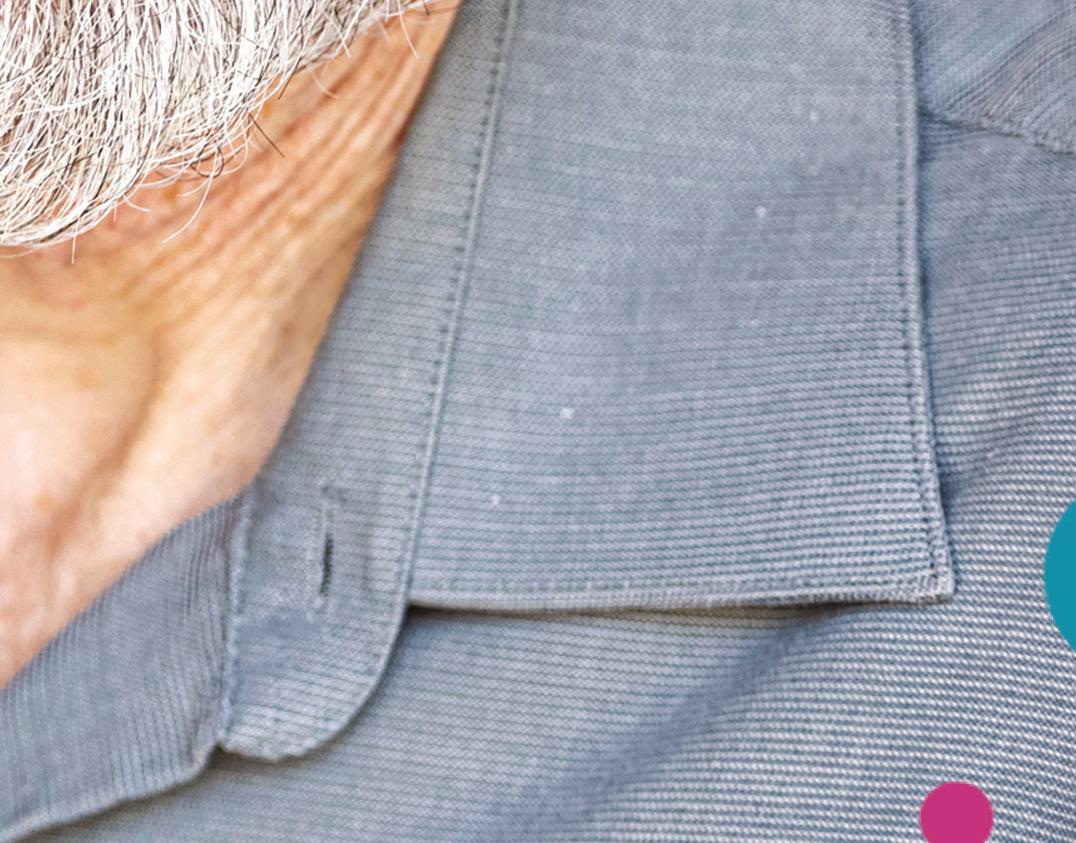


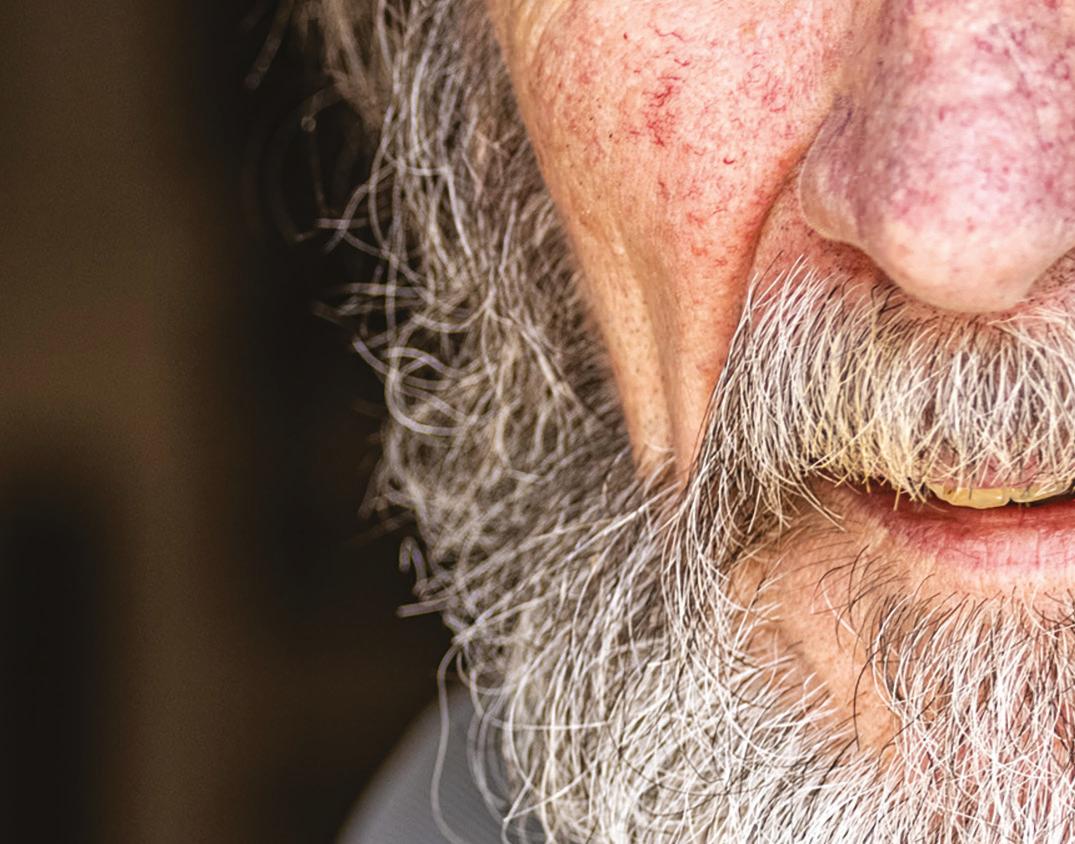

Home Instead client
MARTIN DALY explains the importance of making the best of what you have

2023
Live life with ease
Live life with ease





with ease




At Doro we are dedicated to helping seniors live a better life. To be able to communicate easily with family and friends, despite the challenges that come with age. That’s why we develop easy-to-use mobile phones and landlines for calls you can hear wherever you are, as well as our newly launched Smart Devices - the Doro Watch and Doro Tablet for fully accessible, connected and stylish technology wanted by seniors today.
At Doro we are dedicated to helping seniors live a better life. To be able to communicate easily with family and friends, despite the challenges that come with age. That’s why we develop easy-to-use mobile phones and landlines for calls you can hear wherever you are, as well as our newly launched Smart Devices - the Doro Watch and Doro Tablet for fully accessible, connected and stylish technology wanted by seniors today.












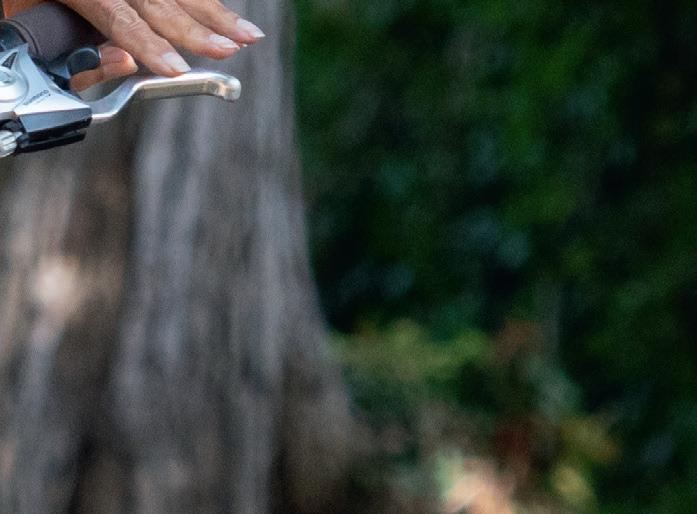


Visit www.doro.com to buy direct today.
Visit www.doro.com to buy direct today.




































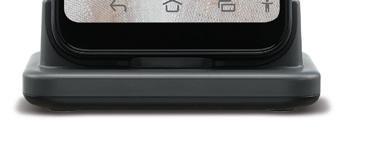















us on










follow
Live life.
AD DORO 6820 210x297 (Essential Guide).indd 1 2022-10-20 09:10
follow us on
Live life. AD DORO 6820 210x297 (Essential Guide).indd 1 2022-10-20 09:10
Chief Executive’s Message
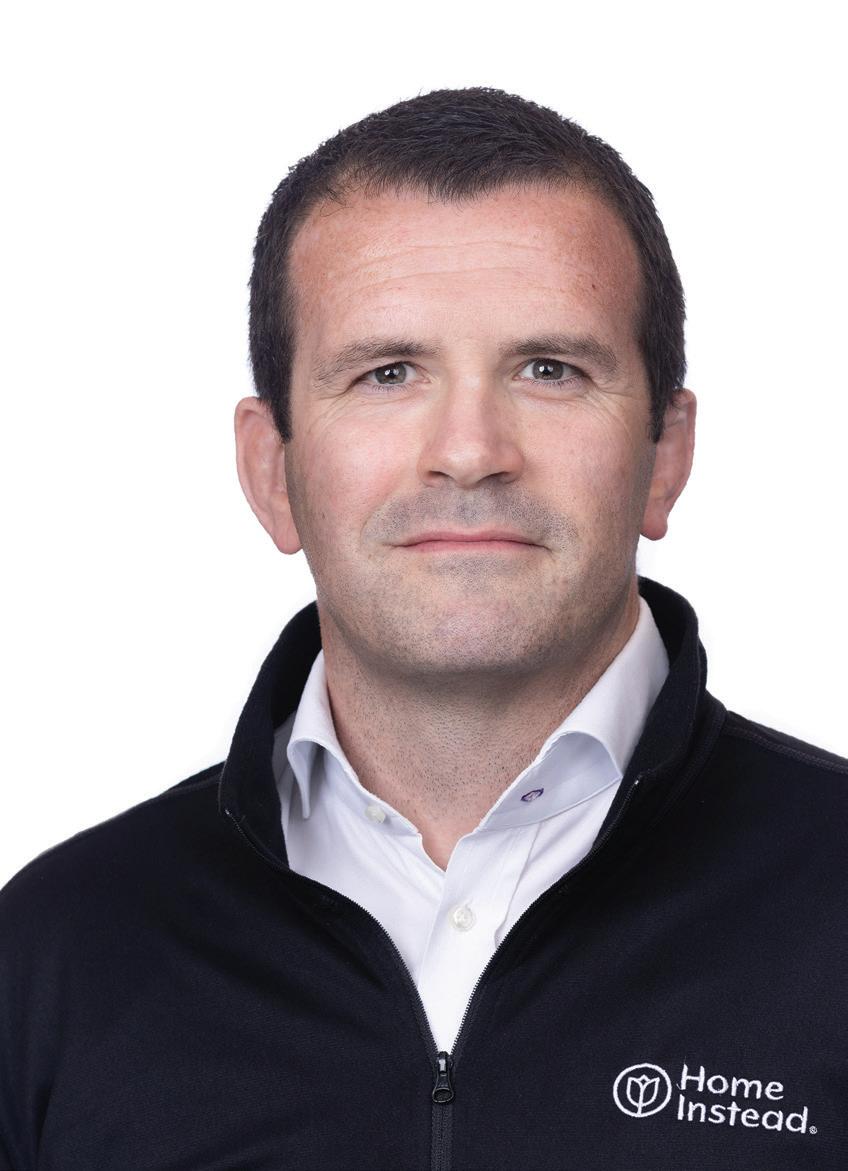
The year 2022 was one of great joy for many within the home care sector –as the worst impacts of the Covid-19 pandemic began to recede, and life for our clients and CAREGivers began to return to normality.
Everyday activities which are critical to the physical and mental wellbeing of ageing adults, such as attending community social events, or even going to the shops without fear of infection, became possible again.
Whilst new challenges affecting all of us – a cost-of-living crisis catalysed by a cruel and needless war – also emerged this year, we can at least be thankful that older people – and those who care for them – can again live life in ways which were perhaps once taken for granted.
Looking into 2023, these challenges are surely set to remain. But we at Home Instead will work hard to ensure that home care remains the top choice for families who want their ageing loved ones to live independent lives, and we will ensure that the sector offers an attractive, enjoyable and rewarding field of work.
The lifting of Covid-19 restrictions allowed our local offices to once again hold social activities across the country, and they held lots of events and award ceremonies to acknowledge
and thank our 3,600 -strong team for the amazing work they do in enhancing the lives of ageing adults and their families. Working with partners within the sector, including Home and Community Care Ireland, as well as other Industry, Government and State bodies, we’ve continued our call for the introduction of Statutory Home Care in Ireland. We firmly believe that such a scheme will provide flexibility and resources, not only to meet an individual’s personal care needs, but also to support the individual’s social and mental health goals, and we will continue to voice our support for its realisation. Similarly, a robust regulatory framework that should underpin the Statutory Home Care scheme will also enhance the quality of service delivery across the sector, leading to greater care choices for clients, and broader career pathways for carers.
1 ESSENTIAL GUIDE TO AGEING WELL
We at Home Instead will work hard to ensure that home care remains the top choice for families who want their ageing loved ones to live independent lives
Deeply personal relationships
Over the year, we’ve seen many families enjoy our Live-in Care service, which offers continuity of care, enhanced peace of mind and a deeply personal relationship between the client and CAREGiver. We look forward to supporting more ageing adults through this practical, innovative and affordable model of care into 2023. As ever, we’ll seek new ways to enhance our range of private care services, offering older people excellence in home care as our standards and technologies reach new heights.
All this will be possible only due to the continued dedication shown by our staff within 25 local offices around Ireland, our frontline CAREGivers and indeed our colleagues networked around the world, and I thank each and every one of them for ensuring we can honour our mission, to enhance the lives of ageing adults and their families.
As we launch the 2023 edition of our Essential Guide to Ageing Well, I’d also like to thank all the contributors to this 18th edition, and I hope it continues to offer valuable advice to all our readers, helping them to live happy, healthy and independent lives at home.
This Guidebook shares the experience and expertise we’ve accumulated over the years, and we offer it free of charge, as we strive to make it easier for older people, their family members and healthcare professionals to learn more about ageing in Ireland.
If you find it helpful, please share it with a friend or family member who might also benefit from this information. Free copies may be requested through our website, HomeInstead.ie or over the phone by calling 1800 911 855.
Shane Jennings Chief Executive Officer Home Instead Ireland
2 ESSENTIAL GUIDE TO AGEING WELL
Iam delighted to introduce the 2023 edition of the Home Instead Essential Guide to Ageing Well. This guidebook provides welcome practical advice for many aspects of the daily lives of older people.
As a society and across Government, we strive to continually improve the care provided to older people and the quality of life of everyone in Ireland.
Our aim is to ensure that the best possible health and social services are available to older people in Ireland, with the appropriate supports in place to provide the required care as needed. A crucial aspect of this is to ensure that people know where and how to access supports.
I am pleased to note that huge strides have been made over the last number of years in the delivery of dementia supports, including the expansion of the National Dementia Advisor Service across the country and increased dedicated home support hours for people with dementia. This has resulted in improved care for thousands of people in our communities across the country.
Good progress also continues to be made on the roll-out of community specialist teams for older people in line with the enhanced community care programme and community healthcare networks. These teams deliver end-to-end care, helping people to remain out of hospital where possible, enabling a home-first approach, and ensuring people are discharged from hospital without delay.
In line with our Programme for Government, and in particular our commitment to an Age Friendly Ireland,
significant improvements across a range of older persons services will continue in 2023 and beyond. Since 2021, the Government has secured over €200 million in additional funding for home support and this year the overall home care budget will be more than €700 million for the first time.
The practical supports and information for both older people and family members make this Guidebook an excellent resource, bringing together contributions and guidance from a range of experts. I would like to congratulate everyone involved in producing this resource and wish you every success into the future as this Guidebook will, no doubt, continue to grow to meet the evolving needs of our population.
Minister Mary Butler Minister of State for Mental Health and Older People
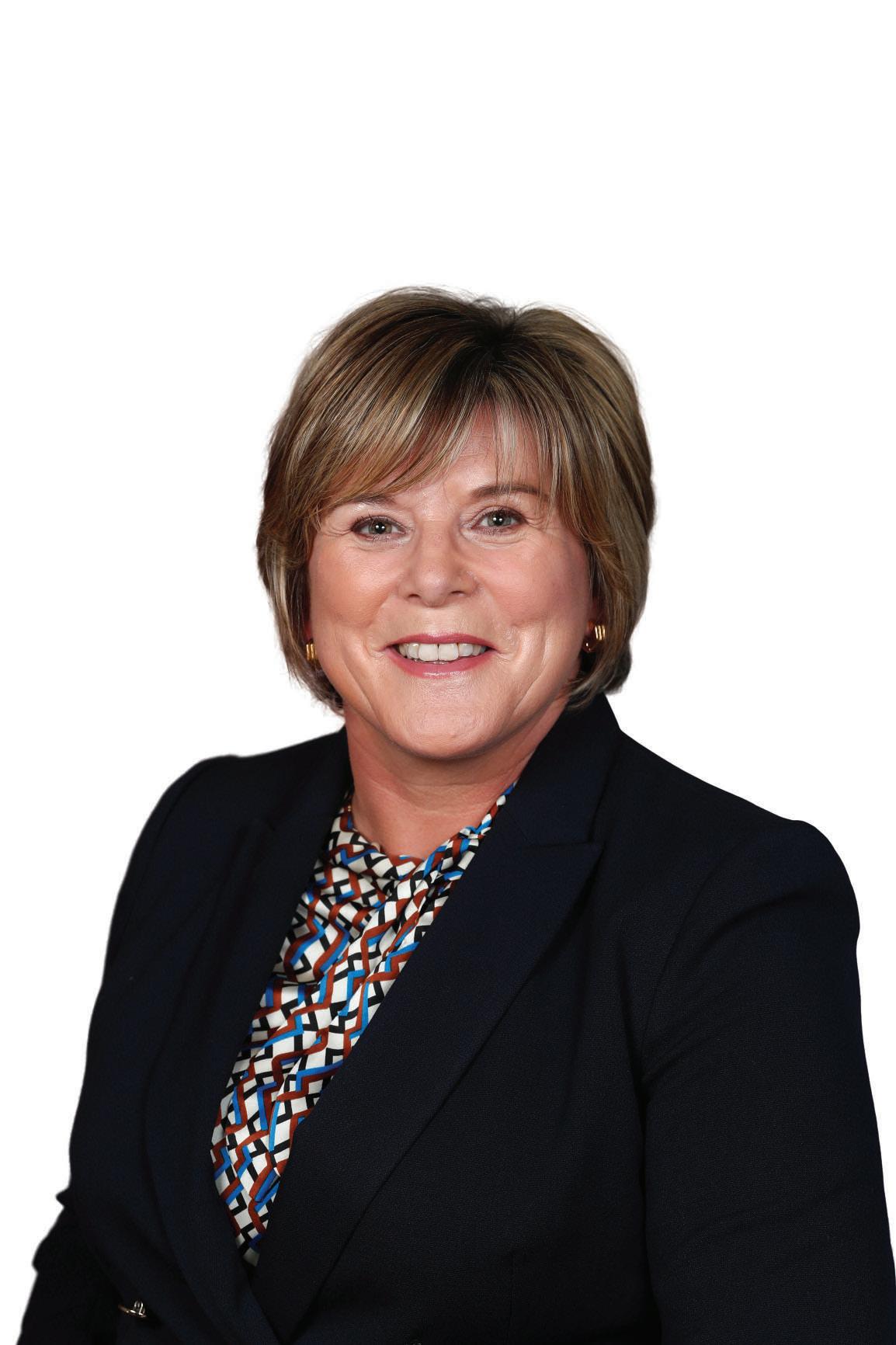
3 ESSENTIAL GUIDE TO AGEING WELL
Minister’s Welcome
Bodies age and change, as they have done throughout our lives. We were probably toddlers when we last sucked our big toes, or in our twenties when we log-rolled down a steep slope without fear of nausea at the bottom. As humans, we want control over our lives, our surroundings and our choices, as this gives us a sense of who we are and maintains our dignity. Ageing threatens this, as ageing is as unpredictable as it is inevitable.
Ageing well describes a life goal to maintain autonomy and dignity as we age. And this is so important, as more and more research shows that happier people have better mental and physical health, leading to longer lives. Ageing well is about improving our understanding of ageing and the challenges it can bring. Better preparation and planning for the potential consequences of ageing, can lead to greater happiness and purpose.
Our ability to grasp the opportunity to age well is impacted by societal factors such as the wealth of our society, (for example, life expectancy in the United States peaked in 2014 and has since fallen) and the level of ageism within it. The World Health Organisation reports 1 in 2 people are ageist towards older people. There is a need for society to recognise that older people are not a homogenous bunch – for example, only 15% of businesses have ageing market strategies that understand that the needs of a 65-year-old can be very different to that of a 95-year-old. The reality is we all must start having conversations early to support us make decisions that can help us plan for the life we want when we are older, and for most of us, this is living safe and well at home in our local community.
As individuals we need to plan and prepare how to age well despite societal pressures. And the greatest pressure to postpone thinking about ageing often comes from ourselves and

our family. However, if we want to live our best lives as we age, the time to prepare and plan is now. If we want to live in our own home for as long as possible - even if we needed care and support to do so, (which survey after survey suggests we do), the time to make modifications at home (such as installing a wet room downstairs) is now, not during a health crisis when we’re stuck in a hospital. We need to start conversations with our families now, start budgeting for the future now and put our legal affairs in order now.
Ageing well, then, starts with considering what our life goals are. This includes thinking about where we want to live and how we want to live. It involves contingency planning. We need to think about how we achieve goals such as continuing to socialise in the event something happened to us, or no longer being able to drive a car. And it involves conversations with other people such as family and professionals like solicitors and doctors, whose help we may need to realise our goals.
We hope Home Instead’s Essential Guide to Ageing Well helps you start your journey to age well. We’d be delighted to hear your own stories about ageing well and the decisions and plans you make. We hope that by putting your affairs in order you are in a better position to live as independently as you can. Our hope is that this allows you, to quote the well-known psychologist and author Dr. Maureen Gaffney, to “Stumble on the secret of happiness – that life is precious and sweet and that every moment counts.”
Michael Wright Director of Corporate Operations and Public Affairs Home Instead Ireland

4
ESSENTIAL GUIDE TO AGEING WELL
Foreword
If we want to live our best life as we age, the time to prepare and plan is now

Each Home Instead® office is independently operated. WE KNOW YOU CARE, AND SO DO WE. Home Instead provides personalised home care services so your loved ones can continue living in their home. From personal care to dementia care to transportation, we help older adults live safe and happy lives – at home. Call 1800 911 855 or visit HomeInstead.ie
We all know that as we get older, we tend to get physically less strong, fast and agile, and something similar tends to happen mentally as well. But this is only the average. What is less well-known, is that range of differences between people becomes much bigger as we get older. This means that while some of us really do slow down physically and mentally quite dramatically with age, others stay much more ‘youthful’ in these respects. There are 10 scientifically proven steps you can take to keep yourself towards the more youthful end of your age range, no matter how old you are.

1. Connecting
We evolved as a group species, and our relationships with other people are crucially important for our well-being. Of course as we get older, sometimes we become more isolated but it is important to keep a connection with people as much as possible. If you’re lucky you may have family living near you, but if not there are many organisations and groups which will fill that need that most of us have for companionship.
6 ESSENTIAL GUIDE TO AGEING WELL
No matter how old you are, you can do many things to keep mentally, physically and emotionally well for your age.
Professor Ian Robertson, Founding Director of the Global Brain Health Institute and author of How Confidence Works
Feature
2. Purpose
Having a sense of purpose or meaning is incredibly good for you at any age, but particularly as you get older. For many of us, this comes from our relationships with family and friends, but for others it can be a connection with nature, religion, music or community. Volunteering or helping out others have tremendous positive effect.
4. Challenge
It’s easy to get stuck in a comfortable routine once we are retired. This can be great for some people, but for many this leads to a lack of “challenge” in their lives. This means doing things that stretch you a little bit, ranging from enrolling in that embroidery class to having an uncomfortable conversation with a relative or friend. Doing things that are a little bit difficult – but not too stressful - make your brain release chemicals that stimulate and nourish it.
5. Curiosity
Curiosity is a huge brain stimulant and source of well-being. Curious people live longer. This is because curiosity makes you eager to find out and to see things anew. Curiosity stimulates a number of key chemical messengers in the brain that are incredibly good for it.
3. Confidence
We live in a culture where negative stereotypes about what older people can and cannot do, undermine our confidence and lower our morale. So it’s important to square our shoulders, stand or sit tall, and challenge ourselves to do things that are a little bit difficult. Once we do this a few times, our confidence grows bit by bit and we can shake off the negative ideas about being old that otherwise undermine us, as I show in my book How Confidence Works.
6. Novelty
Seeing or doing new things, meeting new people or listening to new types of music are all examples of novelty, which the brain finds incredibly stimulating and rejuvenating. Try something new from time to time – break out of your routine a little bit.
7 ESSENTIAL GUIDE TO AGEING WELL
7. Learning
Young people learn many more new things than older people and this is one reason why younger people are more mentally fit than elders. Learning new skills – a foreign language, a musical instrument, a craft like pottery, oil painting – or 1000 other possibilities, may actually help generate new brain cells in key memory centres of the brain.
8. Relaxing
One of the great benefits of being older is that many of us have more time and opportunity to relax. Learning to relax is a skill that some of us have already but that others have to learn. Fortunately, there are many different ways of relaxing and everyone can find one to suit them. There are many relaxation recordings available as apps, as well as mindfulness methods, but for some people just finding the time to sit and listening to your favourite music or taking a brisk walk is relaxation enough.
9. Exercise
It’s very easy as we get older to do less physically. But the older we get, the more essential physical exercise is – as much for our brains as for our bodies. Three types of exercise are important –aerobic that gets your heart rate up, stretching to keep your joints supple and strength training to reduce the loss of muscle mass that happens as we get older. Sleep is also very important for the brain, and it’s easier to get a good sleep if we are well-exercised.
10. Enjoyment
Here’s some good news about getting older: we tend to be happier than people in middle age. We enjoy the small things – the smell of the coffee, the song of the blackbird or the warmth of a bed for the winter morning when we don’t have to go out to work. Taking pleasure in the small things in life is a skill that some people have lost but is easily re-learned. If we can do this as we get older then we will feel happier, healthier and younger.
8 ESSENTIAL GUIDE TO AGEING WELL
Feature
A connected and fulfi lling life with Doro
At Doro we feel that everybody should have the opportunity to live a connected and fulfilling life –without compromises. To us, age is just a number!

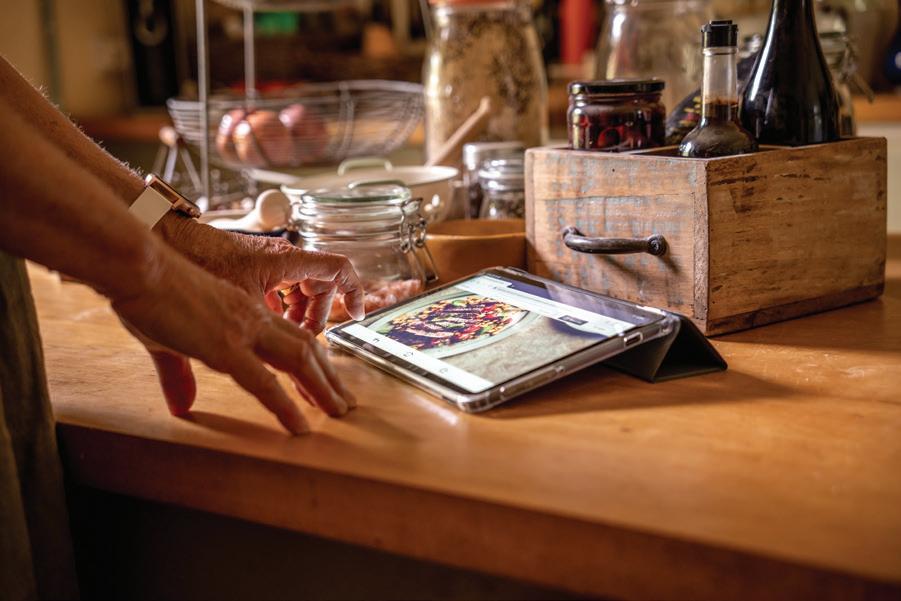
So much of life today takes place on mobile phones, connected devices and the internet –its how we communicate with each other, the outside world and everyone should be able to take part. That’s why we develop easy to use mobile phones and technology that are intuitive and work how you expect them to – simple and easily to help us stay in touch with those we love the most.
Getting older can often affect our hearing, sight, and motor skills as well as our confidence with technology. When it comes to mobile phones and smartphones our focus is on features that make daily life simpler and safer. Larger, well-spaced keys for confident dialling and texting, louder and clearer sound for calls you can hear wherever you are, easy to read screens to make reading texts and viewing photos joyful and an assistance button that you can press when you need help quickly from family and friends at the touch of a single button.
The Doro 8100 is our flagship easy to use and easy to love smartphone which makes staying connected with family and friends both fun and reassuring. It has an intuitive user interface that thinks how you do – tap ‘view’ to see your messages, emails and photos and the device will ask you the next logical question depending on what you have selected previously. It also has a triple lens camera for taking beautiful photographs, an assistance button powered by Response by Doro for getting help and TeamViewer comes pre-installed so loved ones can login and help you from wherever they might be.
The Doro Watch is a stunning smart watch
that helps users to keep active as well as feeling more secure. It tracks your daily steps, heart rate and sleep as well as showing you notifications from your smartphone for calls and texts or emails. When paired with the Doro 8100 the lower button also acts as a trigger for your assistance button – meaning help is always close at hand.
Doro also have a wide range of feature phones, such as the Doro 6820 or Doro 5860 which focus on making calls, sending text messages, and taking photos. Each one has an assistance button, loud and clear sound with hearing aid compatibility and buttons that are large with high contrast making them easy to press and dial numbers.
At Doro, we are dedicated to helping seniors live a better life. See our full range at www.doro.com

Commercial Feature ESSENTIAL GUIDE TO AGEING WELL 9
Commercial Feature
Training & Development
Our unique approach to quality in care
The Home Care Professionals Academy offers engaging training programmes which enable our CAREGivers to deliver excellence in care and progress their own careers
The safety and wellbeing of our clients is paramount to us at Home Instead, and our wonderful team of skilled and compassionate CAREGivers ensure more than 7,000 ageing adults in Ireland are in the very best of hands with us. Our high standards, meticulous care management processes and our training programmes underpin the quality of care that Home Instead clients receive. The latter is delivered through our Home Care Professionals Academy, which provides CAREGivers with practical training using a blended learning approach. It equips our staff with all the skills needed to care for our clients. The Academy is unique to Home Instead, and allows us to ensure that our CAREGivers have ongoing access to excellent content, from the basics such as infection control and medication management to specialised topics such as caring for a client living with dementia. CAREGivers learn all about Home Instead’s quality systems and standards, which set us apart from other care providers.
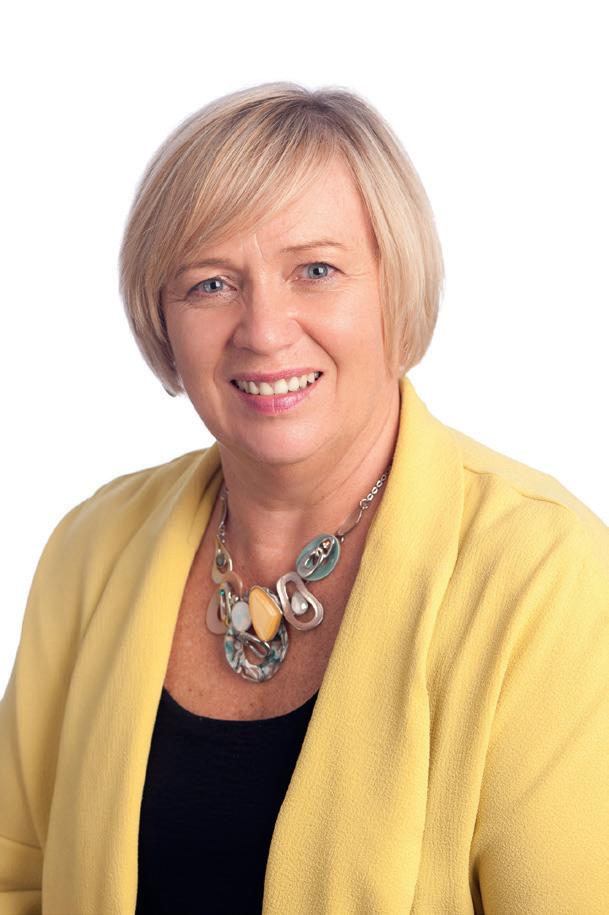
Best practice
Content is delivered through a bespoke, constantly evolving Learning Management System, ensuring staff are kept up-to-
date with best practice. For instance, our CAREGivers availed of access to advice and skills training for frontline work during the Covid-19 pandemic, which provided them and their clients with significant peace of mind. CAREGivers also have access to excellent content provided by other relevant organisations such as the HSE and Tusla. We asked Home Instead CAREGiver, Narjara Lemos, from our Ballsbridge office to describe her experience with the Academy, and we were thrilled with what she had to say: “When I’ve thought of the word ‘training’ in the past, I’ve thought only of the word ‘theory’. But the Home Care Professionals Academy is different – it blends theory with practice in a very enjoyable way.
“The methodology and practical examples were really easy to understand and follow. The
10 ESSENTIAL GUIDE TO AGEING WELL
“The Home Care Professionals Academy blends theory with practice in a very enjoyable way.”
training gave me new skills and confidence to care for Home Instead’s clients – to truly become their ‘right arm’! It’s made me a true professional and I look forward to continuing that journey!”

Changing skills requirements
New recruits get 20 hours’ free, fully supported training via the Academy and are issued with Home Instead, HSELand and Tusla certificates on completion. There is an option to continue this training and receive a City & Guilds Accredited Certificate in Dementia Care. We never stop developing new training modules for our staff, as their skills requirements can change over time. Job Aids have been put together by our in-house team of Registered Nurses and are designed to enhance a CAREGiver’s skills and knowledge through real-life scenarios. We have also
rolled out a series of wellbeing modules which helped our CAREGivers cope with the additional strain placed upon them during the Covid-19 pandemic, when they worked tirelessly to deliver essential services to ageing adults all over the country, saving many lives. The Home Care Professionals Academy helps us honour our mission, to enhance the lives of ageing adults and their families, while also offering our CAREGivers a pathway to progression within their own careers in care. We are very proud of the positive impact it has had on all concerned.
Danette Connolly R.N., Managing Director, Home Care Professionals Academy and National Clinical Lead, Home Instead Ireland
11 ESSENTIAL GUIDE TO AGEING WELL
CAREGiver of the Year 2022
Each of our CAREGivers delivers excellent care services to our clients nationwide, 365 days of the year. Each year, we honour a number of CAREGivers who have gone the extra mile. Here are the winners of our CAREGiver of the Year Awards 2022
Stars in our Communities
MARY SWEENEY
Ulster CAREGiver of the Year
“Mary has always demonstrated that she is a genuine caring CAREGiver, her compassion and sensitivity to others enables clients to feel at ease and reassured at all times. She is devoted to giving her clients the best care possible and has become a valued member of our team and the community. She is a kind, warm hearted, gentle person with a wealth of knowledge who builds trusting relationships at every opportunity.”
Alison Hegarty, General Manager, Home Instead Donegal
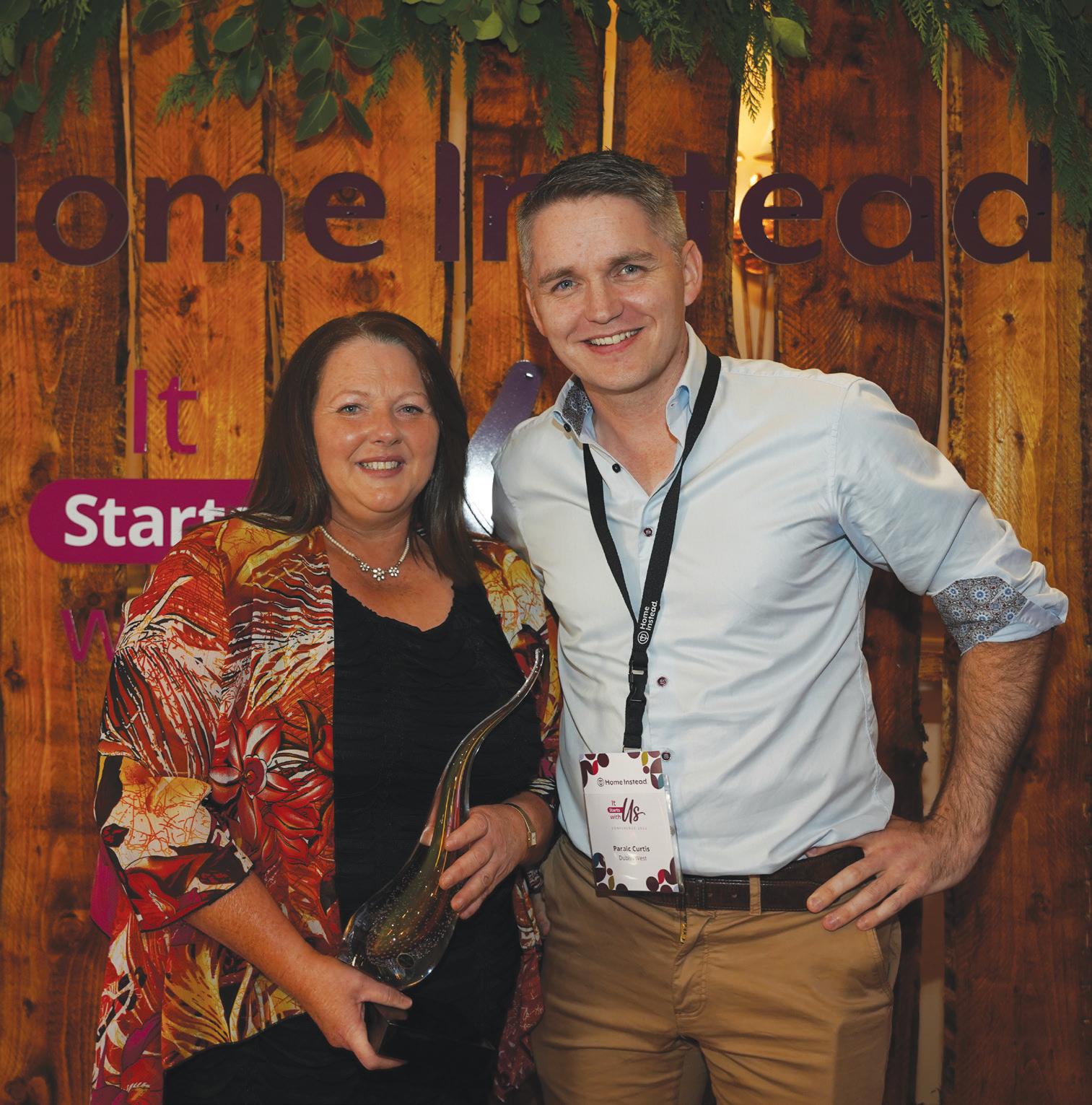
CAROLINE WARD Leinster and National CAREGiver of the Year
“We always say ‘To us, it’s personal. We ask our CAREGivers to build trust, take the lead and share their heart every day. Caroline has taken this to the next level. She is loyal to her clients, always open to learning new skills, and works with a smile on her face. Caroline has addressed the Alzheimer Society of Ireland about her experiences of caring for people living with dementia and has also undertaken training on caring for those with Motor Neurone Disease, as she constantly seeks to develop and increase her knowledge, skills and abilities to help care for our clients in Dublin West.”
Páraic Curtis, Home Instead Owner, Dublin West
12 ESSENTIAL GUIDE TO AGEING WELL
TERESA CALLANAN
Connacht CAREGiver of the Year
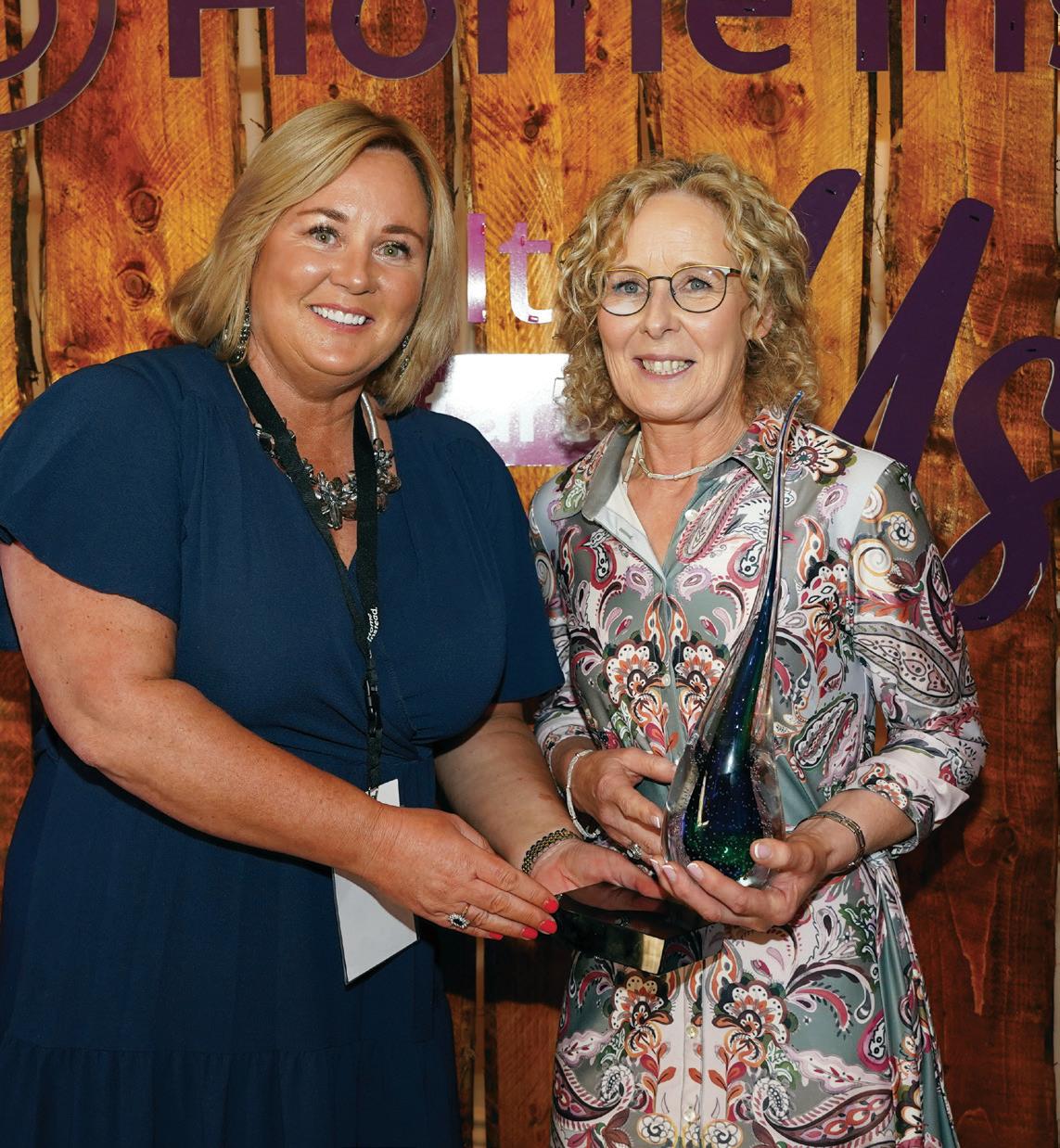
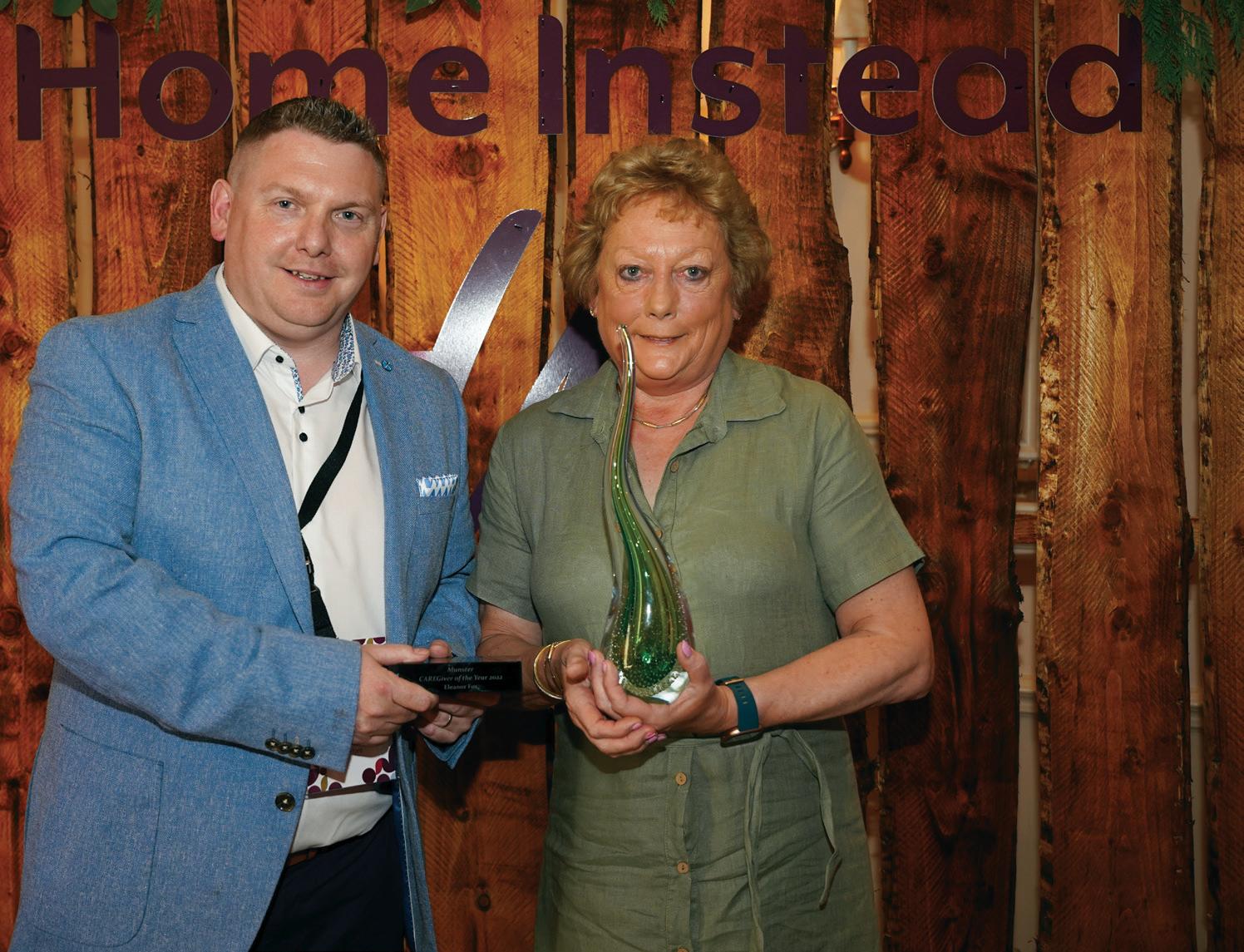
“Teresa is a very kind, caring and compassionate CAREGiver, who has always treated her clients with respect, dignity and, above all, kindness. Clients and their families view Teresa as part of their own family and, thanks to the care she provides, many of her clients remain able to live at home as independently as possible. Teresa’s positive attitude and caring nature come across in abundance as soon as you meet her, and her colleagues, clients and the HSE are all full of praise for the work she does.”
Suzanne Ryan, Managing Director, Home Instead Galway
JUDGE’S REMARKS
“The testimonials and feedback from their colleagues, fellow CAREGivers and, perhaps most importantly, their clients, show just how important members of the team and the community each of the regional CAREGivers are. We were delighted to recognise the outstanding contributions made by Mary, Eleanor and Teresa, and especially Caroline, the National CAREGiver of the Year.”
Molly Carpenter, Director of Workforce at Home Instead Inc
CHIEF EXECUTIVE OFFICER’S COMMENTS
“The work that Caroline, Teresa, Eleanor and Mary – and indeed all of our CAREGivers do – are shining examples of the type of quality care that we provide to clients, so that they can live independent lives in their own homes and communities for as long as possible.”
Shane Jennings, Chief Executive Officer, Home Instead Ireland
ELEANOR FOX
Munster CAREGiver of the Year
“Eleanor has been with Home Instead since we started out in Waterford. She is an absolute pleasure to work with and goes way beyond on every service she provides to every client. She has an amazing work ethic and personality. Clients and their families are full of compliments for Eleanor’s work, and her kind and gentle nature. She is best described as irreplaceable.”
Steven Tubbritt, General Manager, Home
Instead Waterford
13 ESSENTIAL GUIDE TO AGEING WELL
Client Feature
Martin Daly describes the changes in Irish life over the years, the sadness of losing his wife during Covid-19, the joy of raising their children, and how he’s living independently at home at 89
Martin Daly has achieved much to be proud of in his life to date. Born in 1933 in Glasnevin, Dublin, and now living in Omeath, County Louth, Martin is a qualified Yacht Master who served as mate on the original Asgard (the boat that ran the guns in the Irish War of Independence and then became a sailing ship). He has constructed a number of sailing dinghies and passed on his boatbuilding knowledge to local teenagers.
He is an award-winning photographer who has published a book of his work on wildlife, including some amazing pictures of polar bears in the Arctic. Until recently, Martin was a keen hillwalker, in his earlier years he was a competitive cyclist, and just last year he became the oldest man to complete the longest zipline in the world, at the age of 88, while visiting his son in Dubai. “It was a bit boring!” he says of the experience.
But the achievement Martin is most proud of “is my 63-year marriage to my late wife Mona, and my children, and the fact that they have done so well for themselves. I take immense pride in this.”
Wonderful spirit
Martin met his beloved wife Mona while working in a factory, and they were married in 1959. They went on to have three children – two boys and one girl. Sadly, Mona passed away in February 2021, right in the middle of the Covid-19 pandemic.

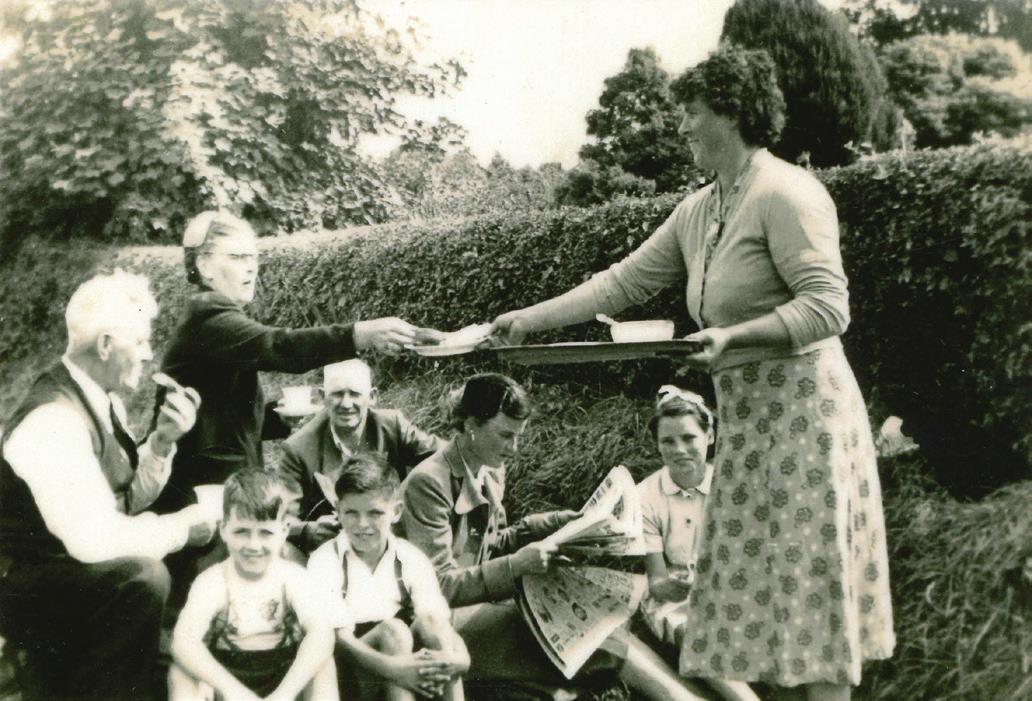
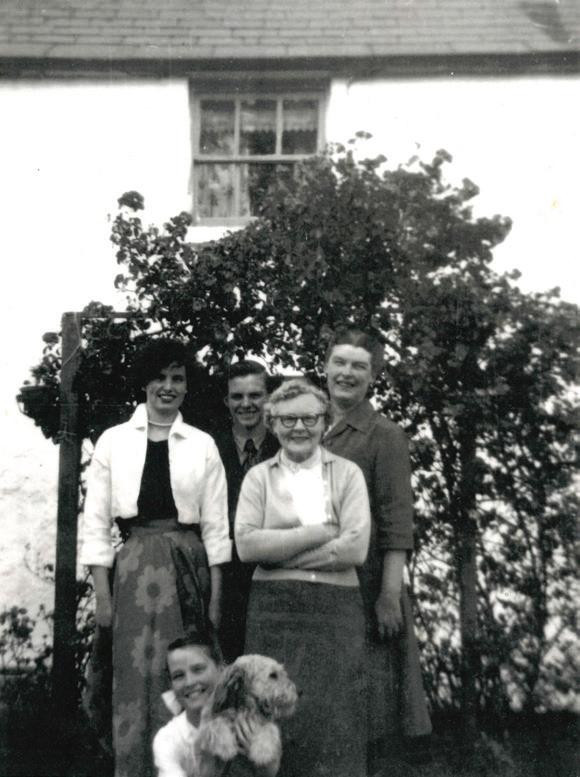
“When Mona’s health deteriorated, it meant family could not travel as freely and I came to rely on her CAREGiver calling every day to assist her with her needs. I know Mona found this hard at the start. And when she passed away, a lot of family were not allowed to attend her funeral or say their goodbyes, which was a pity, as Mona participated in such a big way in the community and was known far and wide.”
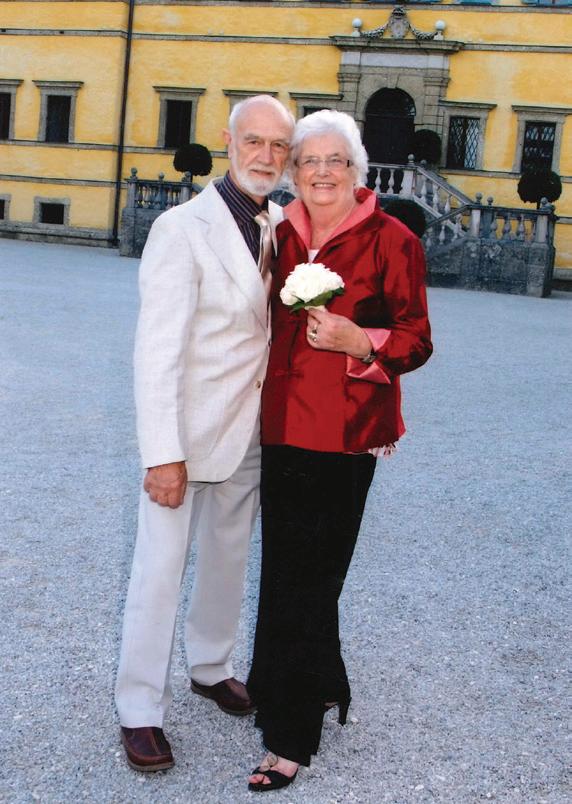
14 ESSENTIAL GUIDE TO AGEING WELL
‘We’ve always made the best of what we have’
Martin Daly lives happily at home with the support of Elaine Hogan, Home Care Coordinator at Home Instead Louth who is also one of his dedicated CAREGivers.
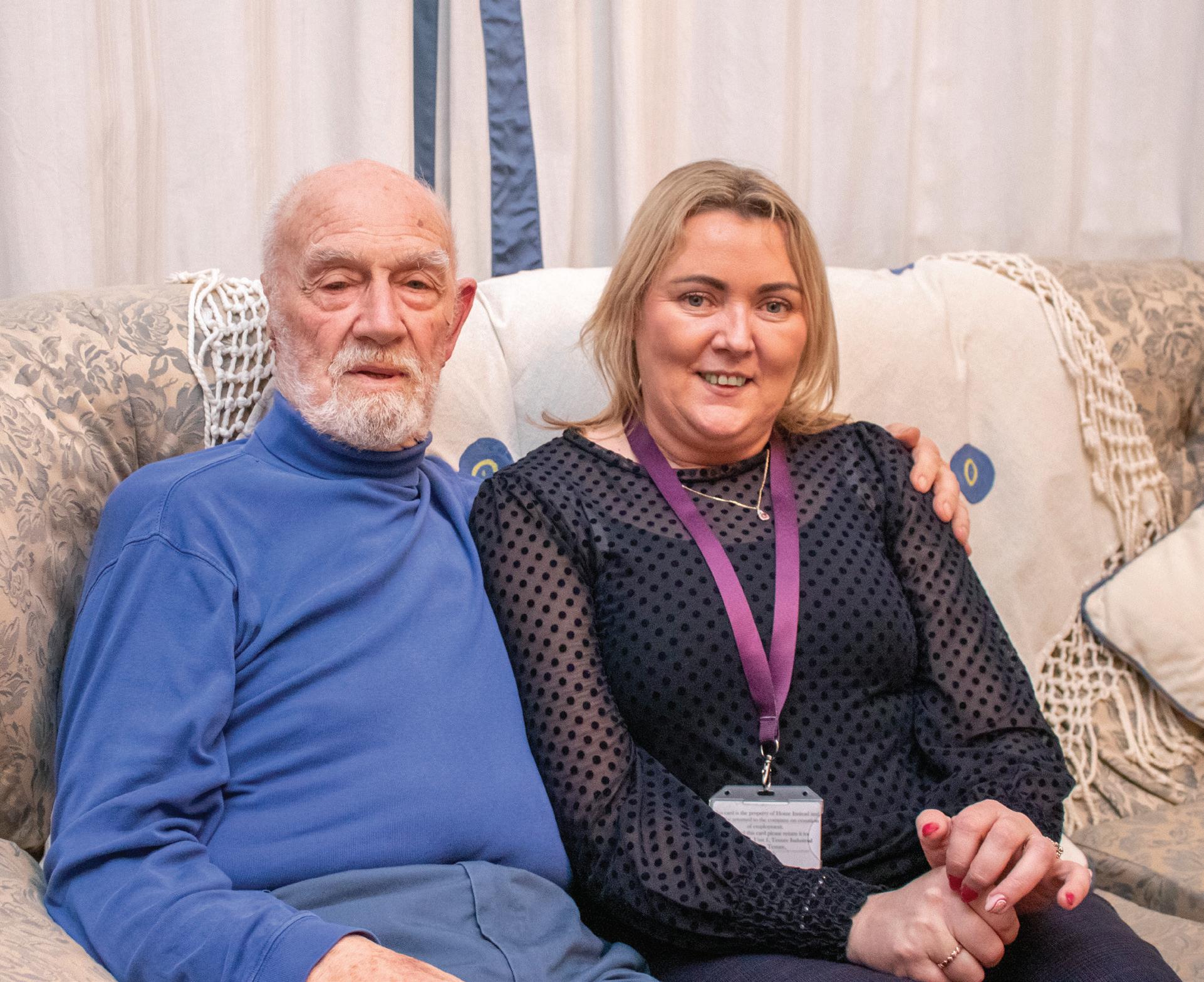
Losing the love of his life at a time when most daily activities were curbed by the pandemic made things even more difficult for Martin, but, showing the wonderful spirit he’s renowned for, Martin got on with things as best he could.

“I used to attend a gym and swimming pool in Carlingford to keep fit and active, but when these were closed, my mobility declined a little. I would always get the bus to Dundalk or Newry to go shopping or just walk around and I really missed this as I like to be active. I hated to see the carers having to wear those blue gowns and masks – I missed their smiles,” he says.
“I am glad things have now got back to normal – I can visit the local café again, meet my friend Brendan and be active. But I have no Mona now to do these things with me. We miss her lots; she won’t be forgotten by us or the community.”
‘Elaine
put our minds at rest’
Martin first met his carer Elaine when she arrived to look after Mona.
“The first day Elaine arrived at the door to care for Mona, we were very unsure as to what to expect, but she put our minds at rest,” he recalls.
“She explained she was here to help, and it might take some time for Mona to get used to her calling to assist her, so we took it slow for the first few days. There was lots of chatting and cups of tea, but they soon became friends and established their own routine.
“We were soon introduced to another carer and these two ladies encouraged my Mona to keep going. They always had her looking her best, with nails painted and hair styled. They knew what she liked – they could judge her mood by the first hello and would go along with whatever the mood was.
“When Mona’s health began to fail, these girls knew what was coming and gathered my family around. I only lately found out that they were in fact spies for my children, and had contacted them to let
15 ESSENTIAL GUIDE TO AGEING WELL
Client Feature
them know about the changes in Mona’s condition. “Having the girls to assist me and my family to keep Mona at home to care for her in her final days meant the world to me and my family. It wasn’t always easy, but the support and kindness that we received was outstanding, and when Mona passed away on the 3rd of February, 2021, they became a shoulder to cry on and an ear to listen.”
Make the most of every day
With the help of his CAREGivers from Home Instead, Martin likes to make the most of every day.

“I am an early bird – I like to get a good start to the day. I usually go to the local café for a midmorning snack. We have a wee local gang that Mona was part of, and they have since adopted me.

“Then my carer Samantha arrives, and she assists me with general stuff like soaking my feet or applying creams. I enjoy the company. She is fantastic and calls every morning we have wonderful chats about different things and life in general.
“I then watch some TV and take a snooze. I love to listen to the opera – I have figured out how to work YouTube so I can now search loads of different operas. I then go back to the same café late afternoon for a late lunch.
“My evening carer Elaine calls and we may go for a walk or do a few bits around the house or just listen to music. Little did I know at the time I met her, that two-and-a-half years later, Elaine and I would have built a strong friendship. Once a week I go out for a walk or a drive with my friend Brendan and we explore new cafés restaurants.
“I know the two girls have my best interests at heart – they never question my ability to do things for myself. It might take a bit longer, but they are patient and respect that I am independent and wish to stay that way for as long as I can, but I know they are more than willing to help with anything.
“So really, I inherited Home Instead from Mona, and she could not have left me in better hands. With the girls calling, it gives my children peace of mind - they have become again a spy for them,” Martin jokes.
Working class roots
Martin himself comes from a family of five boys, and has very fond memories of playing street football and hurling outside his terrace street home in Glasnevin. He says that growing up in the time of World War II did take its toll on working class families.
Martin’s parents both worked in the Players Cigarette Factory. He remembers his mother would choose to take the flour rations instead of the bread as the flour would go further in making her own. Martin recalls getting sweets once a week, and says he feels this is the reason why he still has his own teeth!
“I remember wanting to be a rich hurler, but my father had other ideas, and soon began to teach me to use tools that would help me become a successful electrician. Mona and I built our first home in Ashbourne, Co. Meath, after I was offered a job as a manager of a local AnCo training centre – AnCo is better known today as SOLAS. We lived there for eight years.
“I remember being shown an empty IDA building and was told, ‘now that’s your training centre – make it work’ – and make it work we did. I enjoyed my time as manager. Later we left our home in Ashbourne and moved to this house, where we have lived for the last 48 years, and

16 ESSENTIAL GUIDE TO AGEING WELL
we worked extremely hard to make it our home. We were incredibly happy here.”
Martin says his working class roots instilled a sense of hard work and appreciation for him and others like him.
“When I was growing up, we had little and for the working class family, everything we had, you can be sure it was worked for. We always made the best of what we had, and our time together as a family was spent sitting together, listening to my parents playing music, and as I said we made our own fun by playing in the street.
“Now people are so busy trying to get ahead and progress that not as much time is put into family life and kids now are given so much to substitute for their absent parents. But working class people in some ways are still working extremely hard for anything they have.”
Change for the better
Martin agrees that many things have changed for the better in Irish society throughout the years.
“The fact that young adults can go to college and get a career in their chosen field is marvellous – having worked as a manager at AnCo, and seeing my own kids going to college is just the best. We just didn’t have so many options in the past.
“Technology today is amazing – I can see one son in Dubai and another in England on a screen. And the things they can do with regards to health is great. I had to have surgery to have cancer removed and unfortunately had to lose my right ear lobe – but the operation was a success.

“And when my wife was coming to the end of her life, and in the months before, it really opened my eyes to how far our health service has come. From carers, to nurses, and the services that were available for my wife to remain in the home we had brought up our family in. As sad as that time was, it was somewhat comforting to know that Mona was in the best of hands until the end.”
Asked if there was one thing he would change in the world, Martin says he would end wars of all kinds.
“There was no need for it back then, and there’s no need for it now. Life was hard for us during World War II, and it is just the same for families experiencing the effects of war today. People are killed, families are displaced from their homes, and for what? For the ambitions of a power-hungry man? No one needs it, the effects can last for generations, and even the unborn will still be paying the price in years to come.”
‘If you need a rest, take it, but then get up and keep going!’
Offering a few words of advice to our readers on ageing well at home, Martin says: “Do what you’re able to do. If you need a rest, take it, but then get up and keep going! Take small walks, even if it’s just up and down the hallway.
“When help is offered, take it, as the offer may not last! Do not be too proud to accept assistance if you are finding it hard – people want to help. People who want to help are not just doing a job, they really care, so treat them with respect and you will receive the same!”
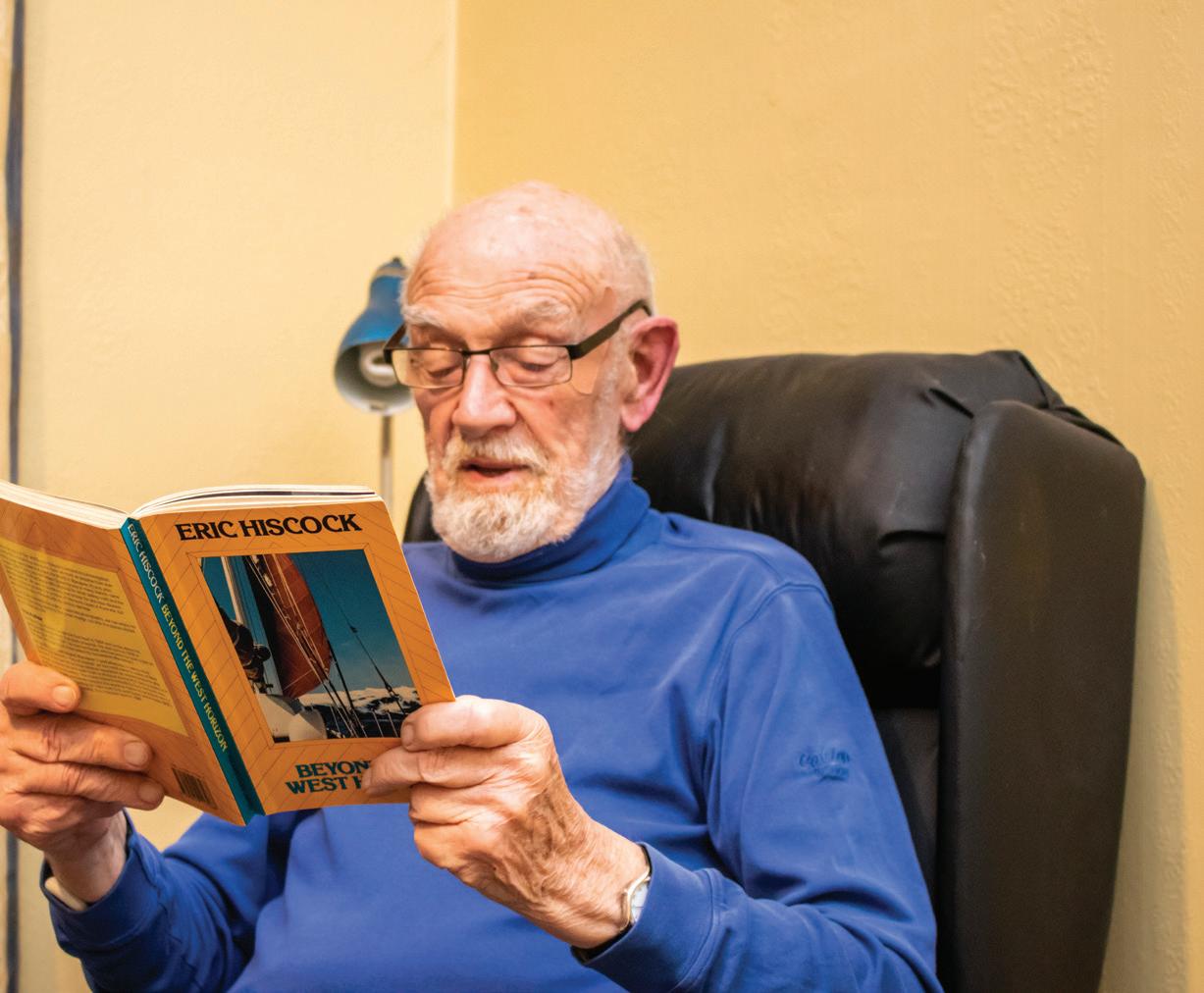
17 ESSENTIAL GUIDE TO AGEING WELL
Martin is an avid reader of all things sailing and cruising and an award-winning wildlife photographer.
A career in care with Home Instead is a lifetime opportunity
Just ask these two Care Managers, who bring the skills they learnt on the frontline to the office every day
Many of the best-loved managers within the Home Instead network began their career as a CAREGiver before being promoted to a role in the office. They’re working in a variety of areas within the business, such as Scheduling, CAREGiver Supervisors, Administration and Care Management. But no matter which area of the business they work in, each of the promoted CAREGivers say that their frontline experience has helped them excel in their new jobs – and they draw on this experience every day.
Rhoda McKay is a Care Manager at Home Instead Meath. “I started out working as a CAREGiver at Home Instead in 2016, after taking a long career break to raise my three kids. I came across the opportunity when I was ready to go back to work full time. My background was in interior design, but I was really attracted to the role, and I was invited to interview the very same day that I applied,” says Rhoda.
“Though I was terrified at the prospects of starting a new job after so many years, I was impressed with how prompt and professional Home Instead were.
“I did the necessary QQI training and started work, and I loved every minute and every aspect of what my role entailed. I found the job so fulfi lling and rewarding - I enjoyed working with other carers and learning new skills through college and work.
“In January 2017, I got a call from the office, and was invited to interview for the role of Care Manager,” she says.
A change in career
Care Manager Martina Houlihan also started off as a CAREGiver with Home Instead Mayo, and went on to become one of the team’s best-loved staff .
“I wanted a change in career, and I saw an ad on social media to become a CAREGiver with Home Instead, so I emailed them and got a quick reply,” says Martina.
“When I completed the courses, I started my first shift as a CAREGiver and I was delighted to join the team. I loved it. After a while, I had a chat with my line manager about career progression opportunities, and she encouraged me to train up in doing Quality Assurance Checks.
“I jumped at the chance, and after a
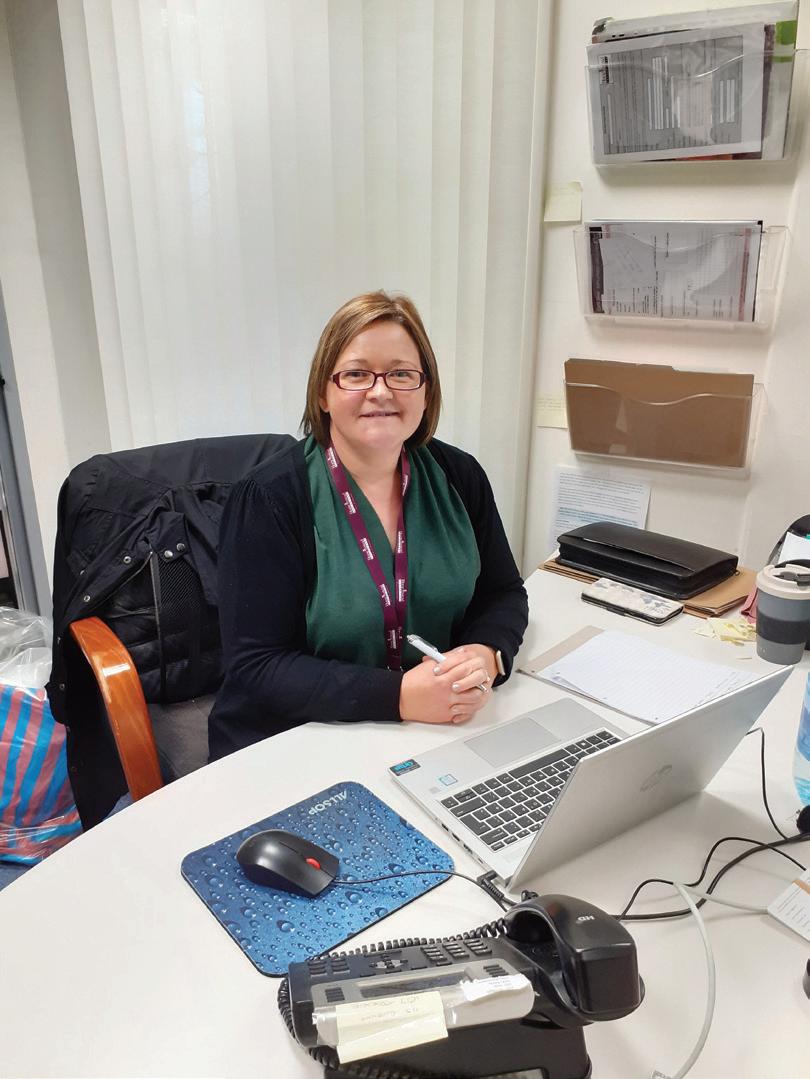
18 ESSENTIAL GUIDE TO AGEING WELL
Careers in
Care
Martina Houlihan, Care Manager, Home Instead Mayo
while I started doing Home Care Assessments. I kept working, I kept learning, and I had so much support and guidance from the other care managers and the other departments in the office – it was amazing, the epitome of team spirit,” says Martina.
Describing her quick progression, the new skills she’s learnt, and the day-to-day job, Rhoda is delighted with her new role.

“What started off as Quality Assurance visits, supervisions and introductions has grown to much more. Every day is full-on. I like to get into the office early to get paperwork done as I am on the road so often,” she says.
“Daily tasks would include client-CAREGiver introductions, updating care plans, training

19 ESSENTIAL GUIDE TO AGEING WELL
Rhoda McKay, Care Manager, Home Instead Meath
Careers in Care
CAREGivers on specialised equipment, taking new service enquiries and setting up care plans, carrying out risk assessments, and so on.
“I also step in to provide care cover when needed, though it can be hectic, it is so rewarding. Clients and their families really appreciate what Home Instead and their CAREGivers do for them on a day-to-day basis.
“There are 12 staff in the office, including schedulers, administration and management. We all work as a team and support each other. We are all very much a team and know a little of each other’s roles and can multitask if needed,” adds Rhoda.
No two days are the same
Martina also loves the variety of work – the fact that “no two days are the same.”
“I could go into the office and have a few Home Assessments to set up, and get introductions done. I like to get them done as soon as possible, as we do not know what will happen tomorrow,” she says.
“In my Care Management role, I love going in to see the clients, learning how they are getting on with their CAREGivers and listening to their wonderful stories. It brings back great memories of the giggles I enjoyed with clients when I was on the frontline myself.
“Relations with the local Public Health Nurse can be critical in ensuring a smooth care service. I work closely with other Care Managers, carefully monitoring the situation, looking out for problems or issues, and resolving them as soon as possible.
“We also help each other out wherever possible with Home Assessments – we have a real team spirit: two heads are better than one and every day is a school day!
“I also work closely with the scheduling department, linking in about CAREGivers who are taking on clients, setting up Home Assessments and getting back to them when
all is completed and when the service call is starting,” says Martina.
Asked to describe the single-most important quality a good Care Manager should have, Rhoda states that caregiving experience is invaluable.
“I understand the role of the CAREGiver and the challenges they experience and can share my own experiences with them. I believe they accept guidance better if they believe I have walked in their shoes and can still fill a care call when needed.”
As a CAREGiver, Rhoda honed her communication, recording and reporting skills and today in her role as Care Manager, she employs them every day.
“Communication is key. Record, report and follow up. Feedback from clients and CAREGivers needs to be acted on as soon as possible and relevant parties need to be informed.
“Do the care when needed. This gives you an insight into how CAREGivers are working and keeps you up to date with all clients’ changing care needs. Compliment and commend when deserved. Then when you are correcting and advising, it is taken in the right manner.”
For Martina, it’s all about communication and empathy too. “Communication is the key to a good relationship between the client, CAREGiver, and care manager.
“Listening to them and getting an understanding of their issues is critical. I take any opportunity to chat with the CAREGivers, ask them how they are getting on and whether everything is going well for them,” she says.
“A good supportive chat and a smile, acknowledging their hard work, can be great for the CAREGiver, be it in the morning, middle of the day or evening.
“I have learnt having a good ear for listening, empathy and confidence in myself and working as a team is what’s needed. I have truly found my calling now. It’s the best job in the world,” Martina says.
20 ESSENTIAL GUIDE TO AGEING WELL
Our partnership with Irish Life Health
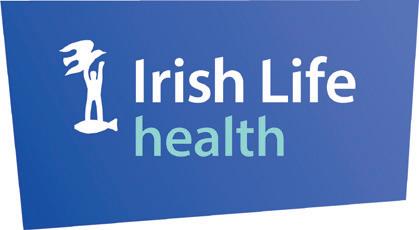
Home Instead has partnered with Irish Life Health to bring a unique new option in home care to its members.
Irish Life Health members* can now avail of up to 10 home care visits from a Home Instead CAREGiver when they are discharged from hospital, through its new Home Recovery Benefit.
If you are a member of Irish Life Health, we’ll explain how this works at your free, no-obligation care consultation.
* Please first check the Irish Life Health ‘Am I Covered?’ tool in your online member account to see if you have access to the Home Recovery benefit


























































22 ESSENTIAL GUIDE TO AGEING WELL 2 5 Community Services Lifestyle 3 Home 4 Nutrition 73 Healthy Diet 75 Chicken and Vegetable Casserole 76 Dietary Guidelines 77 Improving Bowel Health 79 Poor Appetite or Weight Loss 80 Cooking Under Pressure 81 Tips for eating for people living with dementia 84 Jean Gilvarry, Care Manager on home care 88 Health Services 89 Day Centres 90 Public Health Nurses 90 Home Support Services 92 Housing Support 93 Social Housing Options 94 Household Management & Security 95 Difficulty Paying Fuel Bills 96 Training 98 Consumer Directed Home Support 99 Transport 54 Looking After Yourself 55 How to Use a Computer 56 Cultural Companions 58 Free travel pass 59 Getaways 60 Volunteering 61 Support Groups 64 Handy Hacks 66 Kitchen Gadgets 67 Bathroom Essentials and Outdoor Tools 68 Living Room Aids and Bedroom Gadgets 69 General Helpers 70 Get Mobile 1 Health & Wellbeing 27 Avoid a Health Crisis 28 General Health Tips 29 Preventing Senior Hospitalisation 30 GP Out-Of-Hours Service 31 Mobility & Avoiding Falls 34 Managing Medication 37 Vaccines 40 Foot Care and Hearing 42 Eye Care 43 Dental 44 Caring for the Caregiver 45 Feel Like Yourself Again 46 Caregiver Teresa Booker on making a difference 49 Training for Carers 70 Get Mobile














































artefact No {24,657} every single object has an incredible story to tell www.facebook.com/countymuseumdundalk Jocelyn Street, Dundalk, A91 EFY9 +353 (0) 42 93 92 999 artefact No {14,127} artefact No {7,856} for the complete story come visit us
6 Care Options 103 Home Care 104 Live-in Care 105 Home Instead 106 A HSE-approved care provider in every county 110 Alzheimers and dementia care 114 Nursing Home Care

7 Allowances & Entitlements 122 Early Retirement 123 Jobseeker’s Benefit & Jobseeker’s Allowance 124 Back to Education 126 State Pension (Non-Contributory) 128 State Pension (Contributory) 131 Carer’s Allowance 135 Carer’s Support Grant 136 Carer’s benefit 137 Tax Implications
8 141 Planning in Advance to Safeguard yourself in the Future 148 The Decision Support Service 162 Leinster 164 Munster 165 Connacht & Ulster 166 Useful






Home Instead Editors
Deirdre Donaghy, Tom Foster & Richard Mullins
Creative Director: Jane Matthews
Sales Director: Diarmaid Lennon






Managing Director: Gerry Tynan
Production: Claire Kiernan
Published by:
Ashville Media Group. Unit 55 Park West Road, Park West, Dublin 12.
Tel: +353 1 432 2200





Fax: +353 1 676 7100

Email: info@ashville.com, Web: www.ashville.com.






In association with:
Home Instead, 305 Q House, Furze Road, Sandyford Business Park, Dublin 18
Tel: 1800 911 855 Web: HomeInstead.ie




24 ESSENTIAL GUIDE TO AGEING WELL 9
Opinions or comments are not necessarily those of Ashville Media Group or Home Instead unless otherwise stated. While every effort has been made to verify the contents of this guide, no responsibility can be taken for errors or omissions. Financial & Legal Home Instead Local Offices
ABOUT LONGFORD:




Longford is located centrally in Ireland’s Hidden Heartlands and is rich in history and culture. Do you want to discover new places to explore? Look no further and get planning ahead and visit some of the following:



WHY CHOOSE LONGFORD?









• The ancient bog road built in 148B.C. at Corlea Trackway Visitors Centre, Kenagh, older than the pyramids!
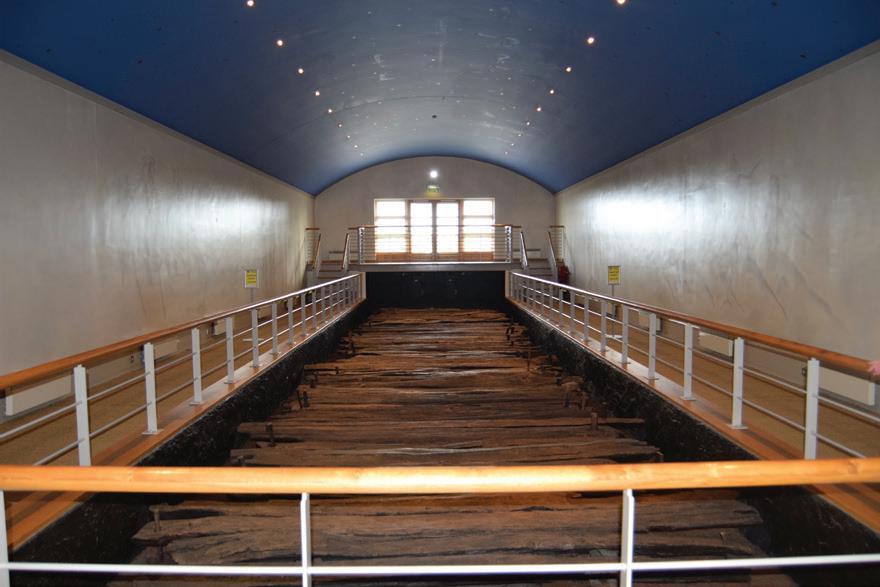
• The Maria Edgeworth Literary Centre, Edgeworthstown built in an old schoolhouse dating back to the 1800’s and a must for history and literary lovers.

• The state-of-the-art Knights & Conquests Heritage Centre, Granard – learn about the Norman history of the town and its roots with Micheal Collins.


• Call in to the iconic St. Mel’s Cathedral which was damaged extensively in the Christmas Day fire of 2009 and reopened for services on Christmas Eve 2014 after a huge restoration project.


• Make a day of it with a class at the award-winning Fiona Egan Cloughan Farm & Cookery school in Abbeyshrule.

• Fancy a boat trip, why not try out the Access for All boat in Lanesborough, the first of its kind in the country for people with disabilities or all abilities.

So come discover Longford, Ireland’s Hidden Gem!

CALL: 043 334 3509 OR VISIT WWW.LONGFORD.IE
Royal Canal Greenway, Ballybrannigan Harbour, Ballymahon © Dympna Reilly
Corlea Trackway Visitors Centre, Kenagh © Dympna Reilly
Your Health Matters
Mater Private Network can help you stay well, with new locations nationwide and extended opening hours.

Exceptional care, from people who care.
Our nationwide locations: Eccles St, Dublin · Cherrywood · Northern Cross · Cork Limerick · Drogheda · Navan · Mullingar


www.materprivate.ie





Mater Private Network
Health & Wellbeing
Prevention is better than cure – help avoid a health crisis by looking after yourself
Home Instead strongly believes that prevention is better than cure. Many people become hospitalised for avoidable reasons, and we have a vast bank of resources for families and their loved ones, aimed at preventing injuries or unnecessary hospital stays.
As we see in Chapter 1, simple actions such as looking after your general health, keeping mobile and active, getting the right vaccinations and having regular health and dental check-ups can help ensure we stay out of hospital and in our homes for as long as possible.
Maintaining good health and wellbeing is also important for family carers, who often become so focused on the needs of their loved ones that they end up neglecting their own. You should look out for physical and emotional
signs of caregiver stress and take action to reduce them.
Of course, no matter what we do to try to prevent it, there’s still a chance we might end up in hospital, through accident, injury or simply the natural ageing process. Relationship-based care can greatly assist with recovery.
When you’re discharged, Home Instead’s CAREGivers can help you or your loved one to recover in your own home, by working with your discharge planners, ensuring that the correct recovery instructions are carried out, helping you to manage your medication and ensuring that follow-up visits are attended.
This chapter of the Guides gives tips and advice on how you can stay independent by managing your health.
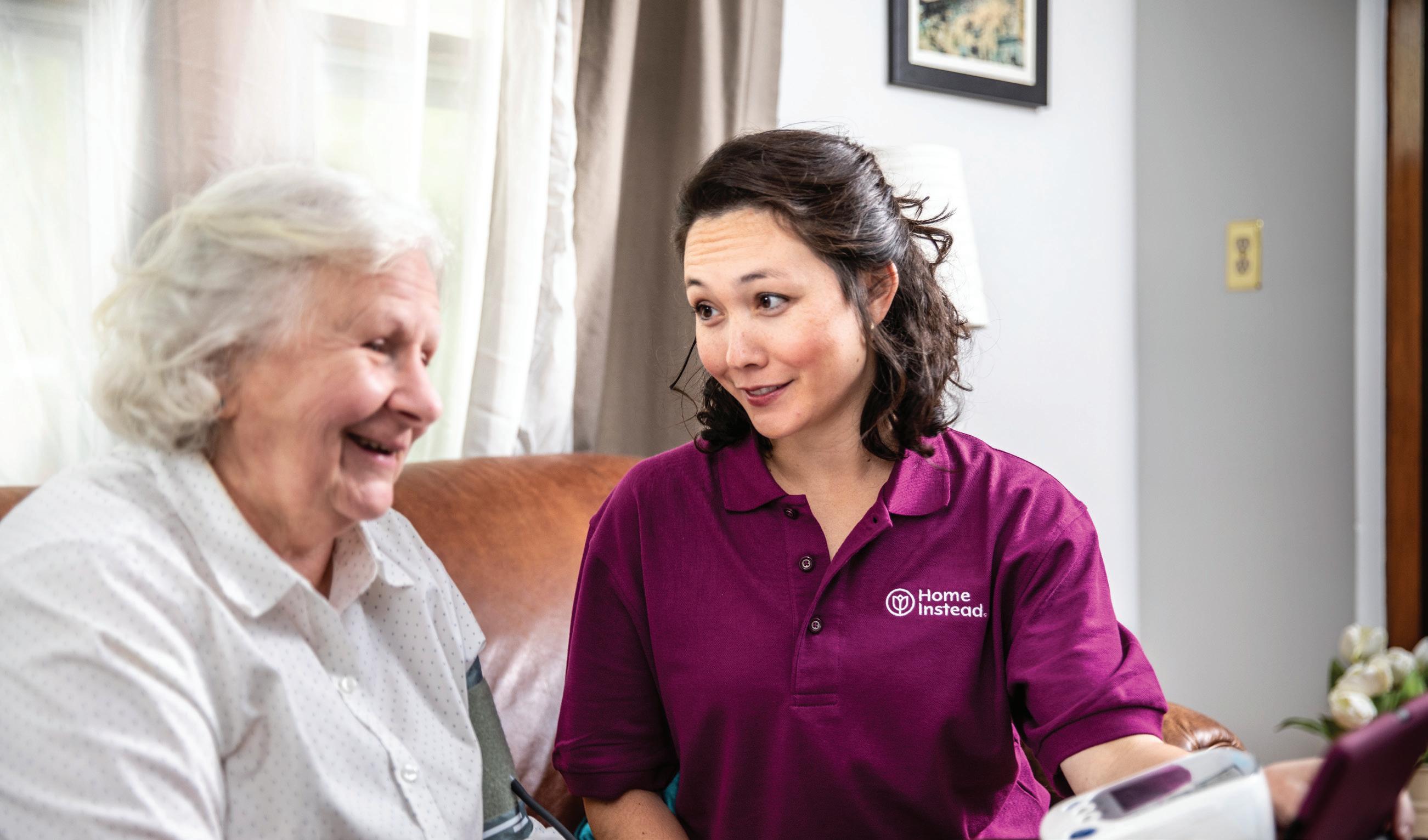
27
“Helping
and
to a
reablement
clients regain confidence in performing tasks independently
safely is key
successful
programme.”
ESSENTIAL GUIDE TO AGEING WELL
Health & Wellbeing














General Health






























Here are some top tips from Home Instead to help keep you healthy and independent: Get blood pressure and cholesterol checked regularly.






Try to include some form of physical activity (30 minutes) most days of the week.











Take time when shopping for healthy foods.











Aim to have three regular meals a day.

Eat a wide variety of foods - meat, fish, eggs, beans, nuts, fruit, vegetables, pasta, rice, potatoes, cheese, milk, yogurt - and allow yourself a treat occasionally.



Be aware of how much fluid you are drinkingas we age, our sense of thirst can reduce so it is important that you are aware of this and remind yourself to drink.






Be aware of your weight - if you find your appetite has decreased or you are losing weight and are unsure why, seek medical advice.












Remember all foods contain different nutrients so it is important that we have variety in our diet to ensure we get all the nutrients our bodies need.

Aim for at least five portions of fruit and vegetables each day. Fruit and vegetables are full of vitamins, minerals, antioxidants and fibre which can reduce your risk of disease, stroke and help prevent constipation.





● Avoid adding salt to food.



● Quit smoking.







28
ESSENTIAL
TO
GUIDE
AGEING WELL
Preventing
Senior
Hospitalisation
Research conducted by Home Instead indicates that the problem of preventable hospitalisation of ageing adults is viewed as very to extremely serious by 81.5% of the Irish nurses surveyed. Those same nurses estimate that nearly half of senior hospitalisations (48.5%) can be prevented with early detection and intervention. In addition, the study indicates that families play a critical role in keeping their ageing loved ones out of hospital, with 96.6% of nurses saying that the role family plays is as important as the role played by health care professionals. Delaying or avoiding medical care is the most common action by older people that puts them at risk of needing hospitalisation. In addition, not following medical orders can be a clear predictor of potential risk. Survey results, overall, indicated that unnecessary hospitalisation of older people puts them at great risk. Involvement of families is key to minimising these events.
To provide families with resources to minimise the major risk factors and to play an active role in hospitalisation prevention, Home Instead has created the 5 Ways to Prevent Senior Hospitalisations guide. The guide focuses on the key actions to keep ageing adults safe at home and out of hospital through proactive and preventative measures. It advises readers to follow doctor’s orders, not ignore symptoms, reduce risks of falls and accidents, stay active physically and mentally and to maintain a healthy diet. For more information, contact Home Instead on 1800 911 855 for a copy of the free guidebook, 5 Ways to Prevent Senior Hospitalisations.
Health & Wellbeing
Recovery Time
Returning home after a doctor discharges you is a happy time but it is also a critical turning point in your recovery process. Often, patients are re-admitted less than a few weeks after discharge. Mistakes made in medications, missed follow-up medical appointments, poor nutrition and dehydration, and lack of safety preparation in the home are the issues that can lead to readmission. Even if you have family and friends, there may be some aspects of your recovery plan that you might need extra help with. Getting help from Home Instead CAREGivers to provide -home care can mean less stress for you and an easier and quicker transition to full recovery.
Read about Home Instead Fairview’s reablement programme on page 32
CAREGivers can help with:
● Discharge Co-ordination - Home Instead Care Managers, with input from CAREGivers, will work with your hospital discharge planning staff to develop a detailed plan of care and instructions that will be used by family and other home caregivers to ensure you have a plan to support a successful recovery.
● Medication Management - Home Instead CAREGivers will work with you to help organise and track pills and other medications to make sure that they are taken as directed and to help prevent adverse effects.
● Follow-Up Doctor Visits - Home Instead CAREGivers can make sure you keep track of and attend follow-up medical appointments, including providing or arranging transportation to the visits.
29
ESSENTIAL GUIDE TO AGEING WELL
Health & Wellbeing
● Nutrition Management - Home Instead CAREGivers can assist with meal planning, shopping and preparation to ensure you are getting wholesome, healthy foods and plenty of hydration that will assist you with recovery.

● Warning Signs Monitoring - Home Instead CAREGivers are familiar with, and trained to watch for warning signs and take appropriate action to help prevent complications and readmissions.
● Record Keeping - Home Instead CAREGivers are also trained to track specific data on your progress to share with your medical providers. This is important for both tracking progress and to help update, if necessary, the original discharge plan of care.
GP Out-Of-Hours Service
This is an urgent medical service that doctors and nurses provide outside normal surgery hours. If you have a medical card or a GP visit card, the service is free. If you don’t have a card, the doctor will charge a fee for the visit. However, you don’t have to pay for medical advice that nurses or doctors give over the phone.
Call the HSE Information Line 1800 700 700 to find out the opening hours and phone number for the GP out-of-hours service in your area.
30
ESSENTIAL
GUIDE TO AGEING WELL
Mobility
It is a sobering statisticaccording to St James’s Hospital, falls are the leading cause of injury-related visits to Irish A&E departments and almost half of all hospital visits of the over-65s are the result of a fall. One in six falls lead to injury, with hip fracture being the most serious. Half of all people suffering a hip fracture never regain their previous level of independence, a quarter die within six months, and almost a quarter are discharged to a nursing home. Also, falls and blackouts can be non-specific presentations of chest problems, kidney infection, heart attack or stroke. A fall is a warning sign and is considered a symptom of other potential health issues. As people age they may feel the effects of natural ageing. They could experience stiff joints, poor eyesight, and decreased muscle strength, along with poor balance. These effects, along with chronic conditions, can increase their potential risk of falling.
Inactivity
One potential problem for older adults is inactivity. Lack of exercise can lead to weak legs and this factor can increase the older adult’s potential chances of falling. Exercise programmes can help to increase strength and improve balance, making falls less likely.
Health & Wellbeing
Avoid Falls
Think about your environment and consider these tips:

● Remove clutter from pathways.
● Arrange furniture to make rooms easy to navigate.
● Allow enough space to walk around furniture.
● Remove or secure throw rugs.
● Wear shoes with non-slip soles.
● Avoid walking in socks/tights on wood floors.
● Organise the house so items used most frequently are at waist level, minimising the need to bend or climb.
● Apply high-contrast coloured tape to the top and bottom of stairs and thresholds.
● Use a night light and/or leave a light on in the bathroom and stairways to help reduce the risk of falls in the dark.
● Use handrails.
● Allow plenty of time for activities and tasks.
31
ESSENTIAL GUIDE TO AGEING WELL
Relationship-based care
Home Instead Fairview runs a very successful reablement programme for clients who are recovering from a hospital visit.
Exercise is a fundamental component of a client’s post-operative recovery plan, as it brings about renewed focus and routine. It motivates the client and gives them a sense of ownership over their recovery. It also helps to loosen the body after a night in bed. By the end of the reablement programme, clients can often get back to the life they led prior to their operation.

Typical challenges for clients in doing exercise include a lack of motivation – or a reluctance to engage in exercise every day or more than once a day. Having a CAREGiver monitor the exercise plan gives clients great encouragement and ensures the necessary exercises are performed. Another challenge can be finding a suitable place in the home to do the exercise safely, and the physiotherapist and/or CAREGiver from the reablement team can help to organise this.
Pain along with reduced stamina can be another challenge, but this can be tailored accordingly by the physiotherapist to maximise the benefits of exercise and reduce the risk of causing further complications.
CAREGivers help to motivate the client through an appropriate exercise programme. The programme helps to build stamina, encourages independence and helps to build the muscles back up to the level they were at before the hospital stay.
The exercise programme often sets the client up for the day and focuses their mind on re-establishing their daily routine. It allows them to take back control of their life. It builds their confidence, repairs weakened muscles and fosters a positive mindset.
The CAREGiver is trained to understand the needs of the client from a recovery point of view, as well as other priorities such as getting back to handling everyday tasks e.g. paying bills, shopping and getting out and about.
CAREGiver-client communication is hugely important, especially if the client has been through a traumatic event. Reassurance and positive reinforcement that they are doing well has huge benefits in their recovery.
Helping clients regain confidence in performing tasks independently and safely is key to a successful reablement programme. Other aspects of Home Instead’s relationship-based care, such as helping to minimise/overcome problems e.g. trip hazards, manageing clients’ meals, personal care, keeping on top of housework, are also important in the success of the reablement.
The optimal outcome is for the client to be able to manage all aspects of their life in the same way as they did before their hospital stay, or as close to that as possible with any support that might be needed.
Róisín McInerney Home Instead, Fairview
ESSENTIAL GUIDE TO AGEING WELL 32
Health & Wellbeing
Go for Life
Go for Life is the national programme for sport and physical activity for older people. It is an Age & Opportunity programme that is funded by the Irish Sports Council and supported by local sports partnerships and the HSE. They have created a network of over 1,000 volunteer Physical Activity Leaders (PALs), mostly older people themselves, who regularly lead members of their groups in Go for Life physical activities. They support the work of these PALs with a small grants scheme annually and also run Fitline and the Go for Life Games.

33
ESSENTIAL GUIDE TO AGEING WELL
Health & Wellbeing
Managing Medication
All medicines, whether prescribed or bought in the pharmacy or a shop, are powerful substances that should be treated with care. It’s important to know what medicines are for, how they should be taken, and how they should be stored. This will help avoid mistakes, and make sure that medicine works as it is supposed to. The following advice will be helpful to anyone taking medication, or for those who may be assisting someone else with medicines.
Know Your Medicines
Understanding what your medication is for and how it works helps you or those who care for you ensure that medicines are taken correctly, and that mistakes are avoided. Keeping an up-to-date list of all current medicine not only helps you keep track of your treatment, but it is also helpful in the event of updating a new healthcare provider or if you are admitted to hospital. Anyone involved in your healthcare should know what medication you are currently taking. Keep a list of medicines to hand, including both prescribed and non-prescribed medicines, as even medicines you buy in the shop can be dangerous to take with other medicines or if you have certain medical conditions.
Sources of Information
Your pharmacist or prescriber can help you understand each medicine you take, how it works, how it should be taken, and what sideeffects there might be. You can also find information in the package leaflet that comes with your medicine. Avoid relying on internet information or advice from people who are not healthcare providers when making decisions about your treatment – always speak to your pharmacist, GP or other healthcare provider first.
Minding Your Medicines
Where you store your medicines is important – not only so you have easy access to them when you need to take them, but also so that they are not damaged in anyway. In general, medication is best stored away from heat and humidity, so the bathroom or the kitchen may not be the best places to keep them. You also need to make sure that any specific storage instructions are adhered to, for example, some medications must be kept in the fridge. And always remember to keep medicines out of reach of children or animals. Speak to your pharmacist about where is best for you to store your medication in your home
34
ESSENTIAL GUIDE TO AGEING WELL
Health & Wellbeing
Health & Wellbeing
Taking Your Medicines
Your medication cannot work if you don’t take it. And it’s also important it’s taken at the right time and in the right dose. There are many reasons taking medication correctly may be difficult, but speak with your pharmacist about ways to make it easier for you. Some potential solutions to common medication difficulties are listed below. But discuss any issues whatsoever with your pharmacist –they will help in whatever way possible to make managing your medicines simple and safe.
ISSUE POTENTIAL SOLUTION
Difficulty
Remembering Medicine
Running Out
● Keep an up-to-date list of all medicines and their instructions to hand
● Set alarms on a clock or phone to remind you of when you should take medicine
● Take your medicines at the same time as something else you do every day – for example, before you brush your teeth
● If you find you are running out of medicines, either some of them or all of them, it’s possible you are taking them incorrectly or not ordering them in time
● Make sure you order your medicines from the pharmacy before you run out
● If some medicines are running out before others, let your pharmacist know. It’s best to avoid confusion by having different amounts of your medicines or ordering them at different times of the month
Medicines Left Over
● If you have medicines left over before your next prescription, it’s possible you are not taking them correctly
● Always let your pharmacist know if you have excess medicines and what the reason is – it is best to avoid having too many medicines as it makes is easier to make a mistake by taking too much to avoid confusion by having different amounts of your medicines or ordering them at different times of the month
Unwanted
Side-Effects Difficulty
Swallowing
Hard-To-Read Instructions
Accessing Medicines
Confusing Instructions
● Speak with your pharmacist about any side-effects you’re worried about. It may be that they will ease over time, or that they will be helped by taking medicine at a different time or with/without food
● Do not let side-effects stop your treatment – if a medicine is too hard to take, speak with your pharmacist or prescriber about whether an alternative medicine is available
● If the size, taste, or shape of a medicine is making it too hard to swallow, it may be available in a different form or size
● Speak with your pharmacist about swallowing difficulties – do not crush or cut tablets without checking with the pharmacist first as this can change how the medicine works
● If poor eyesight means you have trouble reading the instructions for your medicine, ask your pharmacist to print your instructions in larger letters
● If you find it difficult to open medicine containers, ask your pharmacist what other types of containers are available – a bigger size or a different lid can sometimes make all the difference
● If you are not clear on the instructions that come with your medicine, or if you have a lot of medicine to take at different times, ask your pharmacist to simplify things for you by changing the language used or by providing a list of medicines and times they should be taken
Health & Wellbeing
Taking Other Medicines
Always check with your pharmacist or your prescriber about taking other medicines, even herbal remedies or vitamins. There may be risks in combining non-prescription remedies with prescribed medicines. And some products should be used with caution if you have certain medical conditions, for example, cold & flu remedies can be dangerous for people with high blood pressure. Ask your pharmacist before starting any new remedy or medicine.
Hospital Stays
If you are admitted to hospital, it is best to bring all your medication with you, or at least have your medicine list available to hospital staff. This will enable them to provide the necessary care you need, and make sure you have all the medication you require during your stay. Remember to let hospital staff know about all medicines you take, including non-prescription products, herbal remedies or vitamin supplements.
Assisting Others With Medication
How Else Can Your Pharmacy Help?
Your community pharmacy team is on hand to help you or someone who cares for you with any aspect of your medicine. Check with your pharmacy about how else they can help you better manage your health. Many pharmacies will provide some or all of the following services:
● Collection of Prescriptions from prescriber
● Home Delivery of Medicines or other pharmacy products
● Medicine Dosage Systems
● Phone or Online ordering
● Phone Consultations
● Printed lists of medication and instructions
● Vaccinations
● Administering injectable medicines
● Health Screening
● Living Aids
● Demonstration of medical devices, for example inhalers, glucometers, or blood pressure monitors
● Medication Review and Advice.
Anyone providing care to others with medication should follow all of the guidance provided here. If you are a carer for someone who takes regular medication, speak with the pharmacist or prescriber to ensure you understand all the necessary instructions and precautions. In general, following the ‘5 Rights’ of medicine administration is the best approach:
1.Right Person – check the medicine is for the person about to take it
2.Right Medicine – check you have the right medicine and that you fully understand the instructions
3.Right Dose – check you have the right amount of tablets or amount of medicine
4.Right Time – make sure you are giving the medicine when it is supposed to be taken
5.Right Route – make sure the medicine is being given as instructed, for example, is it oral (by mouth) or is it topical (applied to the skin)?
36
ESSENTIAL
TO
GUIDE
AGEING WELL
Vaccinations
Seasonal Flu Vaccine

Influenza (flu) is a highly infectious acute respiratory illness caused by the flu virus. Flu affects people of all ages, with outbreaks occurring almost every year. Flu symptoms come on suddenly with a fever, muscle aches, headache and fatigue. In some instances, flu can be severe and can cause serious illness and death. Breathing complications can develop, including pneumonia and bronchitis, to which older people and those with certain chronic medical conditions are particularly susceptible. Some people may need hospital treatment and a number of people die from flu each winter. Each year the seasonal (annual) flu vaccine contains three common flu virus strains. The flu virus changes each year. This is why a new flu vaccine has to be given each year. The best way to prevent flu is to get the flu vaccine. The vaccine is recommended for: all those 65 years of age and over; those with longterm medical conditions, e.g. heart or lung disease; all frontline healthcare workers, including carers. Vaccination should ideally be undertaken in late September or October each year. Flu vaccines have been used for more than 60 years worldwide and are very safe. Flu vaccine contains killed or inactivated viruses and therefore cannot cause flu. It does, however, take 10 to 14 days for the vaccine to start protecting you against flu. The vaccine and consultation are free to those within the recommended groups who have a ‘Medical Card’ or ‘GP Visit Card’. GPs charge a consultation fee for seasonal flu vaccine to those who do not have a ‘Medical Card’ or ‘GP Visit Card’.
Pneumococcal Vaccine
You should also get the pneumococcal vaccine if you have not had it before. It protects you from pneumonia. You can get this at the same time as your flu vaccine.
Covid-19 Vaccine
Getting vaccinated will offer you protection from serious illness with Covid-19 (coronavirus). Ensure you keep up-todate with public health advice regarding vaccinations and booster doses.
For details about vaccinations, along with answers to any questions you may have, visit www.HSE.ie
37
Wellbeing ESSENTIAL GUIDE TO AGEING WELL
Health &
Ahead simplifi es and demystifi es advance care planning in Ireland
Irish Hospice Foundation (IHF) recently expanded and updated Think Ahead – its comprehensive advance care planning toolkit.
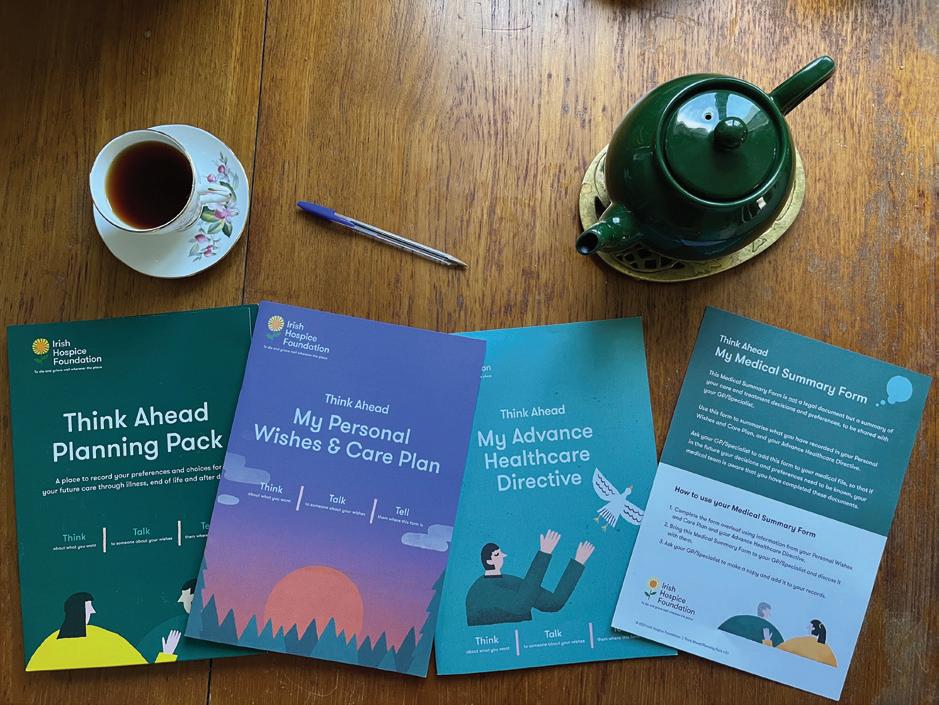
Think
Ahead
- what is it?
Think Ahead Planning Packs are easy to read guides for patients, their families, and caregivers to start putting their affairs in order for their end of life. With Think Ahead, people can make their care wishes known, appoint somebody to act as their healthcare advocate, keep track of important documents, and more.
In the 10 years since Think Ahead was initially launched, it has become a key advance care planning resource for people in Ireland. Planning ahead can reduce stress or anxiety people may feel when facing dying. Using Think Ahead can also reduce conflict between family members. Over 100,000 people have already received a version of Think Ahead through their GP, at events, or by ordering from IHF.
What’s new in the revised and expanded Think Ahead pack?
My Personal Wishes and Care Plan booklet asks people completing the forms how they would like to be cared for, in the face of illness or injury. They can record where they would prefer to be - at home, in hospital, or hospice; what is important to them -such as having visitors, spiritual or religious beliefs, favourite music; as well as how to care for them. This
document also allows patients to keep track of legal and financial information, and for the courageous - what type of funeral and after-death care they would prefer.
My Advance Healthcare Directive booklet guides patients in how to refuse or request treatment for a later date, if some illness or injury means they cannot express their choices and they can appoint a trusted person to make healthcare decisions on their behalf.
Medical Summary Form/leaflet: Patients can summarise what has been detailed in their Think Ahead documents once completed and ask their healthcare team to make a copy for their medical file. This ensures that if the time comes, everybody who needs to know is already aware of a patient’s recorded choices. All enclosed in a handy folder for safekeeping.
Commercial Feature ESSENTIAL GUIDE TO AGEING WELL 38
Think
“I am delighted to be involved in supporting such an important initiative with IHF. Starting a conversation about end-of-life care and dying isn’t always easy but it’s so important for us all to make our wishes known on both our health care and personal affairs.”
To learn more:
During the year, IHF is taking Think Ahead on roadshows around Ireland where people can learn how to use Think Ahead packs and start conversations with their loved ones.
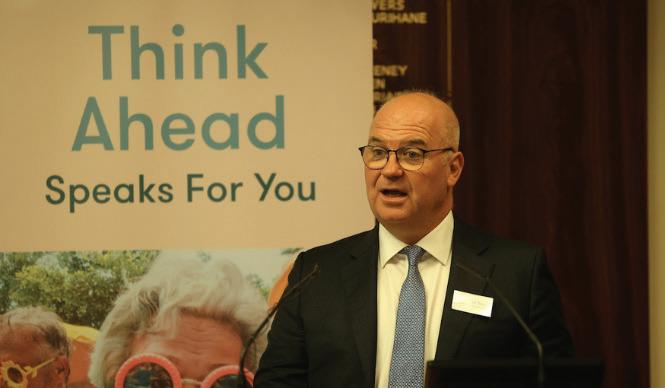

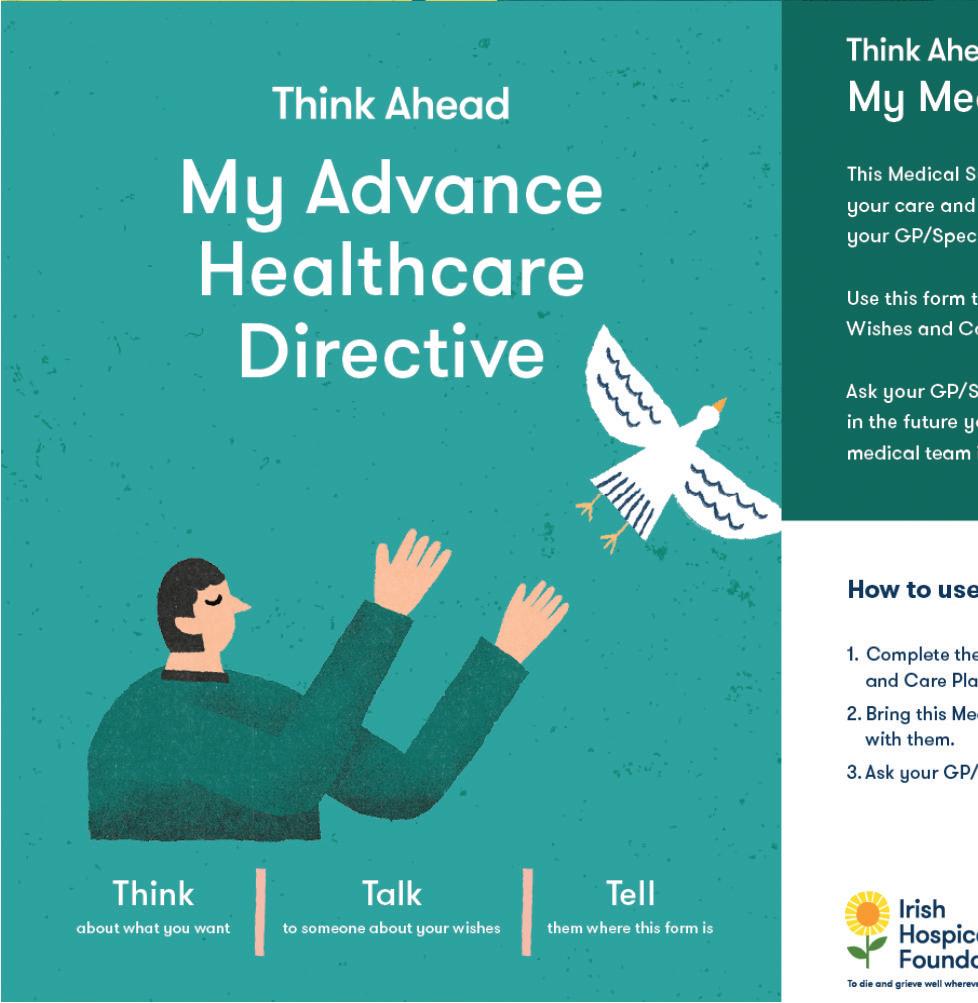

Valerie Smith, IHF’s Public Engagement Lead knows talking about dying can be hard, “but talking about it can make dying and death less fear-filled, and a better experience for everyone.”
For information on roadshows and packs:
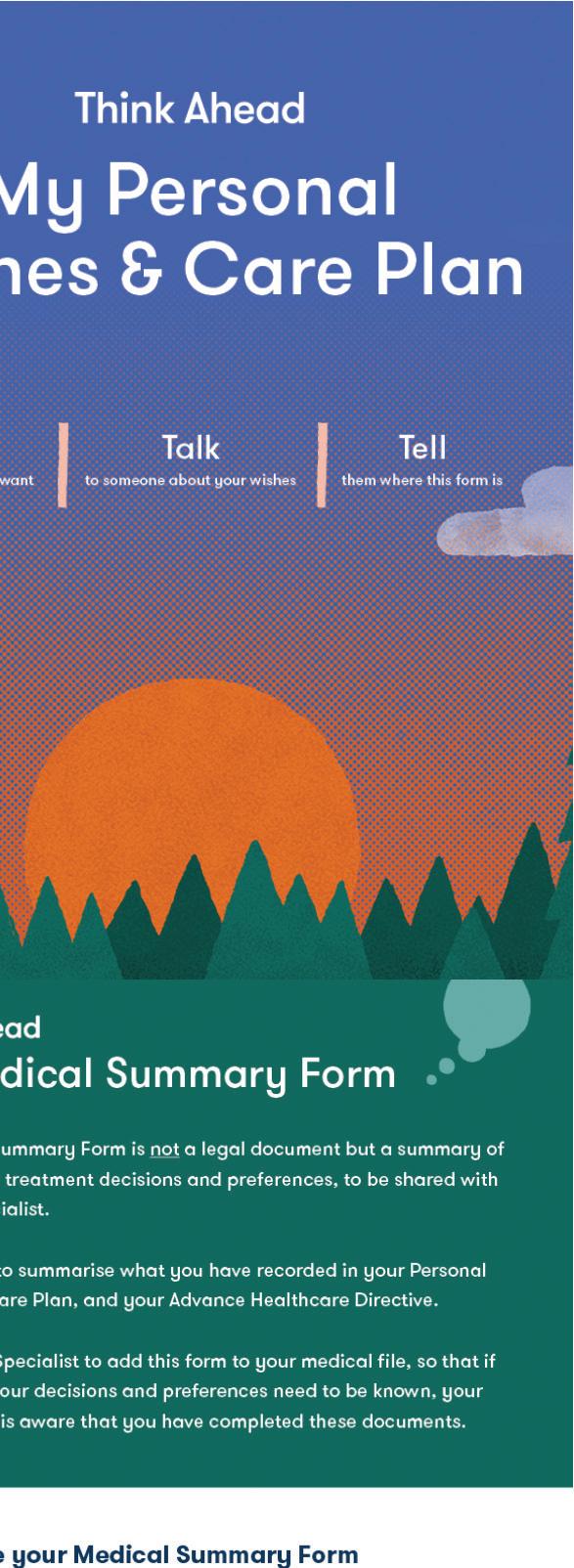
• Visit: www.thinkahead.ie
• Call IHF on (01) 679 3188
• Email: thinkahead@hospicefoundation.ie
For training for your community or workplace, contact Valerie Smith, at valerie.smith@hospicefoundation.ie or call (01) 963 1161
Commercial Feature ESSENTIAL GUIDE TO AGEING WELL 39
Dr Tony Holohan, IHF Board Member, speaking at IHF launch of Think Ahead Advance Care Planning Toolkit
Health & Wellbeing
Foot Care
The most important element of good foot care at any age is routine inspection. If, upon inspection, you notice any signs of discoloured nails, blisters, cracked skin, bleeding sores or wounds it can be an indication that an infection is present or soon to occur if proper care is not sought. A number of conditions such as heel spurs, calluses and infections can be attributed to poorly-fitted shoes. Circulation within the body can also slow down during the ageing process. This can lead to complications, as it results in many individuals not feeling their feet as well as they used to and not being aware when foot problems occur. It is recommended that older individuals regularly keep their feet elevated in an attempt to maintain appropriate foot circulation. Sitting with legs crossed for a lengthy period of time should also be avoided in an attempt to improve circulation. In addition to this, people who have diabetes or circulation concerns could suffer severe consequences if their feet and toenails are not properly maintained. Toenails should be kept reasonably short to reduce the risk of them breaking, snagging on clothing, or scratching skin open accidentally. It’s also important to look for ingrown nails or hangnails and, if found, they should be treated by a professional. Diabetics or older individuals who don’t implement a strict foot care routine risk developing serious problems that can lead to gangrene and amputation. Untreated ulcers and infections can also lead to gangrene, while untended cuts, dry or cracked feet and fungus under the nails can lead to ulcers and infections.
Hearing
Being deaf or hard of hearing can have a huge impact on your daily life, making itself known both in social situations and at home. And although hearing loss can be caused by exposure to constant or loud noise, ageing also has a huge part to play in your hearing. Ranging from mild hearing loss to total deafness, it’s important to contact your GP if you experience any difficulties when hearing or notice any symptoms that may be a result of hearing loss. They may conduct a hearing test in order to figure out what is causing the loss in hearing, and how best to treat it. Symptoms of hearing loss include turning up the volume on the TV or radio to the discomfort of other listeners, not hearing the phone or doorbell ring, having to ask people to speak louder during conversation, and being unable to hear conversations properly when in a group.
Hearing Aids
If you have a Medical Card, then you are entitled to a free hearing aid. If not, you still may get funding for your hearing aid under the Treatment Benefit Scheme through the Department of Social Protection. If you have been recommended a hearing aid it’s important to find one that best suits you. Your hearing aid will be either in the ear or behind the ear, depending on your needs, lifestyle and budget.
Self Treatment
Not all hearing loss requires a hearing aid, and there are numerous ways to help you cope if your hearing is deteriorating. Amplifiers can be attached to telephones to increase the volume and there are special telephones and doorbells available to buy which flash to indicate they are ringing. For more information on these, contact your Local Health Office.
40
ESSENTIAL GUIDE TO AGEING WELL
S easonal Flu Vaccine
Influenza (flu) is a highly infectious acute respiratory illness caused by the flu virus. Flu affects people of all ages, with outbreaks occurring almost every year. Flu symptoms come on suddenly with a fever, muscle aches, headache and fatigue. This is different from a cold which is a much less severe illness compared to flu. A cold usually starts gradually with a sore throat and a blocked or runny nose. Symptoms of a cold are generally mild compared to flu.
Flu is predictable. In some instances, flu can be severe and can cause serious illness and death. Serious breathing complications can develop, including pneumonia and bronchitis, to which older people and those with certain chronic medical conditions are particularly susceptible. Pregnant women may need hospital treatment and hundreds of people die from flu each winter.
This year the seasonal (annual) flu vaccine protects against four common virus strains. The flu virus changes each year this is why a new flu vaccine has to be given each year.
The best way to prevent flu is to get the flu vaccine. The vaccine is recommended for:
• all those 65 years of age and over
• those with long term medical conditions e.g. heart or lung disease
• all frontline healthcare workers including carers
Vaccination should ideally be undertaken in September or early October each year. Flu vaccines have been used for more than 60 years worldwide and are very safe. Flu vaccine contains killed or inactivated viruses and therefore cannot cause flu. It does, however, take 10-14 days for the vaccine to start protecting you against flu.
The vaccine and consultation are free from your GP or Pharmacy, to those within the recommended groups.
More information is available from your GP, Public Health Nurse or pharmacist. WWW.HSE.IE/ flu provides details about flu vaccination, along with answers to any questions you may have about flu.

Pneumococcal vaccine
If you are over 65 or have a long term medical condition you should also ask your doctor about the pneumococcal vaccine which protects against pneumonia, if you have not previously received it. You can get the flu vaccine at the same time as the pneumococcal vaccine.
ESSENTIAL GUIDE TO AGEING WELL 41
Commercial Feature
Health & Wellbeing
Eye Care
Eyesight usually begins to deteriorate after the age of 50. Here are some common eyesight concerns and how to treat them.
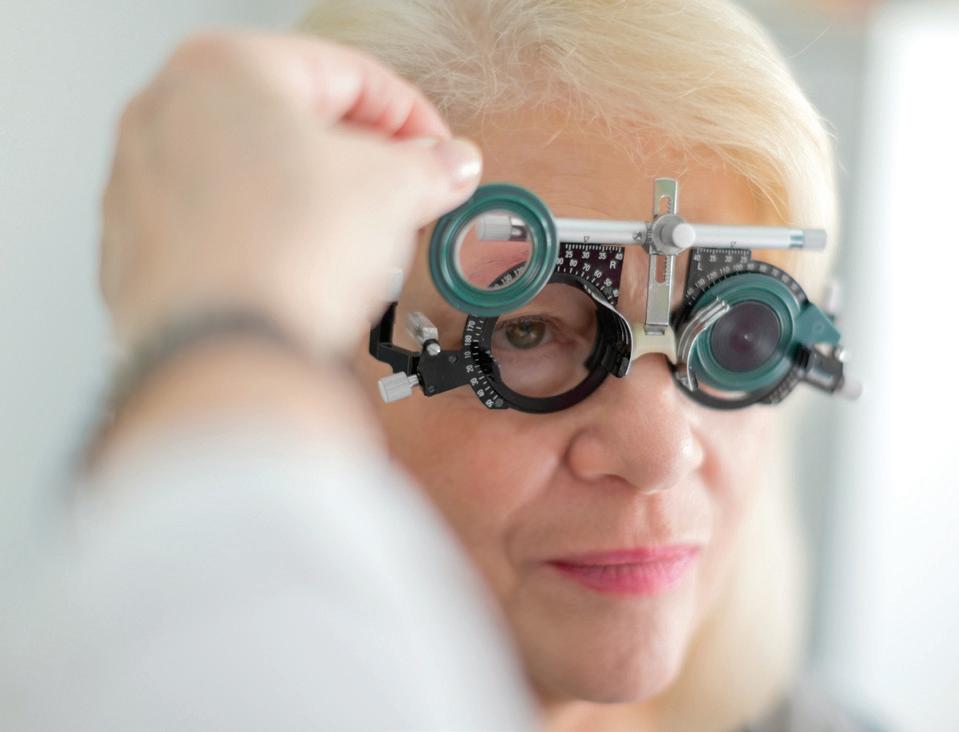
Common Concerns
● Cataract A cataract is a cloudiness on the lens of the eye which can block light and cause a loss of vision. Sometimes a change of eyeglasses will be enough to rectify the discrepancies in your vision. However, if the condition interferes with activities in everyday life, such as reading, driving or watching television, then surgery might be required. The operation isn’t serious and patients are usually discharged from the hospital the same day.
● Glaucoma is a condition that damages your peripheral vision through pressure building up in the eyeball. This pressure damages the optic nerve and can cause a loss of sight. It’s best to consult with your GP or eye-specialist if you notice your peripheral vision deteriorating. Your GP or eye-specialist will give you medicated eye drops to control chronic glaucoma.
● Age-Related Macular Degeneration (AMD) is the leading cause of vision loss in people over the age of 50. The disease can sometimes progress slowly, having no immediate impact on everyday life, or it can develop quicker, causing damage to the macula, the area of the eye that allows for sharp, central vision. There is no treatment for early AMD,
but to keep tabs on your condition check-in with your optician once or twice a year. A daily vitamin and mineral supplement will also help to slow the progress of AMD. Laser surgery, injections and photodynamic therapy can be used to treat later stages of AMD. Consult with your GP or eye specialist to figure out which treatment is best for you.
● Diabetic Retinopathy This occurs when diabetes damages the blood vessels in your eye, causing them to leak fluid which causes vision impairment and swelling in the eye. If left untreated it can cause blindness. If you are diabetic, see your ophthalmologist regularly to manage and treat any changes in the retina. Laser treatment can be used to correct retinopathy, but it’s best if it is diagnosed as early as possible.
42
ESSENTIAL GUIDE TO
WELL
AGEING
Dental
Failure to maintain oral and dental health during the later years in life can have a serious knock-on impact on an individual’s general health. If you still have natural teeth, always brush your teeth twice a day for two to three minutes. Flossing once daily can help remove a buildup of plaque and any remaining food left in between the teeth. Use a soft/medium toothbrush with a fluoride toothpaste. It is helpful to brush using small, circular motions and short back-and-forth strokes, ensuring that you take the time to brush gently along the gum line. People with arthritis, or other conditions that limit hand function may find it difficult to engage in daily oral hygiene practices due to limited grip strength and dexterity. A toothbrush with a larger handle can be helpful in overcoming this problem, along with securing the toothbrush handle to the hand with a wide elastic band. Diet can also
play a significant role in a dental care routine. Whole fruits and sugar-free snacks are an excellent addition to any diet that is concerned with limiting the damage food can cause to the teeth. Attempt to limit sweets, chocolate, biscuits and sugary drinks as much as possible. If you have dentures, these should be cleaned daily with soap/denture cleaning paste and a toothbrush or soft nailbrush. When dentures are out of your mouth, place them in cold water to prevent warping and ensure you soak them in specialist denture cleaning solution. Partial dentures should be removed after eating and rinsed under cold water. Even if you have no natural teeth, it’s still a good idea to visit the dentist once a year. Not only do dentures routinely have to be refit to ensure that they are suitable, your dentist can also check for signs of oral cancer and other medical issues associated with the mouth and throat.

43
ESSENTIAL GUIDE TO AGEING WELL
Health & Wellbeing
Health & Wellbeing
Caring for the Caregiver
When you are a caregiver it is easy to forget about your own needs. However, as difficult as it might seem, you need to pay attention to yourself too. Physical symptoms can affect everything from sleep to our ability to even carry out the tasks involved in caregiving. The emotional experiences involved with providing care can strain even the most capable person. The resulting feelings of anger, anxiety, sadness, isolation, exhaustion, and then guilt for having these feelings, can exact a heavy toll. It’s important to recognise the signs of caregiver stress and take action to limit them. And remember, if you feel that you need assistance on a temporary or permanent basis, Home Instead can help.
Physical Signs of Caregiver Stress

● Disturbed sleep.
● Back, shoulder or neck pain, muscle tension.
● Headaches.
● Stomach / digestive problems (upset or acid stomach, cramps, heartburn, gas, irritable bowel syndrome, constipation, diarrhoea).
● Weight fluctuation (gain or loss).
● Loss of hair.
● Fatigue.
● High blood pressure, irregular heart palpitations.
● Chest pain.
● Perspiration.
● Skin disorders (hives, eczema, psoriasis, tics, itching).
● Periodontal disease, jaw pain.
● Reproductive problems / infertility.
● Weakened immune system suppression; more colds, flu, infections.
Emotional Signs of Caregiver Stress
● Anxiety.
● Depression.
● Moodiness/mood swings.
● Butterflies.
● Irritability, easily frustrated, road rage.
● Memory problems and lack of focus.
● Feeling out of control.
● Increased substance abuse.
● Phobias.
● Argumentative.
● Feeling of isolation.
● Job dissatisfaction.
Noticing the way stress affects you physically is sometimes easier than seeing how it is affects you emotionally. You may want to think about how your immediate family, spouse or children are reacting to you. If you are more grumpy than normal they may let you know or may just avoid you altogether. Consider talking with a healthcare professional that can help you to evaluate your situation. Remember, it is not selfish to focus on your own needs and desires when you are a family caregiver. In fact, it is important that you take initiative with your own physical and emotional care, or else it could make you less useful to the person for whom you are caring.
44
ESSENTIAL GUIDE TO AGEING WELL
Health & Wellbeing
Feel Like Yourself Again
Caregivers who insist on time for themselves within a busy life have more energy and are better able to weather stress. And that allows them to be more reliable to those who depend on them. Most caregivers like the idea of ‘me’ time but are convinced they can’t find it. You can! Start small, and dream big.

● Schedule it: Don’t postpone personal time, making it an afterthought or reward after you finish the day’s business. Instead, include yourself in your must-dos when you plan the day, ideally, early in the day so the time doesn’t get overlooked. Plus you’ll be better able to face the day if you’re fully energised. Pencil in even 15 minutes daily, for starters - literally write it on your planner or daily todo list. Commit to carving this same time out every day. Life coaches say it can take up to three weeks for a new habit to take hold. But make the break feel like an indulgence. That means no washing up or paying the bills. Think of something you enjoyed when you had more time. Maybe it’s savouring a cup of tea (in a fine china cup) and a new paperback.
● Say “no”: Not all requests are draining, of course. If you’re tempted, get in the habit of replying, “I’m not sure; let me get back to you.” Don’t answer immediately - give yourself a cushion of time to reflect privately on whether the request will enhance your life or detract from it. But also practice building up your “no” muscle. The more you express regrets or bow out, the easier it becomes the next time.
● Create a personal space in your home, just for you. It could be a whole spare bedroom or a desk and comfy chair in a corner. Decorate your “me zone” with meaningful mementos - a comfy quilt, your favourite photos. Having your own personal retreat ensures that you will be more likely to head there to do something just for yourself - watch a film, video call an old friend, run through some yoga moves, take a power nap. Ask others in the house to respect your privacy when you are in your personal space. (It doesn’t always work, but it never hurts to ask!)
● Buy time: Don’t underestimate the value of outsourcing. Yes, it means spending money. But your time carries a price tag, too - and your health and peace of mind are priceless. Look into hiring professional CAREGivers from Home Instead to manage your loved one’s care needs. Resist the excuse that nobody can care as well as you can; this may well be true, but many paid professionals do a wonderful job. The trick is to apply the time you buy toward yourself, not anything or anyone else. If a professional CAREGiver or a sibling spends time with your loved one on Saturday mornings, go out to do something personally meaningful during that block of time - this means don’t just run errands.
45
ESSENTIAL GUIDE TO AGEING WELL
Home Instead Westmeath CAREGiver Teresa Booker shares her heart on the ins and outs of making a

For Home Instead Westmeath CAREGiver Teresa Booker, her job is all about making a difference to people’s lives. “It’s never a job for the sake of doing something,” she says. “It’s something that I just really love doing.”
Teresa, from Gaybrook, Mullingar, has worked for Home Instead for 4 years now, and describing her working day, she says it is rewarding for her, and helpful to those in her care.
“Every CAREGiver has different hours, but my working hours start in the morning time. Every client I go to has an individual care plan to meet their physical and social care needs.
“By their physical needs, I mean going into their home and assisting them out of bed, maybe a shower, getting them dressed, doing a bit of breakfast for them and making sure that they’re comfortable before you leave.
“We also look after their social needs. A lot of the clients live on their own and they love to chat. They look forward to you coming in and having a chat with them during
the morning as a lot of them are on their own most of the day.”
Each call is different
“There’s huge job satisfaction, it’s very rewarding because you feel like you’re making a positive impact on the person’s life.
“Some calls can be just a bed bath when people are bed-bound, sheets may need to be changed, or medication given. Other clients who are not so mobile will need assistance with a hoist and we set them up in a chair for the day.”
Teresa makes up to five calls a day, during mornings and evenings.
“During the evening calls I would assist people who needed a light snack or meal before getting them settled for bed. I assist with getting them into their pyjamas, and helping them into bed.”
46 Health & Wellbeing ESSENTIAL GUIDE TO AGEING WELL
“That physical contact and social interaction, having a cup of tea and a chat with someone is as important for them as having their breakfast.”
‘It’s the little things that make it all worthwhile’
difference in the lives of ageing adults.
The most important of all client needs, according to Teresa, is social interaction.
“That physical contact and social interaction, having a cup of tea and a chat with someone is as important for them as having their breakfast,” she said.
“Sometimes you feel they want you to stay longer if you had the time, because it’s that human contact that they value more than anything.
“Many clients can be vulnerable, and if you’re a CAREGiver with someone for a long time, they trust you. They tell you little worries or if something has been bothering them, and that helps ease the burden on them a little bit.
“Sometimes it can be difficult to leave when you have another call to go to, and the client would like you to stay on. Especially when you build up a relationship with someone that you really like, it can be difficult to just carry on to the next job.
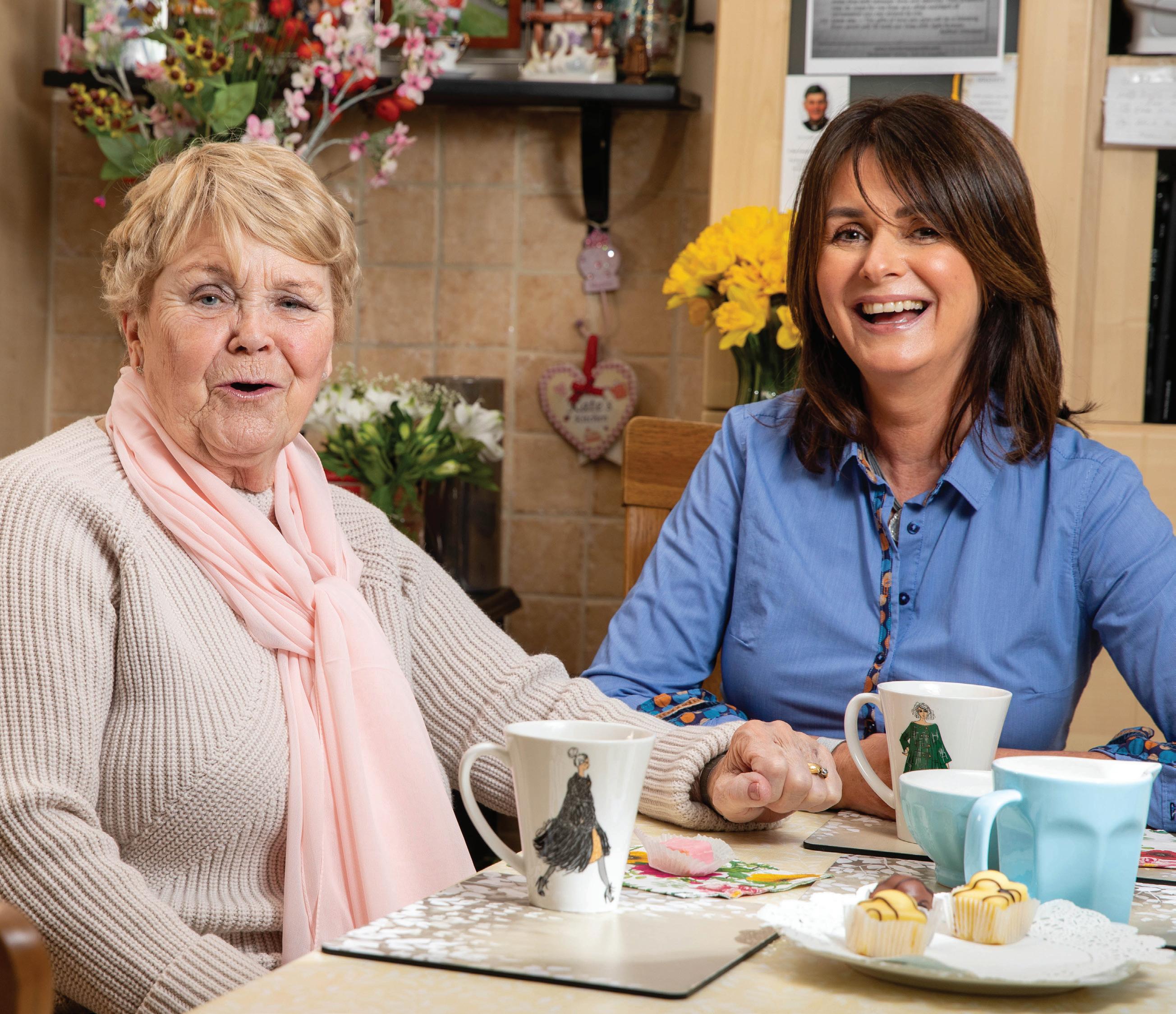
47
ESSENTIAL GUIDE TO AGEING WELL
Health & Wellbeing
Health & Wellbeing
Training and support
Like all CAREGivers working with Home Instead, Teresa has access to free training opportunities that don’t just keep her caregiving skills sharp, but also offer a pathway to progression within the company. And the support she and other CAREGivers get from their office teams is unrivalled in the sector.
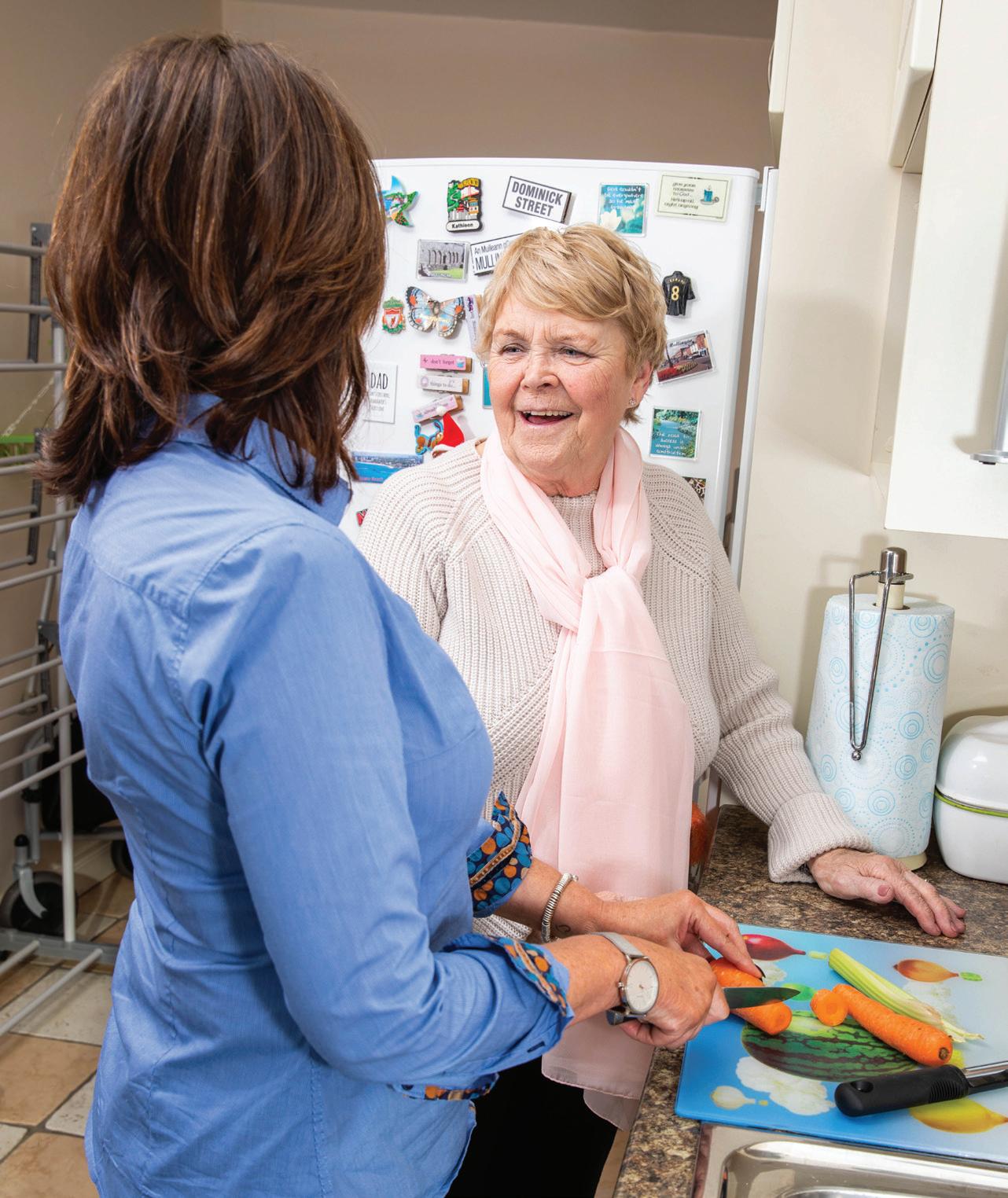
“We’re lucky with Home Instead because we have ongoing online training that keeps us up to date with all the requirements.
“And, if there’s ever a problem, we have great back-up with Home Instead – you know you have somebody to call, for instance, if I felt there was something that wasn’t quite right in someone’s home, I would make a care manager aware of it and they will deal with it straight away.
“That helps us as CAREGivers that you’re not taking everything on your plate. If you highlight something you know that it will be dealt with, so that backup is important.
‘Such a lovely job’
“You build up a bond and a relationship with clients and their families. And they appreciate you coming in to them and helping them, that gives you that little boost you need to keep going with the work.
“It’s the little things that make it all worthwhile. It’s nice to feel you’re making a difference to people’s lives. It’s never a job for the sake of doing something, it’s something that I just really love doing.
“I began working as a CAREGiver because I had reached a stage in my life where my kids were all grown up. I had always felt caregiving was something I would like to do, and so I talked to a friend about it who is also a CAREGiver and it went from there.
“Apart from the clients benefiting, I benefit too because I know I’m helping someone. It is satisfying to be honest, because it’s nice to help others and that in turn has a knock-on effect on you, so it works for both.
“If it’s for you, it’s just such a lovely job. I think it’s so important when you’re going into people’s homes to have a bit of a laugh and a chat with them, the little bit of craic. It helps them because its light relief for them from sitting on their own all day.
“All of my clients are just so lovely. They have great life experience and they love sharing that with you, they love chatting about their past. It’s having contact with somebody that makes their day.
“I have one lady who says to me first thing in the mornings, ‘Have you time to have a cup of tea?’, and that’s even before I assist her out of bed. Sometimes the most important thing is sitting down and having a cup of tea with somebody, having the chat.”
48
ESSENTIAL GUIDE TO
WELL
AGEING
Training for Carers
There are a number of voluntary organisations providing information, advice and support for carers in Ireland. The HSE, as well as voluntary agencies supported by the HSE, can provide training for carers. For example, Family Carers Ireland is a registered charity that offers a range of services and supports to family carers, giving one national voice to represent fairness for carers.
See www.familycarers.ie to view its range of supports
Respite Care
Respite care may involve providing alternative family or residential care for a person with a disability in order to enable the carer to take a short break, a holiday or a rest. It can cover very short-term respite, for example, a carer for an evening, or a much longer arrangement for a holiday. Schemes of respite care are sometimes called ‘Breakaway’ or ‘Friendship’ schemes. Respite care or temporary care may be based in the community or in a residential setting. In practice, respite care is provided to a varying degree at a number of locations around the country - in some cases by your Health Service Executive (HSE) area and in others by local or national voluntary organisations. Care is provided at a number of locations around the country for people with different disabilities. The person being cared for may be admitted to a HSE nursing home for a period of two weeks. Longer stays may be possible in some circumstances.
Respite care can be organised through your public health nurse or family doctor (GP).
CARE:
The City & Guilds-accredited Alzheimer’s Disease or Other Dementias CARE: Changing Ageing through Research and Education® programme is a unique training approach for Home Instead’s Professional CAREGivers. Designed by renowned experts in the field of Alzheimer’s and Dementia Care, the approach focuses on personalising the care experience and looks at practical ways of dealing with some of the most common issues associated with dementia. Home Instead CAREGivers use techniques to help keep your loved one engaged in life, and are trained to understand and reduce behavioural symptoms often associated with dementia. Professional CAREGivers are trained to create social interaction, maintain a safe environment, minimise cognitive and behavioural symptoms, provide meaningful activities, provide nutritious meals and supervise daily activities. Professional CAREGivers can also provide assistance with enhancing and restoring the simple pleasures of life, such as a walk in the park, a stroll to the shop for ice cream or even just spending quality time in the garden. These care activities are a fundamental aspect of relationship-based care, and have been proven to maximise both abilities and independence.
Talk to us today to find out more about the CARE approach.
49 Health & Wellbeing ESSENTIAL GUIDE TO AGEING WELL
Living with Two or More Chronic Health Conditions?
Opportunity for individuals over 65 years living with multiple chronic health conditions to test a new technology to support their health and wellbeing at home.
Researchers from Trinity College Dublin and Dundalk Institute of Technology in partnership with Home Instead and Caredoc have launched an EU project called SEURO to support older people with multiple chronic health conditions to better self-manage their health and wellbeing at home.

The researchers are looking to recruit individuals over 65, living with two or more chronic health conditions to test a new digital technology designed to enable better self-management of health and wellbeing.
The trial will explore how best to empower people to take more control of their health and wellbeing by using the technology at home with support, if needed, from their care and support network, for example, family members, informal and formal carers and healthcare professionals. Outcomes from the trial will also be used to examine if the technology can help improve quality of life for users as well as how they use healthcare services. Participants don’t need to be familiar with computers as they will be supported throughout the trial by trained researchers.
If you, or someone you know, is over 65 and has two or more of the following chronic conditions - diabetes, COPD, asthma, heart failure or heart disease, and has not been diagnosed with dementia, the research teams would like to hear from you.
For more information call 042 9370296, email seuro@dkit.ie or go to www.netwellcasala.org/seuro
50 Health & Wellbeing ESSENTIAL GUIDE TO AGEING WELL
Are you over 65?

Do you live with two or more chronic conditions?


Would you be interested in being part of a trial to test a new health and wellbeing system?

Dundalk Institute of Technology and Trinity College Dublin are running an innovative healthcare trial, using smart technology, to support older people to better self-manage their chronic health conditions at home.


If you are over 65 and have two or more of the following conditions, you may benefit from participating in our trial:

• COPD, Chronic Bronchitis, Emphysema, or Asthma

• Congestive Heart Failure
• Heart Disease, Coronary Artery Disease or Cardiovascular Disease (High Blood Pressure, Atherosclerosis, Angina, Arrhythmia)
• Diabetes
You don’t need to be familiar with computers as you will be supported throughout the trial by our researchers should you be invited to use any technology.
If you live in Louth, Meath, Cavan, Monaghan, Dublin, Wicklow or Kildare contact us for more information, phone 042 9370296 or email us at seuro@dkit.ie
This study is funded by the European Union, under a research programme called Horizon 2020.














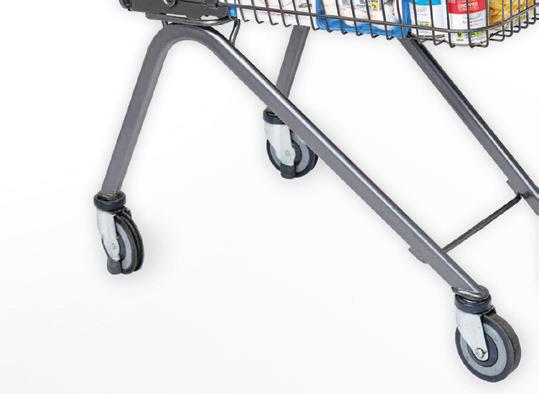



































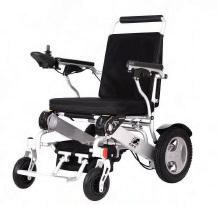
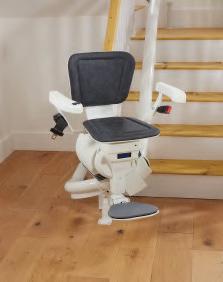
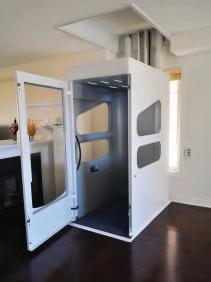
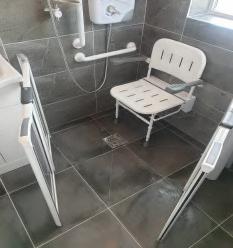

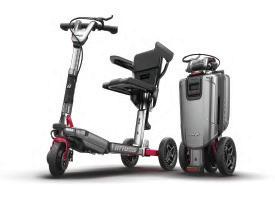








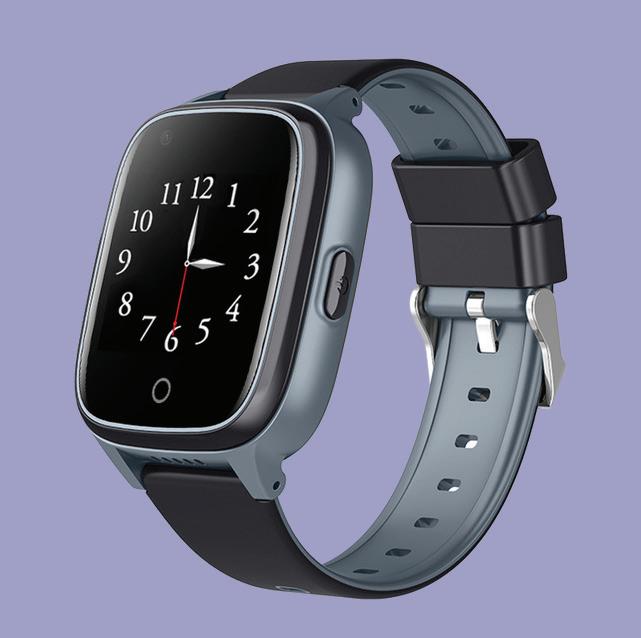

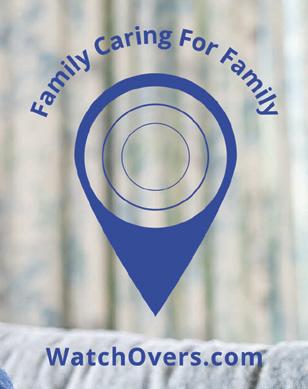


Terms and conditions apply. Vouchers can be used at the next grocery shop of €25, €50 or more. Prices correct at time of print and valid from 2nd January until 24th January 2023. See dunnes-stores.com for full terms and conditions. DS Double Savers _A5 News Letter.indd 1 14/12/2022 12:42 252771_4C_Dunnes Stores_Senior Citizen 2023_ND_V1.indd 1 14/12/2022 16:57 Insulation: • Internal Wall Insulation • Dry Lining • Pipe Insulation • Lagging Jackets • Attic Insulation LEADERS IN QUALITY INSULATION | SOUNDPROOFING | PASSIVE FIRE PROTECTION FOR OVER 30 YEARS Sound Proofing: • Parti Wall Sound Proofing • Under Floor Sound Proofing • Acoustic Control Ventilation • Noise Reduction Dry Lyning Fire Protection: • Firestopping • Parti Wall Fire Stop • Fire Cavity Barriers & Curtains • Fire Protection for Concrete Soffit • Fire Protection for Doors, Panels, Floors, Lath, Plasterboard Ceilings, and Cornices POWELL INSULATION’S Ltd Contact Us: For more information www.powellinsulations.com Call us on Tel: +353 1 841330 or Mobile: 087 264 7322 Consulting: • New Build Consultation • Retro Fit Quotations • Sound Risk Assessments • Passive Fire Protection Assessments • Grant Application Assistance • Insurance Work Quotations • Insulation Risk Assessments • Local Authority Retro Fitting Appraisals 253055_4C_Powell Insulation_Senior Citizen 2023_ND_V2.indd 1 26/01/2023 10:41 CARING FOR YOUR MOBILITY SINCE 1999 PRIVATE & GRANT WORK SPECIALISTS WWW.IRISHSTAIRLIFTS.IE - LIGHTWEIGHT WHEELCHAIRS -- WALKING AIDS - MOBILITY ACCESSORIES & MORE CALL US TODAY FOR FREE ADVICE AND QUOTATION ! 045 892696 Locall: 0818 818500 STAIRLIFTS THROUGH FLOOR LIFTS RISER RECLINERS LIGHT POWERCHAIRS WETROOMS MOBILITY SCOOTERS Wetroom conversions are carried out in Dublin & surrounding areas only BOOK AN APPOINTMENT TO VIEW IN OUR SHOWROOM Clane Business Park, Co Kildare. W91 NF86 252801_4C_Irish Stairlift_Senior Citizen 2023_ND_V1.indd 1 10/11/2022 12:08 WatchOvers have created the future of personal alarms, comfortable and stylish with GPS and fall alert with automatic calling, that works at HOME or OUT and about. 2 Way Calling www.watchovers.com Fall Alert with Automatic Calling SOS Emergency Alarm Medical Reminders GPS Location IRELAND’S BEST MOBILE SOS PERSONAL ALARM WATCH FOR THE ELDERLY 252844_4C_Watchovers_Senior Citizen 2023_ND_V1.indd 1 24/11/2022 11:12
While more Irish people are living longer, they also need to live better to get the most out of their older years. Though diet and exercise have an important role to play here, human beings are social animals at their core. We are fortunate enough to have wide-ranging social activities available throughout Irish communities, run by fantastic organisations at little or no cost. Ageing adults are also increasingly using technology to stay connected with their friends and families – a trend accelerated during the Covid-19 pandemic.
An active lifestyle can keep us feeling good, prevent illness, ensure we can live
independently at home and allow us to maintain strong links with the community.
Keeping the brain active through crosswords, puzzles or social card games, such as bridge, can help to reduce the risk of dementia.
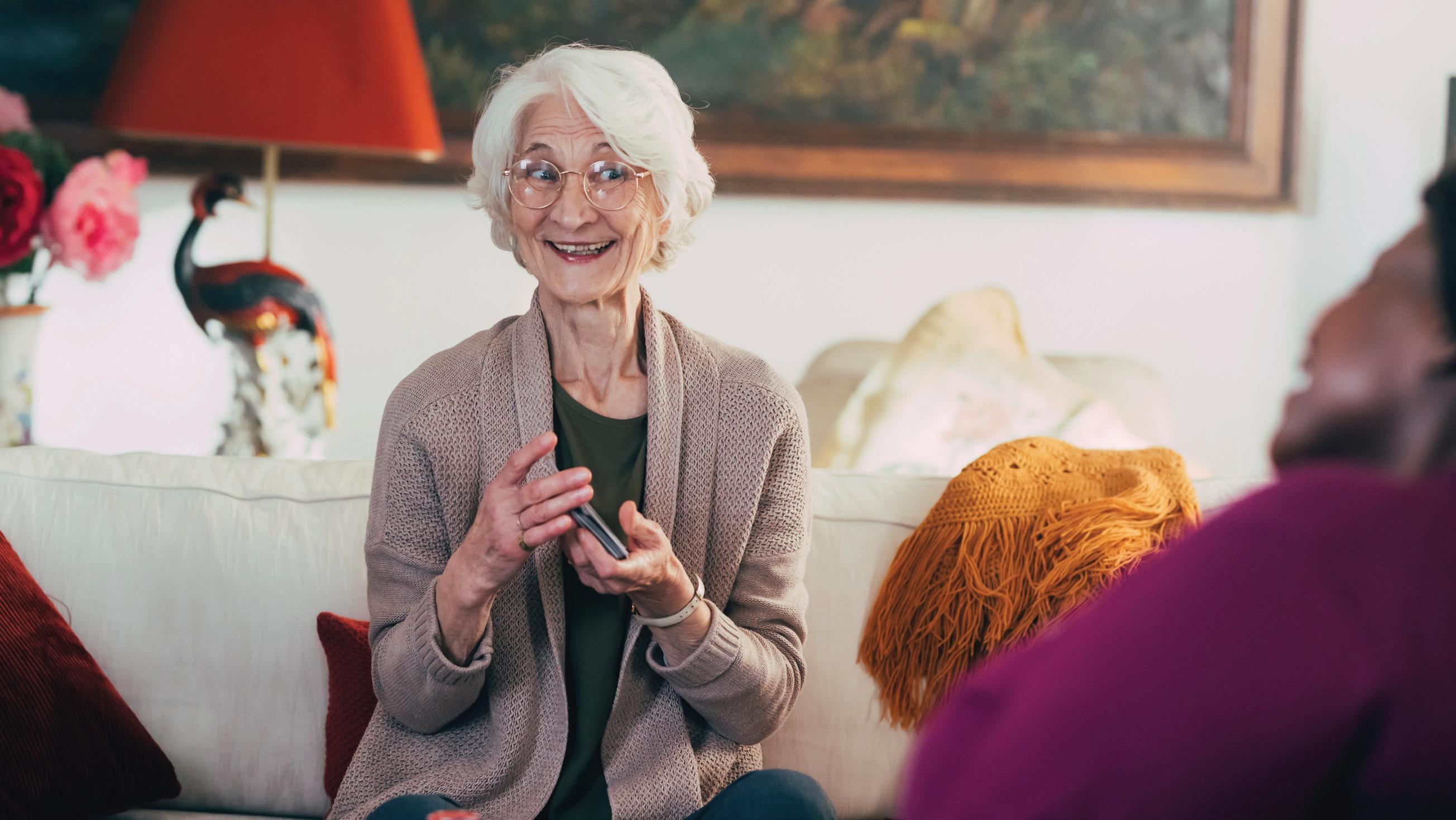
Whether we choose to keep active through travel, education, volunteering or simply having a game of cards with a neighbour, the social and mental benefits are undeniable.
Loneliness can be a very serious issue for ageing adults, and the effects can be worse during winter months, or in more rural areas.
This chapter of the Guidebook offers tips and advice on keeping active, and explains how this can have a positive impact on your wellbeing to help you live happier at home.
53
Relationship-based care helps us live independently at home, which allows us to maintain strong links with the community
ESSENTIAL GUIDE TO AGEING WELL
Simple lifestyle changes and increased activity can improve your quality of life in later years – and your ability to live independently in your home
Lifestyle
Looking After Yourself
While quitting the hustle and bustle of work for a retired life of lounging around with a TV remote may seem enticing, research shows that a passive lifestyle is increasingly seen as a high risk factor for Alzheimer’s - a still incurable disease of the brain that causes the progressive degeneration of brain cells. Cognitive decline as you age appears to be largely due to altered connections among brain cells. But research has found that keeping the brain active in retirement seems to increase its vitality and may build its reserves of brain cells and connections. Major risk factors for Alzheimer’s are obesity, smoking, alcohol, and physical inactivity. You don’t have to turn your life upside down or make extreme changes to achieve many of these benefits. Start with something small, like a daily walk. After a while, add another small change.
AgeWise
Age & Opportunity’s AgeWise workshop raises awareness of the attitudes to ageing and older people in organisations whose work affects the lives of older people. It is suitable for employers and people delivering services to older people. Workshops are being delivered on Zoom to groups of 10 – 15 people maximum and are delivered by a trained Age & Opportunity facilitator. The workshop enables participants to understand the personal, cultural and structural effects of ageism, identify instances of discrimination against older people and devise strategies to counter age discrimination in their workplace or community. Age & Opportunity has delivered AgeWise to groups in a variety of settings, including companies, local authorities, healthcare settings, nursing homes, and to public servants.
Tips
● Keep your brain active every day.
● Stay curious and involvedcommit to lifelong learning.
● Read, write, solve crosswords or other puzzles.
● Attend lectures and plays.
● Enrol in courses.
● Play games such as Bridge.
● Stay physically active.
● Try memory exercises.
To find out more or to book a workshop for your team, please contact Fiona Holohan
Tel: (01) 805 7798
Email: engage@ ageandopportunity.ie
Visit: www.ageandopportunity.ie
54 Lifestyle ESSENTIAL GUIDE TO AGEING WELL
Technology
How to Use a Computer
Embracing technology will not only help you access valuable information but it will also help you to keep in touch with family members and loved ones who live far away. A lot of older people have an initial fear of using a computer and are surprised at how easy it can be to develop basic computer skills once they get started. Organisations such as Age Action are aware of the risk that older people face when excluded from technology, which is why the charity runs the Getting Started programme, which provides one-to-one training on computers, the internet and mobile phones to people over the age of 55. Courses are run in local venues such as libraries, community centres, family resource centres, corporate offices, schools and housing complexes, and all tutors are trained volunteers. Age Action has
Benefi ts of Computer Use
● Internet access and free applications such as Zoom, Gmail and Facebook help you to keep in touch with family and friends.
● Search engines such as Google and Yahoo provide you with information on almost any topic.
● Online shopping allows you to purchase items from the comfort of your own home.
● Payment of household bills in a timely and convenient manner.
● Heightened confidence as a result of learning new skills.
designed training material suitable for older people and learners receive lots of support and encouragement along the way. Its training guide, ‘Simple Steps to Success: A Guide to Using Computers,’ provides very basic, practical guidance for people who are new to computers and the internet. They also have guides to using tablets, computers and smartphones, and all the training materials are available free on their website. The volunteer tutors are people of all ages, from all walks of life, who want to share their skills with older people. Volunteers teach people the basics, such as how to search the internet, how to set up an email account, and how to send and receive emails. Computer courses run once a week for up to two hours for four to five weeks and the course is free of charge.
If you would like more information on the Getting Started programme, or would like to get involved as a volunteer, please contact one of the following:
● Age Action (01) 475 6989
● Age Action South (021) 206 7399
● Age Action West (091) 527 831
● Visit www.ageaction.ie
● Email gettingstarted@ ageaction.ie
55 Lifestyle ESSENTIAL GUIDE TO AGEING WELL
Socialising Cultural Companions
Many of us would probably go to a lot more plays, films, shows, concerts, exhibitions or other events if we had someone to go with. That is where the Cultural Companions Programme, run by Age & Opportunity, comes in. The programme creates local networks of people interested in arts and culture that will accompany each other to events. It is about like-minded people meeting up regularly to go out together, either with one other person or as part of a small group. In this way, it provides increased opportunities for older people to engage with Ireland’s vibrant cultural and arts scene. Some of us are more independent, but many of us need someone to go to these events with.
Many long established members of the Cultural Companions Programme take part in the Meet and Greet for Cultural Companions initiative, which involves coordinating activities on a specific day out and looking out for new people who are attending for the first time. As well as the cultural element, many members of the group also go for coffee and a chat afterwards, which is when people really get to know each other and friendships are formed. Many members of the programme arrange to meet up with each other again. Age & Opportunity’s objective in running
Cultural Companions is part of the Arts & Culture programme run by Age & Opportunity. If this sounds like something you might like to join in with, contact 01 805 7713 for more information, or email arts@ ageandopportunity.ie
the Cultural Companions Programme is to help older people to become independent and to remain positive. In addition to meeting new people and forming friendships, many who join the Cultural Companions Programme discover activities and events that they wouldn’t otherwise have heard about.
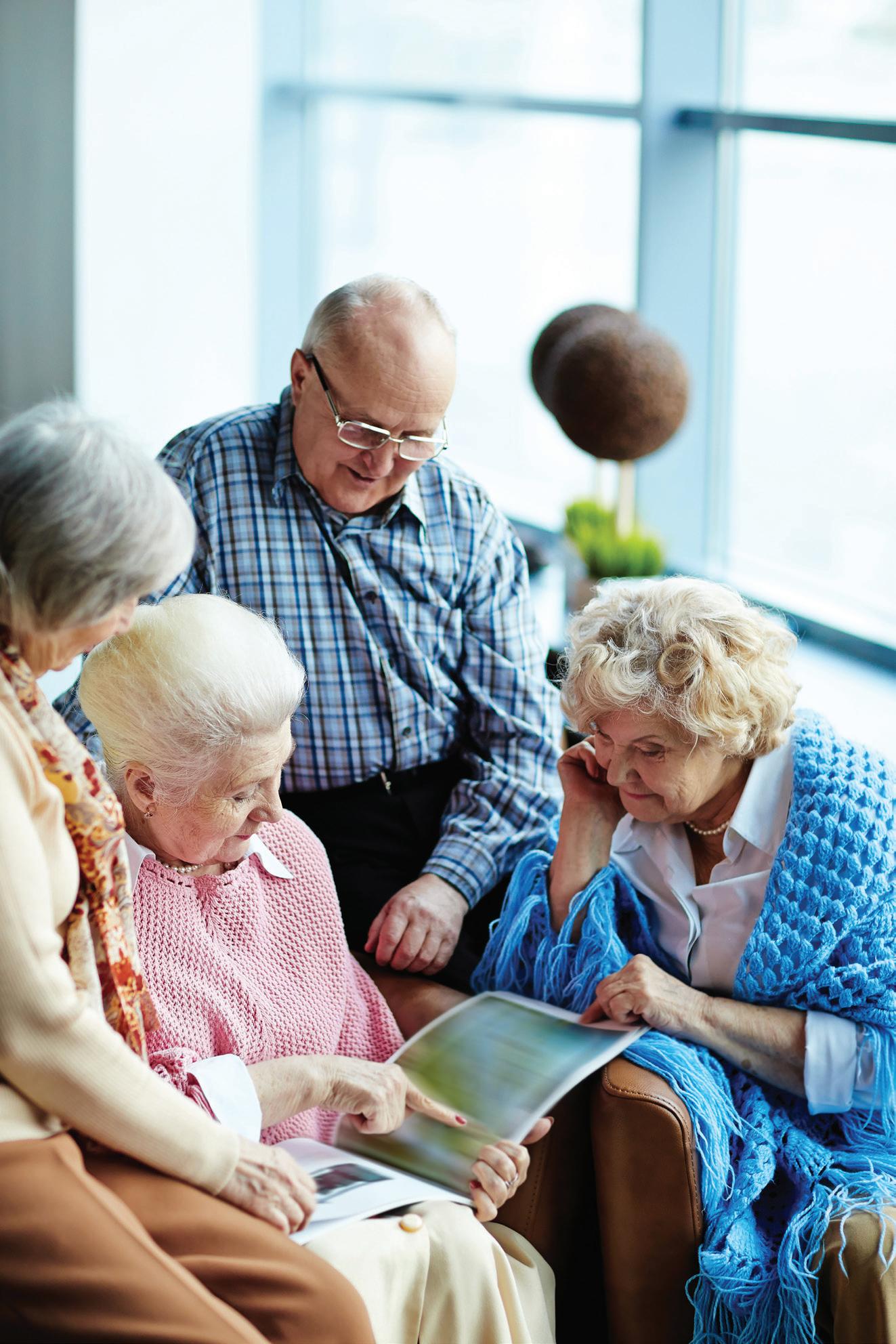
56 Lifestyle ESSENTIAL GUIDE TO AGEING WELL
Irish Dementia Cafe Network

Would you like to join the Irish Dementia Cafe Network?
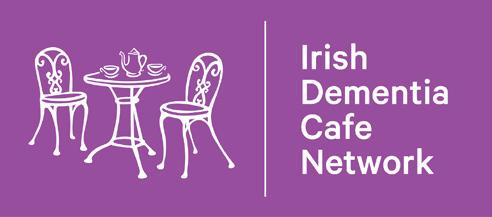
Dementia Cafes or memory cafes are a wonderful community resource for those living with dementia and their loved ones.
The cafe is held once a month, usually in a local community centre or local GAA club or even a parish hall. The event is free to attend and usually runs for about 2 hours. It is a fun and friendly event that sees people sit down and enjoy tea and cake and a chat with others. There is usually some music or fun activity and also an interesting speaker.
The cafes are set up and run by people living in the community who want to get involved in running a cafe. We have a network of 30 cafes around Ireland and the aim is to spread the word and get more opened so that eventually there will be a cafe in every town in Ireland.
Our website www.dementiacafe.ie will give you a list of cafes.
If you would like to attend a cafe or are considering opening up a cafe in your local area then please contact michelle@engagingdementia.ie

57 Lifestyle ESSENTIAL GUIDE TO AGEING WELL
Contact
The free travel scheme is available to all people over the age of 66 living permanently in Ireland. But where can you get your free travel pass? And what other opportunities for travel and getaways are there for older people?

Free travel pass
Everyone aged 66 and over and living permanently in Ireland is entitled to the free travel scheme. If you qualify for Free Travel, your Public Services Card (PSC) will have FT (for Free Travel) in the top left-hand corner. The letter following it shows who you can take with you:
• FT-P - you can travel for free
• FT+S - your spouse, partner or cohabitant
Travel Getting Around
● Iarnrod Eireann To avail of your free travel pass on train journeys, you must present your travel pass at ticket kiosks for all services except for the DART. You must also have your pass with you for the duration of your journey.
● Bus Eireann The free travel pass is available on all Bus Eireann buses, and in some cases a companion pass may be issued. The holder of the free travel pass must have it in their possession for the duration of their journey. The free travel pass does not apply for Sightseeing Day Tours, Nightrider or special bus services, or for organised group travel on any service.
● Dublin Bus Dublin Bus services accept
can travel with you for free
• FT+C - you can have a person (over 16) travel with you for free You must carry it with you when you are using public transport.
Free travel passes are non-transferrable and can only be used by the named person.
If you are in possession of a new Public Services Card, remember to touch on and touch off when embarking and disembarking on LUAS services.
Please note that passes are issued by the Department of Social Protection, not the transport provider. Now that you know how to get your free travel pass, read on to learn more about how you can put it to use.
the free travel pass on all regular daytime routes. It is not accepted on Airlink, Nitelink, Tours, special events or other non-regular services. You must present your travel pass to the bus driver at the beginning of your journey as he or she is obligated to check it before the bus takes off.
● Luas On Luas services, remember to touch on and touch off your Public Services Card before and after your journey.
1 Touch On at the validator at the stop and get on the Luas tram. You will hear a positive beep and a message will display on the validator when you touch on successfully.
58 Lifestyle ESSENTIAL GUIDE TO AGEING WELL
2 Produce your Public Services Card with free travel for inspection if requested.
3 Get off the Luas tram and touch off at the validator at the stop. You will hear a positive beep and a message will display on the validator when you touch off successfully. A validated card is much quicker and easier to inspect so you’ll save yourself a lot of time and hassle.
Getaways
Irish Hotels Federation
The Irish Hotels Federation have numerous getaway deals for older people in venues across the country. Their ‘Golden Breaks’ are specifically aimed at the older market, with six new offers every few weeks. Offers start from as low as €79 and can include anything from bed & breakfast to spa packages and tours.

Phone 1800 876769
Website www.irelandhotels.com
Golden Ireland
If you are looking for tailor made trips and tours for your over 55s group, then look no further than Golden Ireland. They offer coach hire, train booking, entertainment and accommodation packages for groups of a minimum of 12 people. You just decide the region that you want to go to and a general set of dates for your trip and they do the rest!

Phone (064) 663 0267
Website www.goldenireland.ie
59
ESSENTIAL GUIDE TO AGEING WELL
Lifestyle
Volunteering
Retirement is a great time to pursue activities and initiatives that you may have previously put off. There are numerous groups and organisations dedicated to supporting retired people in their pursuit of new hobbies, activities and education. Here are just a few:

Active Retirement Ireland is a voluntary organisation for active retirees, dedicated to fulfilling the interests and needs of older people in Ireland.
Phone (01) 873 3836
Email info@activeirl.ie
Address 124 The Capel Building, Mary’s Abbey, Dublin 7
Age Action Ireland The vision of Age Action is that Ireland becomes the best country in the world in which to grow older.
Phone (01) 475 6989
Email info@ageaction.ie
Address 30/31 Lower Camden Street, Dublin 2, D02 EC96
Age & Opportunity works to promote opportunities for greater participation by older people in society in a range of areas from the arts and physical activity to promoting age equality.
Phone (01) 805 7709
Email info@ageandopportunity.ie
Address St Patrick’s Hall, Marino Institute of Education, Griffith Avenue, Dublin 9
Age Friendly Ireland actively promotes partnerships and collaborations. The Age Friendly Cities and Counties Programme is run by effective city and county-based Alliances, involving senior decisionmakers from public, commercial and not-for-profit organisations. Age Friendly
Ireland assists Alliances aim to streamline the work of all key players at local level, putting the views, interests and needs of older people at their core. Through an Older People’s Council in each participating local authority area older people exercise a strong, guiding influence on age-friendly local development.
Phone (046) 909 7000
Email agefriendlyireland@meathcoco.ie
Address Shared Service Centre, Meath County Council, Buvinda House, Navan, Co.Meath
ALONE is a registered charity in Ireland that supports vulnerable older people, providing temporary or permanent housing and combating isolation and loneliness in society.
National Phone Line: 0818 222 024
Email hello@alone.ie
Address Olympic House, Pleasants Street, Dublin 8
Care Alliance Ireland is an umbrella group that represents family carers and organisations.
Phone (01) 874 7776
Email info@carealliance.ie
Address Coleraine House, Coleraine Street, Dublin 7
60 Lifestyle ESSENTIAL GUIDE TO AGEING
WELL
Support
Friends of the Elderly is an Irish charity that brings friendship and social opportunities to older people. They provide social engagement programmes such as home visitation, friendly call service, social club and organising day trips or social events.

Phone (01) 873 1855
Email info@friendsoftheelderly.ie
Address 25 Bolton Street, Dublin 1
Irish Senior Citizens’ Parliament or the ISCP is a representative organisation of older people in Ireland. It is a non-partisan political organisation working to promote the views of older people in policy development and decision-making. It is run by older volunteers who are elected annually at the Annual Parliament Meeting by delegates from affiliated organisations.
Phone 085 260 4955
Email office@seniors.ie
Address Willie Bermingham Place, 14 Kilmainham Ln, Saint James’ (part of Phoenix Park), Dublin 8
National Federation of Pensioners’ Associations represents pensioners from the public service and semi-state bodies and from private industry. You can contact the National Federation of Pensioners’ Associations by getting in touch with Michael Casey, Secretary, NFPA, who is based in Gaybrook, Mullingar, Co Westmeath.
Phone (044) 934 1549
Email michaelcasey19590@gmail.com
Retirement Planning Council of Ireland or RPCI develops and organises preparation for retirement and life changing courses, helping people to become aware of the pros and cons of retirement.
Phone (01) 478 9471
Email coursebookings@rpc.ie
Address 38-39 Fitzwilliam Square West, Dublin 2, DO2 NX53
SeniorLine is a free confidential listening service for older people by trained older volunteers. The lines are open everyday from 10am to 10pm, 365 days a year.
Phone 1800 80 45 91
61 Lifestyle ESSENTIAL GUIDE TO AGEING WELL
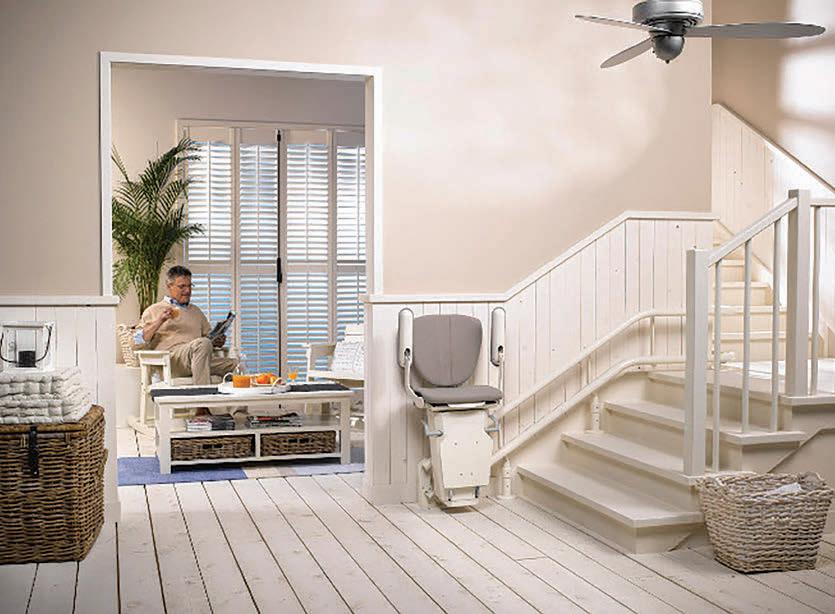
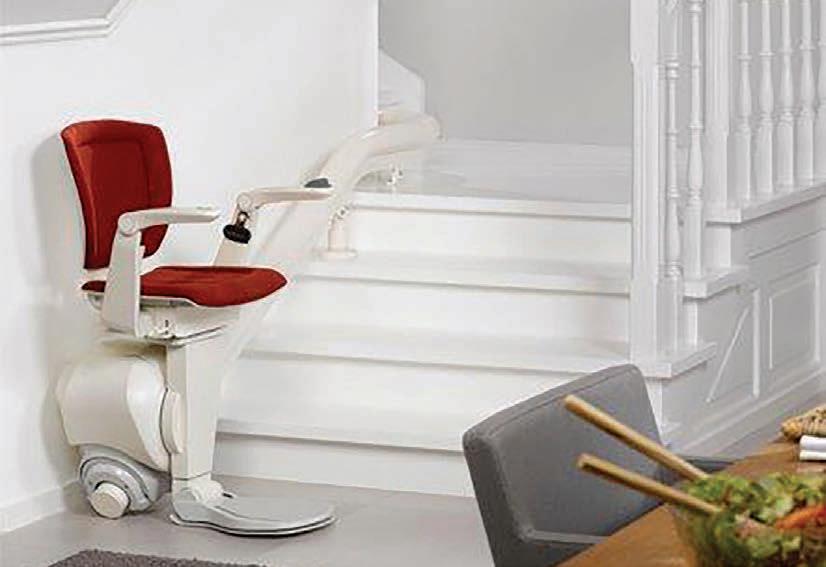





























BM Stairlifts tairlifts Limited 24 HOUR 7 DAY A WEEK CALL OUT SERVICE PHONE: 01 802 0405 www.bmstairlifts.ie Email: info@bmstairlifts.IE THE BEAT CENTRE, UNIT 12, STEPHENSTOWN INDUSTRIAL ESTATE, BALBRIGGAN, CO. DUBLIN UNIT A, R & G COMPLEX, NAAS INDUSTRIAL ESTATE, NAAS, CO. KILDARE. New and Reconditioned Lifts Free Survey & Quotation Grants Available Installing Stairlifts Nationwide for Over 15 Years 252703_2L_BM Stairlift_Senior Citizen 2023_ND_V1.indd 1 09/11/2022 14:51 Switch from a standard efficiency boiler, to a Firebird world-leading condensing boiler and save. Costs Makes financial Sense Firebird Envirogreen Condensing Boilers are 25%–30% more efficient than a Standard Efficiency Boiler. Here’s Why • With an efficiency of 97.5%, Firebird Envirogreen condensing boilers use less fuel than a standard efficiency boiler, therefore reducing energy costs. Cost savings with Firebird* Statements made by Firebird based on Sutherland Tables figures are the responsibility of Firebird, and do not reflect the views of Sutherland Tables. IRL: +353 (0)26 45253 sales@firebird.ie www.firebird.ie NI: +44 (0)28 3088 8330 salesni@firebird.ie A ERP Rating House Built Region Standard Efficiency Condensing Boiler Saving 1980s ROI €4769 €3469 €1300 2006 ROI €2659 €1770 €889 Save up to €1,300 per year on heating bills *Based on a 4 bedroom home. 252926_2L_Fuzion Communications_Senior Citizen 2023_ND_V1.indd 1 12/12/2022 15:07
‘Future-proof’ your home to make it a safe, secure and enjoyable place to live
As we age, our health can change, and we may find we are more frail, or slightly less mobile, or that our hearing or eyesight are not what they once were.
This can be frustrating, and cause concern for our families, who might worry that we could have a fall or an accident that leads to a hospital visit, or that criminals or bogus callers may take advantage of us.
One solution is to future-proof our home, a straightforward and effective way of ensuring safety. We can invest in a whole range of household support aids that make it easier to get around the house and perform tasks.
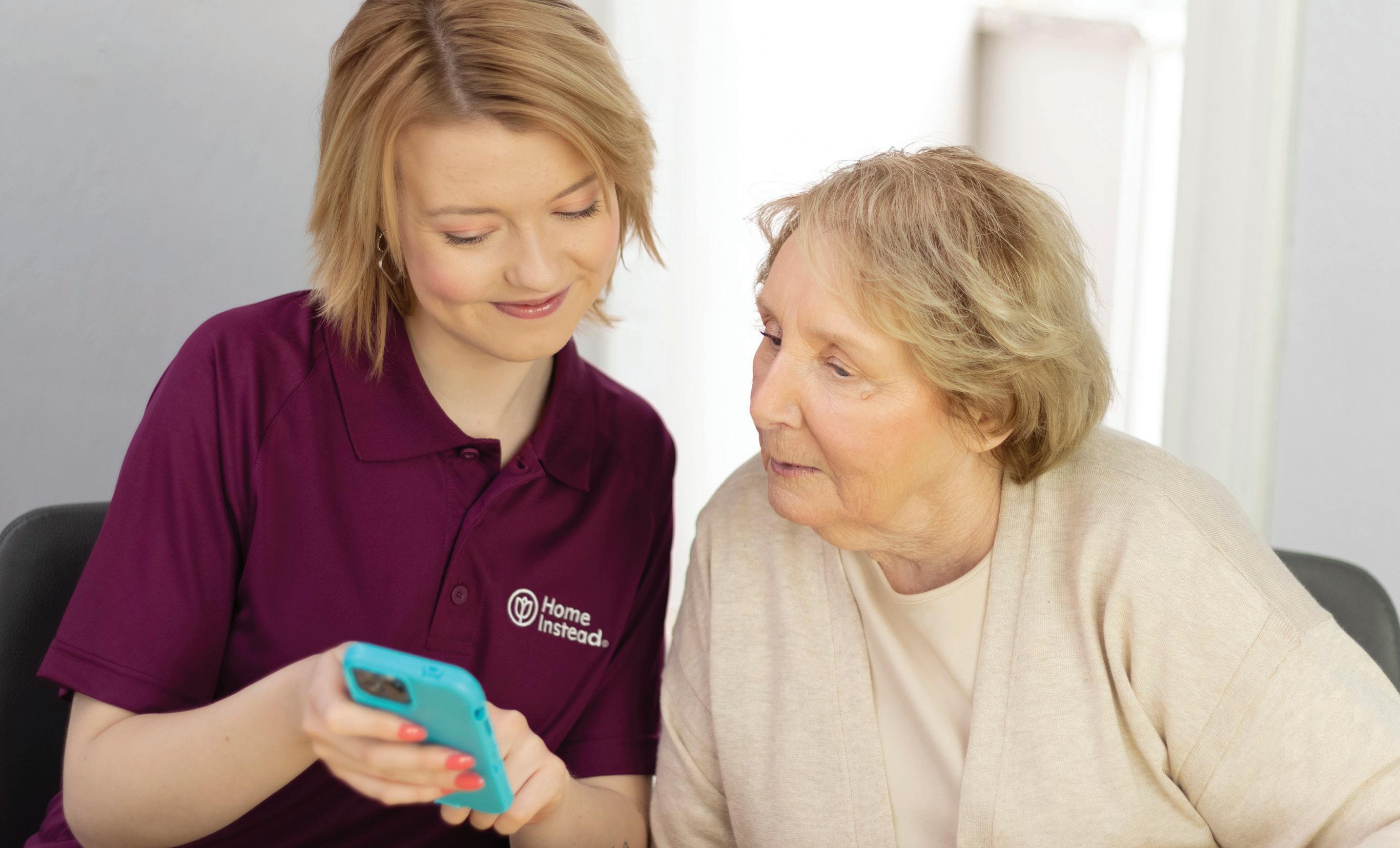
These ‘handy hacks’ can help to improve quality of life, and there are lots of gadgets and utensils designed to help ageing adults
comfortably handle daily tasks, both inside and outside of the home.
Furthermore, new technologies are there to improve home safety and security.
Home Instead has accumulated a vast bank of knowledge on the simple but effective measures that we can take to make living at home easier, more enjoyable and much safer.
We encourage older people and their loved ones to build home improvements into their plan for ageing and where possible, take steps today to prevent future issues.
Use the tips, tools and techniques outlined throughout this chapter to ensure you can live independently in your home. Details of the gadgets mentioned can be found online.
63
Advice and assistance from Home Instead’s Care Managers can help you live independently in your own home
ESSENTIAL GUIDE TO AGEING WELL
Home
Handy Hacks
For ageing adults, everyday tasks in and around the home can become more difficult with age. Yet simple household items used in creative ways can help you to live at home for as long as possible. Follow the tips and tricks below and learn how to handle your daily tasks with ease.
Paint a dot on the end of the key to distinguish between them. Then paint a corresponding coloured dot on the lock that matches that key.
You can improve your grip on utensils by taking the foam from hair rollers and wrapping it around the utensil, making the handle thicker and less prone to slipping.

If your ability to grip objects like cups or glasses has deteriorated, the problem can be fixed by placing a number of rubber bands the object making it less likely to slide from your grasp. A rubber band can also be useful if you don’t have the strength to grip and turn doorhandles. Tie the band around the door handle, cross the band over the lock of the door and wrap it around the opposite door handle. The band will keep the lock inside the door, meaning the door can close but will not be secured in the door frame, making it easy to open.

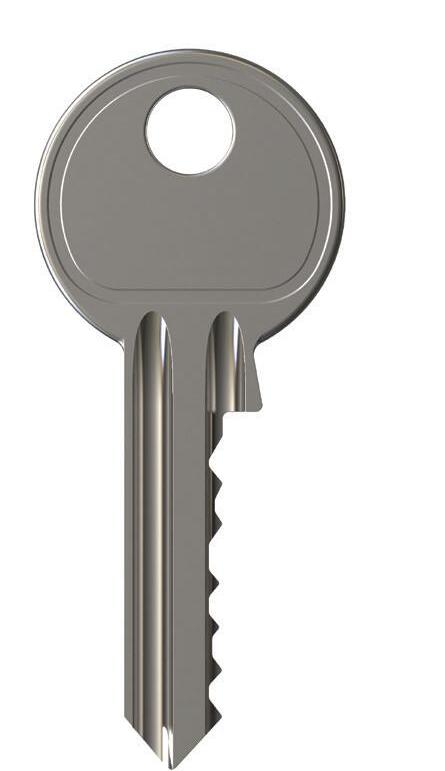

If you’re worried about tripping over some loose rugs, you can secure these down with some easy-touse doublesided tape. You can also use brightly coloured tape on the edges of sharp corners or stairs to

If you have a smartphone, set up calendar reminders so that you never forget to take your medicine. If you have trouble hearing your alarm, even though it’s as loud as the device will allow, set the alarm on your phone and put the phone into a pint glass. It will immediately enhance any sound that comes from the phone.
If you want to keep track of your water intake, mark the side of an ordinary water bottle by hours so that you can keep track of how much you should be drinking.

64 Home ESSENTIAL GUIDE TO AGEING WELL
Put your belt in your trousers before you put them on. In older age your fingers may not be as nimble as in the past, meaning zippers can be a tricky task. However, you can make zippers more prominent and easier to grasp by attaching a generic key ring to them.


If you’re still driving and good with a smartphone, a handy way to remember where you’ve parked the car is to take a photo with your phone of where you park. If tech isn’t your thing you can use a simple pen and paper to write down noticeable landmarks beside where you’ve left your car.
Carry a small handheld torch when you’re staying somewhere unfamiliar such as a hotel or a friend’s house. That way you can safely make your way to the toilet at night.



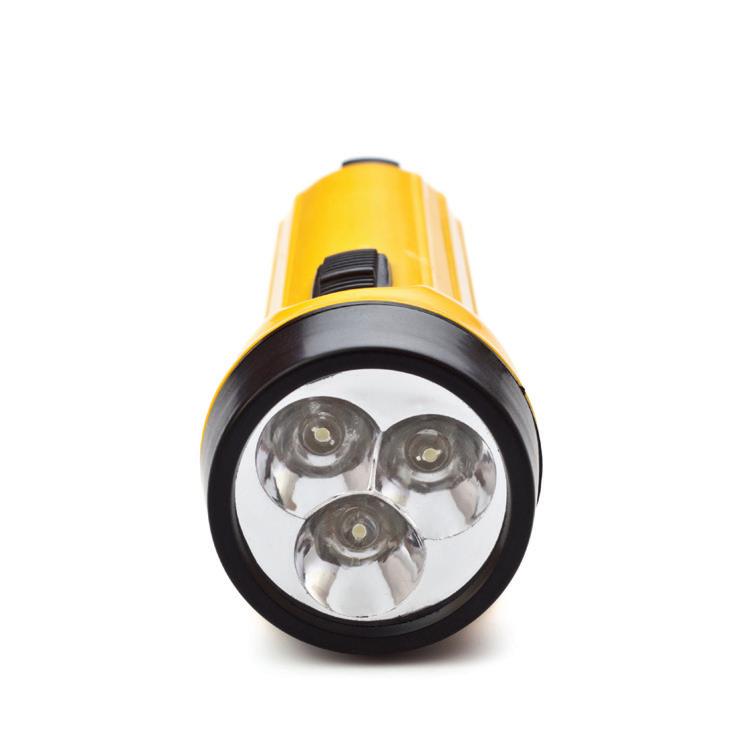




Try taking the danger out of cutting vegetables by using a pair of scissors or even a pizza cutter on your fresh produce or buy prepared foods such as pre-chopped onions, minced garlic and frozen vegetables and fruit that you can just pop into the saucepan.



Sometimes it can be difficult for those with mobility issues to find products in low cupboards that require you to bend. Pop a hanging shoe rack over the back of the kitchen/utility room door and keep your cleaning supplies in the pockets.

Wearing a pair of rubber gloves will make opening tough jars a lot easier.

















If you find it difficult to remember the contact information of your loved ones, create note cards with their information and set them by the phone. The cards can contain, name, picture, phone number and your relationship to them. This can be useful in the case of an emergency.













65 Home ESSENTIAL GUIDE TO AGEING WELL
1 Kitchen Gadgets

Jars can be a hazardous challenge to open for even the most youthful of individuals. But with an easy to use JAR OPENER, that can accommodate lids of all sizes, you can put an end to hazardous gripping and twisting. This gadget even opens childproof pill bottles.

Make coring and slicing apples simple with this robust stainless steel SLICER. Press down on the apple-shaped rim and the sharp blades produce eight evenly sized slices. Dishwasher safe, it’s easy to clean. Use for apple pies, salads and lunch box fruit slices.

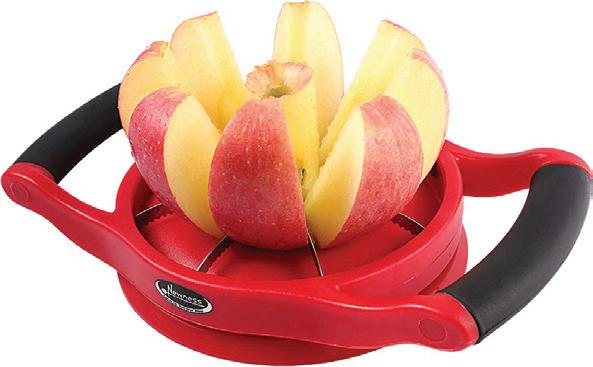
Reach high kitchen shelves safely with these practical, MOBILE SAFETY STEPS with handrail. They are fitted with dome-covered, spring-loaded castor wheels that retract as soon as you put any weight onto the steps to provide firm contact with the floor, ensuring the steps do not move while you’re using them.

If you have issues with lack of strength in your hands, an ELECTRIC TIN OPENER may be an option. The majority of these have a magnetic clip securing the device to the lid during use. Then it’s as simple as hitting a button. Once the tin has been opened the device shuts off automatically, making it convenient and safe.
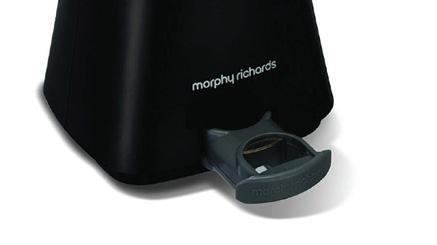
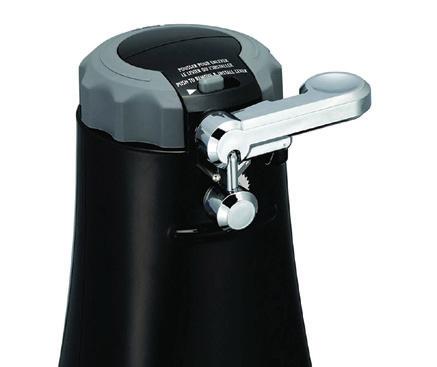
THE UCCELLO TILT AND POUR KETTLE features a ‘tilt and pour’ action that directs the boiled water to the fixed position of the cup. The weighted base of the kettle arcs on a rotating axis to deliver hot water safely.
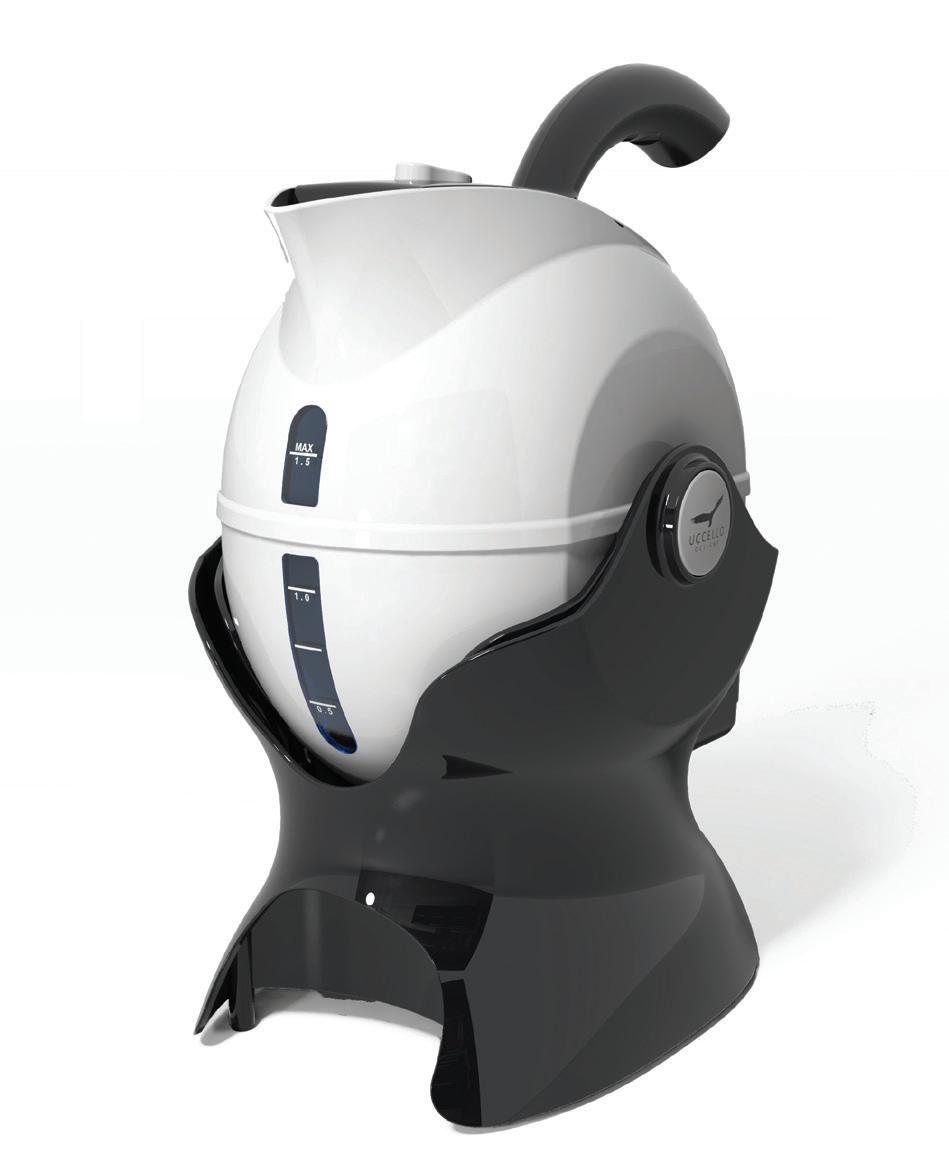
66 Home ESSENTIAL GUIDE TO AGEING WELL
Bathroom Essentials
Outdoor Tools
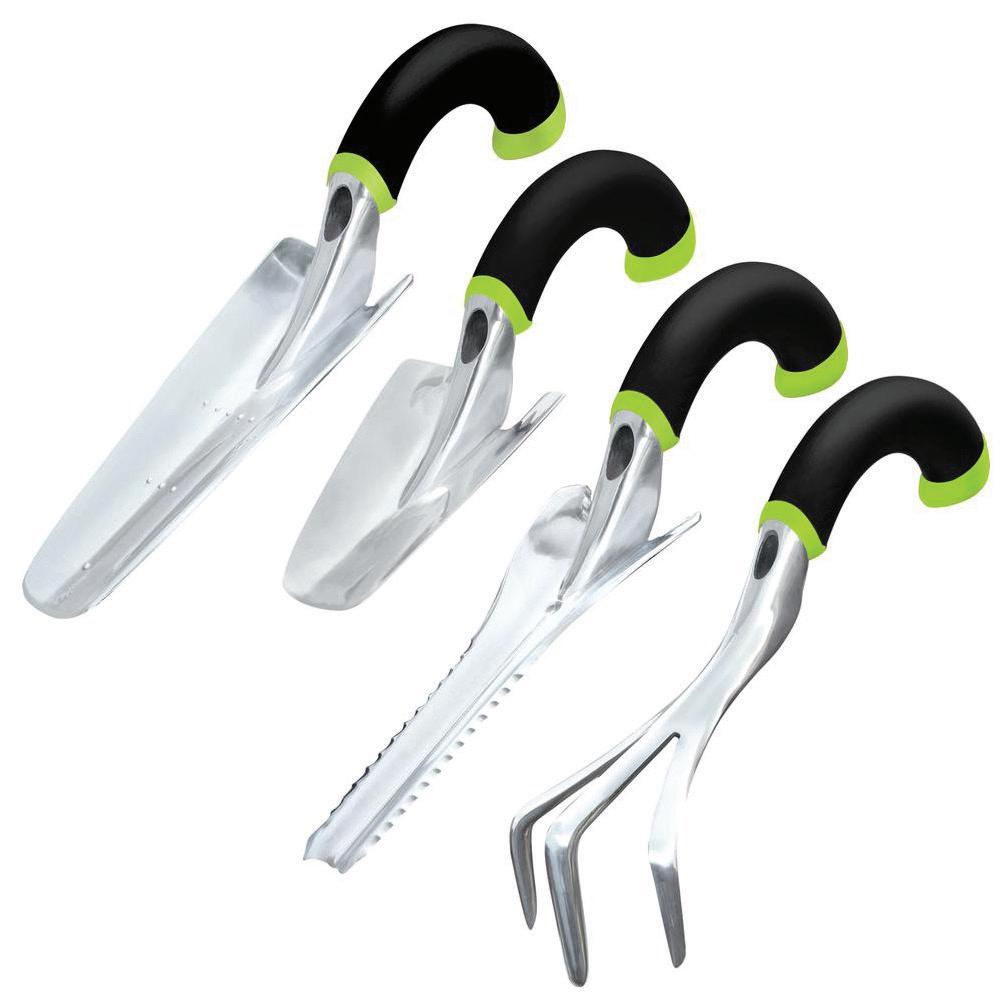
TRI-FOLDING STOOL
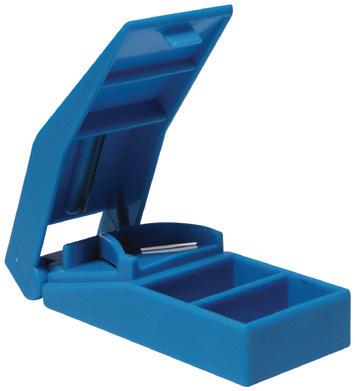
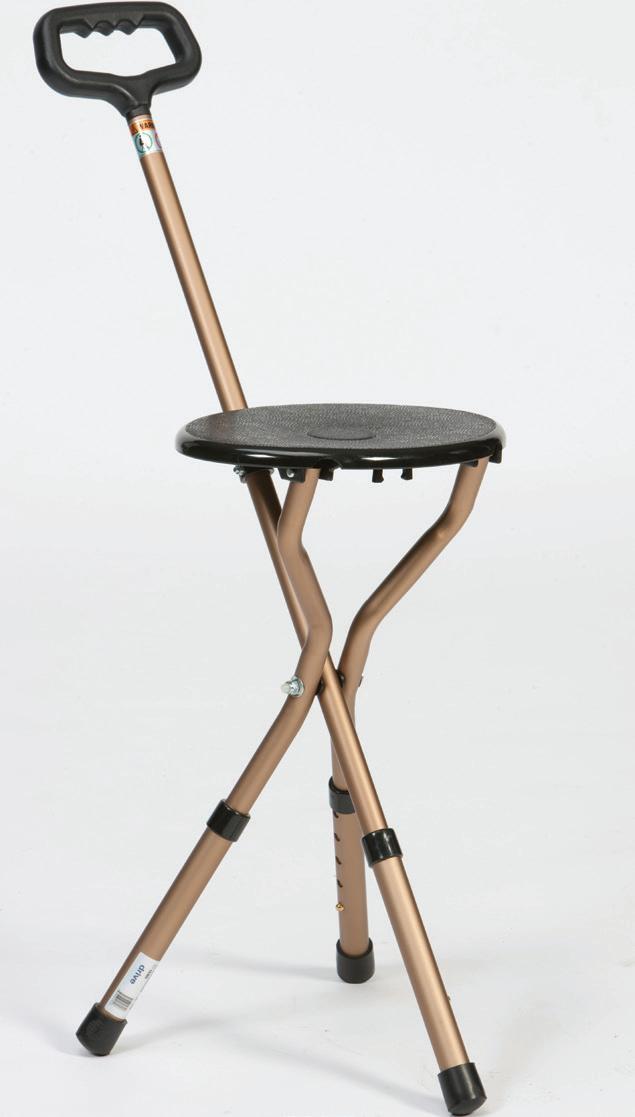
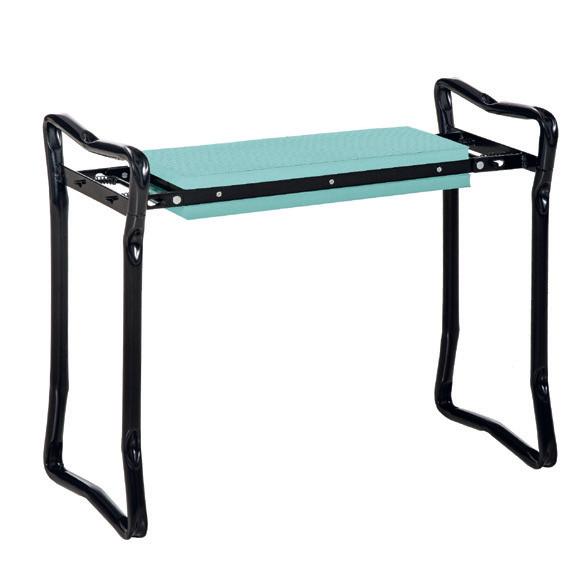
If you are a fan of a gentle Sunday stroll but worry that you may become too tired during the walk, you can turn your walking cane into a seat with a tri-folding stool.


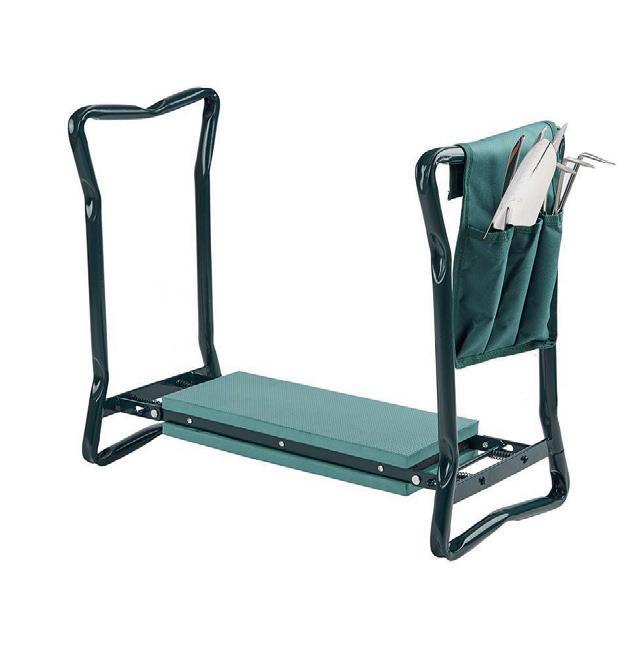
1





2 A LONG HANDLED BACK SCRUBBER can help you clean all those hard to reach places without the added hassle of bending and stretching.
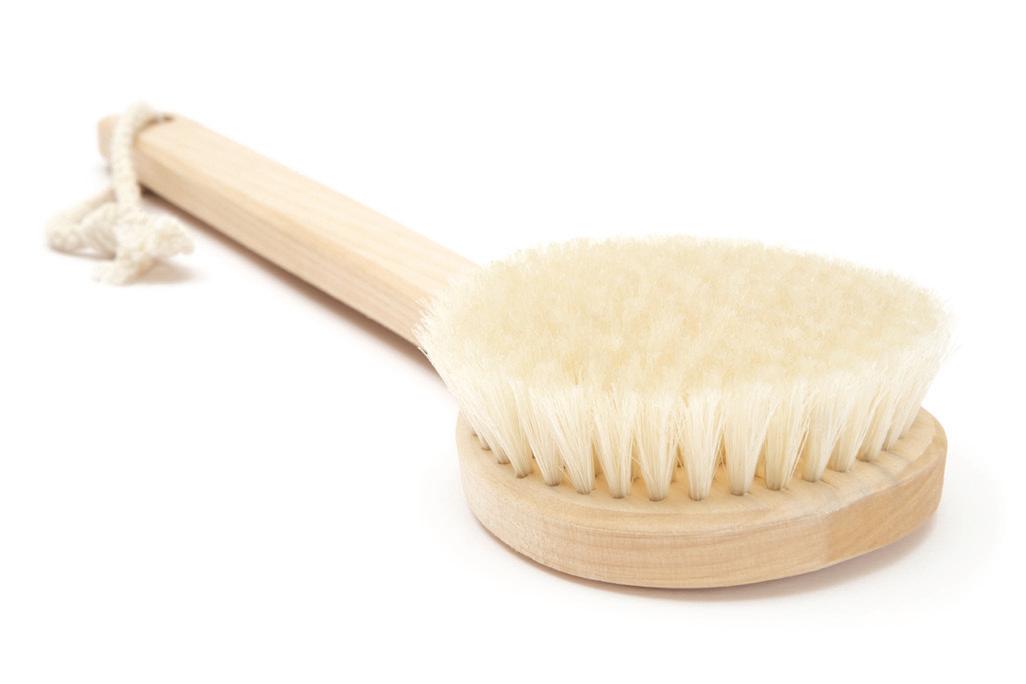
PILL CUTTER If you have difficulty swallowing some of the larger pills in your medicine cabinet, a pill cutter could be just what you need. This product is perfect for those with poor digestion or who don’t feel comfortable using sharp knives to cut the pills themselves. Always check with your pharmacist for advice on pill cutters. 3
ANTI-SLIP SHOWER MATS are a necessity at any stage of life but when a fall is more likely to cause serious harm, you certainly can’t go without one.
ERGONOMIC GARDEN TOOLS provided extra leverage, reducing hand and wrist stress. The shape of the handles relative to the blades makes digging up dirt or digging out weeds much easier than with standard gardening tools. This VERSATILE GARDEN KNEELER is perfect for sitting on whilst tending to plants or carrying out DIY tasks and will put an end to damp, sore, grass stained knees.
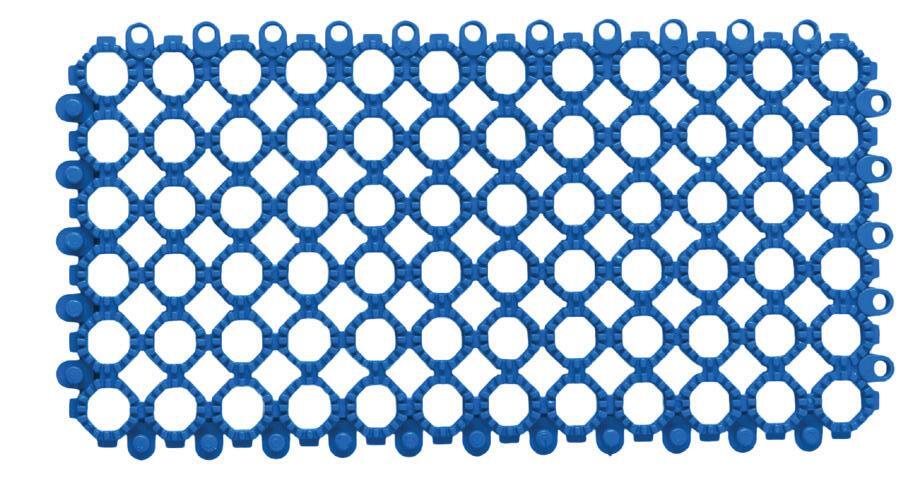
67 Home ESSENTIAL GUIDE TO AGEING WELL
3 2
4 Bedroom
Aids





Also Consider
This sturdy AM FAB OVER RISER TABLE is great to have beside your favourite armchair or even your bed. You can swing it around for use whenever you want to read, eat or use a computer.
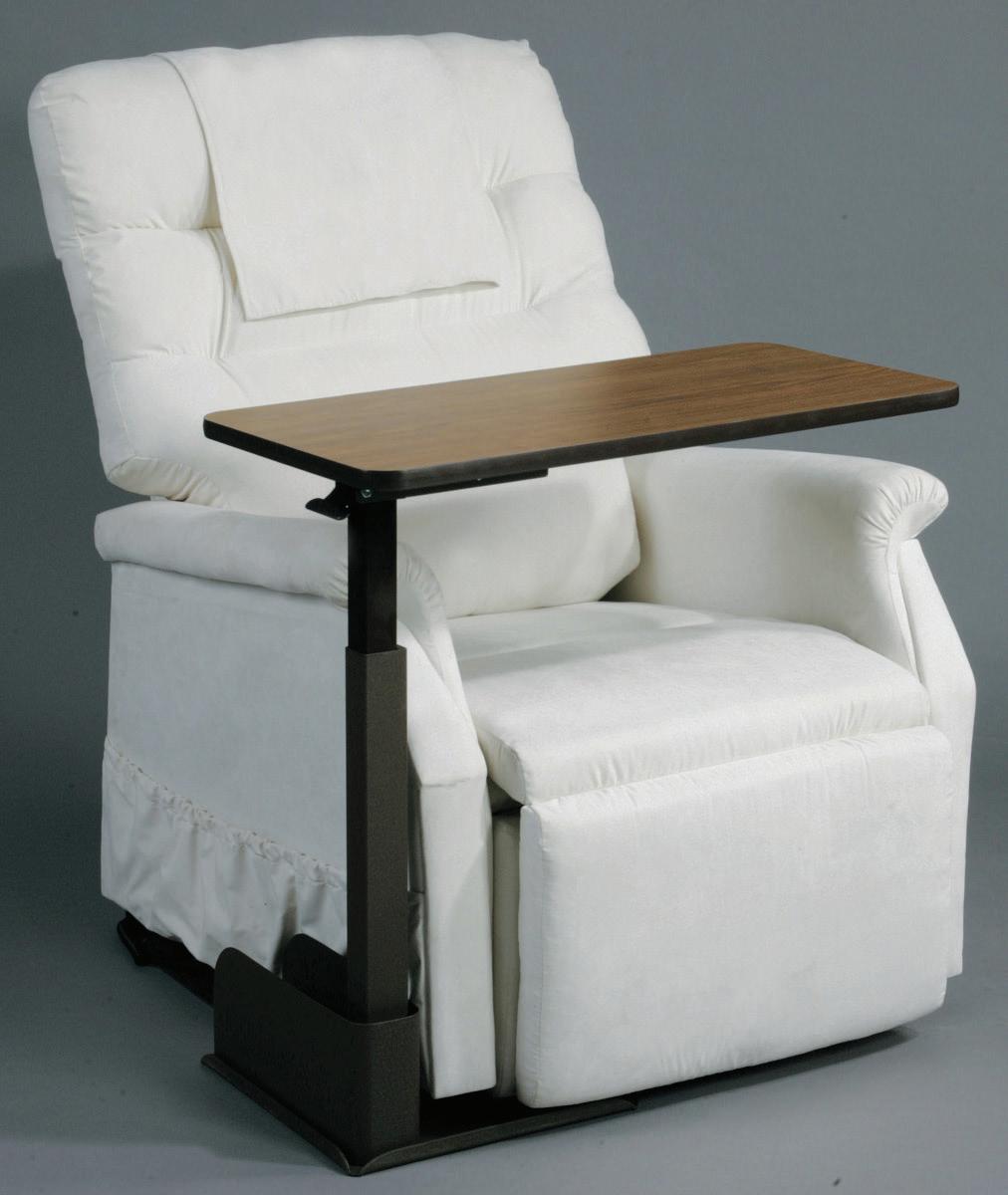
Living Room Gadgets
If you’re constantly straining to distinguish between the different sounds on your television, despite your family telling you it’s too loud, you may need ASSISTIVE LISTENING HEADPHONES. This audio device can allow you to enjoy your tv time once again with crisp and clear audio levels. 1
1 Straining to read from either lack of light or deteriorating vision can cause serious migraines and headaches. A MAGNIFYING DESK LAMP resolves both of these issues and allows you to return to your favourite books at the comfort of your own desk.
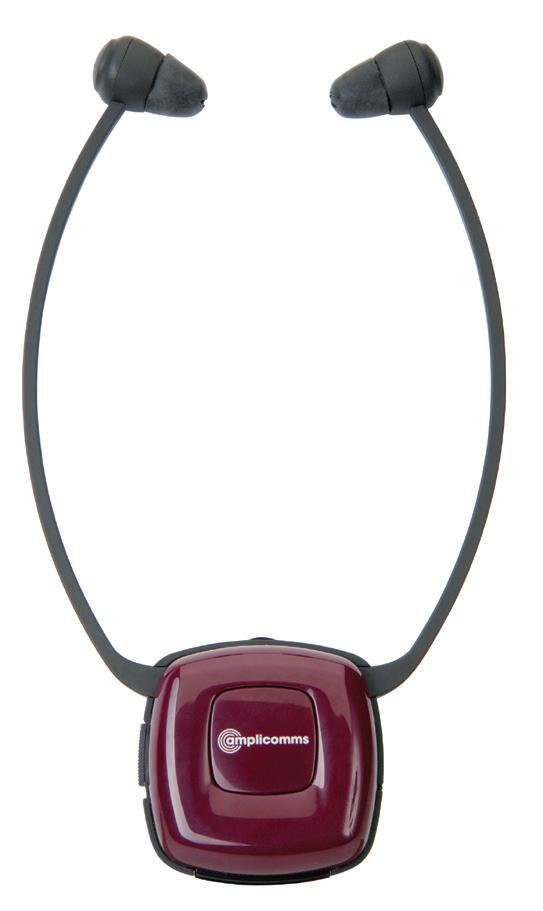
2 JUMBO PLAYING CARDS, can be much easier for older people with joint difficulty to hold. Alternatively, playing card holders also allow people living with arthritis to keep their hands free.
5
TIGHTS AID Back problems in older age can make daily tasks a challenge. To help prevent too much over-extension, tights or sock aids can be the ideal helper for your dressing routine.
2
ELECTRONIC CALENDAR CLOCKS can be a significant help in the morning. They display the time, day, date, month and year. The large font makes reading the clock easy on the eyes and it can be useful when keeping track of medical appointments and social engagements.
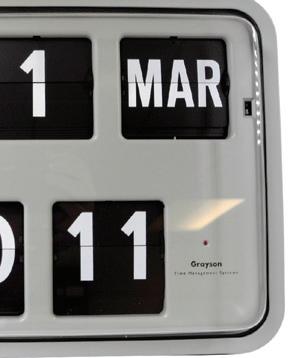

3
SHOE REMOVER Bending over can be a challenge when you have poor mobility. A shoe remover grips onto the shoe and helps an older individual remove footwear easily.


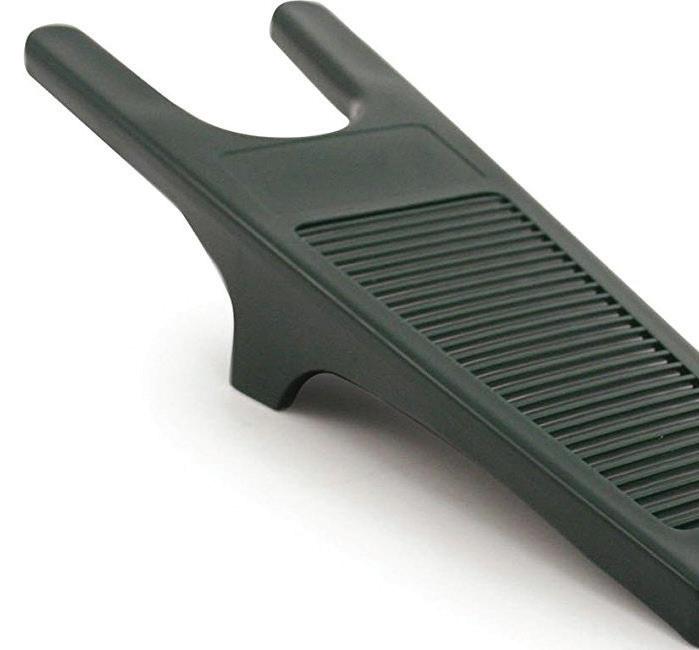
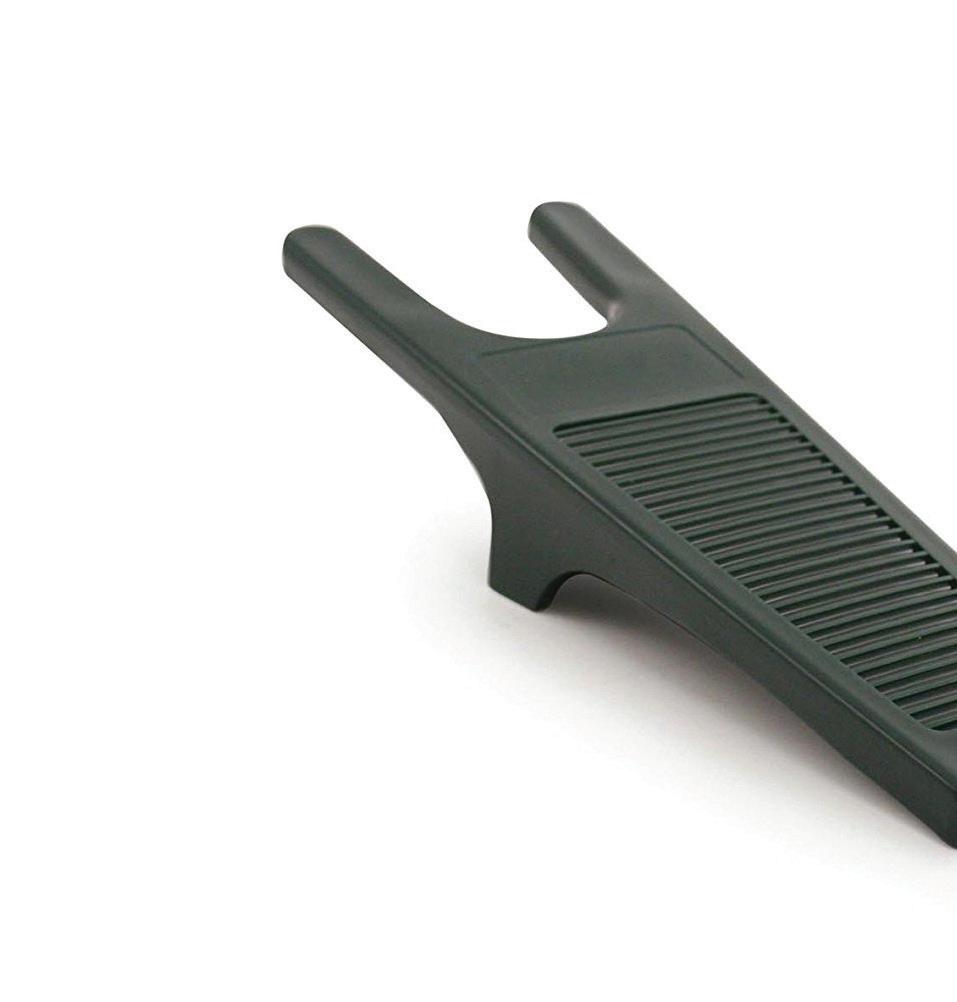
68 Home ESSENTIAL GUIDE TO AGEING WELL
General Helpers
PERSONAL ALARM
One of the most common fears with older people is that if they fall or have an accident, they won’t be able to alert anyone. A personal alarm, which can be worn around the neck, ensures that no matter where you are, help isn’t far away.
SENIOR MOBILE PHONES offer you the peace of mind of knowing you can contact a loved one at anytime. Mobiles for older people can be worn around the neck and are designed with large buttons and back-lit numbers. The operating systems are typically easy to use, with enhanced sound, bluetooth, hearing aid compatibility and in some cases, an SOS button.

DOORBELL FLASHING-LIGHT SIGNALLER





















There are a number of devices to combat hearing loss in regard to your doorbell. One of these is flashing light signallers. When placed around the home these devices will alert you when someone is at the door by flashing, without any added sound. It is perfect for those with hearing problems.


HOUSE-CLEANING ROBOT
If hoovers have become too cumbersome to operate, you may need to invest in a house cleaning robot. These handy gadgets are a godsend when you find it difficult to bend down to clean up every spot of dust and dirt.

handy
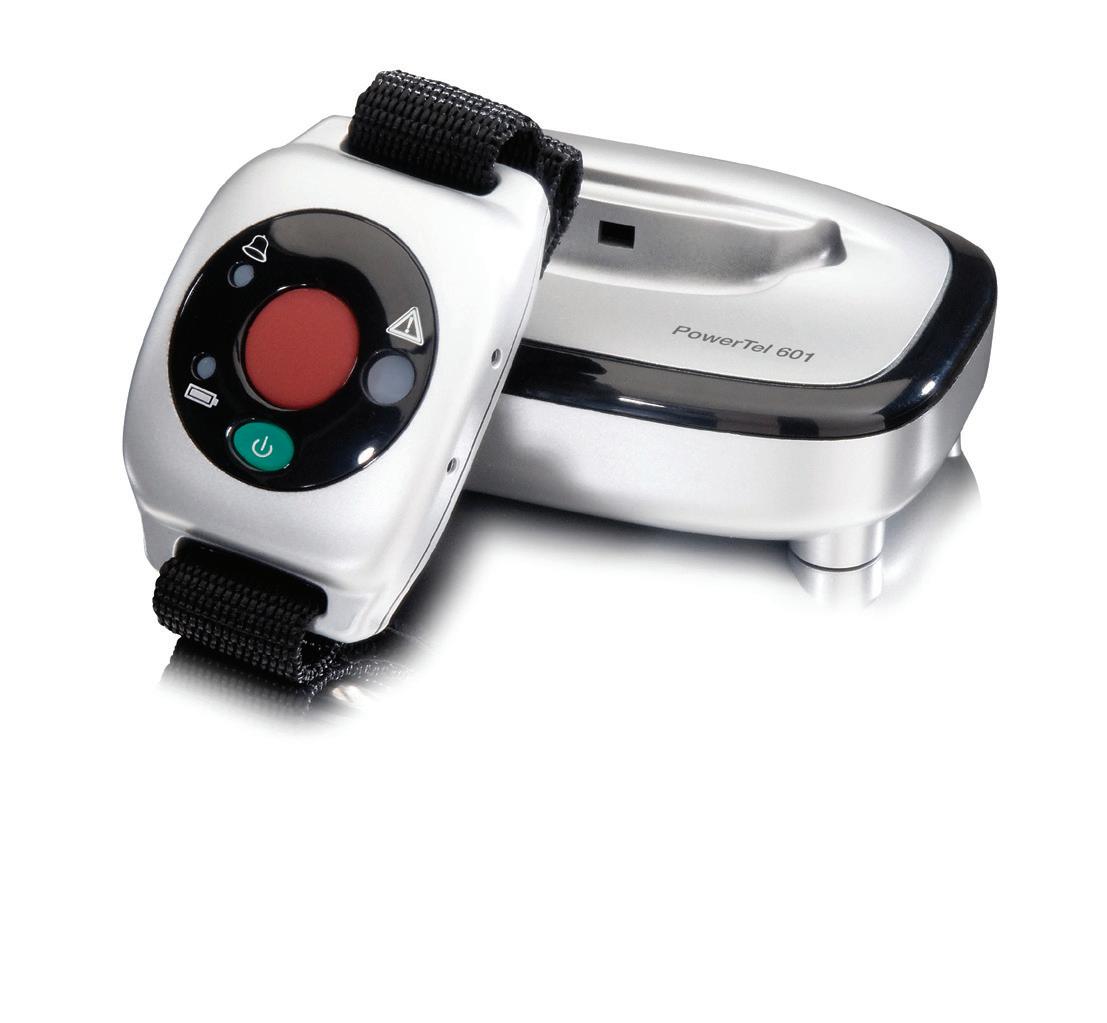
69 Home ESSENTIAL GUIDE TO AGEING WELL
6
Get Mobile
Top Five Things to Consider When Buying a Mobility Scooter
Many ageing adults face transport difficulties when they can no longer drive or are otherwise restricted in their mobility. Luckily there’s now a wide range of mobility scooters available on the market, giving older people affordable control over where they can get to and when. There’s a number of factors we should consider before investing in a mobility scooter – read on to ensure you make the choice that’s right for you.
● Where are you going? A Class 2 or boot scooter, (small, light and often inexpensive), is perfect for around the house or on a short trip to the shops. Three-wheeled scooters have extremely tight turning circles and are ideal for manoeuvring around the house.
● What road will you take?
If you’re thinking of going out on the road, you’ll need the larger Class 3 scooter. You can drive them on any roads, except motorways or dual carriageways, that have a speed limit of 80kmph or above. They must have front and rear lights, indicators, hazard lights, a rear-view mirror, brakes and a horn.
● Your body weight and size If you differ from the advised weight and height the vehicle could become unsteady and cause an accident.
● Your perfect fit If you don’t have a dry space outdoors where you can safely charge the scooter, you may need to consider bringing it indoors and finding a place in your home to accommodate it.
● Try before you buy Mobility scooters come in such varying styles and uses that it’s a good idea to test your chosen model before purchase. Make sure the seat is comfortable, you have sufficient legroom and you can easily reach the controls.
BUYING SECOND HAND
Some commercial suppliers also buy unwanted vehicles, recondition them and offer them for sale with a short guarantee. While you are still buying a second hand vehicle, it’s likely to have been serviced and should be in reasonable working order.
BEFORE YOU BUY
Before buying, it is strongly recommended that you seek the advice of an occupational therapist on the suitability of the scooter or buggy to your needs.
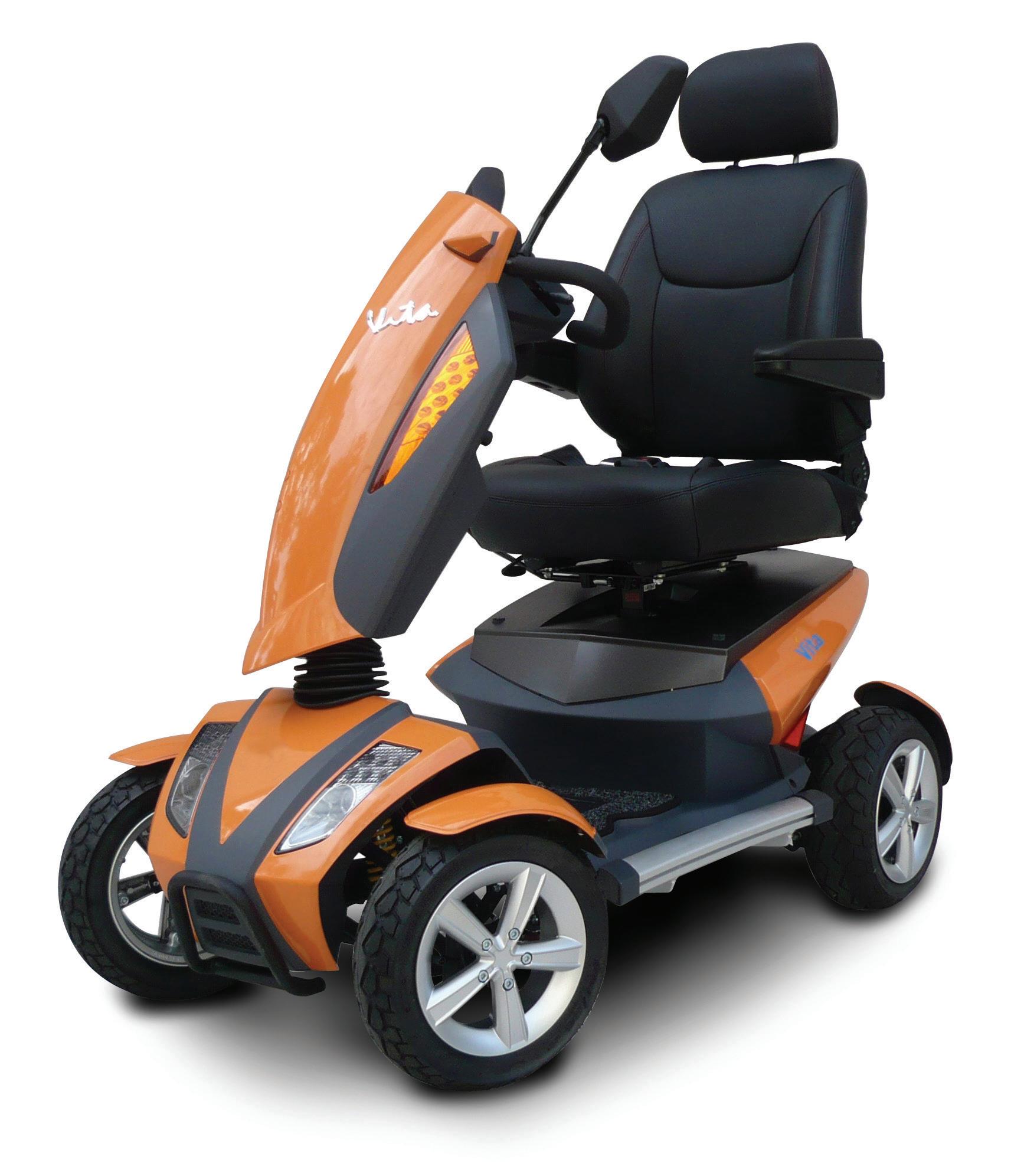
70 Home ESSENTIAL GUIDE TO AGEING WELL





HIGH QUALITY LANDSCAPING & PAVING DUBLIN: Paving • Patios • Driveways • Planting • Weeding • Flagging • New Lawns • Tree & Hedge Cutting Flowerbeds • Tree Surgery • Patios • Waste Removal • Garden Fence Install / Repair Contact Mike: 085 118 8081 | Contact Office: 01 901 2633 | Email: leaf2leaflandscapes@gmail.com www.leaf2leaflandscapes.ie 252875_2L_Leaf2Leaf Landscapes_Senior Citizen 2023_ND_V1.indd 1 19/12/2022 12:03 my gift to the world Together, we can continue to create a future that is fair for everyone. And make a world without poverty our legacy. For more information contact OXFAM Ireland Tel: (01) 672 7662 Email: friends@oxfamireland.org Oxfam Ireland is a member of Oxfam International, a world-wide development organisation that mobilises the power of people against poverty. Charitable co. limited by guarantee. Reg. No. 284292, CHY5988 www.oxfamireland.org/legacy Oxfam_Half_3.indd 1 11/01/2019 09:50
Age Friendly Technology The ACORN Way


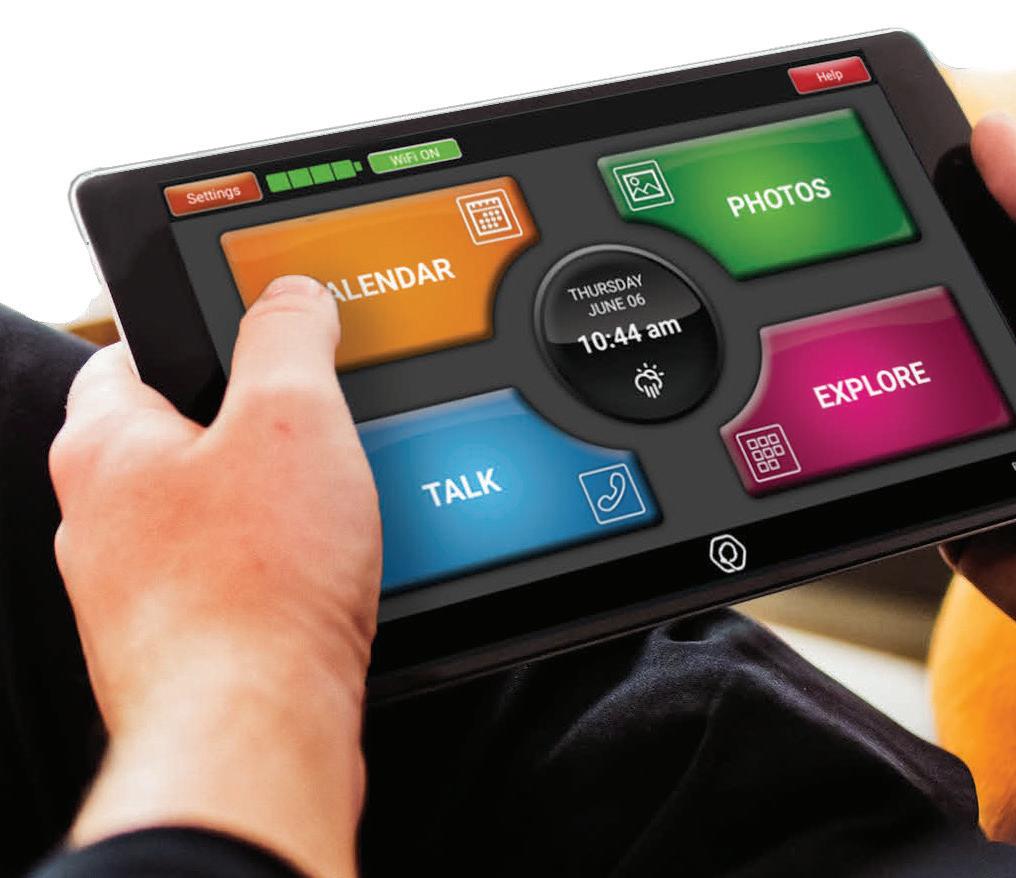
With thousands customers across Ireland, the ACORN is Ireland’s first age-friendly smart tablet. Used by people who need a little extra help to go online. Join Zoom / Whatsapp calls or try our simple to use Video call feature. Browse the web or use popular apps, play games or listen to music. ACORN is designed with you in mind.



Our local telephone support team are there to hel p you too. Call us to learn more. 085 888 1657





No Wifi or broadband at home? No problem! The ACORN comes with a mobile data service option connecting you to the internet at home and on the go.

€ 425 Prices from : ACORN Age-Friendly Smart Tablet 085 888 1657 info@myacorn.ie @acorn_nation Call Us Email Twitter www.myacorn.ie Website STAY CONNECTED STAY INDEPENDENT STAY SAFE STAY INFORMED
Family / Carers : Check out our ACORN Companion app www.myacorn.ie
Nutrition
A healthy diet is key to a quality life, whatever age we are. If we form healthy eating habits while we’re young, we can reduce our chances of developing complications later on in life. A good diet also helps maintain fitness and activity levels in our older years.
When we age, our risk of malnutrition increases as we may no longer be able to cook, or even interested in cooking for ourselves. If we’ve just come out of hospital, we may be less inclined to spend time shopping or preparing healthy meals. But by making an extra effort, or
by seeking home care support, we can maintain a healthy diet that will benefit us in everything we do.
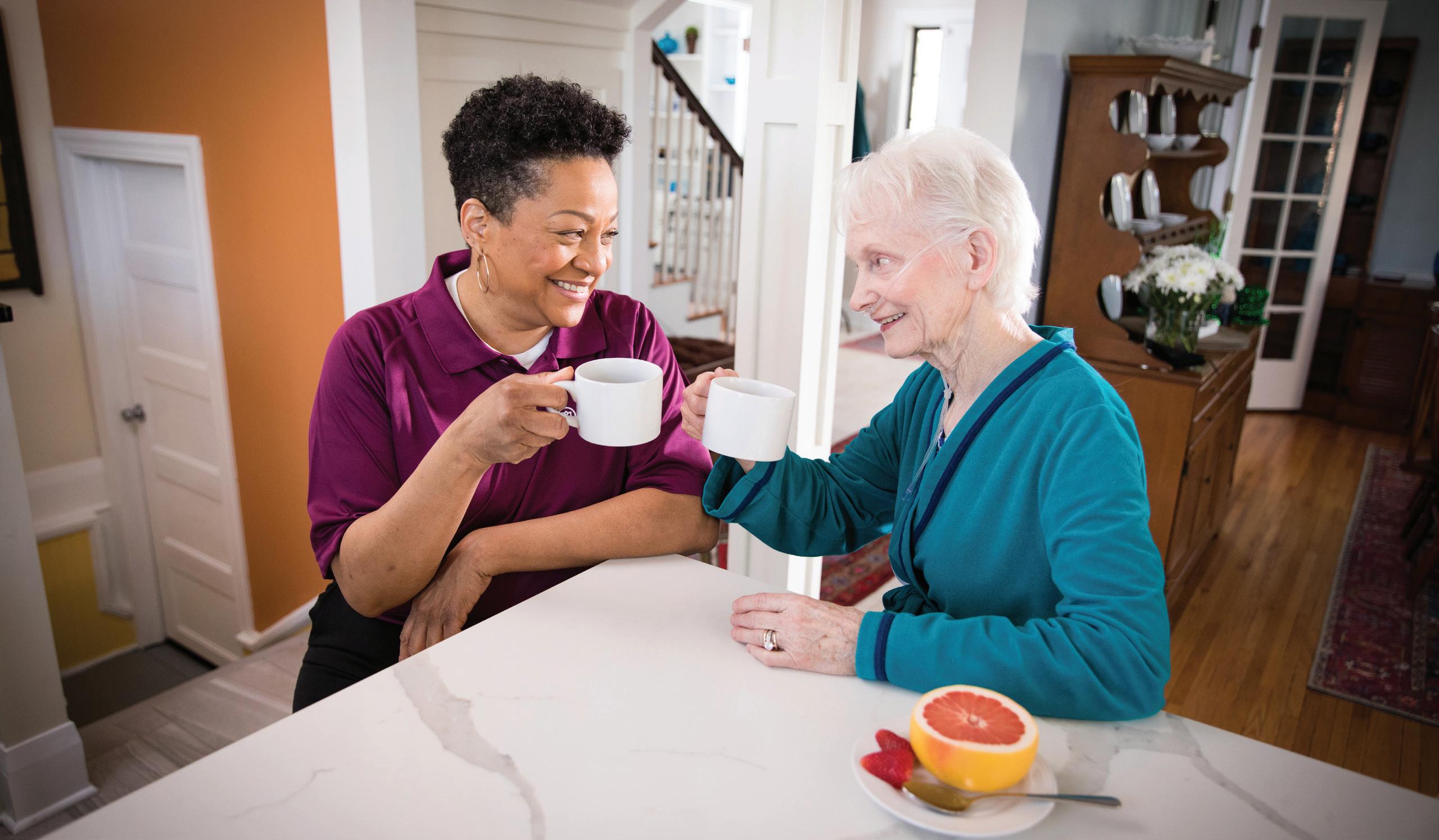
We at Home Instead think that people of all ages should look after their diet as best they can and our CAREGivers, who assist ageing adults with meal preparation, are schooled in this philosophy.
This section of the Guidebook contains practical tips and guidelines so that you or your loved one can improve and maintain the quality of your life in your older years.
73 ESSENTIAL GUIDE TO AGEING WELL
How a healthy diet can help you live a full, active life and preserve your independence into old age
"Good diet planning and monitoring is an essential part of relationship-based care"
Relationship-based care
When caring for an older adult, it is very important to pay attention to their diet and eating habits. As we age, our appetites and attitudes to food change, and because of this and other developments, older people have an increased risk of becoming malnourished.
Home Instead provides a range of supportive services, including the preparation of meals and encouraging a client to enjoy a healthy, balanced diet. Where Home Instead are involved, we can ensure that clients are eating properly and monitor any changes in health and wellbeing. In this section, we aim to help and assist families who are providing care for their loved ones themselves, to be aware of an older person’s risk of becoming malnourished.
The best way to ensure someone is eating a healthy balanced diet is to be there in person during mealtimes, however, we know that when families are caring for their parents or relatives, there isn’t always enough time in busy schedules to sit and enjoy every mealtime together.
If you are worried about your loved one and are looking for some help to manage with preparing meals and ensuring they are enjoying a healthy balanced diet, Home Instead CAREGivers can support you.

CAREGivers can help take Mum out for lunch or to help Dad with his weekly shop. If someone is unable to leave the home, they can attend at mealtimes, not only to help prepare meals but also to monitor that your loved one is enjoying a well-balanced diet. Our CAREGivers can spend time with your loved one and assist in making mealtimes a positive and enjoyable experience.
Our guidance on staying nourished will hopefully provide some useful advice on ways to ensure your loved one stays healthy at home. Take a look at some of our nutrition tips and advice designed to support a healthy and nutritious diet for older people.
Nutrition 74 ESSENTIAL GUIDE TO AGEING WELL
Chicken and Vegetable Casserole
INGREDIENTS
4 chicken portions
3 large carrots
2 onions
2 celery stalks
6 mushrooms
1 low-salt chicken stock cube dissolved in 275 ml of boiling water.
2 dessertspoons of lemon juice
½ dessertspoon of mixed herbs
pinch of salt if desired pepper
20 g of frozen peas
METHOD
1. Preheat the oven to 180°C / 350°F / Gas Mark 4.
2. Wash, peel and chop carrots, onion, celery and mushrooms.
3. Place chicken portions in a casserole dish with all the vegetables.
4. Pour in chicken stock, lemon juice, mixed herbs, salt and pepper.
5. Bake for 1–1½ hours or until chicken is cooked.
6. Serve with baked potatoes or rice.

Nutrition 75 ESSENTIAL GUIDE TO AGEING WELL
Nutrition
Eating healthily, combined with regular physical activity, can help a person live a full, active life, preserving independence into older age. Home Instead suggests that you follow these simple dietary guidelines from the Irish Nutrition and Dietetic Institute (INDI) to stay healthy in your older age.
Dietary Guidelines

● Balance Energy (calorie) Needs with physical activity - the more active you are, the more energy you need.

● Include a Starchy Food (bread, rice, pasta, potato, or cereal) at each meal. Always choose high fibre options wherever you can.
● Aim For Five Servings of fruit and vegetables each day. These are packed with important nutrients to help you stay well. Remember, these can be fresh, frozen, tinned or dried. Have a mixture of different coloured fruit and vegetables such as apples, oranges, bananas, spinach, cabbage, carrots, sweet potato, peppers, sweetcorn etc.
● Stay Fit and Strong by eating a variety of protein rich foods each day like lean meat, poultry and fish. Salmon, sardines and kippers are packed with hearthealthy omega 3 fats. Eating beans and nuts is a simple way of boosting protein.
● Enjoy Alcohol in Moderation
● Keep Your Bones Healthy by having three servings of low-fat dairy foods (milk, yoghurt, or cheese) each day. Fortified dairy foods have even more calcium and vitamin D.
● Choose Heart-Healthy Fats such as vegetable oil, olive oil and rapeseed oil for cooking and salad dressings. Spreads made from these fats are great options on bread or in baking.
● Stay Hydrated by drinking plenty of water, squash, juice and milk each day. Among other things, dehydration causes tiredness, dizziness and constipation. As a general guide, about eight glasses should be enough.
● Fibre in your diet can help to move your bowels regularly and also lower your risk of many chronic diseases including heart disease, obesity and some cancers. Good sources of fibre include whole-grain breads and cereals, fruits and vegetables, and pulses such as beans, peas and lentils.
● Calcium and Vitamin D help to maintain bone health, and this is especially important in the later years. Take three servings of vitamin D-fortified milk, cheese, or yoghurt each day. Other calcium-rich foods include fortified cereals, dark green leafy vegetables and canned fish with soft bones (like sardines). Being a healthy weight can also help to keep bones strong.
● Iron and Vitamin B12 work together to keep anaemia at bay, while also maintaining brain health and your nervous system. Red meat (beef, pork, lamb) is the best source of iron, while fortified cereals, lean meat and some fish and seafood are sources of both iron and vitamin B12. Taking a vitamin C-rich food like orange juice at meal times can help your body to absorb iron.
Nutrition 76 ESSENTIAL GUIDE TO AGEING WELL
Visit HomeInstead.ie for additional information on living a healthy and happy life at home during your older years.
Improving Bowel Health





Tips to Reduce/ Prevent Constipation







Fibre















To encourage a high fibre diet, choose varieties of wholegrains, such as brown breads and high fibre cereals, e.g. porridge, Bran Flakes, Weetabix, etc.



Brown is Best
Swap out your white, starchy carbohydrates for brown rice and whole-wheat pasta.






Hydrate
Ensure adequate hydration by consuming at least 1500ml-2000ml (1.5-2 litres) daily.










Decaffeinated
Limit intake of alcohol and caffeine - try decaffeinated teas, coffees and mineral drinks. (Avoid regular and diet mineral drinks.)

Veg


Consume the recommended five servings of fruit and vegetables daily. Add puréed vegetables to soups, sauces, stews, casseroles, etc.
Beans
Add Fruit



Add fresh or dried fruits to cereals, yoghurt, salads and homemade breads and scones. Mix fruits with milk or juices to make smoothies.


Prunes

Try taking a small glass of prune juice or three to four prunes daily in the morning.







Consume more beans, peas, lentils and pulses. Add these to soups, salads, sauces, stews, casseroles, etc. and add linseed (whole or ground) to cereals, yoghurt, salads, smoothies, desserts, and in baked goods like breads, scones, etc.
ALSO: Increase all forms of exercise and activities as able. You may need to consider the use of different medications like laxatives, stool softeners, enemas, etc.
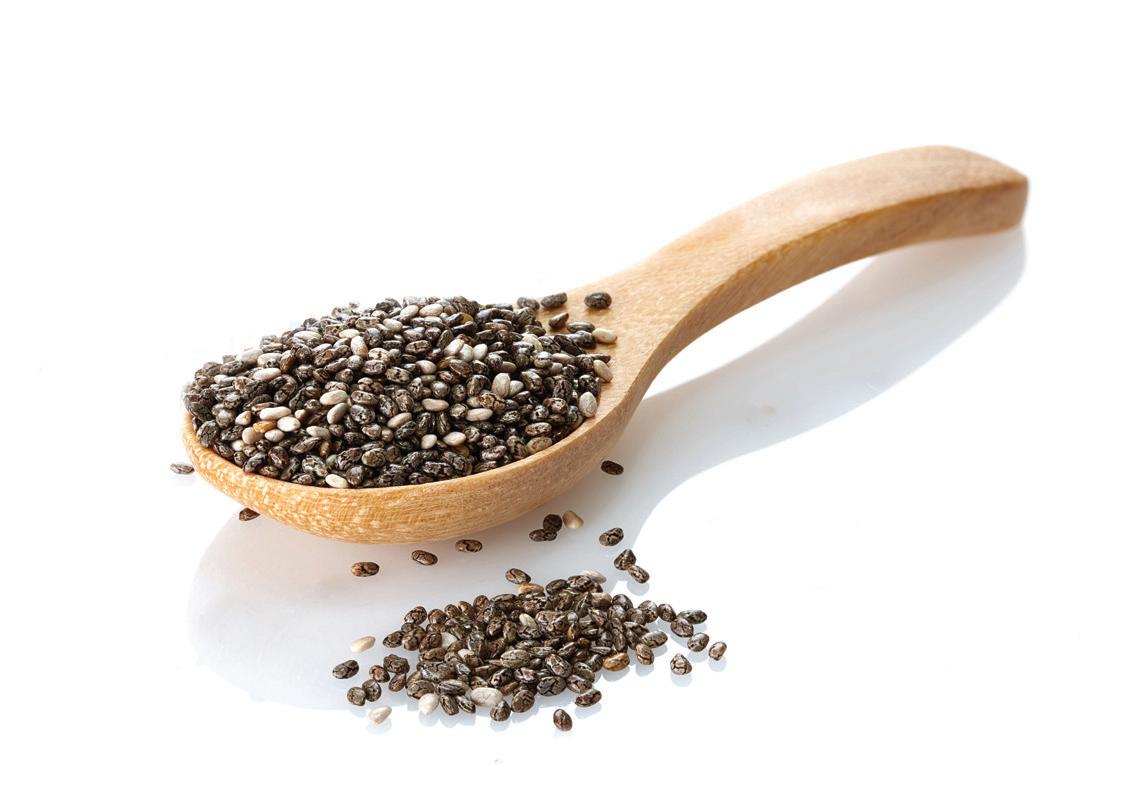
Nutrition 77 ESSENTIAL GUIDE TO AGEING WELL
Improving Bowel Health
Tips to Help Reduce/Prevent





























Diarrhoea



Live Culture
Try taking yoghurt and yoghurt drinks that contain live cultures. Use these a few days







Avoid
● Fatty, greasy, spicy, heavy and pickled foods and nuts.
● Alcohol and caffeine. Swap coffee for herbal teas.
● High sugar drinks, milky drinks and fizzy drinks. Try stirring fizzy drinks to decrease bubbles or leave the cap off the bottle. Diet versions of fizzy drinks may be more easily tolerated than full sugar versions.
Low Fibre



Encourage a low fibre diet temporarily until diarrhoea resolves and then slowly increase fibre over a few days. Appropriate foods include:

● White varieties of breads, crackers, pasta and rice.








● Low fibre cereals e.g. Cornflakes, Rice Krispies, etc.
● Boiled potatoes without skins instead of mashed, roasted, chips, etc.
● Foods that may reduce severity of diarrhoea like bananas, stewed apples, jelly and broth.






REMEMBER
Ensure adequate hydration. You may need at least 2,500ml (2.5litres) daily. Take small sips throughout the day and avoid using straws if possible.
Nutrition 78 ESSENTIAL GUIDE TO AGEING WELL
Practical Tips to Help With a Poor Appetite or Weight Loss
Sometimes as we age, we need to fortify the food we eat with extra calories and extra protein*. Here’s how you can do it easily and without breaking the bank!
Add extra butter: to bread, toast, sandwiches, rolls, scones, crackers and biscuits.
Add extra gravy to: meat, potatoes and vegetables.
Put a dollop of cream on top of: scones, fruit salad, ice cream, jelly and custard and desserts like cakes, pies and crumbles.

Add honey to: bread, toast, scones, porridge, cereals, yoghurt and smoothies (limit the amount or avoid if you have diabetes).


Add 30ml to 40ml of fresh cream to: porridge and cereals, soups, a glass of milk, hot chocolate, smoothies and milkshakes.





Add Nutella or peanut butter to: bread, toast, biscuits and crackers.
Make porridge and cereals with full/ whole fat milk; also try adding sugar or honey before serving for extra calories.







Add extra jam/ marmalade to: bread, toast, and
































Add coleslaw to: sandwiches, salads and jacket potatoes. scones.

Add grated cheese to: sandwiches, toast and rolls, jacket potatoes, cooked vegetables, salads and soup.
Make mashed potatoes using full/ whole fat milk, cream and butter. Encourage greater snacking in between meals; yoghurt, supplements, chocolates, biscuits with butter and jam, crackers or toast (try spreading butter on top before adding the cheese), pastries (again add butter/ jam/marmalade/ honey).
Encourage greater intake of more nourishing drinks like: full/whole fat milk, juices, regular fizzy/mineral drinks (avoid if you have diabetes), hot chocolate or coffee made with hot milk instead of water.

Supplement drinks, if recommended by your GP, dietician or nurse. Smoothies and yoghurt drinks are higher in calories, and some are higher in protein than common drinks like water, tea and coffee. They will also help maintain good hydration.

Nutrition 79 ESSENTIAL GUIDE TO AGEING WELL
*Home Instead recommends you check with your GP before making any significant change to your diet.
The Carer’s Perspective
Cooking Under Pressure
As a family carer, you are under plenty of pressure. A demanding job, a growing family, a busy household and financial obligations can leave you feeling frazzled. Then, add the task of caring for an ageing relative, and you may often feel like you are reaching breaking point. With all of these responsibilities, mealtime can become a real challenge. Without good nutrition, health can deteriorate
Savvy Shopping Tips

Before you think about the types of healthy meals you need to prepare for your ageing loved one, here are some tips to help make your next trip to the grocery store a successful one:
1 Shop With Others. Shopping can sometimes be seen as a chore - make it more sociable by shopping with a good friend or family member.
2 Look for Special Price Offers. Many local butchers, grocers and supermarkets run offers on nourishing, in-season produce.


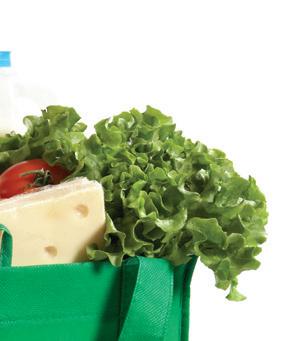

3 Loyalty Cards. Ensure you have a loyalty card for the store(s) you shop in so you can avail of their special offers and promotions.
4 Freezing. When cooking for one it is easy to over-estimate portions. Instead of throwing away the excess food, why not freeze it to use another day?
very quickly, making older adults more susceptible to disease and infection. To help keep older people happy, healthy and independent at home, it is important for family carers to prioritise nutrition when it comes to juggling caregiving duties.
5 Make a Shopping List. Have a standard shopping list with core items such as fresh, frozen and tinned foods that can be stored. This tip can save you both time and money.
6 Don’t Shop Hungry. Shoppers are always tempted to buy more when hungry, so have a snack before hitting the aisles.


7 Think Variety. It’s easy to get in a rut. Don’t be afraid to try new foods and recipes.
8 Try Store Brands. The most costly brands are often placed at eye level. Store own brands, which may be cheaper and just as good, are often placed higher or lower on the grocery shelves.

Nutrition 80 ESSENTIAL GUIDE TO AGEING WELL
How to Increase Appetite at Meal Times
Many factors can lead to poor intake of meals and snacks. Here are some tips that you can use to encourage greater intake during mealtimes:
● Allow extra time for meals as needed.
● Ensure glasses are on, dentures are in, and that hearing aids are in and turned on.
● Place foods within the older person’s field of vision or direct attention.
● Offer a varied diet with many choices that consist of strong flavours, sweet flavours and foods with different tastes, colours, textures and smells.
● Serve one course at a time to keep cold foods cold and warm foods warm.
● Prompts such as giving gentle verbal advice or placing the cutlery or cup in the person’s hand can help. Prompting also helps to maintain dignity and independence - over time it may be necessary to assist with eating.
● Cutting up foods or offering finger foods encourages greater independence and may improve one’s intake.
● Serve small amounts of foods - once eaten, a further portion can always be served.
● Consider offering three smaller meals on a tea-plate with two to three snacks in between, rather than three main meals.
● Fortify food and drink to ensure they are getting as much energy and protein as possible e.g. add extra butter, cream, cheese, gravy, etc.
● Encourage nourishing drinks e.g. milk, milk-based coffee and hot chocolate, yoghurt drinks, smoothies, fruit juices.
● The physical environment should be calm and relaxed - adequate lighting, eliminate noise disturbances, and ensure that there are minimal decorations, so as not to overstimulate the diner.
Tips for eating for people living with dementia
Many older people, and especially people living with dementia, tend to prefer sweeter-tasting foods for different reasons. Therefore, they may consume mostly high calorie but low nutrient foods like cakes or sweets. Here are some tips that you can use to add a sweeter flavour to non-sweet nutritious food to help improve your loved one’s diet.
● Add sweet sauces to bland or savoury meals – cranberry sauce with turkey, mint sauce with lamb, pineapple with ham, barbecue sauce with beef, chicken, pork and sausages. Use sweet sauces with chicken, pork and fish, or add chutney to curry sauces. Offer sweet and sour sauces with all meats, try adding a small amount of honey to potatoes and vegetables, or try adding a small amount of sugar to mince, stews or potatoes.
● Add sweet tastes to sandwiches –apple and cheese on toast, banana on bread/toast, relish with meat sandwiches or Nutella on bread/toast.
● Add honey to porridge, yoghurt, bread/toast or scones.
● Add Nutella to porridge.
● Use naturally sweet foods in dishes, such as carrots, parsnips, sweet potato, red/yellow/orange peppers, sweetcorn and peas. Sweet potatoes can be used instead of regular potatoes for chips and mashed or roasted potatoes.
● Finally, serve meals on a plain, coloured plate so that the food stands out.
Nutrition 81 ESSENTIAL GUIDE TO AGEING WELL


















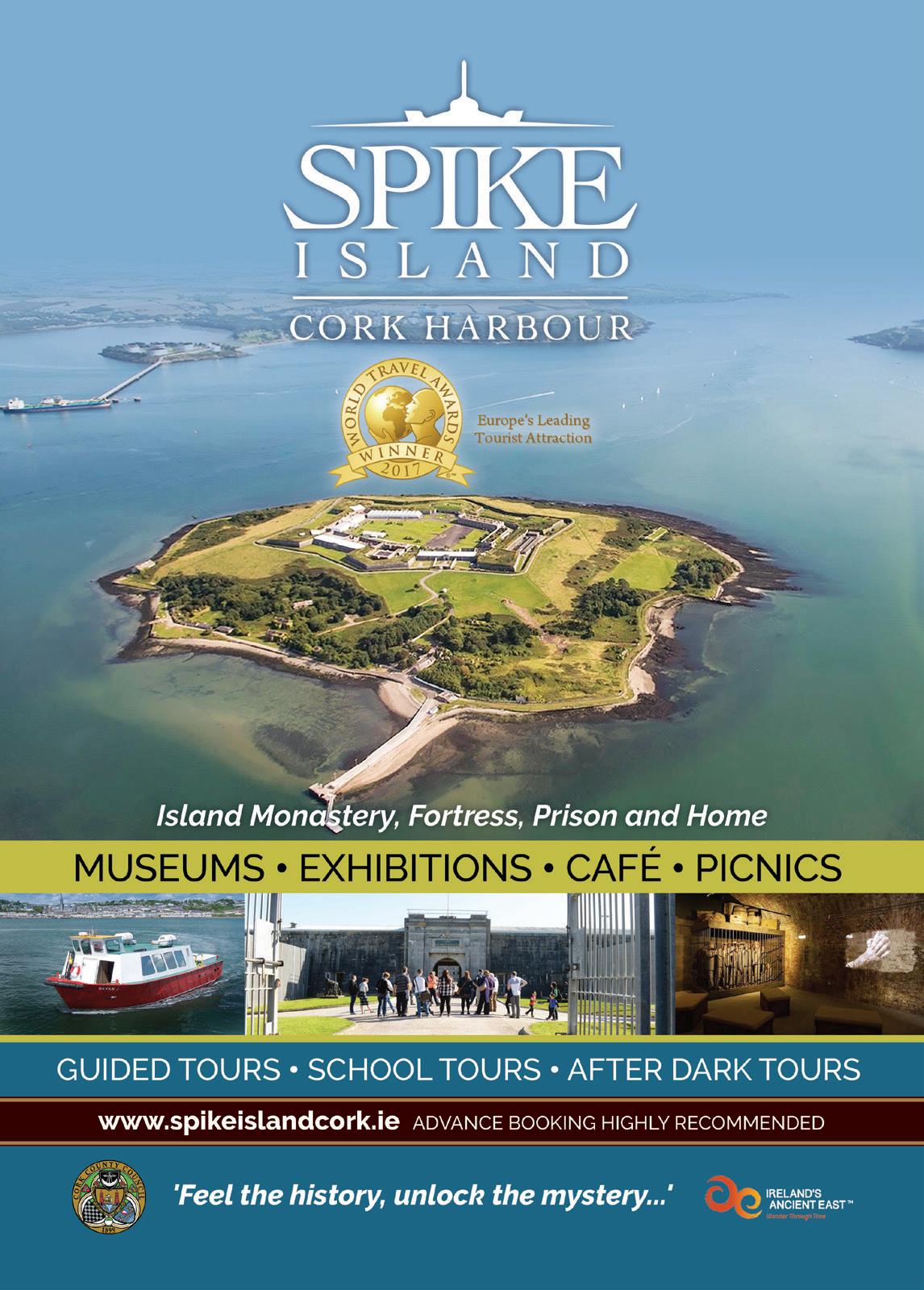
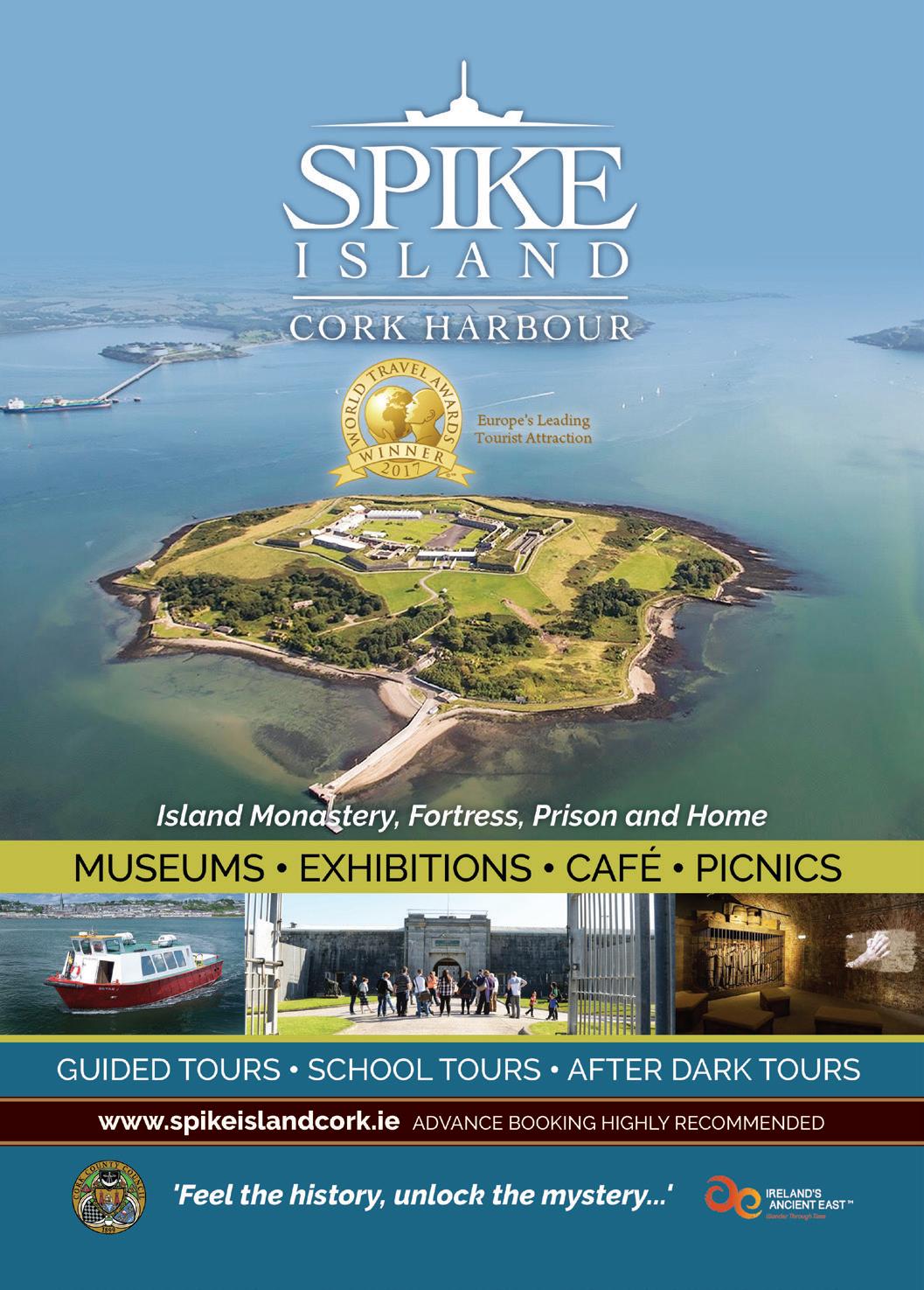

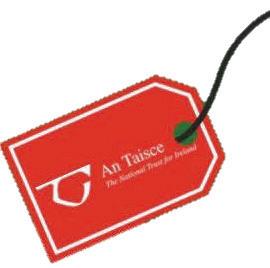




GARDA 100 YEARS Enjoy 10% OFF at Maldron Hotel Limerick 061 436 100 info.limerick@maldronhotels.com maldronhotellimerick.com Southern Ring Road, Roxboro Rd., Limerick, V94 EDP4 BOOK NOW CONGRATULATIONS GARDA 100 YEARS Enjoy 10% OFF at Maldron Hotel Limerick 061 436 100 info.limerick@maldronhotels.com maldronhotellimerick.com Southern Ring Road, Roxboro Rd., Limerick, V94 EDP4 BOOK NOW CONGRATULATIONS GARDA 100 YEARS Enjoy 10% OFF at Maldron Hotel Limerick 061 436 100 info.limerick@maldronhotels.com maldronhotellimerick.com Southern Ring Road, Roxboro Rd., Limerick, V94 EDP4 BOOK NOW CONGRATULATIONS GARDA 100 YEARS Enjoy 10% OFF Maldron Hotel Limerick 061 436 100 info.limerick@maldronhotels.com maldronhotellimerick.com Southern Ring Road, Roxboro Rd., Limerick, V94 EDP4 BOOK NOW CONGRATULATIONS GARDA 100 YEARS Enjoy 10% OFF at Maldron Hotel Limerick 061 436 100 info.limerick@maldronhotels.com maldronhotellimerick.com Southern Ring Road, Roxboro Rd., Limerick, V94 EDP4 BOOK NOW CONGRATULATIONS GARDA 100 YEARS Enjoy 10% OFF at Maldron Hotel Limerick 061 436 100 info.limerick@maldronhotels.com maldronhotellimerick.com Southern Ring Road, Roxboro Rd., Limerick, V94 EDP4 BOOK NOW CONGRATULATIONS GARDA 100 YEARS Enjoy 10% OFF at Maldron Hotel Limerick 100 info.limerick@maldronhotels.com maldronhotellimerick.com Southern Ring Road, Roxboro Rd., Limerick, V94 EDP4 NOW CONGRATULATIONS YOUNG AT HEART CALL NOW OR BOOK ONLINE +353 61 436 100 info.limerick@maldronhotels.com maldronhotellimerick.com 2 Nights Bed & Breakfast Plus Dinner > 2 night stay in one of our spacious newly refurbished bedrooms > Dinner on one evening of your choice > Full access to our leisure facilities, including 20m swimming pool > Free car and coach parking > One complimentary place per 20 paxs Contact us now to design your own perfect stay package FROM €79 PPS *subject to availability 66498 - Active Retirement ad_188x130mm_V02.indd 1 FROM €79 PPS *subject to availability HEART Dinner spacious bedrooms your choice facilities, pool FROM €79 *subject to availability Maldron Hotel & Leisure centre is the ideal location to enjoy all that Limerick has to o er Enjoy two night Bed & Breakfast plus Dinner > 2 night stay in one of our spaciously designed bedrooms > Full access to our leisure facilities, including our 20m swimming pool > Complimentary car parking Contact us now to design your own perfect stay package 252701_4C_Maldron Hotel_Senior Citizen 2023_ND_V3.indd 1 21/11/2022 14:56 Untitled-11 17/01/202014:48:11 0212373455 Discovercaptainsandconvicts, sinnersandsaints www.spikeislandcork.ie Untitled-11 17/01/202014:48:11 ADVANCEBOOKINGHIGHLYRECOMMENDED 0212373455 252916_4C_Spike Island_Senior Citizen 2023_ND_V1.indd 1 19/12/2022 16:20 252916_4C_Spike Island_Senior Citizen 2023_ND_ V1.indd 1 19/12/2022 16:23 A MONTHLY DONATION TODAY, OR A GIFT IN YOUR WILL FOR THE FUTURE MAKES ALL THE DIFFERENCE BECOME A REGULAR GIVER To protect and preserve Ireland’s historical beauty we need champions like you so it can be enjoyed by our children, grandchildren and future generations. Donations totalling €250 per annum or €21 per month mean extra funds for the charity in the form of a tax rebate. VISIT www.antaisce.org/giving LEAVE A GIFT IN YOUR WILL Once you have looked after your loved ones, a gift in your will is a wonderful way to help protect and enhance the landscapes, nature and heritage buildings that so enrich our lives. VISIT CHY 4741 www.antaisce.org/legacies Be The Reason Ireland's Natural & Historical Beauty Is Enjoyed For Generations To Come! looked 252900_4C_An Taisic_Senior Citizen 2023_ND_V1.indd 1 05/12/2022 09:33 For more information and to book your visit check out www.theroundtower.ie FREE ADMISSION ONE TOWER 1,000 YEARS OF HISTORY Experience Eat a hidden gem on the edge of the city lunch at our contemporary style café252893_4C_South Dublin Coco_Senior Citizen Guide 2023_ND_V1.indd 1 29/11/2022 11:24
Community Services
Free and cost-effective services to enhance quality of life
We all need to access different services in the community at different times in our lives. As we age, our focus can turn to health, and in Ireland we’re fortunate enough to have a wide range of services provided by the State, voluntary organisations and private companies, to help us with our care. If you qualify for a medical card you can avail of free nursing services, community care services, technical aids such as wheelchairs and walking sticks, and social services, including specialists in speech therapy and diet. Even if you don’t hold a medical card you may be able to access these services, though medical card holders get priority. The HSE’s Home Support Services (see page 106) are also available to those who need them to return from an acute hospital, or to prevent admission to an acute hospital or long-term residential care. Consumer
Directed Home Support (CDHS) is another approach to the delivery of Home Support Services. CDHS is funded by the HSE in the same way as other home support services, but you decide when you want the care to be provided, what kind of care you get, and which HSE-approved provider delivers the care. In addition to health supports there are a range of other community services available to ageing adults, including housing support, household management and security, and age-friendly education and training. This chapter is designed to help you understand the key community services available in Ireland and show you how to make the most of them. Read on to learn more about the CDHS delivery approach and to find out how a Home Instead client enjoys a better quality of life by adding private hours to their HSE support services.
Consumer Directed Home Care is an approach that facilitates the delivery of relationship-based care

83
ESSENTIAL GUIDE TO AGEING WELL
Meet our Care Manager Jean Gilvarry - the cornerstone of a happy, healthy life at home
We sat down with a top employee at Home Instead Dublin West, to get a behind-the-scenes glimpse into what’s involved in the provision of excellence in private home care services
Home Instead: You’ve been a Care Manager at Home Instead for some years now. What’s been driving the increased need for home care services among Ireland’s ageing adults, and what has Home Instead done to ensure excellence in care provision through the years?
Jean Gilvarry: I have been a Care Manager with Home Instead Dublin West for nearly six years, and in that time, we have seen a significant rise in the need for both HSE Home Support Services, and private home care services. Ireland’s population is ageing. People are living longer than ever before, and will thankfully continue to live longer, so the demand for home care services, which is already growing, will likely continue in the coming years. We have also witnessed first-hand the challenges, the difficulties and the strain family members sometimes experience when caring for an ageing relative while also managing their own family
Home Instead’s professional CAREGivers are trained to a high standard through the local offices and also via the Home Care Professionals Academy
commitments. For instance, some are in full-time employment and have young children, and there’s only so much time in the day!
So they reach out to Home Instead, and work with us to tailor a plan of care to meet the needs of their loved ones at times when they may find it difficult to be available. This gives family members the peace of mind that their relative is being looked after while also allowing them to spend quality time with their own families.
While we provide non-medical services, Home Instead’s professional CAREGivers are trained to a high standard through the local offices and also via the Home Care Professionals Academy. They are equipped with the skills to deal with an increasingly wide range of care needs, for example, personal care, catheter care and stoma care to mention a few, to more complex care needs like Palliative Care and Dementia Care.
We pride ourselves in being Dementia Care specialists. Our professional CAREGivers can access the City & Guilds accredited Dementia Care Training via our Home Care Professionals Academy. At the end of this course, our CAREGivers will be trained to ensure their clients are receiving the best possible care at home.
84
ESSENTIAL GUIDE TO AGEING WELL
Community Services
It also provides the CAREGivers with the skills to deal with challenges that are associated with Dementia.
A trained and dedicated team of CAREGivers allows clients to remain in their own homes for as long as possible. After all, home is where our older people want to be. It is where there is that huge sense of safety and comfort, surrounded by a lifetime of memories.
Home Instead: Home Instead’s quality managed care services are only possible because of the strength of the local office teams. Give us an idea of what happens behind the scenes within the office, in the delivery of excellence in home care services.
Jean Gilvarry: All our office staff have had either personal or professional experience in caring for others. This allows our team to relate to our clients better and on a personal level. Home Instead has built up a strong reputation in the wider community in providing excellence in home care services, from the initial phone or online enquiry right through to the client’s home care journey with us. This is achieved by working together as a team and this is vital in the delivery of our unique home care services.
Our HR/ Recruitment department – Lisa, Karolina and Tina, provide excellence in the smooth onboarding journey of new CAREGivers. They continue to be a huge pillar of support to our CAREGivers throughout their journey with Home Instead, encouraging both professional and personal growth.
We also provide a top-quality CAREGiver Induction programme for new CAREGivers and we deliver additional training for our existing CAREGivers, so they can deliver more complex care needs.
Our Care Managers – Jeni and Vickey, act in the best interests of our clients by providing excellent relationship-based care. They work closely with clients and family members to devise individualised care plans to meet the needs of each client.
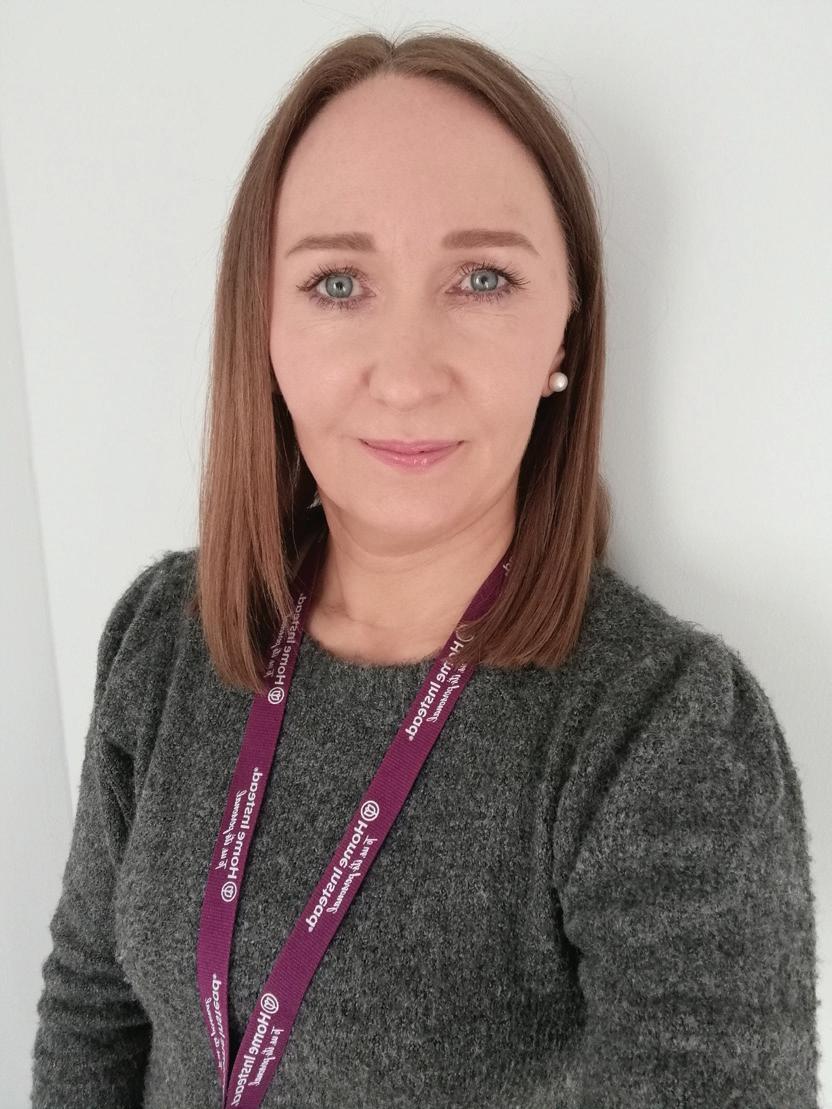
They also ensure that the correct systems are in place to monitor quality and performance through regular communication with clients and CAREGivers and performing regular Quality Assurance and Supervision visits. We strive on a daily basis to improve the service we are providing to enhance the lives of those we care for and their families.
The immense work from the scheduling department –Grace, Sinead, Emma, Sam and Ciara – is also critical and they are pivotal in the smooth delivery of allocating care time to our clients in advance to ensure all calls are covered. They work closely with the Care Management team
85
ESSENTIAL GUIDE TO AGEING WELL
Community Services
Community Services
their clients
to ensure our clients are matched with the most suitable CAREGiver.
Our dedicated on-call service team –Tina, Elizabeth and Ciara, with back up from our scheduling team, are on hand to deal with any emergency situations or issues/concerns from clients or CAREGivers outside of normal working hours. This includes evenings and weekends. Home care is not a ‘MondayFriday 9-5’ job. Our clients require care around the clock.
We could not get through each day without the amazing support from our senior management team – our Operations Manager Heather Musgrave and Managing Director Páraic Curtis. We have lots of laughter and fun, some tears along the way, but the hugs and cups of tea together make each day easier!!
With great communication, working together, and a sense of family within our team, we achieve our end goal and that is helping others – some of whom are among the most vulnerable in our society. Together, everyone achieves more.
Home Instead: Your frontline staff – your CAREGivers – are the lifeblood of your operation. How would you describe your caregiving team? What would you say about their efforts during the Covid-19 pandemic? How do you reward them for their amazing work?
Jean Gilvarry: I may be biased, but our CAREGivers are special. We have a
wonderful CAREGiver team and I could not be prouder of each and every one of them. They are truly inspirational and prove this on a daily basis, and it became even more evident during the Covid-19 pandemic. They surpassed all our expectations.
We have CAREGivers still working with us that joined the company when our doors opened nearly six years ago. This is a testament to not only their commitment to their professional role but also to the office staff for the huge support given to the CAREGivers encouraging and helping them to be the best they can be.
They went above and beyond for their clients and their families and committed to continuing to provide a high level of service at a time that was very uncertain. They were selfless, professional, brave and committed and their dedication increased the bond with the office team. We would not have gotten through the last few years without them.
We reward our CAREGivers for their amazing work in several different ways. We base this on feedback gathered during focused groups, appraisals, supervisions, support sessions and our annual survey. Our reward packages can be financial or non-financial.
Financial
• CAREGiver of the Month Award, voucher, framed certificate and a beautiful bunch of flowers/box of chocolates
• Above and Beyond Award
• Refer a Friend Scheme
• Free Care Skills and Care of the Older Person Training
• City & Guilds Dementia Training
• First Aid awareness sessions
• MND awareness sessions
• Free people moving and handling training
86
ESSENTIAL GUIDE TO AGEING WELL
They went above and beyond for
and their families and committed to continuing to provide a high level of service at a time that was very uncertain.
• Bike-to-work scheme
• Christmas bonus
• Christmas party
• Halloween competition
• Easter Eggs for all CAREGivers
Non-financial
• Open-door policy
• Weekly support calls for new starters
• Regular support sessions for existing CAREGivers in dealing with difficult/ challenging situations/Palliative/ End of life care
• Dementia information sessions with a Dementia Care Specialist
• Focus groups
• Support in assisting CAREGivers in achieving the two mandatory modules for Care Skills and Care of the Older Person
• Counselling service
• One-to-one mentoring and coaching when required
Home Instead: What would you say to someone considering a career in home care? Why should they go for it, and why should they work for Home Instead?
Jean Gilvarry: If you are a caring or compassionate person and have experience in caring for others in either a personal or professional capacity, I’d encourage you to reach out to one of our team to begin your journey with our Home Instead family. We are Ireland’s leading home care provider operating in 25 offices in Ireland, so there are opportunities to join us wherever you might live.
We have a comprehensive 20-hour CAREGiver Induction Programme, continuous in-house training, continuous support in your journey with us on a daily basis, competitive pay rates and
rewards packages, flexibility allowing work/ life balance, live-in service and career progression.
Home Instead: What makes Home Instead the top private home care service provider in Ireland? What does ‘To us, it’s personal’, mean to you?
Jean Gilvarry: We provide relationship-based care - a truly person-centred approach, tailoring care plans to meet the individual needs of our clients. Our mission statement is to enhance the lives of ageing adults and their families all around Ireland, and help them to live happy and independent lives.
We treat our clients with the utmost dignity and respect – just as we would treat our own families. We get to know our clients and their family members by actively listening to what their needs are and what is important to them. ‘To us, it’s personal’ rings true here. It confirms why Home Instead is the leading home care provider in Ireland and sets us above the rest.
I look forward to being part of the Home Instead team for a long time to come, enhancing the lives of our ageing population and supporting the growth and development of our amazing CAREGivers. It is exciting to see what is in store for Home Instead in the coming months and years as we strive to improve and develop our services and provide excellence in care to our beloved clients.
We treat our clients with the utmost dignity and respect – just as we would treat our own families. We get to know our clients and their family members by actively listening to what their needs are and what is important to them.
87
ESSENTIAL GUIDE TO AGEING WELL
Community Services
Community Services


Health Services



The Health Service Executive (HSE) has responsibility for the delivery of public health, community and home care supports at local levels in Ireland. Public health nurses provide an essential link for carers, particularly around referrals to other therapies and home care supports.
Public Health
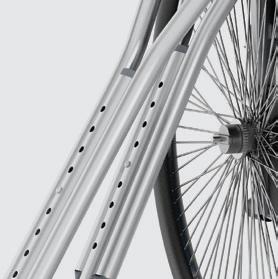
Public health services provided in the community in Ireland are sometimes referred to as ‘community care services’. They are generally provided by the HSE. Community care services may also be provided in conjunction with, or on behalf of, the HSE. Entitlement to community care services is not clear-cut and the level of services available in the different parts of the country varies. In general, medical
Technical Aids


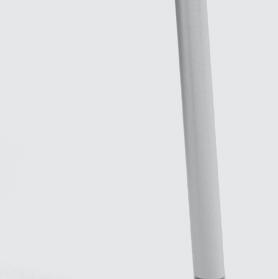

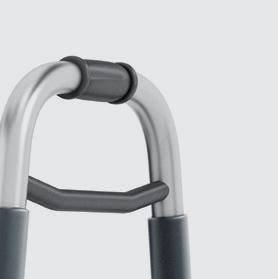







The HSE is obliged to provide medical and surgical aids and appliances such as wheelchairs and walking aids free of charge to medical card holders. If you do not have a medical card, you may get such aids and appliances free if they are part of your hospital treatment. In other cases, the HSE may provide some help with the costs. If you have private health insurance, you may be covered for some or all of the costs.
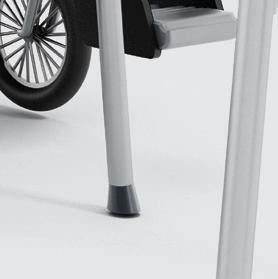
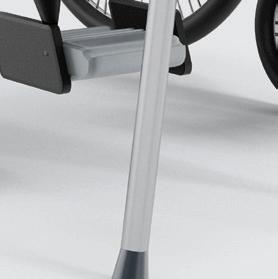



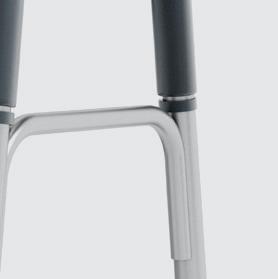
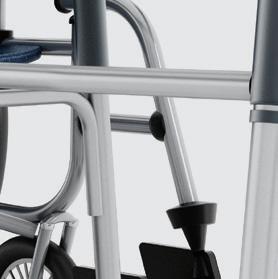
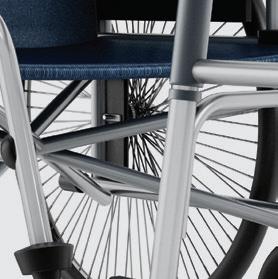
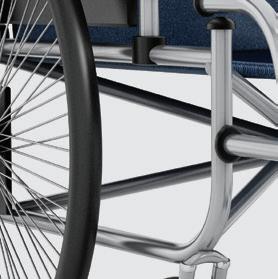
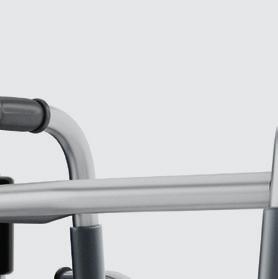
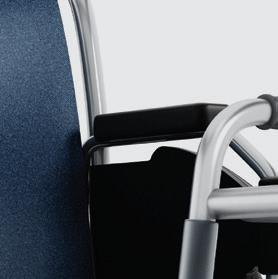


card holders are entitled to community care services free of charge. Non-medical holders may also be entitled, but it is not always possible to access the services.
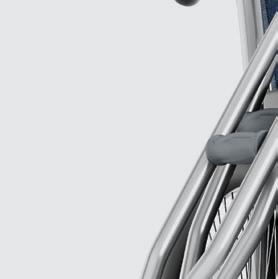
Community Care
Community care services can include the public health nursing service, home help service, physiotherapy, occupational therapy, chiropody service, day care and respite care service. Rules to access different community care services can vary. In some cases, the HSE is obliged to provide services, while the HSE has the discretion about whether to make other services available or not. One of the reasons for this is that the health services provided by the HSE reflect the population in the area in which you live.
88
ESSENTIAL GUIDE TO AGEING WELL
Physiotherapy
Physiotherapy services are generally provided in the community and are generally free to medical card holders. Waiting lists exist in many areas. Home services are only available in a small number of cases.
Occupational Therapists
Occupational therapists are employed by most local health offices. Their services are generally available free to medical card holders. Waiting lists exist in most community care areas for these services.
Chiropody Services
Chiropody services are available free to medical card holders in most community care areas. Chiropodists treat a wide variety of foot and lower limb conditions, from verrucas to arthritis.
Respite Care
Respite care or temporary care may be based in the community or in an institution. In practice, respite care is provided to a varying degree at a number of locations around the country - in some cases by the HSE and in others by voluntary organisations or private providers such as Home Instead.
Other Services
Other community care services include social workers (there is a small number of specialist social workers for older people), speech therapists and dieticians.
Community Services
Meals Services

Meals services are generally provided by a mixture of voluntary and statutory bodies. Eligibility conditions vary from area to area and the ways in which these are provided vary from area to area. You may be asked to contribute towards the cost of meals services and this cost may also vary. Access to meals services is generally by referral.
Day Centres
Day centres include centres that provide day activities such as recreational, sport and leisure facilities and specialised clinic facilities that provide a combination of medical and vocational rehabilitation services. They are provided on a variable basis throughout the country, some funded by the HSE and others funded by voluntary organisations. Day centres providing medical care are less widely available and funded by the HSE. Access to day centres is by referral and the eligibility conditions vary from area to area, with means testing applying in some cases.
89
ESSENTIAL GUIDE TO AGEING WELL
Community Services
Public Health Nurses
The HSE is obliged to provide a free nursing service to medical card holders. It is not confined to medical card holders but they get priority. Public health nurses supply many basic nursing and medical needs and a number of special services are provided in some community care areas. These include night nursing, day nursing, weekend nursing and twilight nursing. The services provided by the public health nurses vary from area to area and they frequently act as a point of access for other community care services. Their services are free to all people aged over 65 and to those with a long term illness. Some local health offices employ care assistants as a backup to the public health nursing service. The role of the care assistant is to provide personal care rather than domestic services, but there is some overlap between what they do and what home helps do.
Home Support Services
The HSE’s Home Support Services are individualised packages of community-based services and supports provided to enable people, assessed as needing such supports, to return home from an acute hospital or to prevent admission to an acute hospital or longer residential care setting. Home Support Services comprise of services and supports such as community health nursing, therapy services, home help services and access to both day and respite care. Packages are by their nature flexible and tailored to the individual and the changing care needs of the recipient, taking account of his or her particular circumstances.
As a preferred HSE care provider, you’ll have the option to choose Home Instead from a list of service providers in your area, set up a detailed care consultation and enjoy our outstanding care services free of charge. If you find that you’d like more hours than the HSE provides, you can easily enhance your package, by paying privately for extra hours and availing of tax relief on the costs (see page 137).
For further information on Home Support Services, contact your local health office or public health nurse.
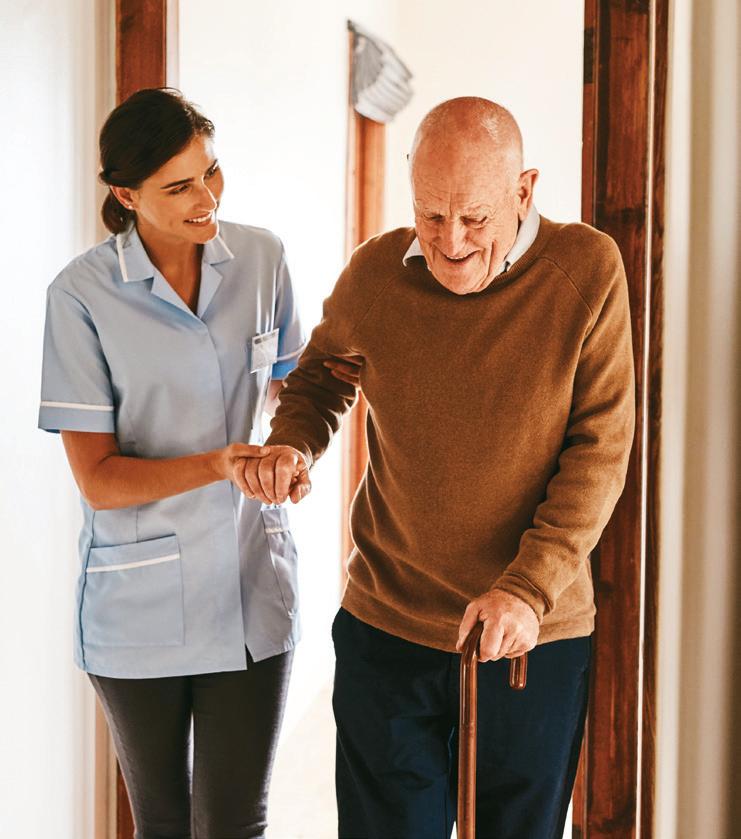
90
ESSENTIAL GUIDE TO AGEING WELL
Relationship-based care
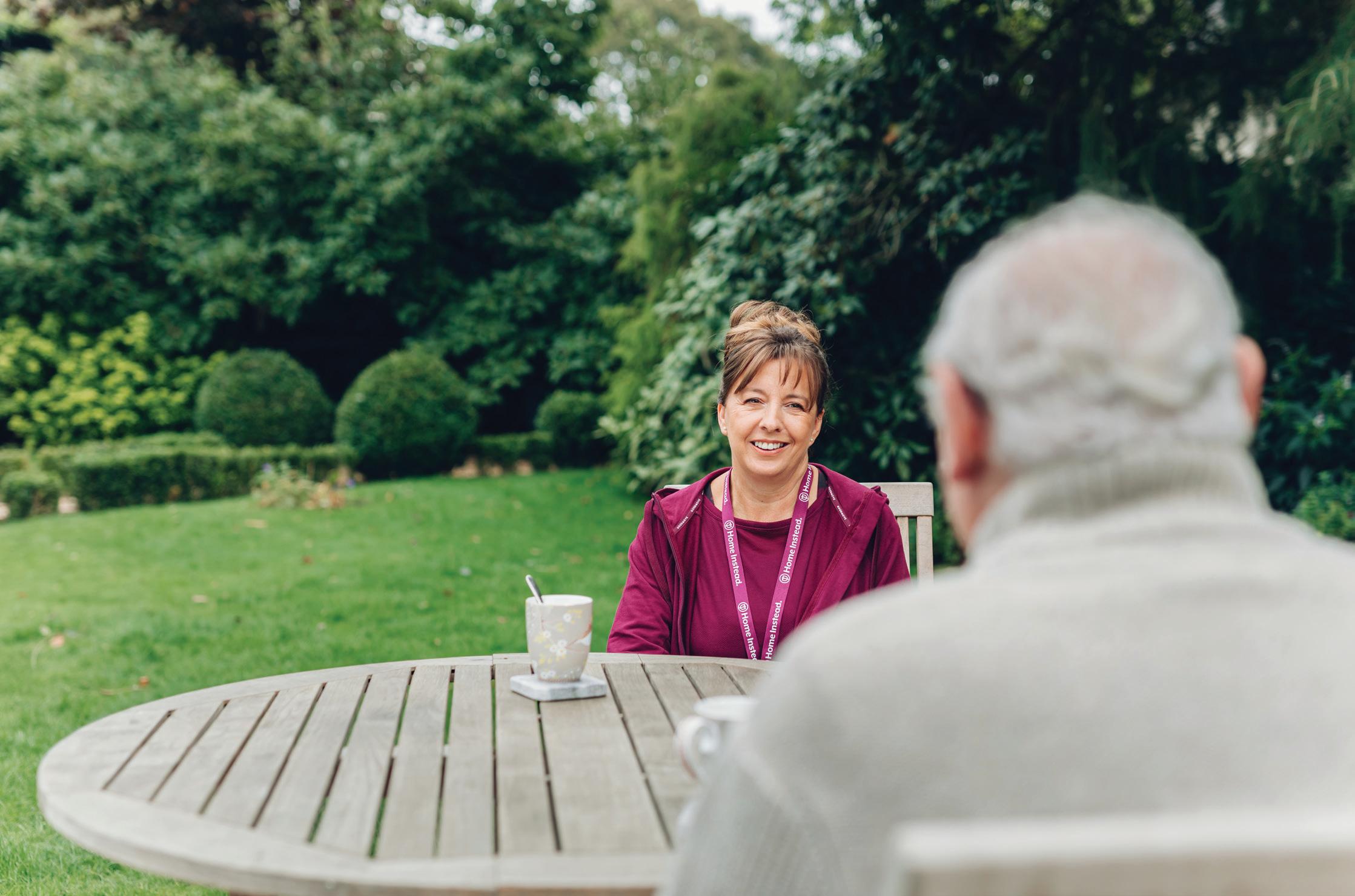
Community Services
Our HSE care plan meant that as a family we were getting five hours per week granted to assist with dressing and showering Dad. But we also needed someone to be there with him as company during the day; just to have someone to talk to while we were out working. We figured that getting block hours privately would give us as a family the flexibility and peace of mind that we needed. All of a sudden Dad was active, not just sitting on his chair from morning until night, we knew that he was safe and doing things that he enjoyed. He went to the shops with the CAREGivers, drove out around the land, went for walks and to Mass during the day. The neighbours even say they see him out and about, safe and supervised, it brought the spark back in his eye and that laugh, his big, big laugh; as big as his personality and character before the dementia. We are so grateful to the Home Instead team who have helped to give him back that quality of life and spark we missed.
Home Instead Client Family, Galway
91
ESSENTIAL GUIDE TO AGEING WELL
“Additional hours brought back the spark in Dad’s eye”
Housing Support
Housing Aid for Older Persons Scheme
The Housing Aid for Older Persons Scheme is for improving the living conditions of older people by carrying out minor repairs to the main areas of an older person’s home. In general, it is aimed at people who are 66 years of age and older. However, in cases of genuine hardship, the local authority may assist people under age 66. The type of work that will be grant-aided includes structural repairs or improvements, re-wiring, repair or replacement of windows and doors, and the provision of water, sanitary services, heating, cleaning and painting. The maximum grant available under the Housing Aid for Older People Scheme is €8,000, which may cover 95% of the approved cost of works. This maximum grant of 95% is available to people with annual household incomes of less than €30,000, tapering to 30% for those with annual household incomes of €50,001 to €60,000. Contact the Housing Section of your local authority for more information about the eligibility rules in your area, which may differ from those in other local authority areas.
Mobility Aids Grant Scheme
The Mobility Aids Grant Scheme provides grants for works designed to address mobility problems in the home, such as the purchase and installation of grab-rails, a level access shower, access ramps or a stair-lift. It is primarily for older people, but people with a disability can also access the scheme. The grant is available to people with a maximum household income less than €30,000. The maximum grant available is €6,000 and may cover 100% of the cost of the work. Contact your local authority for more information.
Housing Adaptation Grant
A housing adaptation grant is available where changes need to be made to a home to make it suitable for a person with a physical, sensory or intellectual disability, or mental health difficulty, to live in. The grant can help you to make changes and adaptations to your home, for example, making it wheelchairaccessible, extending it to create more space, adding a ground-floor bathroom or toilet, or a stair-lift. In some cases, the provision of heating can be included, but only under certain conditions. Priority will be given to people on medical grounds. If your household income is less than €30,000 you may qualify for 95% of the cost of the works (up to the maximum grant amount of €30,000). The proportion of the costs to be grant-aided will be tapered from 95% down to 30%, depending on your income. Contact the Housing Department of your local authority for further information and an application form.
92
ESSENTIAL GUIDE TO AGEING WELL
Community Services
Maximum yearly Household Income % of costs Maximum grant Up to €30,000 95% €8,000 €30,000 - €35,000 85% €6,800 €35,001€40,000 75% €6,000 €40,001 - €50,000 50% €4,000 €50,001 - €60,000 30% €2,400 Over €60,000 No grant payable
Social OptionsHousing
Local Authority Housing
Some local authorities provide special accommodation for older people, usually community accommodation with special security features such as wardens and security cameras. Each local authority allocates housing in accordance with its own housing allocation scheme (formerly known as schemes of letting priorities). Age limits for older people’s accommodation can vary from one local authority’s housing allocation scheme to another.
Voluntary Housing
Voluntary housing organisations provide housing in a similar way to local authorities. They provide two types of housing for older people: group schemes and sheltered housing. They have some discretion about whom they house, but most of their housing is assigned in consultation with the local authority. Tenants in sheltered housing pay rent and may qualify for rent supplement. Rent Supplement is paid to people living in private rented accommodation who cannot provide for the cost of their accommodation from their own resources. The amount of Rent Supplement you get will be calculated to ensure that your income after paying rent does not fall below a minimum level.
Seniors Alert Scheme
The Seniors Alert Scheme provides grant support for the supply of equipment to enable older people without sufficient means to continue to live securely in their homes. The grant scheme is run by Pobal and the grant assistance is made available through community and voluntary groups registered with Pobal. To be eligible you must be: aged 65 or over and of limited means or resources; living alone or with someone who also meets the eligibility criteria; living in the area covered by the community group administering the grant support; able to benefit from the equipment being supplied; willing to maintain contact with the community group.
For more information
Contact the Seniors Alert Scheme in Pobal
Tel: (01) 511 7222
Email: onlinesupport@pobal.ie
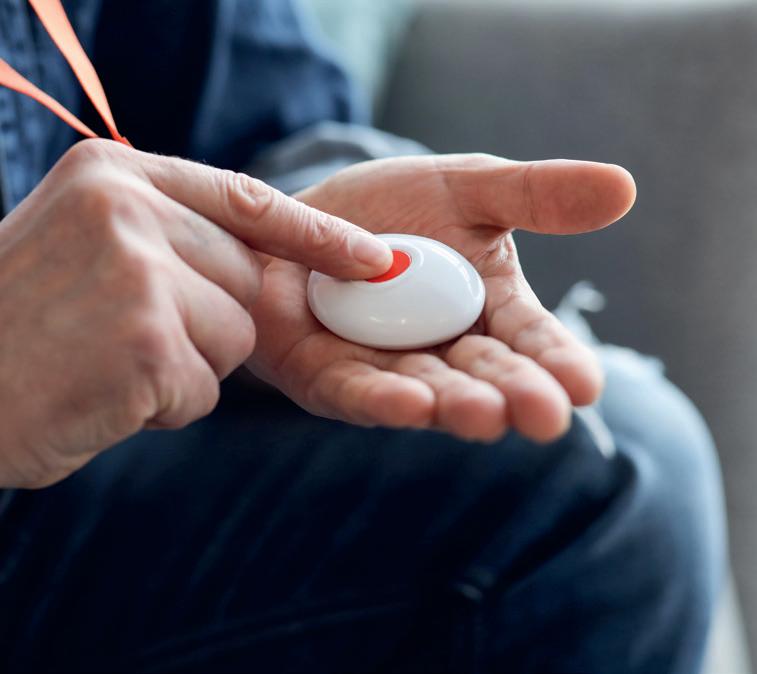
93 Community
ESSENTIAL GUIDE TO AGEING WELL
Services
Community Services
Household Management & Security
Recent winters in Ireland have been severe, with flooding, snow, ice and freezing temperatures lasting for several weeks. Here are some tips to help you get through the winter safely.

● Listen to the weather forecasts.
● Stay Indoors if possible when the weather is bad.
● Be Extra Careful if you must walk on icy paths or roads.
● Buy Salt to put on the footpaths near your home. Salt helps to melt ice.
● Keep in Contact with your friends, family and neighbours.
● Before winter sets in, get your boiler and pipes checked by a qualified plumber and keep their phone number handy in case of heating or plumbing problems. If you use natural gas, always use a Registered Gas Installer.
● Try to Keep Some Money for Extra Fuel. Or, if you feel you won’t have enough money for heating, contact the Money Advice and Budgeting Service
(MABS), which can help you plan a budget.
● Buy Extra Groceries when you do your weekly shopping in case you can’t get back to the shop for a while because of bad weather.
● Keep a Torch Beside your Bed and in your living room in case of power cuts. Check the batteries regularly.
For more information
ESB Networks 1800 372 757 to see when your electricity will be restored.
Phone Bord Gais Networks on 1800 464 464 to see when your natural gas may be restored.
More useful information is available at www.winterready.ie
94
ESSENTIAL GUIDE TO
AGEING WELL
Better Energy Warmer Homes Scheme
If you can’t afford to keep your home warm and comfortable or to pay your fuel and electricity bills, you may be eligible for the Better Energy Warmer Homes scheme. Through this scheme, a range of energy-saving measures may be installed in your home, at no cost to you. These measures include: draught-proofing; attic insulation; lagging jackets for hot water tanks; low energy light bulbs; and wall insulation - including cavity wall, internal wall and external wall insulation. Energy advice is also provided as part of this service.
To qualify for this scheme you must meet these criteria:
• You must own your home and be living in it
• Your home must have been built and occupied before 2006
• Your home must have a BER of C,D,E,F or G
• You must be getting one of the following social welfare payments:
• Fuel Allowance as part of the National Fuel Schemew
• Working Family Payment
• Jobseeker’s Allowance for over 6 months and have a child aged under 7
• Disability Allowance for over 6 months and have a child aged under 7
• Domiciliary Care Allowance
• One Parent Family Payment
• Carer’s Allowance and you must live with the person you care for
Diffi culty Paying Fuel Bills
Rising prices mean people may be struggling to pay for everyday Items. Budget 2023 contained a series of short-term measures to help people with the cost of living. Electricity account credit will be provided and €600 credit will be paid to your electricity account in three installments, the final one taking place in March 2023. A range of payments are made to older people by the Department of Social Protection (DSP) and the Health Service Executive. If you are unsure whether or not you would qualify for a payment, you should apply anyway. Generally, payments are made up of a personal payment for yourself and extra amounts for your dependent spouse, civil partner or cohabitant and any dependent children. A cohabitant is a person living in an intimate and committed relationship with a person of the same or opposite sex who is not that person’s spouse, civil partner, or a close relative. You should apply to the Department of Social Protection for your pension at least 3 months in advance. If you are finding it hard to pay your fuel bills, contact your gas or electricity supplier straight away. All suppliers off er different ways to pay. You should be able to agree a payment plan that you can afford with your supplier. It is also worth remembering that your gas or electricity will not be turned off between November and March for non-payment of bills if you are: registered on the industry Special Services Register; aged 66 years or over; living alone or with another older person; living with a child under the age of 18. To find out if you are eligible for the register, please contact your electricity or gas supplier directly. Your electricity supply will also not be cut off if you are on the register or you rely on kidney dialysis or oxygen machines at home. If there is an unexpected power failure in the network, your electricity supplier will make restoring your electricity a priority.
95 Community
ESSENTIAL GUIDE TO AGEING WELL
Services
Community Services
Training
Note: If you don’t have a BER for your home, the SEAI will do a free BER to check that your home meets the qualifying criteria of having a BER of C or lower.
The Better Energy Warmer Homes scheme is run by the Sustainable Energy Authority of Ireland (SEAI) and delivered through community organisations and private contractors appointed by SEAI. Please note that the energy measures listed above and the eligibility criteria for the scheme may change.
Prepayment and Pay-asyou-go Meters
If you are having difficulty managing your energy bills, your electricity or natural gas supplier may be able to install a prepayment or pay-as-you-go meter in your home. These meters let you pay for small amounts of energy before using it. You simply buy credit from a selection of newsagents nationwide and put it into the meter, a bit like the way you might buy credit for a pay-as-you-go mobile phone. This system can help you to manage your energy budget, avoid a larger energy bill every two months, and avoid building up debt. However, while a prepayment meter can help you to budget for your electricity or gas needs, you should check whether it is suitable for you. If you are eligible for the Special Services Register (which protects your home from disconnection), it is better to stay on that register and pay your bill in the normal way.
Further Education for ageing adults
There is a range of full-time and parttime courses available to Ireland’s ageing adults.
● The Further Education & Training Course Hub (www.fetchcourses.ie) is a valuable source of information for those who wish to pursue a course of training or education on a variety of subjects. All of the courses are open to older people, and the community education courses are particularly popular with retired citizens, especially those that focus on the use of mobile and new and emerging communications technologies.
● The Back to Education Initiative provides part-time further education programmes for young people and adults. It aims to give participants an opportunity to combine a return to learning with family, work and other responsibilities. Programmes are offered in partnership with a number of agencies throughout the country on a flexible part-time basis. Classes are offered throughout the year in the morning, afternoons, evenings or weekends. Courses lead to a range of accreditation at levels 1-6 on the NFQ.
● NFQ Adult Literacy programmes are provided to people inside and outside of the labour force who want to improve their communication skills in the areas of reading, writing, and numeracy, as well as information technology. Programmes are typically delivered for 2-4 hours per week during the academic year.
96
ESSENTIAL GUIDE TO AGEING WELL
● Part-time Evening Courses of typically 30 hours duration over 10 weeks provide short up-skilling modules for both unemployed and employed persons. Examples of courses include Welding TIG, Interior Design, ECDL, CAD, Door Security, Supervisory Management, and Start Your Own Business. Courses generally lead to accreditation at levels 4-6 on the NFQ or certification from a recognised industry accrediting body.
● Aontas advocates and lobbies for the development of a quality service for adult learners, promotes the value and benefits of adult learning, and builds organisational capacity. Membership is open to all organisations, groups and individuals interested in the promotion or advancement of adult education.

● Community Education is adult learning which takes place in local community settings across Ireland. It is learner-centred and responds to the needs of the local community. The Community Education Network (CEN) was established by Aontas in 2007. It is a network of over 100 independently-managed community education providers who work collaboratively, sharing information and resources, engaging in professional development, and working to ensure that community education is valued and resourced.
Community Services
Community Education Courses
A wide range of courses are available via community education, including courses leading to accreditation from Level 3–8 on the NFQ, formal and nonformal courses which are not accredited, short introductory courses and full-time yearlong programmes. Community education is delivered all over Ireland by a range of providers, including independently managed not for profit groups and statutory organisations. It takes place in a wide variety of community settings, resource centres, and voluntary organisations.
Community Education
Facilitators work within the Education and Training Boards (ETBs) to give support to local community groups. This includes giving technical/administrative help, supporting the development, maintenance and co-ordination of community education groups, and strengthening links between the formal and non-formal education sectors. They assist and support the development of new communitybased educational initiatives. The community education services operate within the ETBs and give support services to community groups who are interested in community education.
97
ESSENTIAL GUIDE TO AGEING WELL
Consumer Directed Home Support Your Care, Your Choice
What is Consumer Directed Home Support?
Consumer Directed
Home Support (CDHS) is funded by the HSE in the same way as other home support services, but you decide when you want the care to be provided, and what kind of care you get. If you or your loved one needs Home Support Services, CDHS allows you to choose the services according to your needs and lifestyle, so you get the support you need, when you need it most. This gives families additional peace of mind, while care recipients can enjoy greater care outcomes through this flexible approach.
How Does it Work? When you apply for home support in the hospital or in your home, the HSE may offer to provide you with support with certain tasks, which will help you to return or remain at home. The number of hours and the type of care you will receive are determined through an assessment by the hospital social worker or your local public health nurse. By choosing the CDHS model, approved clients and/or their families can ensure that HSE-funded care is delivered in a way that suits the care recipient. If you choose the CDHS model, we can advise you or your loved one on the best way to use your allocated hours, and you make the final decision. This can lead to an enhanced care outcome, as the scenarios to the right show.
Talk to your Home Instead Care Manager today, to find out how your loved one can get a better say in their care delivery, improved continuity of care and enhanced care outcomes.
Scenario 1
Jack has been approved for 5 hours per week of Home Support Services, to be delivered under the traditional model. The care schedule is set for Monday to Friday, in half hour sessions, one from 9am-9.30am, and one from 4.30pm to 5pm. Care is delivered by a number of different carers during the week, based on their availability. The carers have a very limited time to carry out the tasks required. There is little time to build a rapport with Jack, and different carers coming twice a day limit continuity of care. In this scenario, while the necessary tasks are completed, it is difficult to achieve the level of relationship-based care that Home Instead knows to be most effective.
Scenario 2
Mary has also been approved for 5 hours per week of Home Support Services, but she has chosen the CDHS approach. Mary’s daughter Kathy happens to be free on Mondays and Tuesdays, and her son Cormac is free on Fridays, and can help out with Mary’s care. Neither is available to help out at the weekend. After a free, no-obligation care consultation with Home Instead, the family felt that Mary’s care outcomes would be better if Kathy and Cormac helped out on Monday, Tuesday and Friday, and a Home Instead CAREGiver helped for two hours on Wednesday, two hours on Thursday, and an hour on Saturday. Jane from Home Instead gives Mary consistent, relationship-based care which is delivered to Home Instead’s high standards and funded by the HSE. Mary looks forward to Jane’s visit.
98 Community Services ESSENTIAL GUIDE TO AGEING WELL
Transport
Community Services
HSE Services
Transport services are provided by the Health Service Executive (HSE) on a varying basis throughout the country. These services include access to day hospitals and day centres and access to outpatient departments and other hospital services. For more detailed information on routes and schedules for your area, please contact your public health nurse.
Independent Transport Operators
● Dignity Ireland, formerly Accessible Community Transport (Acts) provides door-to-door accessible transport for people with disabilities and mobility difficulties across south and west Dublin. All Dignity Ireland vehicles are specially

adapted with an Innotrax flooring system, Ricon lifts at the rear, and have the capacity for up to three wheelchairs. Dignity Ireland offers a sevenday service, starting from 7am and running until 10pm, with minibuses operating locally in areas from Dún Laoghaire to Tallaght/Clondalkin, from Monday to Friday, and up to three accessible buses available for booking in the evenings and weekends. An after hours service is also available upon request.
● Vantastic is a not-forprofit Irish charity that offers accessible and affordable transport services to people with disabilities, citizens (65+) with mobility impairments, and not-for-profit groups. Vantastic is supported by the Department of Rural and Community Development and Pobal through the Community Services Programme.
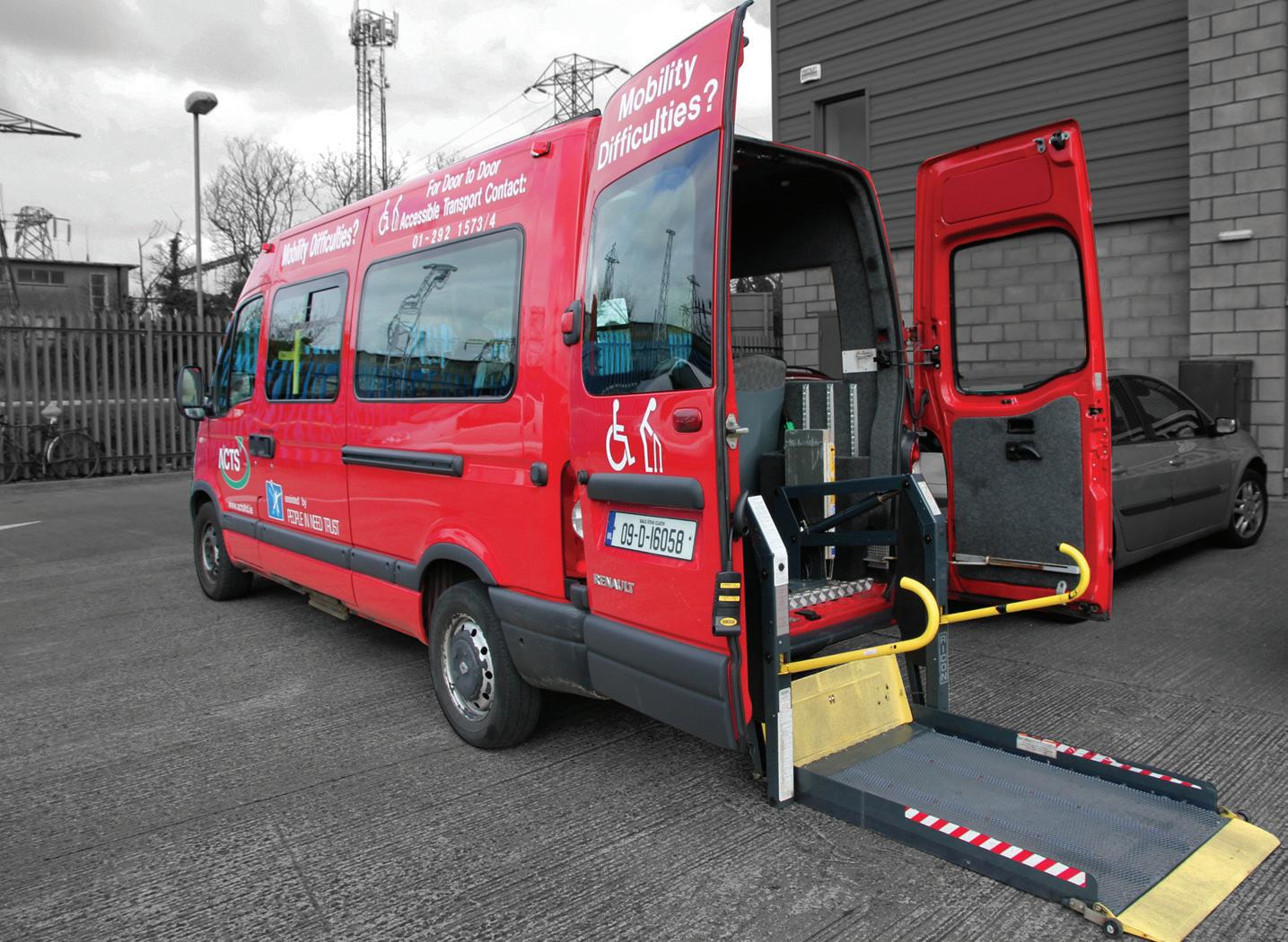
99
ESSENTIAL GUIDE TO AGEING WELL
Friends of the Elderly works hard to provide a wide range of social programmes for older people who would benefit from a friendly chat or a social outing. With the help of our many dedicated volunteers and donors we provide companionship, support, social engagement, inter-generational activities and community-based services.
Would you like the opportunity to make a di erence in your community?

There are lots of ways to get involved in Friends of the Elderly and as a volunteer-based organisation, the success of all our programmes depend on the goodwill of our volunteers.

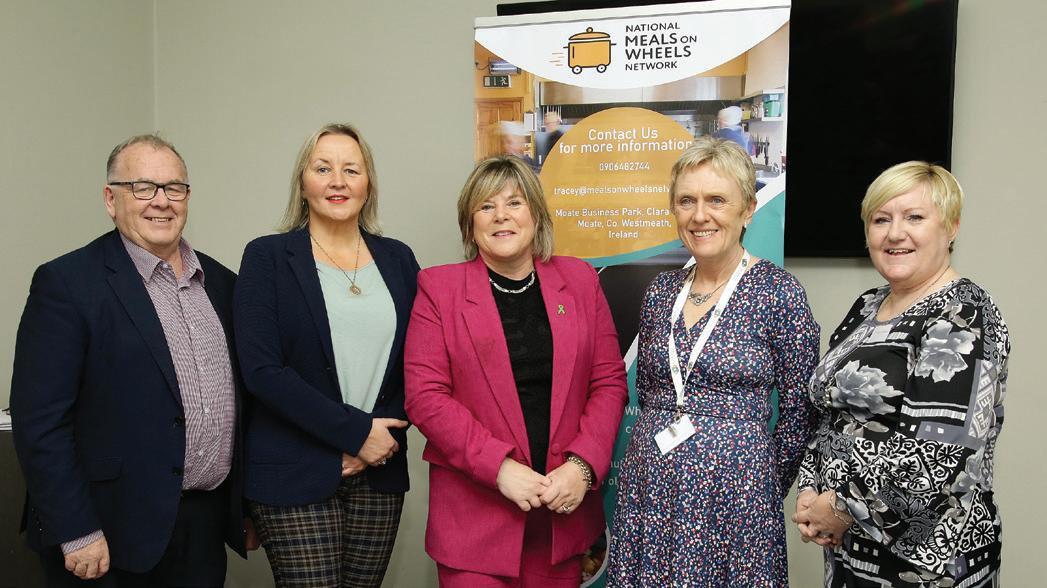
For more information contact us on:
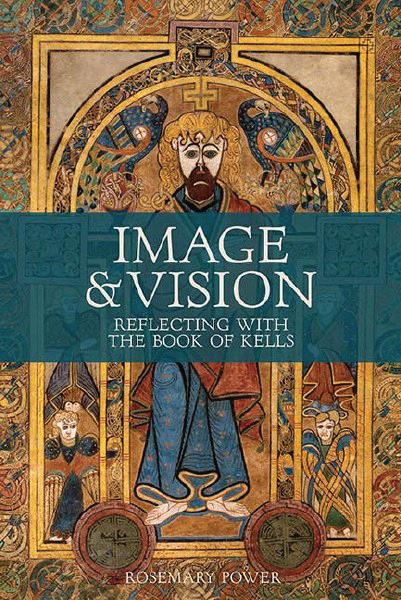
Phone: +353 (0) 1 873 1855


















Email: info@friendsoftheelderly.ie

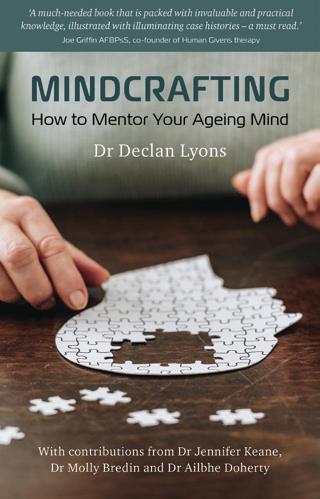

www.friendsoftheelderly.ie


IRL CEO Seamus Boland, Chairperson of IRL Board Tara Farrell, Minister of State for Mental Health and Older People, Mary Butler T.D, Tracey Noone National Meals on Wheels Network Development Officer and Maria Jackson, National Meals on Wheels Steering Group Member at the 1st National Meals on Wheels Network Conference, 25th November 2022 in the Athlone Springs Hotel.
The National Meals on Wheels Network launched in 2015 under the umbrella of Irish Rural Link. The service is more than the delivery of a nutritious meal. It is a social contact, a frontline wraparound community service for elderly and vulnerable individuals. This enables them to remain living in their own home with dignity and independence. It reduces the chance of their admission to hospital and keeps them living in their own community.

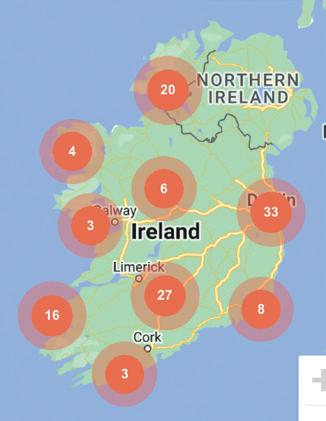

Please visit National Meals on Wheels Network or contact tracey@mealsonwheelsnetwork.ie 090 648 2744 to find your nearest provider.
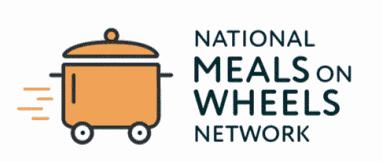
252892_4C_Friends of the Elderly_Senior Citizen 2023_ND_V1.indd 1 09/12/2022 16:37
252906_4C_Irish Rural Links_Senior Citizen 2023_ND_V3.indd 1 23/01/2023 10:03 Abbey Street, New Year Recommendations Ageing Ageless Ageless The Secrets of DR KAREN WARD ‘I love this book. It’s so full of nuggets of wisdom and really practical advice. It’s a great handbook for life over 40.’ Mary Coughlan, singer, songwriter and actress A T veller Passing Through Reflections from the Holy Land Ruth Pa erson john sullivan LIGHTS for the PATH 20%OFF Using the code 20AgeingWell2023 on veritas.ie or call your nearest branch €14.99/£13.50
€24.99/£22.50 €12.99/£11.99
€19.99/£18.00
Dublin City Centre T: 01-878 8177 Blanchardstown T: 01-886 4030 Cork T: 021-425 1255 Derry T: 028-7126 6888 Letterkenny T: 074-912 4814 Limerick T: 061-511075 Newry T: 028-3025 0321 Tallaght T: 01-8853737 252873_2L_Veritas_Senior Citizen 2023_ND_V1.indd 1 05/12/2022 16:41
€24.99/£22.50 €16.99/£15.30
Care Options
Relationship-based care means quality care
As Ireland’s population continues to age, good quality care options are more important than ever. Fortunately, the range of care options available to Ireland’s ageing adults is expanding.
Whether provided by the State, privately or through non-profit organisations, and whether medical, non-medical or specialist in nature, support for older people and their families is widely accessible today.
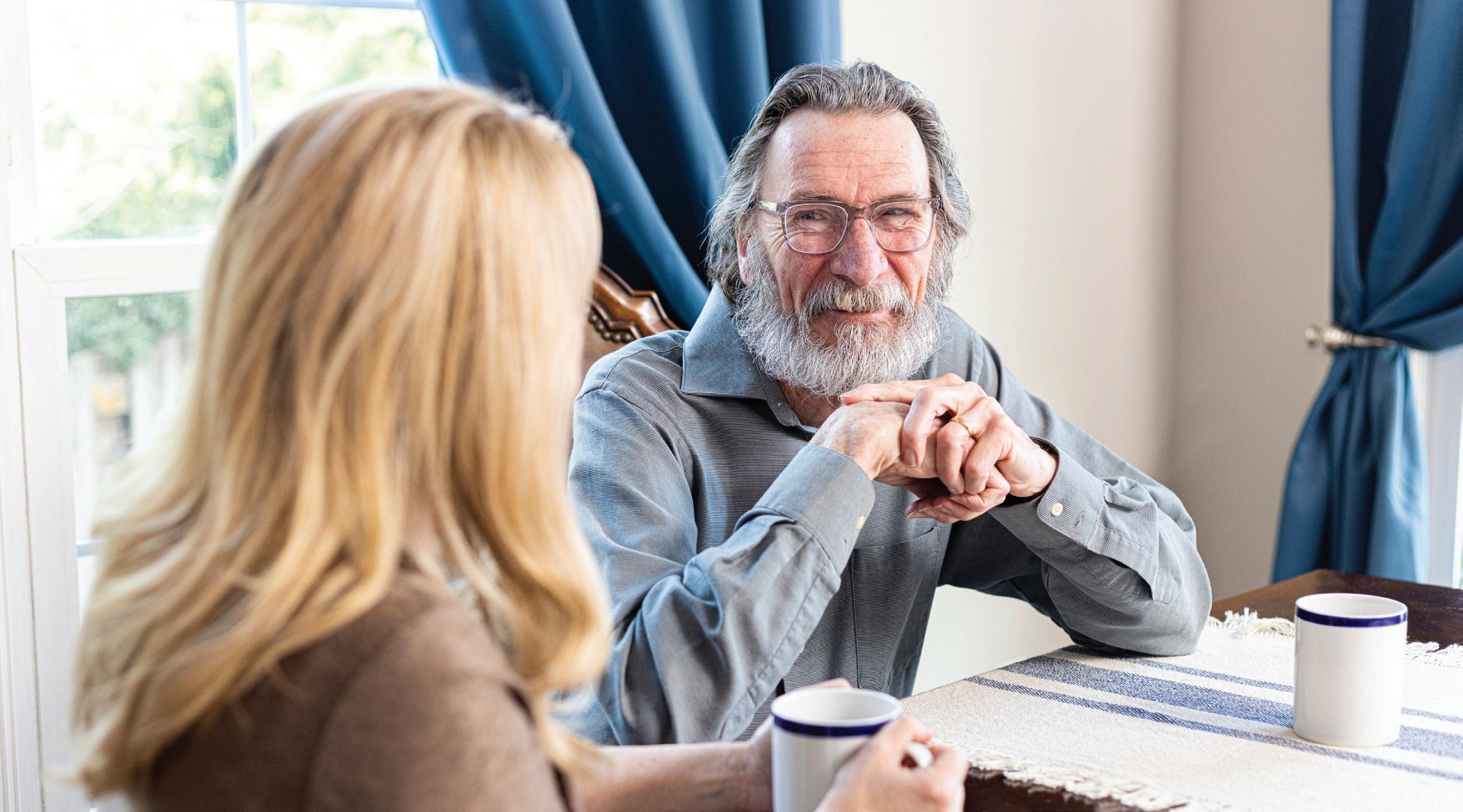
Home care, or supportive care that is provided in an individual’s home by professionals, is by far the most-preferred care option among Ireland’s older people and family members who need support in looking after their loved ones. The Covid-19 pandemic showed that home care helps keep older people safe, due to the remarkably low rates
of infection among people who were receiving care at home.
With a national network spanning 25 offices, and HSE approved provider status in every county, Home Instead has vast capabilities in providing quality home care services. Relationship-based, person-centred care is at the core of the Home Instead service delivery model.
This chapter of the Guidebook outlines the care options available to older people today. You can read about the Quality Assurance Visits which underpin Home Instead’s relationshipbased care model and learn about other care options such as nursing homes (including the Fair Deal Scheme) and specialist Dementia Care.
101
Relationship-based, person-centred care is at the core of the Home Instead service delivery model
ESSENTIAL GUIDE TO AGEING WELL
Care Options
Home Care
There is a variety of care options available to ageing adults. But when does the older person and their family know that the time is right to look for of a care option or which option to choose?
When Help is Needed
Just because an ageing adult is having some issues at home does not mean that it is time to recommend a move to a nursing home. Home care might be the perfect solution for an older parent who is recovering from an illness or surgery, such as a knee replacement, and needs help around the home, or for an older person who has lost a spouse and has become lonely and depressed to the point where their own health is suffering. Similarly, a widower’s increasing forgetfulness could be putting him at risk of forgetting to pay the bills, or worse, of forgetting to take his medications. However, the first step in determining whether care is necessary is to take your ageing loved one’s needs and desires into account. Sometimes these are difficult conversations to have with a parent who is convinced that he or she does not need help. The best argument for a family caregiver may be to acknowledge their desire to stay at home but to point out that a little extra help could keep the older person safe and independent at home for longer.
Look for the signs
Signs that often trigger a call to Home Instead include:
● Household bills piling up.
● Reluctance to leave the house.
● Losing interest in meals.
● Declining personal hygiene.
● Declining driving skills.
● Scorched pots and pans (cookware left forgotten on top of an open flame may be a sign of short-term memory loss or even Alzheimer’s disease).
● A messy house (changes in housekeeping may come about because the individual is physically tired).
● Losing track of medications.
Signs of depression can include:
● Feelings of hopelessness and despair.
● Fewer visits with friends and family.
● A change of sleeping patterns.
● A lack of interest in the usual hobbies and activities.
● Missed doctors’ appointments and social engagements can be signs of depression or forgetfulness, but they can also be the result of no longer having a driver’s license and not knowing how to get alternative transportation.
102
ESSENTIAL GUIDE TO AGEING WELL
Care Options
What is Home Care?
Home care is supportive care provided in an individual’s home by professional CAREGivers. Common services that CAREGivers provide include assistance with tasks such as meal preparation, light housekeeping, medication reminders, assistance with trips to the doctor, errands and shopping, as well as specialised Alzheimer’s and dementia care. Many Home Instead CAREGivers have personal experience of caring for a spouse or a parent, and they share the same hobbies and histories as their clients. A reputable home care organisation such as Home Instead will provide professional CAREGivers that can meet all of these needs.
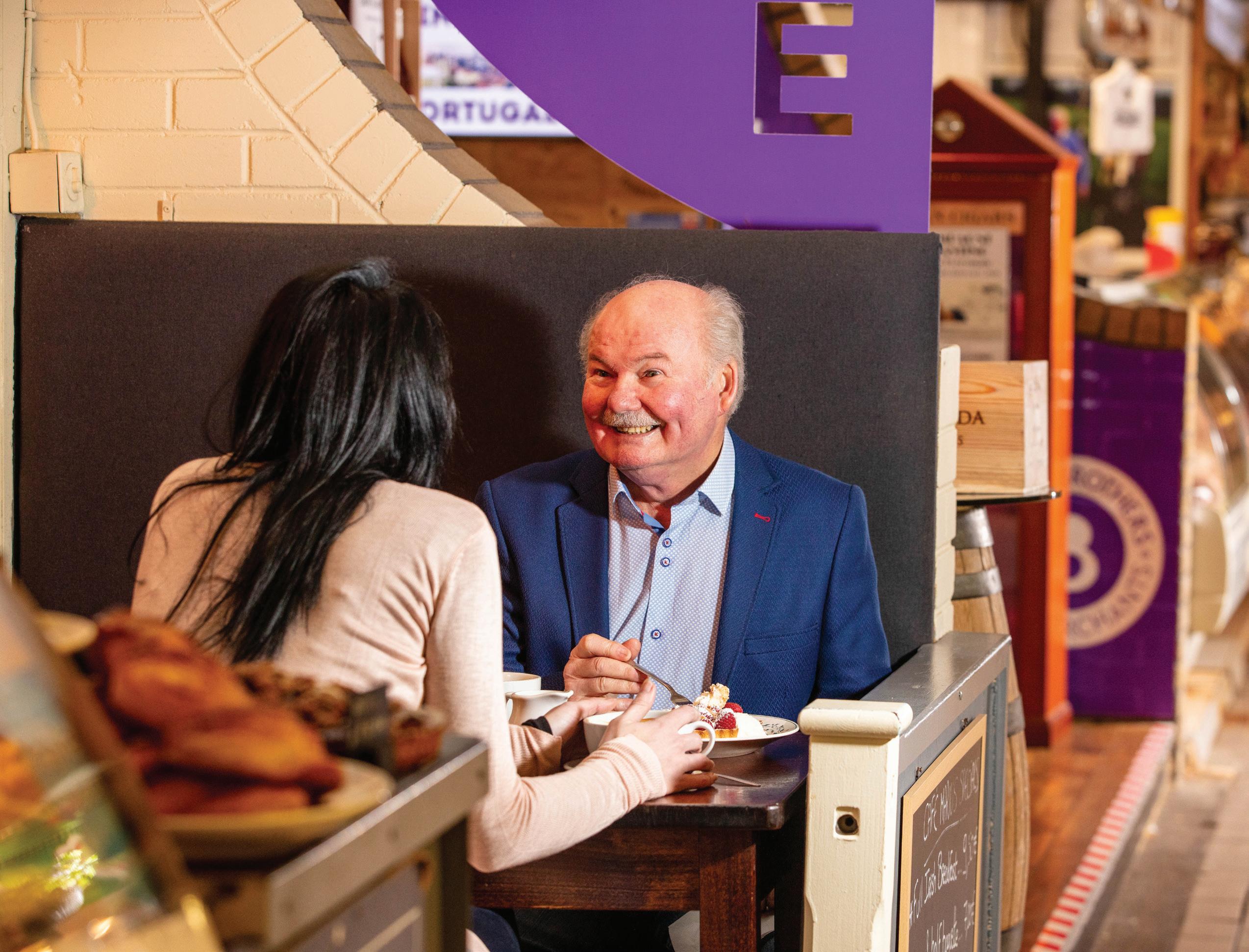
103
ESSENTIAL GUIDE TO AGEING WELL
Care Options
Live-In care
Given the option, the majority of Ireland’s ageing adults would prefer to live in their own homes and remain in their local communities, rather than move to a nursing home or assisted living facility. For those that need additional support at home, State funded, or privately funded home care is available. When considering private home care options, some older people need a greater level of support at home, which Home Instead’s Live-In Care can provide. Home Instead Live-In Care entails a CAREGiver moving in with their client, who will provide assistance during the day, and sleep in the guest bedroom during the night. Such a presence in the home provides security and reassurance for clients and their families. Home Instead’s Care Manager designs your Live-In Care Plan based on your loved one’s specific requirements. Care plans are flexible and additional hours can be provided through your local office if required. All Care Plans use Home Instead’s relationship-based care model, which is second to none in the Irish home care sector. Our Live-In CAREGiver resides with the client and is on active duty
CAREGiver selection and training
Our Live-In CAREGivers are recruited both locally and through our international Home Instead partners. They are fully vetted, have excellent references and participate in our comprehensive training prior to starting work with our clients. We take great care to ensure that clients’ interests are matched to those of their CAREGiver. CAREGivers can access 24-hour support from their local office.
Why consider a Live-In Care Plan?
We can provide quality home care assistance
for seven hours a day, six days a week. Cover is provided by the local office for the seventh day, which the Live-In CAREGiver has off.
Care is provided for your loved one as and when it is needed, as the sample timetable below shows.
08.00 - 11.00
Companionship, breakfast preparation, light exercises, personal care and housework.
13.00 - 15.00
Lunch preparation, clear-up and card games, crosswords, other indoor activities.
17.30 - 18.30
Dinner preparation, medication reminder, tidy up after meal.
20.00 - 21.00
Personal care, assist to bed, companionship.
to one or two people living in the same house.
Home Care Tax Relief Scheme
Live-In Care provides a comprehensive, seven-day care service. Personalised care plans are created following a free care consultation. Costs can be reduced by claiming up to 40% tax relief for employing a carer.
To find out more about Home Instead’s Live-In Care Services, visit HomeInstead.ie
104
ESSENTIAL GUIDE TO AGEING
WELL
The Service
Home Instead services provide CAREGivers who are properly recruited (includes two interviews, Garda-cleared and referencechecked), and QQI trained, as required by the HSE, to include personal care, patient moving and handling, and specialised Alzheimer’s and other dementia care. They are employed by Home Instead, so they are PAYE and PRSI compliant, and insured, which covers both the CAREGiver and clients. Home Instead CAREGivers are supervised by a nursing team to ensure that quality standards are adhered to. All of this is backed up by a 24/7 emergency phone support, and an additional support team who can advise on issues affecting clients and families. Private home care is one of the most affordable options, due to the tax relief scheme. Tax relief of up to 40% is available on home care fees. Call Home Instead on 1800 911 855 for
more information, or visit HomeInstead.ie.
40% income tax
Care Options
Home Instead
Home Instead is a network of 25 locally-owned and locally managed offices, employing 4,000 professional CAREGivers across the country. Each office is managed by people living in your community. Home Instead’s professional CAREGivers are fully trained and understand that relationships with clients are based on compassion, dignity and trust. It is this devotion to providing professional high-quality care that enables Home Instead to enhance the lives of older people and their families, allowing them to feel safe and independent while they age in their own home. Home care services should be provided by a recognised home care provider such as Home Instead, rather than a black market carer. You will not receive the same standard and availability of care in the black market. Professional CAREGivers are trained to the highest standards and are available 24 hours a day, seven days a week, 365 days a year.
Talk to your local Home Instead office to discuss your care needs and avail of information and resources regarding ageing in Ireland. You may also wish to discuss your needs with your family, a health care professional such as a GP, public health nurse or hospital discharge planner. The internet is also a valuable resource, with a host of information on available care options.
To fi nd your local Home Instead Offi ce
See page 162
105
ESSENTIAL GUIDE TO AGEING WELL
€1,000 cost per month €400 savings a month Almost €5,000 savings a year
home
may be able to claim tax relief up to €75,000 per annum at your highest rate.
If you are paying for
care services you
Care Options
A HSE-approved care provider in every county
The Home Support Services scheme aims to help people who need medium to high-level support to continue living at home, by providing them with home support services. Services are delivered on a needs basis, and you must apply directly to your local HSE health office to have your care needs assessed. Once your Home Support Services have been approved by the HSE, you can select a home care service provider from a list supplied by the HSE. Home Instead is on the list in all nine CHO areas, meaning that wherever you live, you can access our high-quality services. See the map opposite to find out which CHO area you live in and check our Directory on page 162 to find your local Home Instead office.
106
ESSENTIAL
TO
GUIDE
AGEING WELL
Local Health Office ............................ Location .......................... Phone Number ● 01 Cavan Cavan Town 049 437 3131 ● 02 Carlow/Kilkenny Kilkenny City 056 778 4735 ● 03 Clare .............................................. Ennis .................................. 065 686 3858 ● 04 Cork – North Cork ..................... Cork City ............................. 021 492 3959 ● 05 Cork – North Lee ....................... Cork City ............................. 021 492 3959 ● 06 Cork – South Lee Cork City 021 492 3864 ● 07 Cork – West Cork Cork City 021 492 3864 ● 08 Donegal ....................................... Lifford ................................ 074 919 1736 ● 09 Dublin North .............................. Swords ............................... 01 895 3760 ● 10 Dublin North Central Ballymun 01 846 7126 ● 11 Dublin North West Blanchardstown 01 897 5170 ● 12 Dublin South City ...................... Tallaght .............................. 01 921 4718 ● 13 Dublin South East ...................... Clonskeagh ....................... 01 268 0570 ● 14 Dublin South West .................... Tallaght .............................. 01 921 4718 ● 15 Dublin West Tallaght 01 921 4718 ● 16 Dún Laoghaire Dún Laoghaire 01 236 5200 ● 17 Galway ......................................... Galway City ....................... 091 748 474 ● 18 Kerry ............................................ Tralee ................................. 066 718 4555 ● 19 Kildare/West Wicklow Tallaght 01 921 4718 ● 20 Laois Mountmellick 057 935 9575 ● 21 Limerick ...................................... Limerick City ..................... 061 483 657 ● 22 Longford ...................................... Longford ............................ 043 333 9780 ● 23 Louth ........................................... Dundalk ............................. 041 685 9200 ● 24 Mayo Castlebar 094 904 9177 ● 25 Meath Trim 046 903 7778 ● 26 Monaghan ................................... Rooskey ............................. 046 903 7778 ● 27 Offaly ........................................... Tullamore ........................... 057 935 9700 ● 28 Roscommon Roscommon Town 090 663 7520 ● 29 Sligo Leitrim Sligo Town 071 032 1079 ● 30 Tipperary North/East Limerick Nenagh .............................. 067 464 40 ● 31 Tipperary South ........................ Clonmel ............................ 052 618 7681 ● 32 Waterford ................................... Waterford City .................. 051 842 986 ● 33 Westmeath Mullingar 044 939 5082 ● 34 Wexford Wexford Town 053 918 5746 ● 35 Wicklow ....................................... Bray ................................... 01 274 200
Care Options
107
ESSENTIAL GUIDE TO AGEING WELL ● CHO Area 1 ● CHO Area 2 ● CHO Area 3 ● CHO Area 4 ● CHO Area 5 ● CHO Area 6 ● CHO Area 7 ● CHO Area 8 ● CHO Area 9 35 1 8 9 10 11 12 13 19 20 27 30 31 32 34 33 24 28 29 26 25 23 21 16 14 15 2 3 17 18 4 5 6 7
Care Options
Relationship-based care
Home Instead offers a broad range of relationshipbased care services that can be tailored to meet a client’s unique needs and preferences. This all begins with a Care Consultation from one of our Care Managers. As the care plan continues, clients have regular Quality Assurance visits from a Care Manager to ensure that their individual needs are being met, that they are happy with the service they are receiving, and to recommend further services where needed, or to recommend reducing service levels if the client’s circumstances have improved.
QA visits are essential in the delivery of Home Instead services, as the relationship between clients and CAREGivers are very important to the service we provide. These visits help us to get to know the clients’ likes, dislikes and what is important to them.
The visits are carried out regularly, and we will ensure that each client receives a QA visit once each quarter at a minimum and more frequently if requested by the client, their family or CAREGiver, or should the need arise.
During a typical QA visit, the Care Manager will talk to the client and listen to what they have to say. They will observe the client and note any changes. The Care Manager will also speak to the client’s CAREGiver prior to the visit with a view to getting up to date information about the client, and also speak to a family member if necessary.
Should a case arise where there are any changes with the client, such as a decline in mobility, this will be assessed, and a Home Risk and Falls Risk Assessment will be also be carried out. We will report any changes to the client’s public health nurse, and any necessary changes will be reflected in the client’s Care Plan. An Occupational Therapist’s assessment will also be requested, and any immediately needed changes will be suggested and if possible, implemented, such as removing mats or other trip hazards. The wellbeing of clients is very important to us, and as such, we ensure that we communicate clearly with the client, the client’s family members, and the CAREGiver at all times. Good communication is vital to the provision of a person-centred service – the QA visits enable us to deliver the relationshipbased care that all of our clients deserve.
108
ESSENTIAL GUIDE TO AGEING WELL
“Good communication is vital to the provision of a person-centred service”

Forums, Group Support, 1to1 Counselling, iphone enabled You’re not alone when it ComeS to CopinG www.turn2me.org what’s on your
Care Options
Alzheimer’s and Dementia Care
Research confirms that people living with dementia have better care outcomes when living in familiar surroundings such as their home, due to the familiarity of the environment. Home care also helps families eliminate worry, reduce stress and re-establish a degree of personal freedom.
For years, Home Instead has been leading the way in the provision of homebased dementia care services in Ireland. Our CAREGivers can access City & Guildsaccredited dementia training through our Home Care Professionals Academy, and we’ve rolled out a wide variety of excellent resources aimed at helping families to provide practical care support for their loved ones living with dementia.
Every year during World Alzheimer’s Month in September we host nationwide
Places To Go for Support
● Talk to your GP about the type of dementia diagnosed.
● Contact your local public health nurse about day and respite services.
● Your local branch of the Alzheimer Society of Ireland or call the Alzheimer National Helpline on 1800 341 341.
‘Confidence to Care’ dementia workshops, where we invite family carers and healthcare professionals to our offices for an educational session aimed at helping them understand dementia. During the pandemic, we moved these online, in the form of Webinars and Interactive Workshops, and in 2022, we were able to welcome familes who are caring for loved ones living with dementia back to our offices for face-to-face sessions. We hope that, through our expertise in the field, our workshops can help family carers to better understand the disease and develop new practical approaches and informed strategies in managing that care.
Home Instead enables people living with dementia to remain at home for as long as possible, providing them with that sense of familiarity that is crucial to providing expert dementia care. If you are caring for a loved one living with Alzheimer’s or another dementia, call your local Home Instead office today to find out how we can help.
● Contact Engaging Dementia, a dementia training and resource organisation, on (01) 260 8138/visit
www.engagingdementia.ie.
● The following websites can be very helpful - www.alzheimer.ie, www.understandtogether.ie, www.dementia.ie, and www.dementia.stir.ac.uk.
110
ESSENTIAL GUIDE TO
AGEING WELL
fi nd your local Home Instead Offi ce
page 162
To
See
Dementia Communications
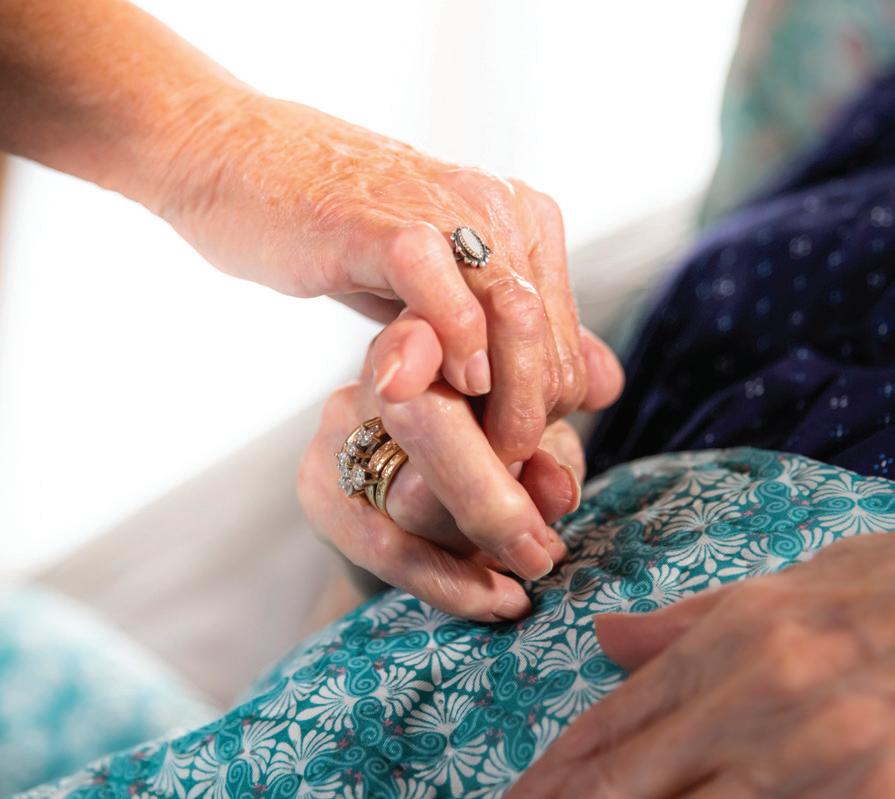
Strategies: Top Tips
Do
● Talk to the person in a tone of voice that conveys respect.
● Keep your explanations short.
● Position yourself at the person’s eye level.
● Identify yourself and explain what you propose to do.
● Use visual cues whenever possible.
● Attempt to interpret the person’s non-verbal communication.
● Paraphrase and use a calm tone of voice.
● Speak slowly and say words clearly.
● Encourage talk about things that they are familiar with.
● Use touch if appropriate.
Care Options
● Alzheimer Cafés are a welcoming space for people living with dementia, their families, friends and healthcare professionals.
Contact: 1800 341 341 or visit: www.alzheimer.ie to find your nearest café.
Don’t
● Use complicated words, phrases or long sentences.
● Begin a task without explaining who you are or what you are about to do.
● Try and compete with a distracting environment.
● Provoke a catastrophic reaction by asking the person to do more than one task at a time.
● Disregard your own nonverbal communication.
● Disregard talk that may seem to be “rambling”.
● Shout or talk too fast.
● Interrupt unless it cannot be helped.
● Touch or invade their personal space if they are showing signs of fear or aggression.
111
ESSENTIAL GUIDE TO AGEING WELL
Care Options
 Bernie Byrne, Relationship Manager and Dementia Champion, Home Instead
Bernie Byrne, Relationship Manager and Dementia Champion, Home Instead
Receiving a diagnosis of Dementia can be a distressing and fearful experience, both for the individual who is affected and for their family members. But for some, it can be a relief, as they can now finally understand what’s causing the physical or cognitive changes they’ve been experiencing.
Today, there are 64,00 people with dementia (PwD) in Ireland, and this is estimated to increase to 150,000 by 2046. There are five different main types of dementia, and up to 400 subtypes. In the early stages, symptoms can be very different and will depend on the type of dementia a person has. This adds to the difficulty in making a clinical diagnosis, indeed, it can take some time before a conclusive diagnosis can be made.
And yet there is hope. Consider this: 40 years ago, a diagnosis of cancer – ‘The Big C’ – was perceived as a death sentence. Today, while still unwelcome, a diagnosis of cancer is met with: What type? What stage? And what is the treatment plan?
In Ireland, dementia is recognised as a disability and my hope is that we will all learn to describe dementia in terms of ‘type of disability’ and how best to ‘help people to manage and live well with it.’ Science suggests this hope may come true.
Researchers and academics are making great advances in understanding the causes of dementia, which will hopefully lead to not only finding a cure but also of preventing the disease from developing. Indeed, as recently as November 2022, there were very

positive findings from clinical trials of a drug called Lecanemab, which was hailed as ‘the beginning of the end’ for Alzheimer’s, after results showed a 27 percent slowdown in cognitive decline among participants living with dementia.
The greatest advances of the last number of years have been gained by PwD engaging with and informing medics/ researchers on their experience of ‘Living with Dementia.’
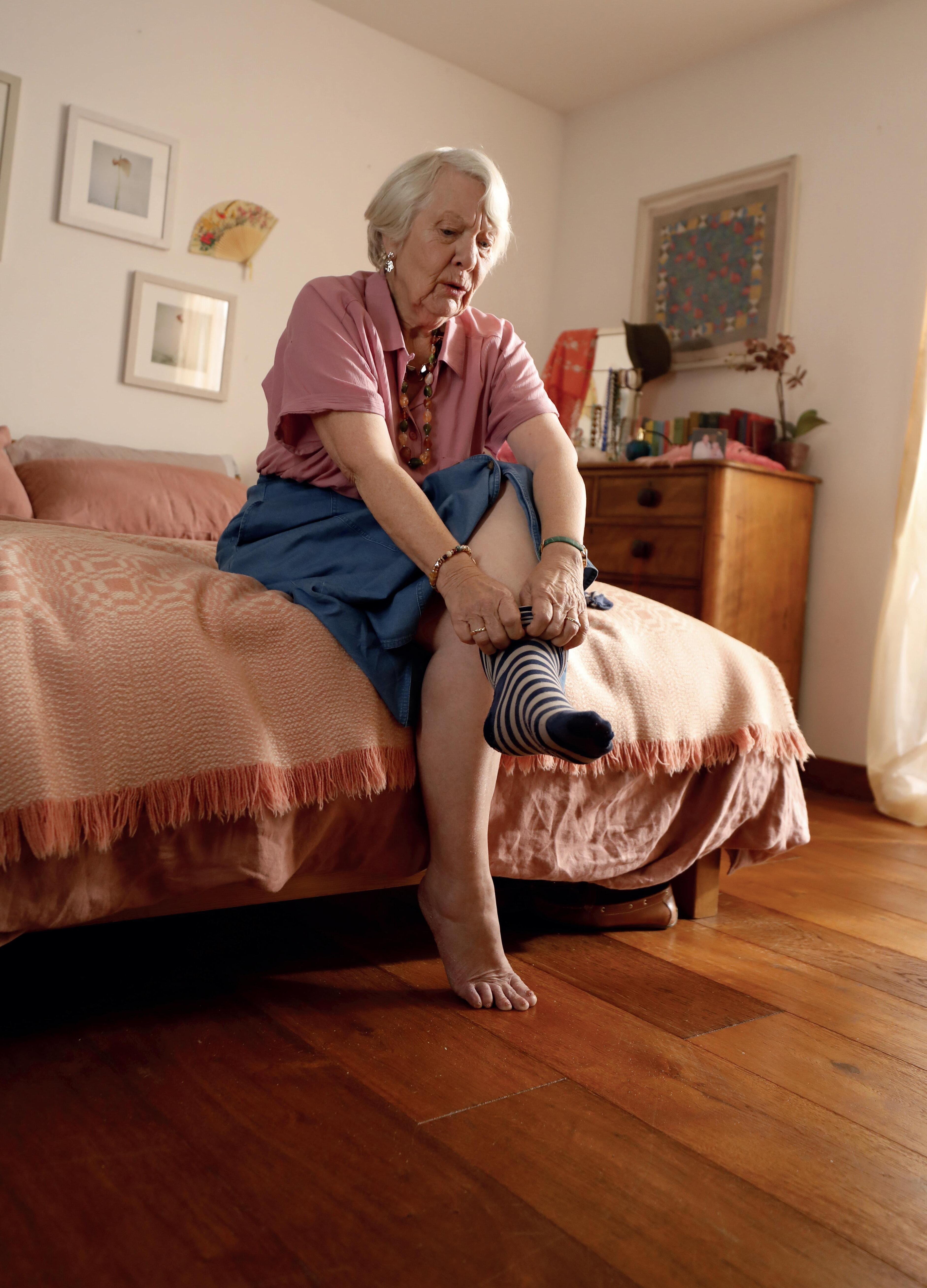
The Irish Dementia Working Group (IDWG) embodies a group of people living with dementia, who advocate for policies and appropriate services to be made available throughout Ireland. Through their insights, the tide is definitely turning towards supporting PwD and their families in their community.
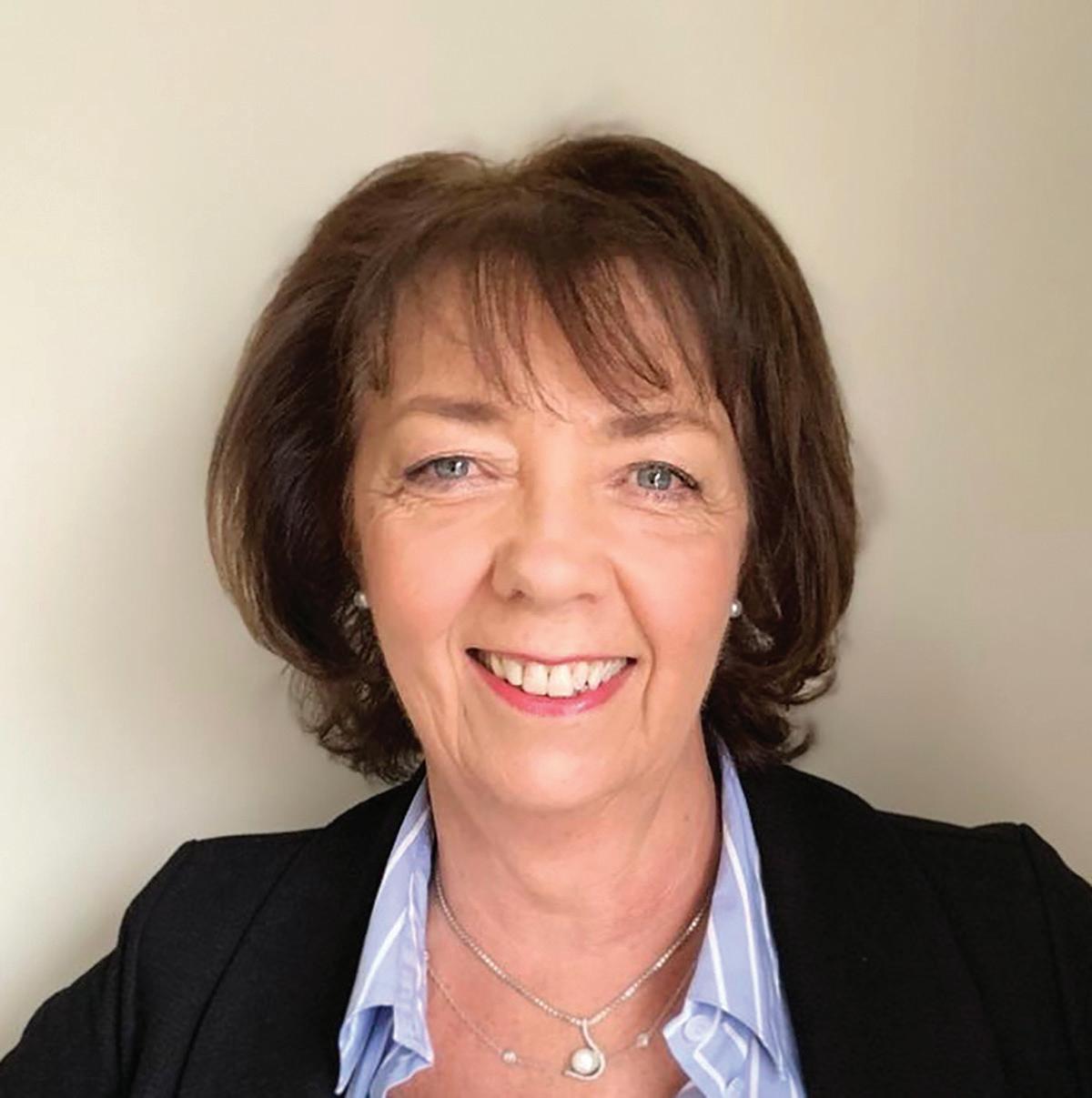
Home Instead work with families providing person-centred care to them in their home. Following an in-depth care assessment, we learn about the person, their needs, and their interests, and we can formulate a care plan with the PwD and their family.
Our local offices offer free workshops to family members, and community and business groups to help us all gain an understanding of dementia. This enables the whole community to learn how to support our loved ones, friends, neighbours, and colleagues who are now – and will increasingly be – living with dementia.
112
ESSENTIAL GUIDE TO AGEING
WELL
Finally, real hope for dementia is on the horizon
IF YOUR INSTINCT IS TO HELP, YOU CARE





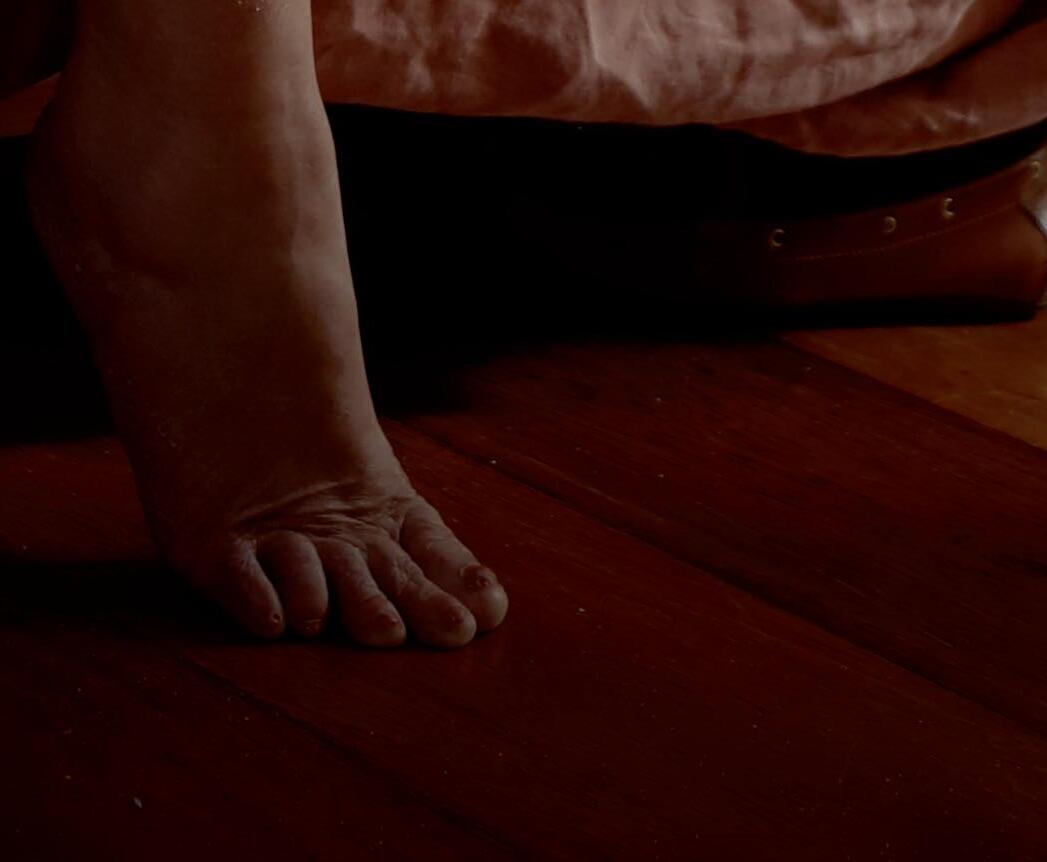




Sometimes people need support to live independent lives at home. From personal care to meal preparation and companionship, and everything in between, Home Instead’s experienced CAREGivers help ageing adults live well at home. Make a real difference in someone’s life, apply today to begin your career in caring at Careers.HomeInstead.ie 1800 911 855 Each Home Instead® office is independently operated.
Care Options
Nursing Home Care Activities
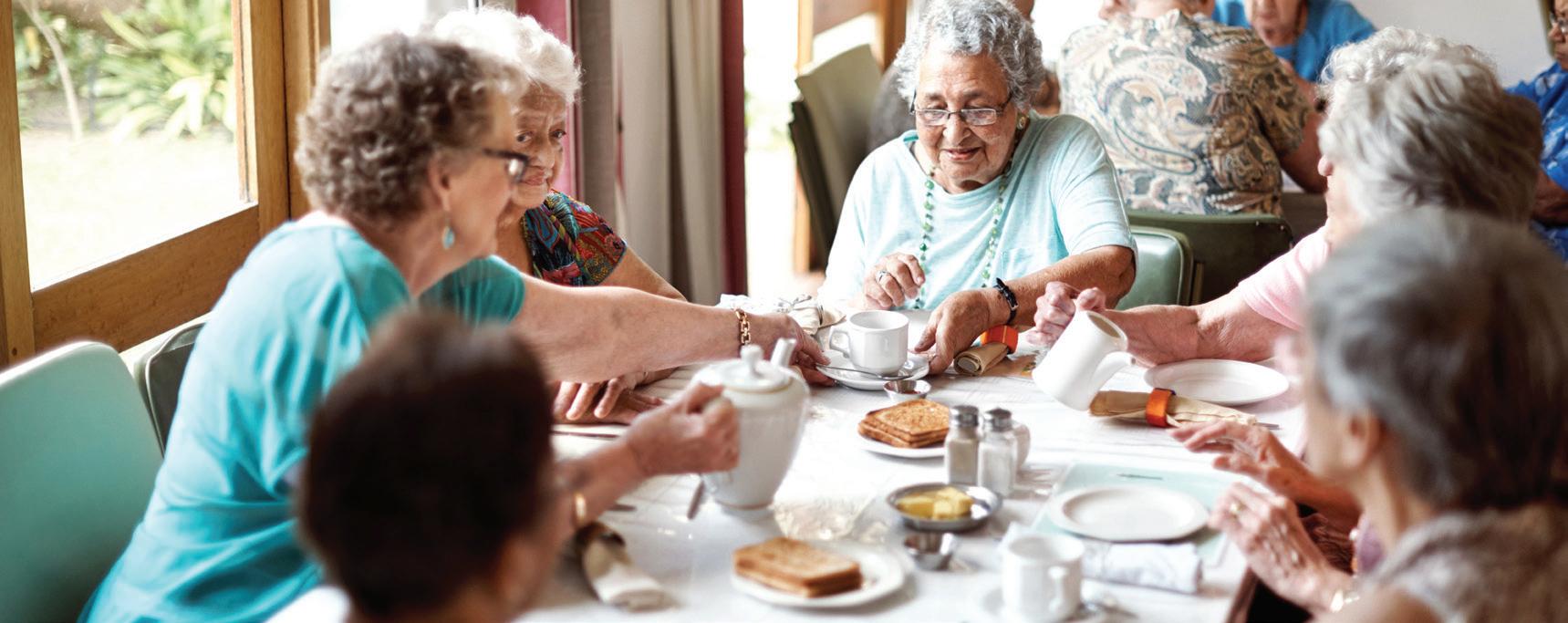
Nursing home care is designed to let you live independently and fulfil your potential. Before you move into the nursing home, staff will meet you to talk about your health and general needs. This meeting will focus on your abilities and your preferences. The staff will tell you if you need any aids or adaptations and assist you in obtaining these supports. When you first meet the nursing home staff, they’ll prepare your ‘care plan’. This will include things such as what foods you like or don’t like, and what time you want to get up or go to bed. Your preferences will be written down so that all staff will know your likes and dislikes. Staff will review your care plan with you every three to six months, or more often if you want or if your needs change. You make the decisions, together with your family and the staff, about your day-to-day life in the nursing home. All nursing homes have comfortable visitor rooms. In addition, they can arrange other ways of keeping in touch, such as telephone, email, Skype and Facebook. The nursing home will arrange for you to go on holiday or stay overnight with your family and friends, wherever possible, and will help you to prepare. Many nursing homes have rooms or gardens where you can relax, and some have education centres, gyms, spas and shops.
Activities for residents in nursing homes can include gardening, cooking, music, shopping, exercise or other activities that you and your friends enjoy. Many nursing homes employ people to organise activities to match residents’ interests. Nursing homes also give you the chance to try new leisure activities and learn new skills. Many take part in exchange programmes with local schools, where students visit the nursing home to help residents learn new skills, such as how to use the internet and email, or try new arts and crafts. Nursing homes employ chefs and catering teams to prepare meals to the highest standards, the menus are changed regularly, and are guided by residents’ requests. Some homes have their own restaurant and can arrange for you to talk to a dietician about your dietary needs.
114
ESSENTIAL GUIDE TO
AGEING WELL
Understanding changes in behaviour of a loved one living with dementia
Dementia affects every person differently. We know from research and from experience that the way people behave can change as dementia progresses. These changes in behaviour can be upsetting for both the person with dementia and people who are caring for them.
Understanding the cause of particular changes in behaviour should help to identify the most appropriate responses. The causes could include pain, anxiety, frustration, fear or a change in their surroundings. It is important to remember that we all express emotion, experience changes in mood and react to our surroundings. People with dementia are no different, except that they may have more difficulty in understanding or communicating the way they are feeling.
Common changes in behaviour that a person with dementia may experience include repetitive questioning, shadowing, apathy, depression, fidgeting and sleep disturbance. Most changes in behaviour will resolve themselves within a few weeks and require no special treatments or interventions. If a person’s actions are not a risk to themselves or to others and they do not appear to be distressed, then it may be best to do nothing.
Routines can be very useful ways to manage changes in behaviour because we repeat our daily rituals (such as getting out of bed, washing, getting dressed and eating).
For more information on behaviour and ways to help, you can speak in confidence to our Helpline by calling 1800 341 341.


��EMee1' i:ti� THE ALZHEIMER �$ SOCIETY 0/ IRELAND ·oH� INFORMATION & SUPPORT Talk to someone who understands about dementia. Find out more, we are here to help. helpline@alzheimer.ie www.alzheimer.ie 252927_2L_Alzheimer Society_Senior Citizen 2023_ND_V1.indd 1 12/12/2022 11:42 Commercial Feature
Care Options
The Nursing Home Support Scheme (Fair Deal)
The Nursing Home Support Scheme is a scheme of financial support for people who need long-term nursing home care. Under the Nursing Homes Support Scheme, you will make a contribution towards the cost of your care and the State will pay the balance. This applies whether the nursing home is public, private or voluntary.
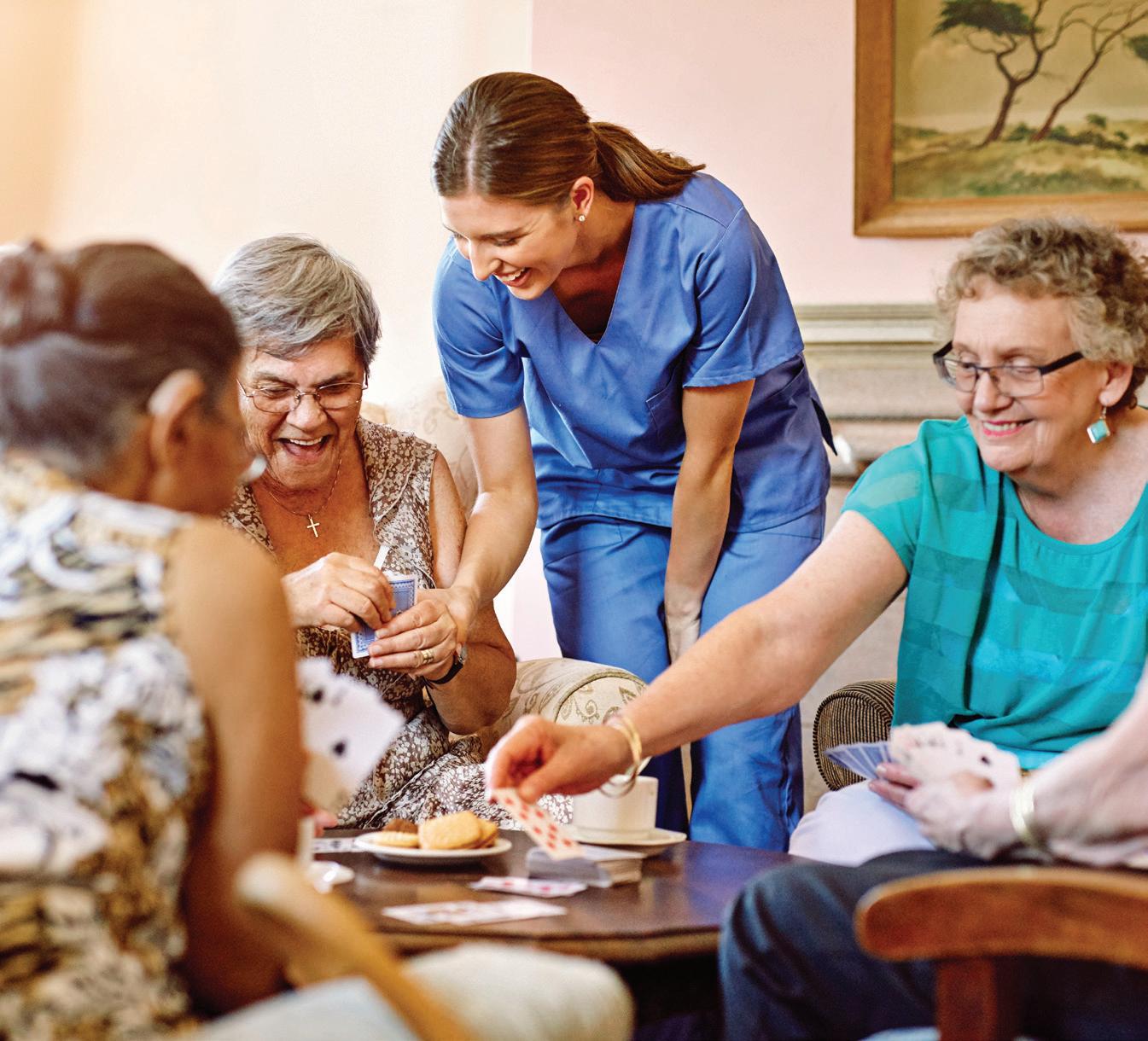
Step 1 is an application for a care needs assessment. The care needs assessment identifies whether or not you need longterm nursing home care. It is undertaken by healthcare professionals, appointed by the HSE. It is a comprehensive process that considers the person’s ability to carry out activities of daily living; the medical, health and personal social services available to the person; family and community support available to them; the person’s wishes and preferences.
Step 2 is an application for State support. This will be used to complete the financial assessment which determines your contribution to your care and the corresponding level of financial assistance.
The State financial assessment looks at your income and assets in order to work out what your contribution to the cost of your care will be. The HSE will then pay the balance of your cost of care. This payment by the HSE is called
Nursing homes are regularly inspected by the Health Information and Quality Authority. Most nursing homes have residents’ and relatives’ councils that meet to talk about issues that affect residents’ daily lives in the nursing home and many have volunteer advocates who speak on behalf of residents who cannot speak for themselves. Their suggestions are given to management to improve services. By law, a nursing home must have a formal policy on complaints management. You have the right to make a complaint and to have it addressed. By law, the nursing home must ensure that it has a procedure in place for making formal complaints and a nominated person assigned to investigate complaints. If you are not happy with how your complaint is addressed, you can then refer it to the Office of the Ombudsman.
Inspections
116
ESSENTIAL GUIDE TO
AGEING WELL
State support. Steps 1 and 2 must be completed by all applicants.
Step 3 is an optional step which should be completed if you wish to apply for the nursing home loan (this is termed ‘ancillary State support’ in the legislation). You apply for this loan if you wish to defer paying the part of your contribution which is based on your home or other property.
Choosing a Nursing Home
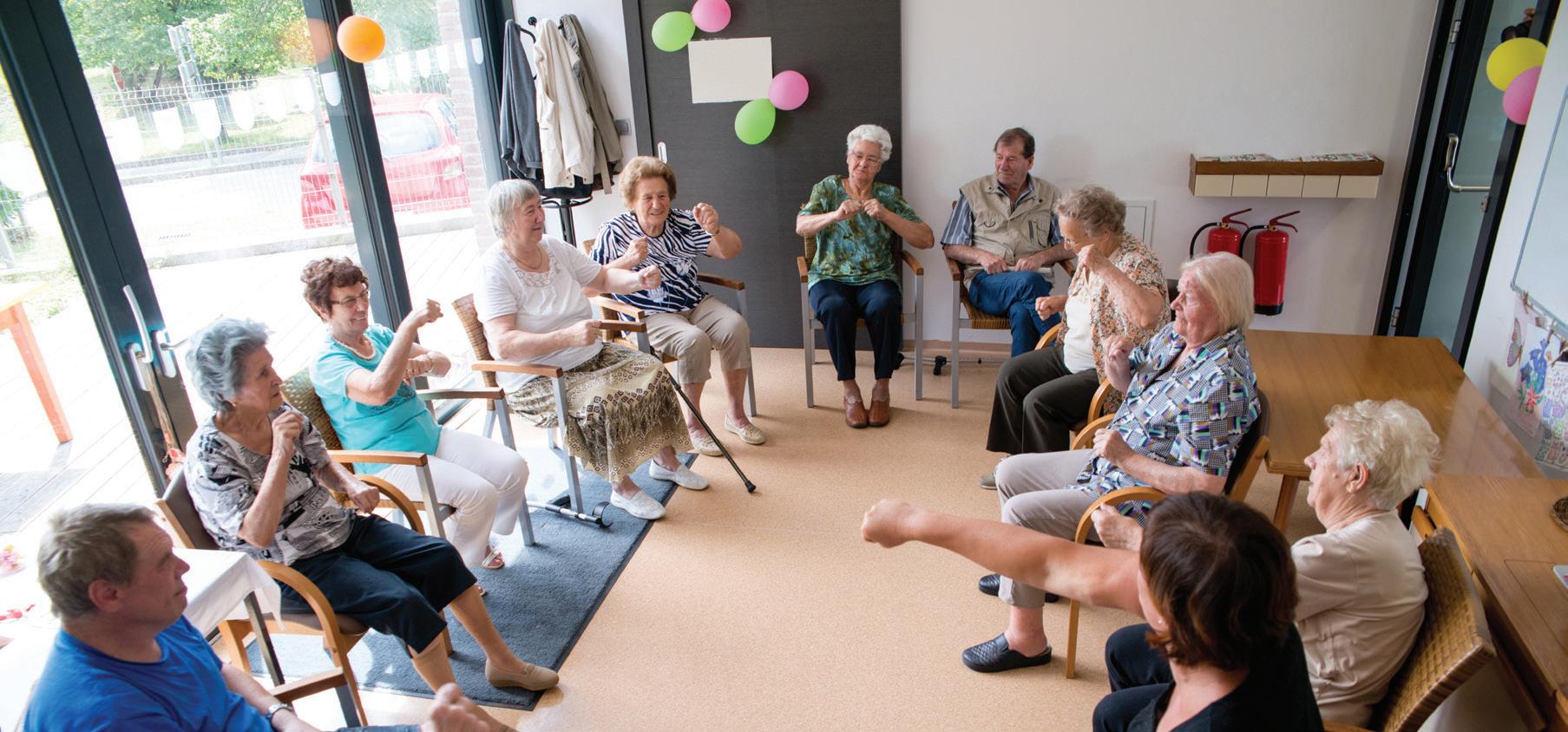

The right of a person approved for the Fair Deal scheme to choose the nursing home in which they wish to reside in is enshrined in the scheme. Start by making a list of the ideal attributes you want from your new home. It is helpful to arrange a visit with your preferred nursing home/ nursing homes to see the services, activities, and quality of care and life that is provided to residents. Prepare and ask questions of the Director of Nursing or their deputy. Contact Nursing Homes Ireland at (01) 469 9800 for further information.
Care Options
Nursing Homes Ireland
Nursing Homes Ireland (NHI) is the representative organisation for private and voluntary nursing homes. NHI supports its members to achieve best practice in care provision for those who require nursing home care. The 460 private and voluntary nursing homes in communities across Ireland are highly regulated, home-from-home healthcare settings with teams of highly-skilled staff to provide person-focused clinical, health and social care. NHI can provide information and support for persons considering or making the transition to nursing home care.
For more information
Contact NHI on (01) 469 9800 or www.nhi.ie
117
ESSENTIAL GUIDE TO AGEING WELL
Care Options
Place of Care Understanding what this means and talking about it
Michael Wright, Director of Corporate Operations and Public Affairs, Home Instead Ireland

In Ireland, citizens enjoy a statutory right to nursing home care, with Government subsidising nursing home accommodation through the means-tested fair deal scheme. No such statutory right exists for home care, even though surveys continually show people prefer the idea of care in their own homes to care in hospitals, hospices, or nursing homes.
The charity Safeguarding Ireland polled over 1,000 people and asked about peoples’ preference for place of care. Whilst it’s of no surprise that 85% of respondents said they would be happy to receive care and support in their own home (and would prefer this even if they were living with a serious illness), of greater surprise was that Safeguarding Ireland found that only 57% of Irish adults over the age of 65 had talked to others about their preferred place of care. Consequently, there is a risk that peoples’ wishes won’t be fulfilled as their plans aren’t shared with the very family and friends who may have to help make decisions around place of care in an emergency.
The chances of not receiving home care are increasing due to several reasons, including
rising HSE home care waiting lists, and the perception that accessing timely home care in the community can be more difficult than accessing long-term residential care. Secondly, family members and health care professionals are often more ‘risk averse’ than the person who needs care. Social worker and advocate Sinéad McGarry recently tweeted that she has seen situations where “an older person is told they ‘must’ move into a nursing home due to physical frailty.” Sinéad said, “Their physical safety is prioritised over their happiness and the older person is side-lined from the decision.”
With a statutory right to nursing home care, it’s not surprising that access to nursing home care is easier than home care. Whilst statutory home care is within the current programme for government, there is no timetable for its legislation passing through the Dáil. Hence the importance of people thinking about their place of care and sharing their decisions with those who may be called on to help make their plans a reality.
When making such plans it’s important to consider evidence from business advisors
118
ESSENTIAL GUIDE TO
WELL
AGEING
“Whilst statutory home care is within the current programme for government, there is no timetable for its legislation passing through the Dáil.”
BDO who state that on average nursing home residents in Ireland received 3.61 hours of direct care per day in 2021. Direct care refers to care and support provided by a nurse or a health care assistant and includes time spent with such staff during activities. So even though nursing homes provide 24-hour supervision, and staff are available in the event someone needs assistance and can summon help, nursing homes do not provide round-the-clock one-toone care.
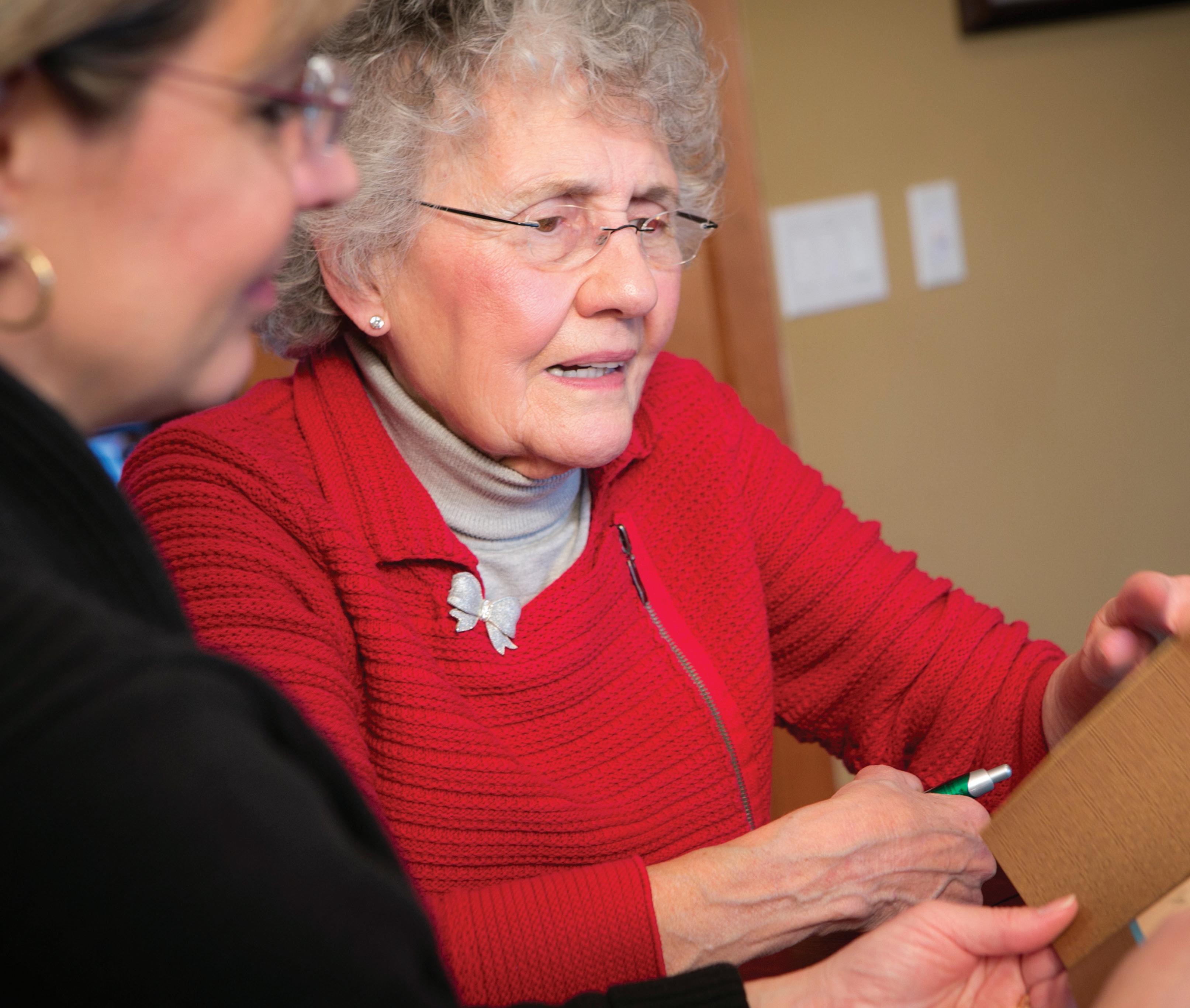
Whilst the average HSE older persons home
Care Options
support service provided by Home Instead is less than 1.5 hours per day, 11% of the HSE’s older persons home support services delivered by Home Instead are 3 hours per day or more. Family support and private home care can mean people can enjoy as much direct care at home as they can in a nursing home, whilst enjoying all the comfort and control of being in their own home. Understanding the risks inherent in different long-term care environments is really important to help make the best decision on a place of care.
119
ESSENTIAL GUIDE TO AGEING WELL
The Ombudsman and complaints about nursing homes and public services
In most cases, services provided to older people by public bodies such as government departments, local authorities and the HSE, and by private nursing homes, go well. However, when things go wrong you may have to make a complaint to that body. If you are unhappy with the outcome of your complaint you can then contact the Office of the Ombudsman.
The Office of the Ombudsman provides a free and impartial service for dealing with complaints about most providers of public services. The Ombudsman is independent of government.
The Ombudsman can also investigate complaints about private nursing homes, and HSE schemes such as the Nursing Homes Support Scheme (Fair Deal). We can investigate your complaint once you have gone through the complaints procedure of the private nursing home concerned.
You can complain on your own behalf or for someone else if they ask you to. A complaint can be made on behalf of a nursing home resident if they give written consent. Often relatives or others submit a complaint on behalf of a person who is not able to submit the complaint themselves.
What can I complain to the Ombudsman about?
You can complain about your experience in dealing with a nursing home, including:
• failing to communicate clearly
• failing to meet your basic needs or to respect your privacy and dignity (for example not providing suitable food and drink or managing incontinence issues)
• failing to follow approved administrative procedures, protocols or reasonable rules
• keeping poor records
• lack of cleanliness or infection control
• having staff that are rude or unhelpful
• being reluctant to correct an established error
• giving slow or unsatisfactory response to letters
• failing to deal properly with your complaint
How will the Ombudsman deal with my complaint?
Once we establish that we can examine a complaint we will ask the nursing home to send us a report. If necessary the Ombudsman may also examine any relevant files and records. We may question the people involved in the complaint. We will examine all the issues of possible maladministration. We will then decide whether:
• your complaint is justified
• you have suffered due to the actions or decision of the nursing home.
What the Ombudsman cannot examine:
People sometimes contact us about things we are unable to deal with. The Ombudsman cannot look at complaints about:
• clinical judgement such as decisions on treatment or diagnosis
• employment
• complaints where the law provides for a right of appeal to a court
• the complaint is, or has been, the subject of legal proceedings before the courts
When should I complain to the Ombudsman?
Before you complain to the Ombudsman you should try to resolve any issues with the private nursing home using their complaints procedure. Make a complaint to the private nursing home as soon as you can. Complaining to them directly might get the matter resolved quickly. Explain why you’re unhappy and how you want them to put things right. If you cannot resolve your complaint in this way, you can then ask the Ombudsman to investigate your complaint.
How do I complain to the Ombudsman?
Visit www.ombudsman.ie
Or write to us at: Office of the Ombudsman, 6 Earlsfort Terrace, Dublin 2, D02 W773.
Or call us if you need any help at 01 639 5600
ESSENTIAL GUIDE TO AGEING WELL 120
Commercial Feature
Allowances & Entitlements
Don’t miss out on your valuable allowances and entitlements
Ireland’s ageing adults can access a wide range of allowances and entitlements from retirement age onwards, which help to bring in income, pay bills, facilitate travel around the country and cover medical expenses. However, many people do not benefit from all of their allowances and entitlements because they don’t know that they exist! This chapter of Home Instead’s free Guidebook aims to ensure that readers are aware of their benefits, and how they can apply for them. While many are very well-known, such as the State pension, other benefits can depend on the individual’s unique
circumstances or even their age. Beyond the reliefs and entitlements available to older adults, there is a range of grants and supports available to family carers who support their loved ones. Anyone who employs a professional home carer can apply for tax relief (at their highest rate) on the costs of that care, up to a maximum of €75,000. This tax relief scheme can significantly bring down the cost of Home Instead’s Private Home Care services. Home Instead Care Managers can guide you through the process during a no-obligation care consultation - on page 138 Glenda McCourt from Louth explains how.
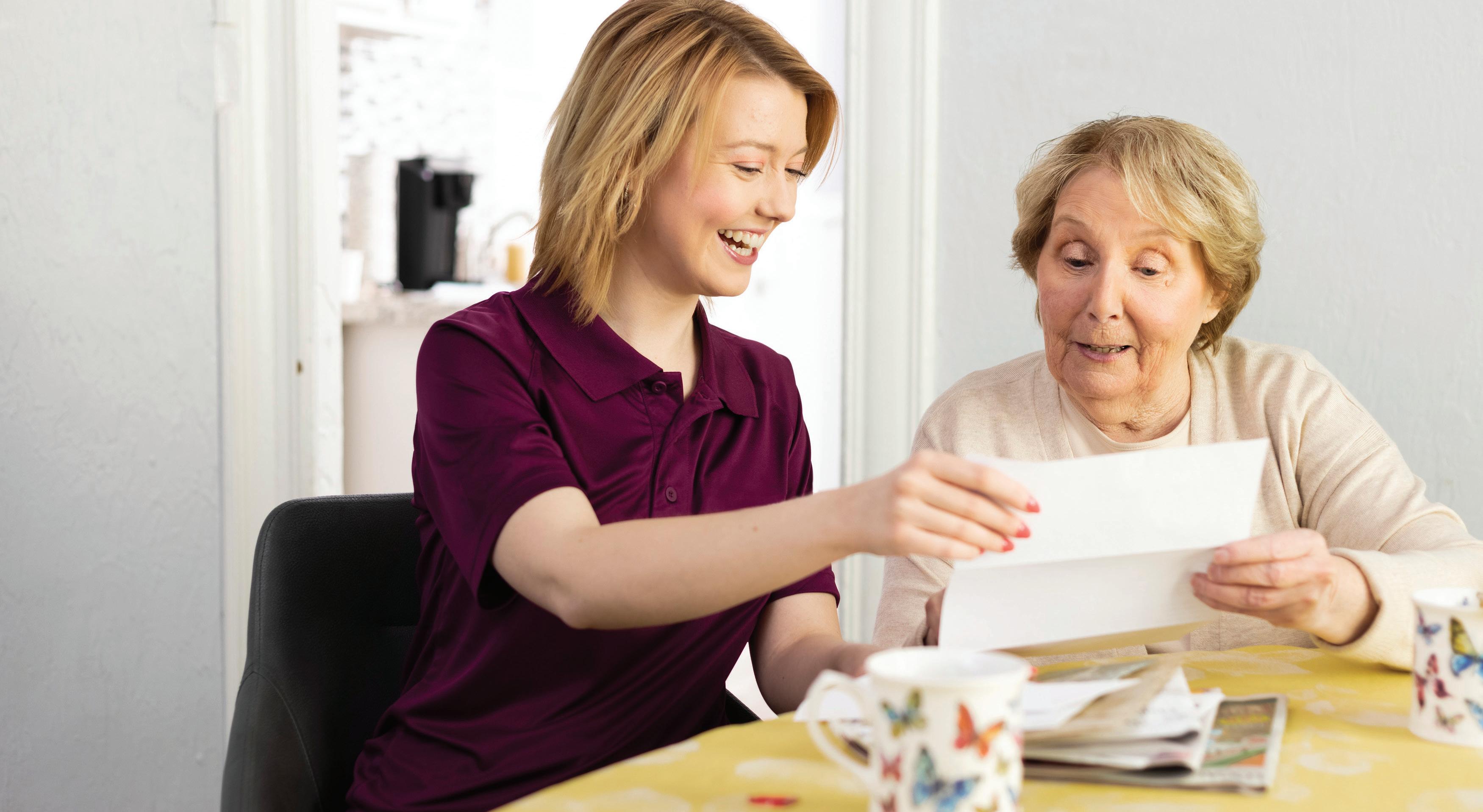
121 ESSENTIAL GUIDE TO AGEING WELL Tax relief can make Private Home Care services more affordable
Allowances & Entitlements
Early Retirement
Early retirement usually means retirement before the age of 65. It may happen because a person is obliged to retire from their job at a certain age, because they choose to take early retirement, or because they have been let go. Sometimes people who are described as taking early retirement have been made redundant. Others who have been obliged to take early retirement may regard themselves as unemployed and there are special provisions for older jobseekers. If you are made redundant, you may get a statutory redundancy lump sum. This is the minimum sum that you must get. A higher payment may of course be negotiated with your employer, either by you or by your union. If you retire early, for whatever reason, you may be entitled to Jobseeker’s Benefit, and later to Jobseeker’s Allowance. You may also be eligible for a range of back to work and back to education schemes. If you do retire early, you should organise to continue your PRSI contributions so that your entitlement to a State Pension (Contributory) is maintained.
Safeguarding your entitlements
If you retire early and do nothing, you will have a number of years during which you have no PRSI contributions. This will mean that you may have difficulty in qualifying for the State Pension (Contributory). If you are not employed or self-employed, you do not have to pay PRSI contributions. You can keep your PRSI contribution record up to date, either by getting credits or paying voluntary PRSI contributions.

122 ESSENTIAL GUIDE TO AGEING
WELL
Allowances & Entitlements
Jobseeker’s Benefit & Jobseeker’s Allowance
Whether you consider yourself to be retired or unemployed, you may be eligible for Jobseeker’s Benefit (JB) if you are aged under 66. You may then be eligible for Jobseeker’s Allowance (JA). If you are claiming JA or JB and you are 62 or over, you are not required to engage with the activation process and you will not be subject to penalty rates for non-engagement. Note that to qualify for either Jobseeker’s Benefit or Allowance

you must be genuinely seeking work and be available for full-time employment and these conditions will continue to apply to older jobseekers. You can voluntarily avail
of a range of supports (for example, training or employment support programmes) from the Department of Social Protection & Department of Further and Higher Education, Research, Innovation and Science. To qualify for Jobseeker’s Benefit (JB) you must, among other things, be unemployed, aged under 66, capable of work, available for work and genuinely seeking work. If you have left work voluntarily, for example, if you have chosen early retirement, you may not get JB for 9 weeks after leaving work. After that, you may have a problem proving that you are available for and genuinely seeking work. If you are aged under 55 and you have
123 ESSENTIAL GUIDE TO AGEING WELL
Allowances & Entitlements
Credits
You get social insurance credits while getting Jobseeker’s Benefit and Jobseeker’s Allowance. So, if you are getting one of these benefits up to age 65 or 66, you do not need to do anything else to maintain your social insurance record. If you do not qualify for Jobseeker’s Allowance because you do not pass the means test, you can sign on for credits. Usually, you are allowed to sign on once a month. If you do not qualify for Jobseeker’s Benefit or Jobseeker’s Allowance because you are considered to be unavailable for work, you may not be able to sign on for credits either. If this is the case or if, for example, you want to spend all or part of your retirement abroad, you can become a voluntary contributor to social insurance. You should apply to the Department of Social Protection to become a voluntary contributor within a year of retirement.
received a redundancy payment of more than €50,000, you may be disqualified from JB for 9 weeks. You can do a certain amount of work and continue to get some Jobseeker’s Benefit. You should check with the Department of Social Protection before taking up work to see exactly what the effect will be. As a general rule, JB is payable for either 9 months or 6 months. However, if you are aged between 65 and 66 when your JB would normally end, you may continue to receive it until the age of 66, provided you meet the PRSI requirements. If you have used up your entitlement to JB or you are not entitled to JB because you do not have enough PRSI contributions, you can apply for Jobseeker’s Allowance if you are under 66. You must, among other things, be unemployed, be capable of, available for, and actively seeking work and pass a means test. In general, if you have a reasonable level of pension from a former employer, you are unlikely to qualify for JA.
Back to Education
If you have been getting an unemployment payment for some time, you may be eligible for the Back to Education Allowance.
124 ESSENTIAL
TO
GUIDE
AGEING WELL
Polio Survivors Ireland was established nearly 30 years ago and is the only organisation in Ireland providing practical services and support to those unfortunate enough to have contracted polio as babies or young children. They provide a range of services including mobility aids and appliances, physiotherapy, occupational therapy and respite, and raise awareness of the issues faced by polio survivors. They also work to educate medical professionals, social care providers and health policy makers about the reality for all those still impacted by polio.
Polio Survivors Ireland has a network of support groups around the country and they also provide a telephone support service for those who can’t leave their home. As well as providing stair lifts, callipers, bespoke footwear, electric scooters and wheelchairs, the organisation also helps survivors to access a range of supports.
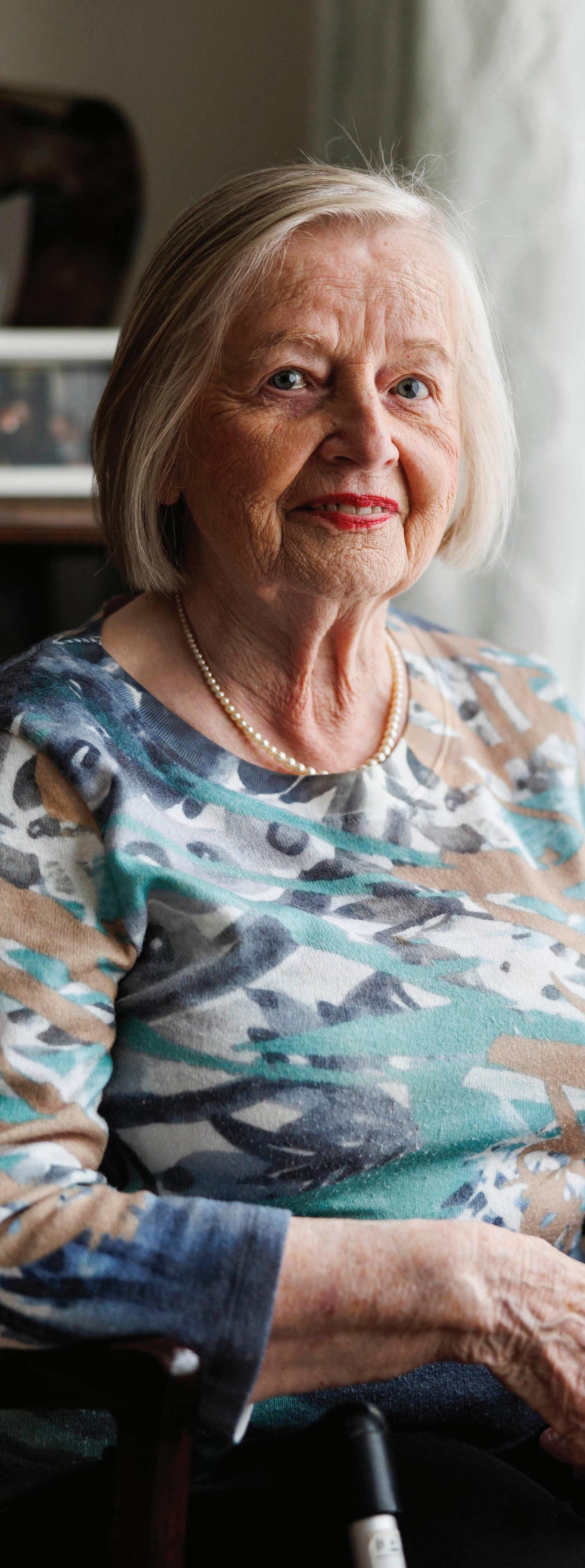
For those who are isolated, a listening ear is often the most important lifeline the organisation provides.
Call 01 889 8920
www.polio.ie
CRA No. 20030926
Polio survivors still need care and support now to help them maintain hard-won independence as they age
Allowances & Entitlements
State Pension (Non-Contributory)
The State Pension (Non-Contributory) is a payment for people aged 66 and over who do not qualify for a State Pension (Contributory) (SPC). If you are getting a reduced SPC, you should check if you would be better off getting a State Pension (Non-Contributory). The State Pension (Non-Contributory) is taxable, but if it is your only income you are unlikely to pay tax on it.
Extra Benefits with a State Pension (Non-Contributory)
If you are getting State Pension (NonContributory), you may be entitled to:
● Rent Supplement – a payment that helps with the cost of your rent.
● Living Alone Increase – a supplementary payment for people getting certain social welfare payments who are living alone.
● Household Benefits Package –a package of benefits that provides financial assistance with the cost of some household utilities. It includes an electricity or gas allowance and a free television licence.
● Free Travel Pass – allows people on certain social welfare payments to access public transport services for free. If you live on a specified island off the Irish coast, you can access certain private transport services.
● Fuel Allowance – an allowance that provides help with the cost of fuel to people who are dependent on longterm social welfare payments.
● Island Increase – a supplementary payment for people getting certain social welfare payments and living on specified islands off the coast.
Budget 2023 State Pension (Non-Contributory) Rates
• From January 2023, the maximum weekly rate of the State Pension (Non-Contributory) will increase by €12 with proportional increases for qualified adults and people on reduced rates of payment.
• The weekly rate for a qualified child will also increase by €2 from €40 to €42 for children under 12 years of age. It will increase by €2 from €48 to €50 for children aged 12 years and over (January 2023).
For more information Further information is available at www.citizensinformation.ie
126 ESSENTIAL GUIDE TO AGEING WELL
Allowances & Entitlements
● Centenarian’s Payment – a payment made to all Irish citizens and people normally considered to be living in the State on reaching 100 years of age.
● Carer’s Support Grant – an annual payment made to carers, aged 16 or over, providing full-time care for at least six months a year. Please see page 135 for more information.
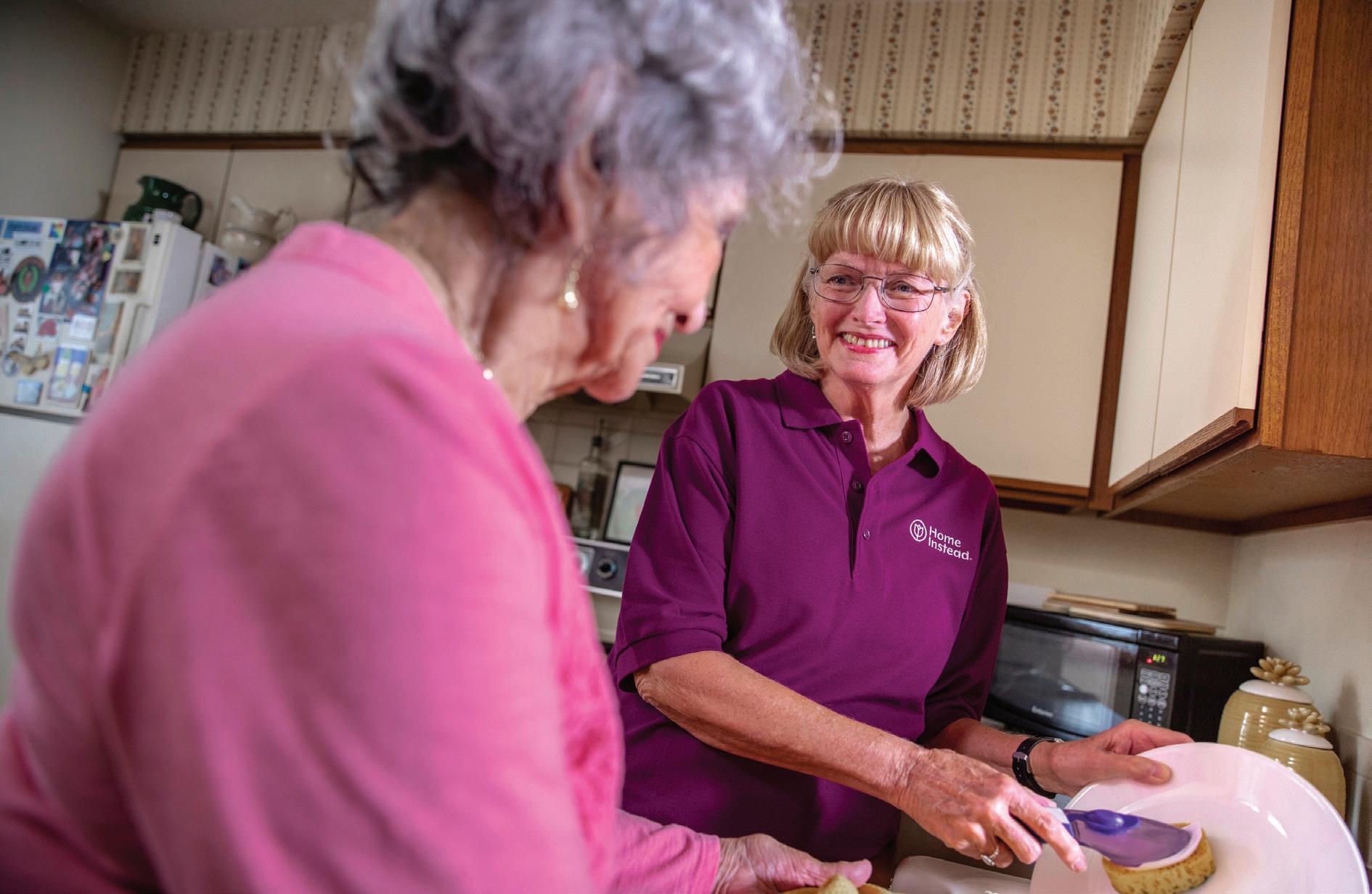
● Telephone Support Allowance – a weekly rate is available for people who are getting both the Living Alone Increase and the Fuel Allowance along with their social welfare payment.
How to Apply
If a relative getting a State Pension (Non-Contributory) from the Department of Social Protection dies, inform the Department of the death as soon as possible and return the person’s social services card (the card they use to collect their payment at the post office). Note both the PPS Number and card number for your reference. Also return their Free Travel Pass. Usually, the spouse, civil partner, cohabitant or carer will receive a payment for six weeks following the death.
Fill in a State Pension (Non-Contributory) application form. Obtain an application form from your Intreo Centre, Social Welfare Branch Office, post office or Citizens Information Centre. Send your completed application form to Social Welfare Services, College Road, Sligo, Ireland. Apply three months before you reach 66.
127 ESSENTIAL GUIDE TO AGEING WELL
Allowances & Entitlements
State Pension (Contributory)
The State Pension (Contributory) is paid to people from the age of 66 who have enough Irish social insurance contributions. It is not means-tested. You can have other income and still get a State Pension (Contributory). This pension is taxable but you are unlikely to pay tax if it is your only income. If you retire early, you should ensure that you continue to pay PRSI contributions or get credited contributions (if eligible) to maintain your entitlement to a pension. If you are getting Jobseeker’s Benefit (JB) and are aged between 65 and 66 when your JB would normally end, you may continue to receive it until the age of 66, provided you meet the PRSI requirements.
Since 30 March 2018, people who applied for the State Pension (Contributory) after
1 September 2012 and whose pensions were reduced (because of contribution gaps for homemaking and caring) have been reassessed under a Total Contributions Approach and can avail of a HomeCaring Periods Scheme. The Total Contributions Approach (TCA) means that a person’s total social insurance contributions paid, rather than when they were paid, are taken into account when assessing their entitlement to a pension. The HomeCaring Periods Scheme provides for up to 20 years of homemaking and caring duties. The changes benefit people who spent time outside the paid workplace, raising families or in caring roles.
Budget 2023 State Pension (Contributory) Rates
• From January 2023, the maximum weekly rate of the State Pension (Contributory) will increase by €12 with proportional increases for qualified adults and people on reduced rates of payment.
• The weekly rate for a qualified child will also increase by €2 from €40 to €42 for children under 12 years of age. It will increase by €2 from €48 to €50 for children aged 12 years and over (January 2023).
For more information
Further information is available at www.citizensinformation.ie
128 ESSENTIAL GUIDE TO AGEING WELL
Allowances & Entitlements
Brexit and the State Pension (Contributory)
On 31 January 2020 the UK exited the EU. However, you will still get your Irish State Pension (Contributory) or UK State Pension, as before. Irish and UK citizens living in Ireland can still benefit from social insurance contributions made when working in the UK.
Extra Benefi ts
You are automatically paid an extra allowance of €10 per week when you reach 80 years of age. This increase is not paid to adult dependents. In addition, a Living Alone Increase may be payable to people who live completely alone. You may also be eligible for other benefits:
● Medical Cards: If you have a medical card issued by the Health Service Executive (HSE), you can receive certain health services free of charge. Normally, your dependent spouse or partner and your children are also covered for the same range of health services. To qualify for a medical card, your weekly income must be below a certain figure for your family size. Cash income, savings, investments and property (except for your own home) are taken into account in the means test. The assessment of a couple for medical card purposes is based on the age of the older person. If your income is above the limit, you may still be able to obtain a medical card if your circumstances would result in hardship without one. This is sometimes called a discretionary medical card. Locall 0818 22 44 78 to apply for a medical card or contact your local health office. You can also apply online at www.medicalcard.ie.
● Household Benefits Package: This is a package of allowances which help you with the costs of running your household. The package is available to everyone aged over 70 and to people under age 70 in certain circumstances. You must be living permanently in the State (this means fulltime and all year round) and you must apply for a Public Services Card (PSC) if requested to do so by the Department of Social Protection. Only one person in a household can qualify for the package at any time. You must show that you are the registered consumer at the address for which you are applying for the Household Benefits, for example, by providing a utility bill. If you are renting your home, your landlord must provide written confirmation that you are a tenant (including the MPRN or GPRN of the address you are living at) and confirm that you are paying your own energy bills.
129 ESSENTIAL GUIDE TO AGEING WELL
Allowances & Entitlements
Budget 2023 Fuel Allowance
From January 2023, the following changes will apply to how income is assessed in the means test for Fuel Allowance:
• Disablement Benefit and half-rate Carer’s Allowance will be disregarded in the means test for Fuel Allowance.
• People aged 70 and over do not need to be getting a qualifying social welfare payment. Capital (savings and investments) not taken into account in the means test will increase from €20,000 to €50,000. They can have a weekly means (which includes their State Pension) up to €500 per week for a single person and €1,000 per week for a couple. In the case of a couple, only the person applying for the allowance needs to be aged 70 or over.
• For people aged under 70, the weekly allowable means above the applicable State Pension (Contributory) rate will increase from €120 to €200.
For more information
Further information is available at www.citizensinformation.ie
● Fuel Allowance: A Fuel Allowance is a payment under the National Fuel Scheme to help with the cost of heating your home during the winter months. It is paid to people who are dependent on long-term social welfare payments and who are unable to provide for their own heating needs. For more information, Locall 0818 200 400 or 071 915 7100. Alternatively, ask for application form NFS1 at your local post office or find it online.
● Child Dependants: You can also get an increase in your pension payment for child dependants (called qualified children).
How to Apply for these Benefits
You can request a copy of your social insurance record through www.MyWelfare.ie. To do this, you need your PPS (Personal Public Service) Number. You can get a State Pension (Contributory) form from your local post office and your Intreo Centre or Social Welfare Branch Office. You should apply three months before the age of 66. However, if you have paid social
insurance contributions in more than one country, you should apply six months before reaching 66. If you are currently getting a State Pension Contributory and wish to apply for an Increase for a Qualified Adult for your spouse, civil partner or cohabitant, you should fill out form SPCQA1. Note that any increase for a qualified adult that you may qualify for will be paid directly to your spouse, civil partner or cohabitant, unless they state that they wish to have it paid to you. You may qualify for Supplementary Welfare Allowance if there is a delay in processing your claim. Late claims for contributory pensions can be backdated for a maximum of six months. This applies to State Pension (Contributory and Transition) and Widow’s, Widower’s or Surviving Civil Partner’s (Contributory) Pension. Questions about your eligibility for a State Pension (Contributory) should be addressed to your Intreo Centre or Social Welfare Branch Office or to the Department of Social Protection, Social Welfare Services, College Road, Sligo, Ireland. Locall: 0818 200 400 or visit www.welfare.ie
ESSENTIAL
TO AGEING
GUIDE
WELL
130
Allowances & Entitlements
Carer’s Allowance
Carer’s Allowance is a payment to people on low incomes who are looking after a person who needs support because of age, disability or illness. If you qualify for a Carer’s Allowance you may also qualify for free household benefits (if you are living with the person you are caring for) and a Free Travel Pass. If you are providing care to more than one person you may be entitled to an additional 50% of the maximum rate of Carer’s Allowance each week. Two carers who are providing care on a part-time basis in an established pattern can also share a single Carer’s Allowance payment and the annual Carer’s Support Grant. Each carer must be providing care from Monday to Sunday but can do so on alternate weeks. A carer providing full-time care on a part-
Budget 2023
Carer’s Allowance Rates
time basis is required under legislation to provide this care for a complete week. A carer who is providing care on a parttime basis to someone who attends a residential institution, for example, every other week, can also be accommodated on the Carer’s Allowance scheme. You must meet all the usual qualifying conditions for Carer’s Allowance. The Carer’s Support Grant (formerly called the Respite Care Grant) is automatically paid to people getting Carer’s Allowance in June of each year. Carer’s Allowance is a taxable source of income. Your payment is made up of a personal rate for yourself and extra amounts for any child dependants.
• The maximum weekly rate of Carer’s Allowance will increase by €12 with proportional increases for people on reduced rates of payment in January 2023.
• The weekly rate for a qualified child will also increase by €2 from €40 to €42 for children under 12 years of age. It will increase by €2 from €48 to €50 for children aged 12 years and over (January 2023).
• Since 1 June 2022, if you are single, €350 of your gross weekly income is not taken into account in the means test for Carer’s Allowance. If you are married, in a civil partnership or cohabiting the first €750 of your combined gross weekly income is not taken into account.
For more information
Further information is available at www.citizensinformation.ie
131 ESSENTIAL GUIDE TO AGEING WELL
Allowances & Entitlements
You may claim a full-rate increase in your payment for a child dependant if you are a carer and are single, widowed, separated or a civil partner who is not living with the other civil partner. You may claim a halfrate increase in your payment for a child dependant if you are a carer and are living with your spouse, civil partner or cohabitant.
How to Apply
You should apply for a Carer’s Allowance as soon as possible.
To apply, fill in an application form for Carer’s Allowance (CR1). You also fill in a CR2 if you are caring for more than one person.
Download at: www.gov.ie
Or Contact
Department of Social Protection, Carer’s Allowance Section, Social Welfare Services Office, Government Buildings, Ballinalee Road, Longford, Ireland. Tel: (043) 334 0000
Locall: 0818 927 770
Email: carersallowance@welfare.ie
For more information
Further information is available at www.citizensinformation.ie
Carer’s Allowance continues to be paid for 12 weeks after the death of the person being cared for. If the person being cared for moves permanently into a residential care or nursing home the Carer’s Allowance continues to be paid for a period of 12 weeks.
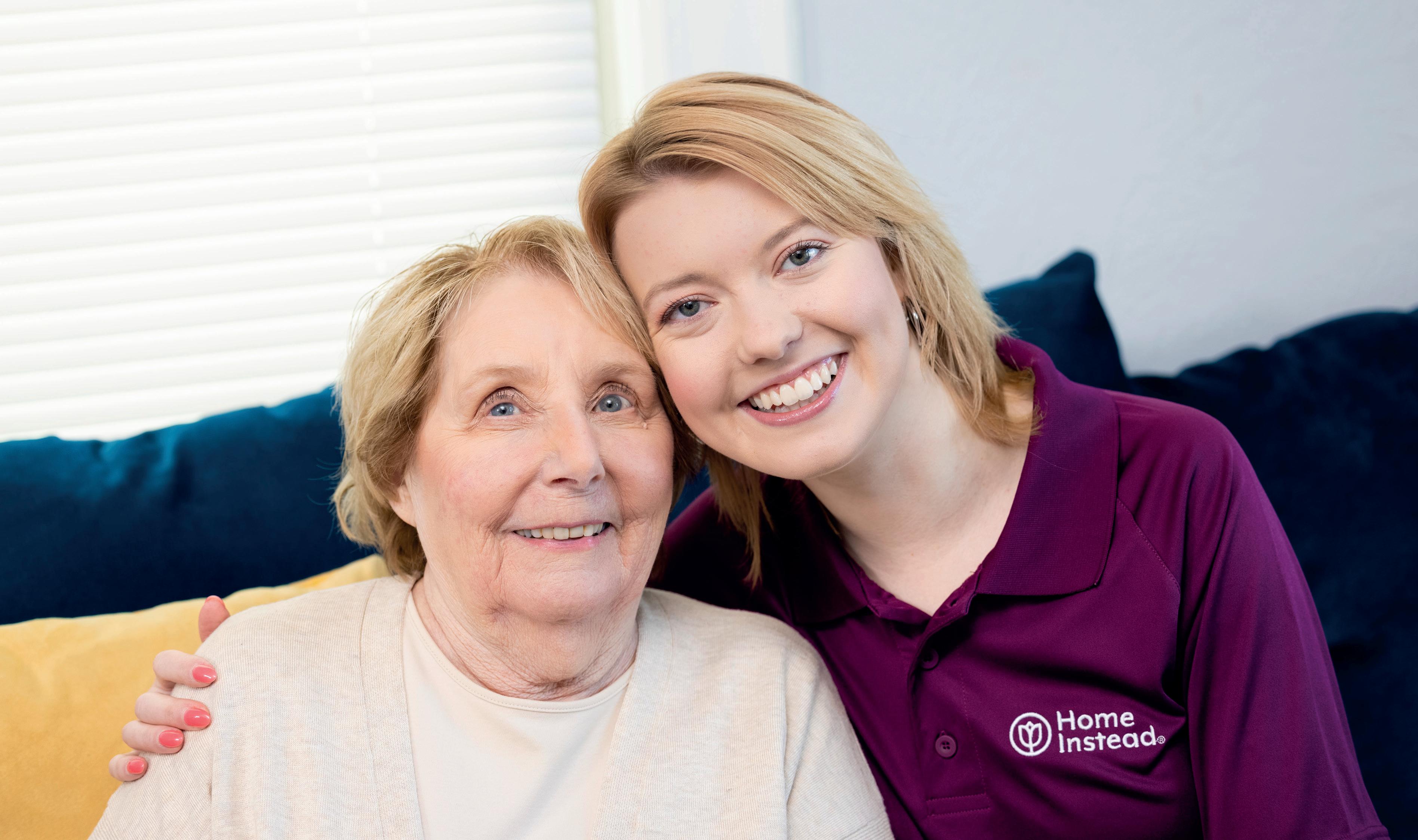
Half-Rate Carer’s Allowance
If you are getting certain social welfare payments and you are providing fulltime care and attention to another person, you can keep your main social welfare payment and get a half-rate Carer’s Allowance as well. If you are in one of the following situations you may qualify for half-rate Carer’s Allowance:
● Already getting Carer’s Allowance but also meet the qualifying criteria for another social welfare payment. If you are getting Carer’s Allowance and you also meet the qualifying conditions for another social welfare payment (for example, a State pension) you should apply for the other payment. If you qualify for the other payment you will be paid it in full and keep half your Carer’s Allowance payment as well. If you are currently getting Carer’s Allowance and your spouse, civil partner or cohabitant is claiming another social welfare payment (for example, Jobseeker’s Allowance), your spouse, civil partner or cohabitant may claim an increase in their social welfare payment for you as a qualified adult and your Carer’s Allowance will be reduced by 50%. This can only be done with your consent but it may increase your total household income.
132 ESSENTIAL GUIDE TO AGEING WELL
Application forms are also available from your local social welfare office

CONTINUITY OF CARE | SECURITY | PEACE OF MIND Each Home Instead® office is independently operated. Live-in Care: a new option in provision of daily home care Dedicated CAREGivers deliver care plan tailored to your loved one’s requirements. Call 1800 911 855 Visit HomeInstead.ie
Allowances & Entitlements
● Changed from another social welfare payment to get Carer’s Allowance. If you were on another social welfare payment before claiming Carer’s Allowance, you may get your original payment reinstated and also get half-rate Carer’s Allowance, if you continue to meet the qualifying conditions for both schemes.
● Caring for someone and being claimed for by a spouse, civil partner or cohabitant. If your spouse, civil partner or cohabitant is claiming for you as a qualified adult on their payment and you are providing fulltime care to another person, you can apply for half-rate Carer’s Allowance and keep your current increase for a qualified adult in full.
● Getting a social welfare payment other than Carer’s Allowance and caring for someone. If you are getting one of the social welfare payments payable and caring for someone, you may keep your social welfare payment and qualify for half-rate Carer’s Allowance. If you satisfy the conditions for Carer’s Allowance, it will be awarded at 50% of the rate that would apply if you were not getting any other payment. Any increase you may be entitled to, for example, an increase for a qualified child, living alone or living on an offshore island, will be paid with your main social welfare payment and not with the half-rate Carer’s Allowance.
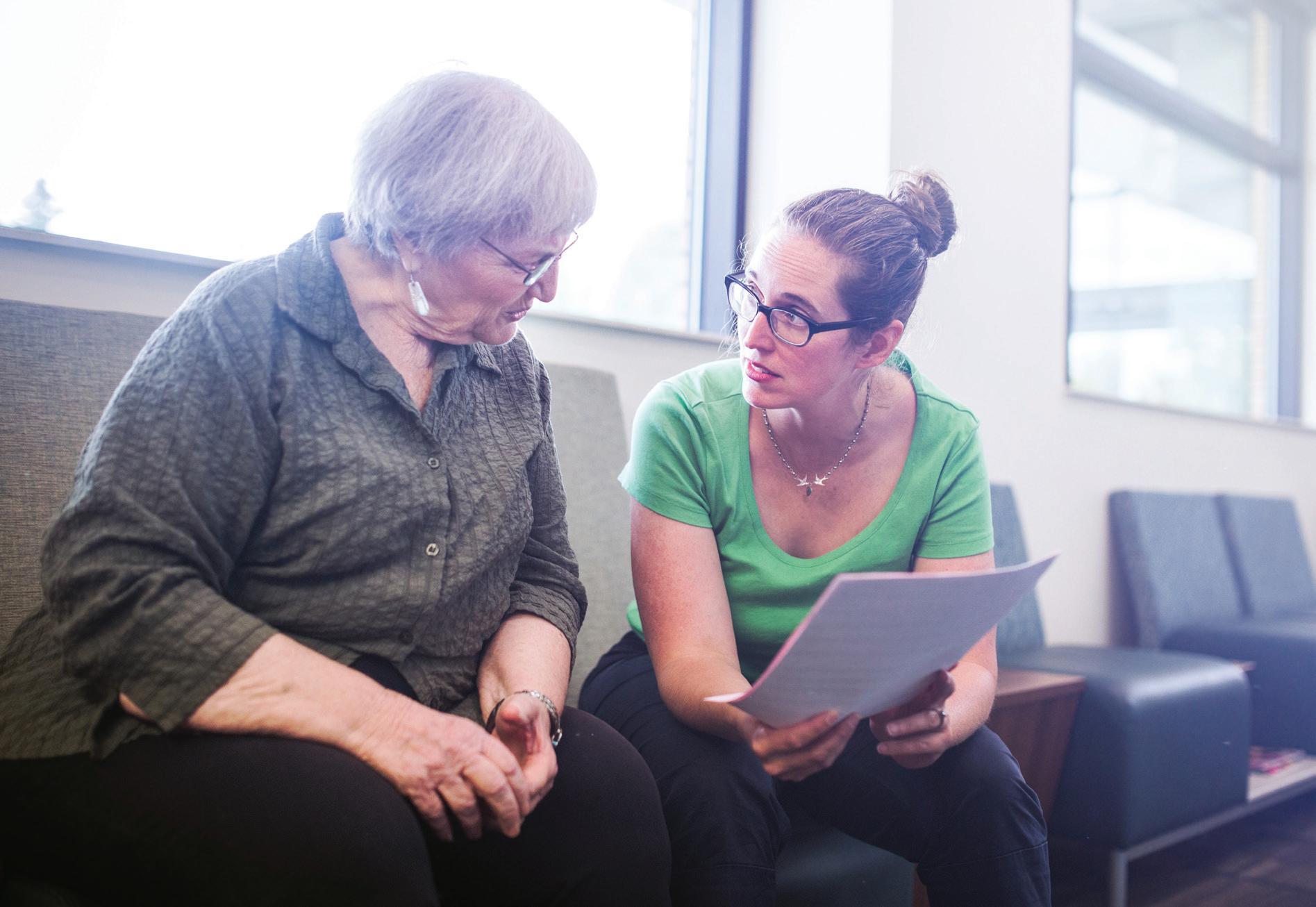
134 ESSENTIAL GUIDE TO AGEING WELL
Allowances & Entitlements
Carer’s Support Grant
The Carer’s Support Grant is an annual payment made to carers by the Department of Social Protection. Carers can use the grant in whatever way they wish. You can use the grant to pay for respite care if you wish, but you do not have to do so. A Carer’s Support Grant of €1,850 is paid once each year, usually on the first Thursday in June, for each person you are caring for. It is not taxable. If you are getting Carer’s Allowance, Carer’s Benefit or Domiciliary Care Allowance, you do not need to apply for the Carer’s Support Grant. It will be paid automatically paid to you in June.
How to Apply
You can find a Carer’s Support Grant application form at your Intreo Centre of Social Welfare Branch
Office, Citizens Information Centre or online.
Download at: www.gov.ie
Budget 2023
Carer’s Support Grant
• It was announced that carers who qualify for the Carer’s Support Grant will get a onceoff payment of €500 the week starting 21 November 2022. You will get one payment of €500 only, even if you are caring for more than one person.

Or Contact
Department of Social Protection, Carer’s Support Grant Section, Social Welfare Services Office, Government Buildings, Ballinalee Road, Longford, Ireland.
Tel: (043) 334 0000
Locall: 0818 927 770
Email: respitecare@welfare.ie
135 ESSENTIAL GUIDE TO AGEING WELL
Allowances & Entitlements
Carer’s Benefi t
Carer’s Benefit is a payment made to insured people who leave the workforce to care for a person(s) in need of full-time care and attention. You can get Carer’s Benefit for a total period of 104 weeks for each person being cared for. This may be claimed as a single continuous period or in any number of separate periods up to a total of 104 weeks. However, if you claim Carer’s Benefit for less than six consecutive weeks in any given period you must wait for a further six weeks before you can claim Carer’s Benefit to care for the same person again. If you are caring for more than one person, you may receive payment for each care recipient for 104 weeks. This may result in the care periods overlapping or running concurrently. The number of hours that a carer can work or study every week outside the home is 18.5 hours.
How to Apply
Fill in an application form for Carer’s Benefit. This form (CARB1) is also available from your local Intreo Centre or Social Welfare Branch Office. The Department of Social Protection recommends that you apply for Carer’s Benefit 10 weeks before you leave employment.
If you are applying for Carer’s Benefit for a second person you should use the application form CARB2.
Budget 2023: Changes to Carer’s Benefi t:
From December 2022:
People who are in receipt of Carer’s Benefit will get the Christmas Bonus double payment which will be paid from the week commencing 5 December.
From January 2023:
The maximum weekly payment rate of Carer’s Benefit will increase by €12. The weekly full rate for a qualified child will increase to:
• €42 for children under 12 years of age
• €50 for children aged 12 years and over
136 ESSENTIAL GUIDE TO AGEING WELL
For more information Visit: www.citizensinformation.ie
Allowances & Entitlements
Carer’s Leave
Your right to carer’s leave from employment complements the Carer’s Benefit Scheme. Carer’s leave allows you to leave your employment temporarily for up to 104 weeks to provide full-time care for people in need of full-time care and attention. The leave is unpaid but people who take carer’s leave have their jobs kept open for the duration of the leave. You do not have to be eligible for Carer’s Benefit to get carer’s leave. If you think you have been wrongly refused Carer’s Benefit, or you are unhappy about a decision of a social welfare deciding officer about your entitlements, you can appeal this decision.
Tax Implications
Carer’s Benefit is a taxable source of income. You should contact your local tax office if you have any questions.
Home Carer Tax Credit
A Home Carer Tax Credit is a tax credit given to married couples or civil partners (who are jointly assessed for tax) where one spouse or civil partner works in the home caring for a dependent person. The tax you are liable to pay is calculated as a percentage of your income. A tax credit is deducted from this to give the actual amount of tax that you have to pay. A tax credit has the effect of reducing your payable tax by the amount of the credit. See Revenue.ie for current credits and further information.
Carer’s Allowance or Carer’s Benefit are not taken into account when determining the home carer’s income but they are taxable sources of income. This means that if you are claiming Carer’s Allowance or Carer’s Benefit, it will make up part of your jointly assessed income.
Continuing the Payment After a Death
If the person you are caring for dies, payment of Carer’s Benefit will continue for six weeks following the death.
Tax Relief on the Costs of Employing a Home Carer
You can claim tax relief on the cost of employing a professional carer either if you employ one for yourself, or for another family member. You can employ the carer directly or you can use an agency. If you employ the carer directly yourself, you should register as an employer and you will be responsible for your employee’s tax and social insurance (PAYE, USC & PRSI), along with other responsibilities, such as contracts of employment, provision of payslips and compliance with minimum wage regulations. If you pay an agency such as Home Instead to provide the carer, they will hold the responsibilities as the employer, but you will still be able to claim tax relief.
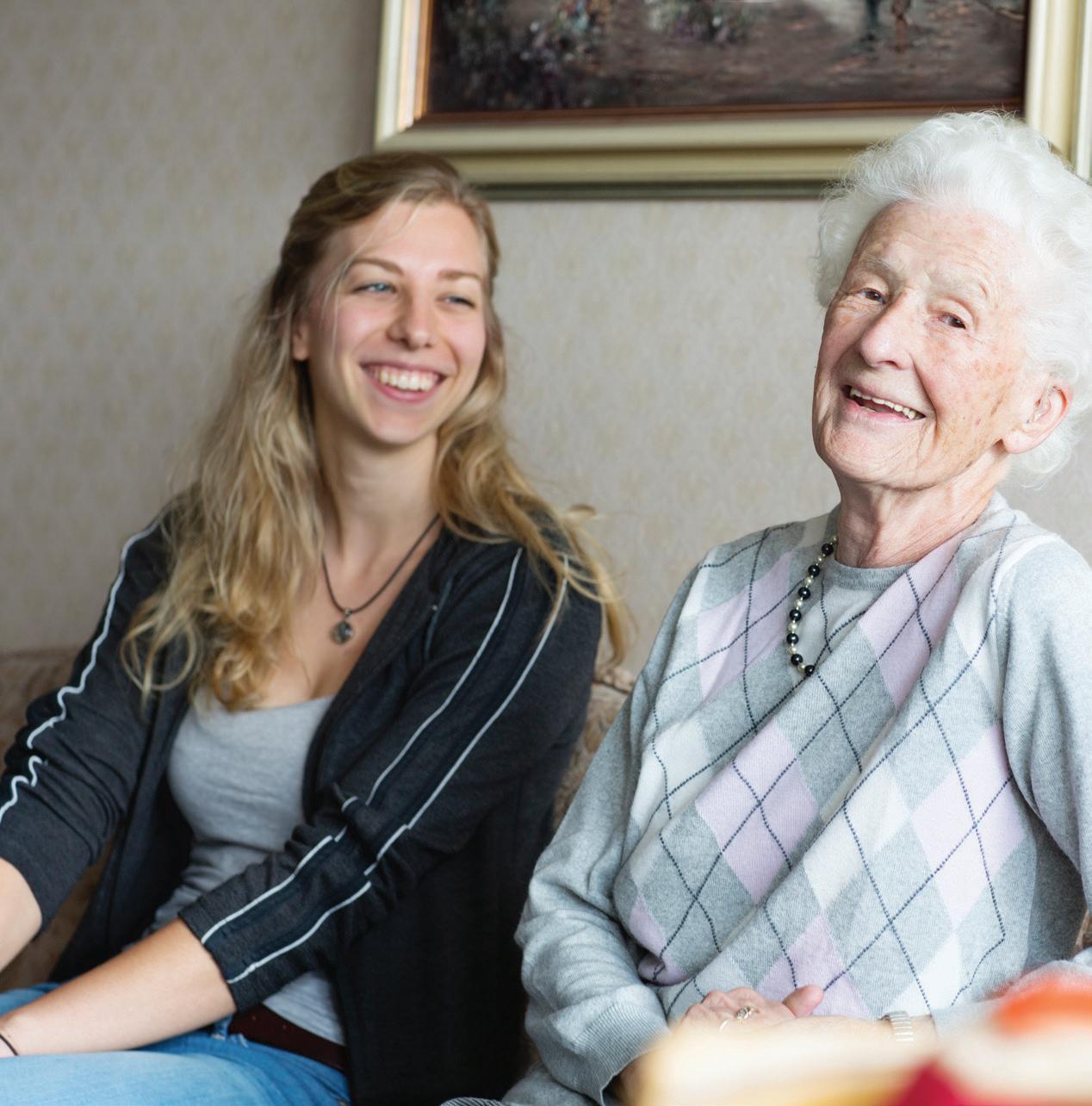
137 ESSENTIAL GUIDE TO AGEING WELL
Allowances & Entitlements
● Rules If you employ a carer for yourself or on behalf of a family member, you can claim the tax relief. A family member is a spouse, civil partner, or a relation by marriage or civil partnership. The person being cared for must be totally incapacitated for the complete tax year in which you are claiming the tax relief, but the carer does not have to be employed for the full tax year. You cannot claim tax relief for employing a carer if the carer only carries out housekeeper duties or if a Dependent Relative Tax Credit or
Private care notes
an Incapacitated Child Tax Credit has already been granted.
● Rates The amount by which a tax allowance/relief will reduce your tax depends on your rate of tax. You can claim tax relief (at your highest rate) on the lower of the actual cost incurred or the maximum deduction of €75,000. The maximum amount of relief for employing a carer is €75,000 in 2022. You must claim the relief each year. You can receive the tax relief on a monthly or annual basis.
While the home-care tax relief scheme results in a dramatic decrease in the cost of relationship-based care, many people remain unaware of it. Home Instead’s Care Managers help families understand the scheme during their initial care consultation.
“In approximately 90% of cases I have dealt with, the families are not aware of any home care tax relief scheme prior to consultation,” says Glenda McCourt, Care Manager at Home Instead Louth.
“I start by mentioning that we at Home Instead understand how very important it is, to keep the cost of our relationship-based care as affordable as possible,” says Glenda. “I explain that the Revenue Commissioners allow the person or family members paying for the care to claim tax relief monthly or yearly, up to 40%.
“When I email our service rates to a client or next of kin, I always send a copy of the HK1 and include a copy with all brochures that I send in the post. I do advise clients and family members to contact Revenue themselves as each client case is different!”
138 ESSENTIAL GUIDE TO AGEING WELL
Tax relief scheme helps keep cost of care as aff ordable as possible

you a complaint about a nursing home or a public body?
If so, the Ombudsman may be able to help.
The Ombudsman investigates complaints about providers of public services such as:
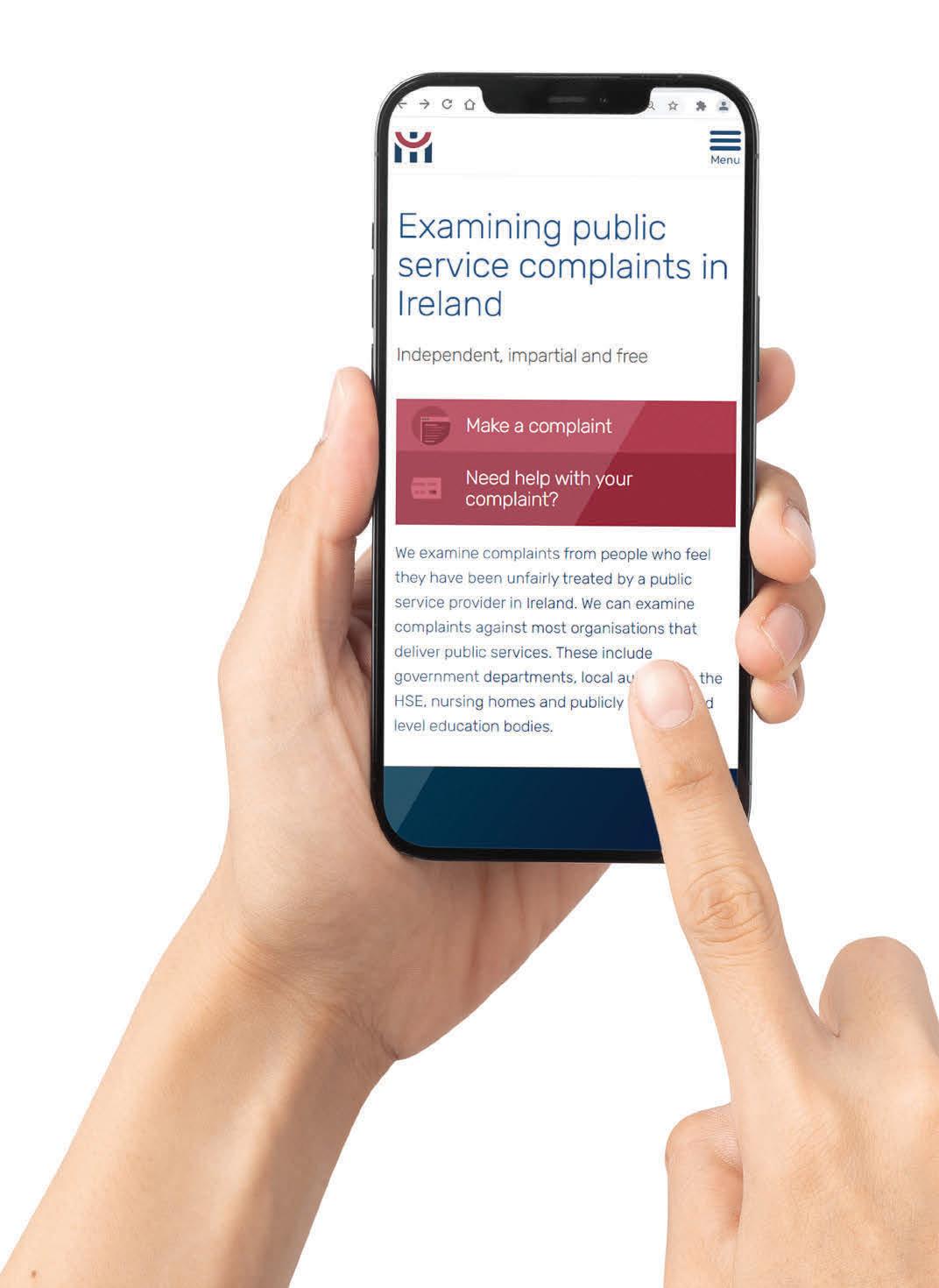
• government departments
• local authorities
• the HSE
• nursing homes
• education bodies
You must have tried to resolve your complaint with the public body before contacting the Ombudsman.
If you are unhappy with the response then you can complain to the Ombudsman: Online: www.ombudsman.ie
In writing: 6 Earlsfort Terrace, Dublin 2. Call us if you need any assistance at 01 639 5600.
The Ombudsman cannot take complaints about consumer matters, financial services, private pensions or An Garda Síochána.
OUR SERVICE IS IMPARTIAL, INDEPENDENT & FREE
Have
Financial & Legal
Planning in advance to safeguard yourself in the future
Patricia Rickard-Clarke, Chair of Safeguarding Ireland

In 2016 Safeguarding Ireland (which was then known as the National Safeguarding Committee) commissioned a baseline nationwide public opinion survey on abuse of vulnerable adults. The results showed that 1 in 2 Irish adults claim experience of vulnerable adult abuse either to themselves (as a vulnerable adult) or to somebody close to them. Since 2016 the HSE has published annual data on reported cases of concern of alleged abuse, the most recent being 10,216 cases for the year 2020 a decrease over the previous years due to the challenges of the Covid-19 pandemic.
A RedC Poll (November 2019) indicated that over 20% of vulnerable adults have experienced financial abuse and HSE figures indicate that the figure reaches almost 30% for those over the age of 80 years.
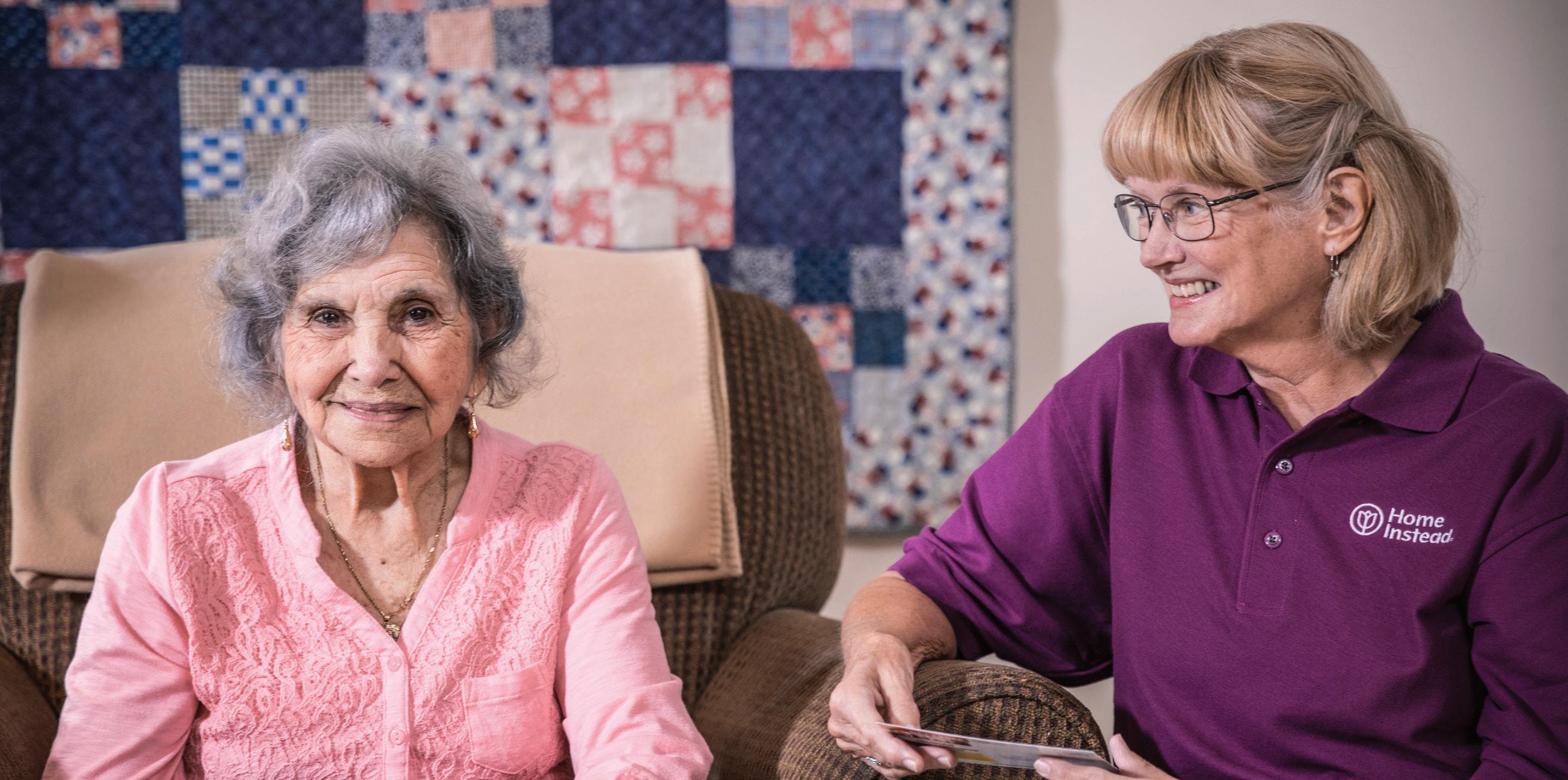
So the evidence indicates a worrying prevalence of abuse of adults who may be vulnerable, and yet very few people have put in place arrangements that would assist with the prevention of abuse particularly at a time when they may lack capacity to make decisions personally. Recent research showed that just 6% of adults had appointed an Attorney under an Enduring Power of Attorney and just 8% had discussed a preferred place of care.
Abuse occurs when an individual’s rights are not respected, these include the right
141
ESSENTIAL GUIDE TO AGEING WELL
to autonomy, the right to be treated with dignity and respect, the right to privacy, the right to be treated equally and without discrimination, the right to bodily integrity and the right to have control over financial affairs and property. It is important therefore that each of us take the responsibility to plan in advance and to put arrangements in place in relation to our property, health and care decisions. By doing so it informs those who need to know, what our wishes are, and also avoids complex family disputes.
What arrangements can a person make to plan for a time when they may lack capacity to make decisions for themselves?
A person who has decision-making capacity can plan in advance and appoint a person they trust (and who is a suitable person to make particular decisions) to make decision for them in the future when they may lack capacity. Many of the abuses which occur, are where decisions are made by family members and others (including professionals) which ignore the rights and wishes of an older person or a person with a disability. One such example is the right of a person to decide where they wish to reside and/or receive care. Many older people would wish to remain in their own homes and to die at home but are denied the right to do so by others making decisions on their behalf, which may be for the convenience of others but are not in accordance with the wishes of the older person. It is important that older people do express their wishes with regard to such matters and to express those wishes in writing.
Enduring Power of Attorney
The level of financial abuse of an older
person is often facilitated because the older person has not created what is termed an Enduring Power of Attorney (EPA). An EPA is the giving by a person, when they have decision-making capacity, formal authority to another person called an attorney to make decisions when they are no longer able to make those decisions for themselves in the future. It is possible to appoint more than one person and the attorney(s) may be a family member or friend.
The authority given to an attorney may be the general authority to make decisions with regard to all or a specified part of a person’s property and affairs or to do specified things in relation to property and affairs. The authority given to an attorney may also include decisions in relation to personal care and wellbeing decisions – to include accomodations such as to whether the person should receive care in a nursing home or at home. The authority given in an EPA can also be given subject to conditions and restrictions and can also direct the attorney to consult with other persons. This can be useful in a family situation where one or two adult children may be appointed and a parent is anxious that other children be consulted in relation to decisions to be made.
For the EPA to be valid certain formalities must be followed. The EPA must be made when the person making the EPA has decision-making capacity and it must be in writing. To make an EPA it is necessary to seek the advice of a solicitor. The solicitor is also obliged to make a statement confirming that he or she is satisfied that the person understands the implications of making the EPA (the giving of authority to an attorney to control and manage finances and property in the future). The solicitor must also state that he or she is satisfied that the person
142 Financial & Legal ESSENTIAL GUIDE TO AGEING WELL
is aware that the EPA may be varied or revoked prior to it coming into effect and that the solicitor has no reason to believe that the person was put under pressure or coerced into making the EPA.
At the time of the making of the EPA it is also necessary to obtain a statement from a medical practitioner (which can be a GP) that at the time of making the EPA the person had the capacity to understand the implications of creating the EPA. The attorney/s must also confirm his or her understanding of undertaking to act as attorney and is also obliged to undertake to act in accordance with the authority conferred in the EPA.
There are other formalities to be complied with including the giving of notice to family members of the fact that an EPA has been made.
An EPA only comes into effect when it is registered and when the person lacks
the capacity to make the decisions set out in the EPA. Currently registration takes place with the High Court but on the commencement of the Assisted Decision-Making (Capacity) Act 2015, an EPA must be registered with the Director of Decision Support Service and an attorney will then be obliged to report annually to the Director.
Advance Healthcare Directive

A person can, when they have decision-making capacity, set out in, what is termed an Advance Healthcare Directive (AHD), their ‘will and preferences’ concerning treatment decisions that may arise in the future when they lack capacity. Treatment decisions may also include end of life decisions.
The 2015 Act sets out a legal framework for AHDs and the formalities to be followed to ensure an AHD is valid and applicable. However, pending the commencement of the 2015 Act (which was scheduled for full commencement in
143 Financial & Legal ESSENTIAL GUIDE TO AGEING WELL
June 2022), a person may now validly set out their ‘will and preferences’ to enable them to be treated according to their wishes and to provide healthcare professionals with important information about their treatment choices.
An AHD is mainly about a refusal of treatment and it is important that the specific refusal of treatment and the circumstances around the refusal of treatment are clearly set out. A general directive such as ‘I do not wish to have any treatment in any circumstances’ would not be a valid AHD.
A request for specific treatment is not legally binding (a person cannot demand treatment that is unnecessary) but the request will be taken into consideration if it relates to the specific treatment that is relevant to the medical condition of the person who made the directive.
The benefits of making an AHD is that family and those close to the maker of the directive know of the treatment choices as family (next-of-kin) do not have any authority to make decisions on behalf of a family member unless they have been given legal authority to do so. An AHD will only come into effect when the maker of the directive no longer has capacity to consent to or refuse medical treatment.
Conclusion
It is important that we set out what decisions we wish to be made on our behalf and who has the authority to make those decisions when we are no longer in a position to make those decisions personally. Setting out our wishes in this manner will enable our rights to be respected and assist those who wish to support us to safeguard us from any potential abuse.
Less than 20% of people who experience adult abuse report it to the Gardai or a health and social care professional, while 41% have said they took no action at all – according to new RED C research announced today.
A survey of a representative sample of 1,000 adults carried out by RED C found that 44% of adults said that they personally had experienced abuse. Yet of those who had experienced abuse; 41% said they did nothing at all about it, and half of these said they took no action because they did not know what to do.
Just 9% reported it to the Gardaí and 9% discussed it with a health and social care professional.
Safeguarding Ireland Chairperson Patricia Rickard-Clarke said the key message for Adult Safeguarding Day was for more people to take action and report abuse.
“If there is an immediate risk of serious harm to you or another person it should be reported immediately to the Gardaí by calling 999 or 112. If there is serious but not immediate risk the local Garda station should be contacted, or the Garda confidential line at 1800 666 111.
“For an ongoing concern, there are nine HSE Safeguarding Teams across the country who are available to support people and families to address difficult circumstances and ensure that people’s safety, welfare and rights are upheld.”
The RED C research also found that 66% of people knew someone who had experienced abuse. Half of respondents said they took action by discussing it with the person, but just 4% reported the person’s issue to the Gardai and 4% discussed it with a health and social care professional.
144 Financial & Legal ESSENTIAL GUIDE TO AGEING WELL
Drive to encourage more people to report adult abuse to the Gardaí and HSE
The most common type of abuse for people to experience was emotional (32%) followed by psychological including coercive control (19%), physical (14%), sexual (11%), financial (9%) and cyber / online (7%).
The survey found that women were substantially more likely than men to have experienced emotional, psychological, physical and sexual abuse. 57% of younger women aged 18-34 reported experiencing any type of abuse compared to 35% of men. 20% of younger women had experienced cyber abuse.
The HSE National Safeguarding Office General Manager Tim Hanly encouraged more people to make contact with the HSE safeguarding Teams: “If a risk is serious and immediate the first port of call is always the Gardaí at 999 or 112. For an ongoing concern about abuse and a person’s wellbeing the HSE Safeguarding
and Protection Teams are available to listen and to help tease out concerns, to give advice, to provide support and to work with people to address difficult circumstances. Contact details for the nine regional safeguarding teams are at www.hse.ie/ safeguarding.”
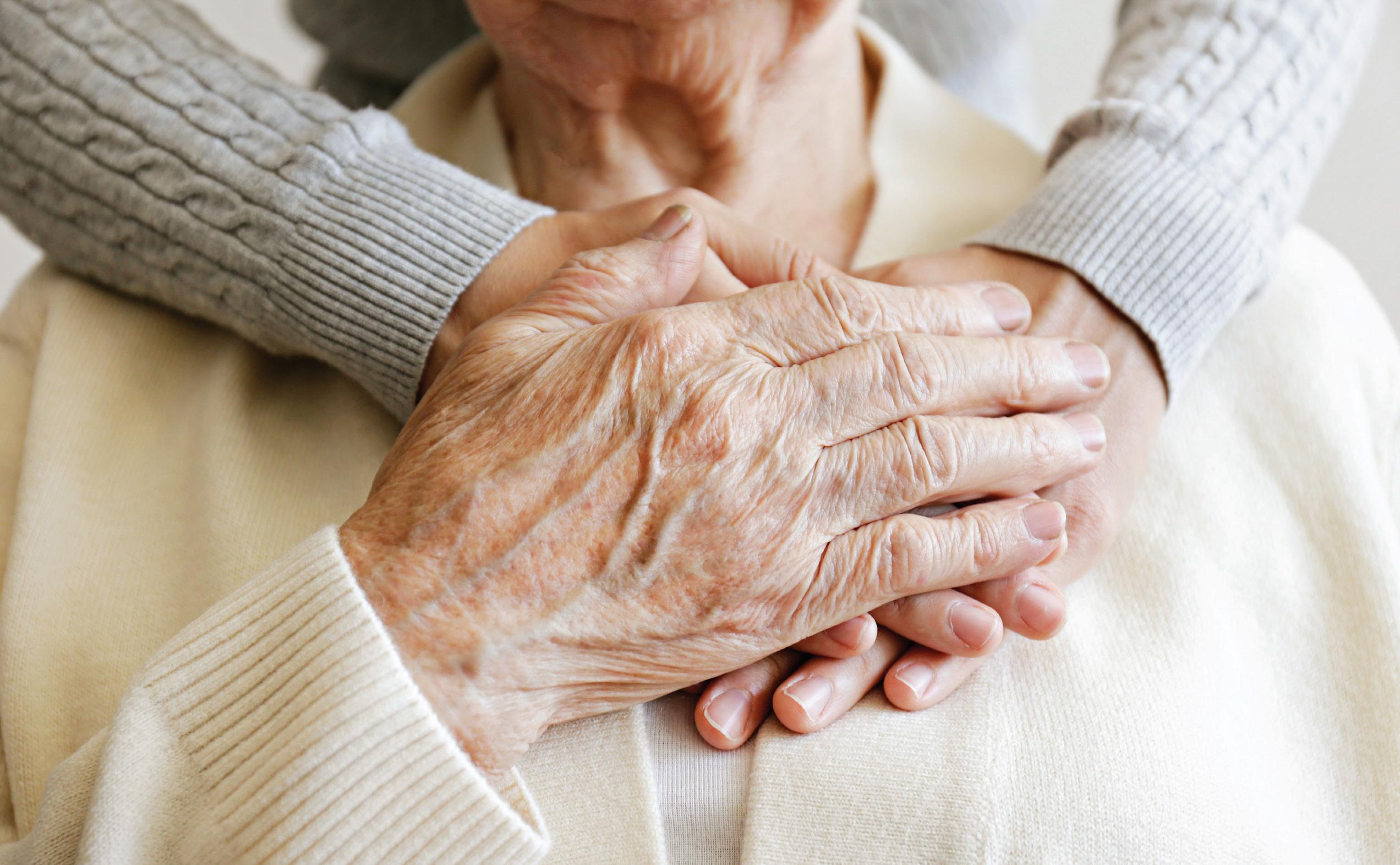
The Minister of State at the Department of Justice James Browne welcomed the drive to encourage more people to take action against adult abuse:
• Less than 20% of people who experience adult abuse report it
• 44% have experienced adult abuse
• 66% know someone who has experienced adult abuse
145 Financial & Legal ESSENTIAL GUIDE TO AGEING WELL
“Safeguarding Ireland’s mission to promote the rights of vulnerable adults and ensure their protection from all forms of abuse is incredibly important. This Government and my Department are committed to improving access to justice for all, including people who might be in a more vulnerable position because of reduced capacity.”
New laws on decision-making are expected to come into effect in early 2023 (the Assisted Decision-Making Capacity Act) and will place a greater responsibility on organisations to support the decision-making of adults who may be frail, have a physical or intellectual disability, or be after a serious accident.
Patricia Rickard-Clarke said an important element of preventing abuse is for all adults – as much as possible – to make their own care, health, lifestyle, financial and accommodation decisions, and to receive appropriate support to do so if needed.
“There was clear public
misunderstanding in the RED C survey that family or loved ones should step-in and take over decision-making for someone if they face challenges in doing so. However, this is not the case, a next-of-kin has no legal authority.
“To prevent adult abuse a person should continue to make their own decisions and be supported to do so, until they have been formally assessed to no longer have capacity. Furthermore, we should all plan ahead for the future by putting in place an Enduring Power of Attorney and advance healthcare plan to ensure that our wishes are documented and will be respected.
• For abuse which poses an immediate danger –call the Garda confidential line at 1800 666 111.
• For an ongoing safeguarding concern that needs support contact the HSE National Safeguarding Office at safeguarding.socialcare@hse.ie / (061) 461 358. There are nine regional Safeguarding and Protection Teams covering all community health regions in the country.
• Safeguarding Ireland does not deal with specific cases of abuse concerns. However, for general queries Safeguarding Ireland can be contacted at info@safeguardingireland.org
SAFEGUARDING IRELAND - COMPANY CHARTER


Home Instead Ireland has signed up to Safeguarding Ireland’s Company Charter to protect the health, well-being and human rights of individuals, which allows people — especially children, young people and vulnerable adults — to live free from abuse, harm and neglect.
For more information, visit safeguardingireland.org/charter-companies
146 Financial & Legal ESSENTIAL GUIDE TO AGEING WELL



























safeguardingday.ie An immediate risk of harm Call the Gardaí at 999 or 112 An ongoing concern Contact your local HSE safeguarding team www.hse.ie/safeguarding Have you a safeguarding concern?
The Decision Support Service
Learn about the new service and the new law
What is the Assisted Decision-Making (Capacity) Act 2015? The Assisted Decision-Making (Capacity) Act 2015 is finally due to become operational early in 2023. This new law will replace the system of wardship and makes different supports available to a person who may need help with their decision-making. This could include, for example, a person with an intellectual disability, mental illness, dementia or acquired brain injury. The categories of decisions for which decision support can be provided include personal welfare, property, and affairs. The 2015 Act allows a person to legally appoint someone they know and trust to be their ‘decision supporter’. It is important to be aware that an adult’s ‘next-of-kin’ has never had automatic legal authority to make decisions or give consent on behalf of an adult who lacks decision-making capacity. There will be three tiers of decision support available for people who currently, or may shortly, face challenges when making certain decisions. These are:
• Decision-making assistance agreement: the person still makes their own decisions with support from their decision-making assistant. Their decision-making assistant helps them to access and understand the information, and to communicate their decision.
• Co-decision-making agreement: the person makes specified decisions jointly with their co-decision-maker as set out in a registered agreement.
• Decision-making representation order: the court appoints a decision-making representative to make certain decisions on the person’s behalf.
For a person who wishes to plan for a time when they might lose their capacity to make certain decisions, they can make one or both of the following arrangements:
Enduring Power of Attorney: the person appoints someone to take decisions at a point in the future when they might not be able to do so for themselves.
Advance Healthcare Directive: this is a legal document which allows a person set out their wishes about medical treatment. They can choose someone they trust to communicate their wishes if they become unable to make those decisions for themselves.
Who will oversee the implementation of this new Act? The Decision Support Service (or DSS for short) is a statutory public service which has been established within the Mental Health Commission. Its role is to:
• provide information and guidance about the new supports available
• register and supervise the appointed decision supporters, and
• ensure that the decision support arrangements are working as they should.
Will a person need a lawyer to make an arrangement? A person will not need a lawyer to make a decision support arrangement. However, if a person wishes to make an Enduring Power of Attorney, they will need a statement from a lawyer to confirm that they understand the arrangement.
Detailed information on how to appoint a decision supporter or to make a decision support arrangement is available on the DSS website www. decisionsupportservice.ie.
Contact details: If you have a query, please phone (01) 2119750 or Email: queries@ decisionsupportservice.ie Website: www.decisionsuppportservice.ie
148 Financial & Legal ESSENTIAL GUIDE TO AGEING WELL
Because Life Never Gets Old Lifetime Loans from Spry Finance

Years pass, time changes many things, but you stay the same. Still excited about what’s coming next, still determined to do what you can for your family.
A Lifetime Loan from Spry Finance, secured against your house could help you to keep enjoying the life you’ve worked so hard to build. If you’d like to know a little more, one of our team members will come to your house to talk you through everything.
To set up your meeting call today on 01 5822 580 or visit SpryFinance.ie
Over 60s only. Product eligibility criteria apply.
Seniors Money Mortgages (Ireland) DAC, trading as Seniors Money, Spry Finance and Spry is regulated by the Central Bank of Ireland.





252692_2L_Louth Coco_Senior Citizen 2023_ND_V1.indd 1 14/12/2022 09:40 Dizziness is the most common problem reported to the GPs by adults 70 years of age or older. Falls can be fatal in the elderly. Dizziness or vertigo are only a symptom and not the diagnosis. The good news is that one doesn’t have to live with DIZZINESS, VERTIGO or IMBALANCE. Are you experiencing DIZZINESS / VERTIGO or BALANCE ISSUES? TEL: 083 3126 299 E: info@audiologyclinic.ie | W: audiologyclinic.ie The First Step is a Diagnostic Vestibular Assessment. Please contact the clinic to schedule an appointment with Dr Deepak Kumar, Doctor of Audiology THE AUDIOLOGY CLINIC Hearing | Tinnitus | Balance 252958_2L_Audiology Clinic_Senior Citizen 2023_ND_V1.indd 1 09/01/2023 17:26
Leave a legacy
As the late, great Leonard Cohen remarked; “Putting your house in order, if you can do it, is one of the most comforting activities, and the benefits of it are incalculable.”
Having a will, and reviewing it periodically as your circumstances change, is one of the most important decisions that you may ever make. As a legal document, it ensures that proper arrangements are made for family and friends, and that your assets will be distributed in the way you wish, subject to certain rights and conditions. Making a will can also bring an opportunity to discuss your wishes for the future with family, loved ones or friends, providing certainty with regards to important decisions and future plans.
Before making an appointment with your solicitor to make or amend your will, it is helpful to take note of the following:
• Your assets, their value and their location.
• Your nearest relatives.
• Your guardian(s) for children, if applicable.
• Your executor(s).
• The proposed division of your estate –which refers to all of the money, property, assets, interests and things of value controlled by a person while alive.
As you review who and what is important to you, you might also consider a charity whose work you admire, who perhaps has helped you or someone you care about. Charities do amazing work – to protect our environment, to help people in homelessness or in need, to

address disadvantage in many ways and to build a better Ireland… a better world. Just 1 in 20 people in Ireland currently leave a gift in their will, but people are increasingly aware that this is an option and more are choosing to do so. Legacy gifts change lives for the better; they support a future that is uncertain but can be improved by this simple act of kindness now. It is satisfying to leave one’s mark knowing that future generations will benefit from your act of kindness.
Over the last five years, legacy giving to charities has doubled and charities have noted more enquiries from their supporters about legacy giving and the impact these gifts can have on their services and future plans. It is important to note that legacy gifts come in all shapes and sizes. Some people leave a % of their estate, others prefer to leave a specific amount. All are appreciated.

Across the world, charities are getting together to celebrate this positive, pragmatic and sustainable way of giving to future generations that may need our help. In Ireland, My Legacy is an umbrella group of over 80 Irish charities. Our mission is to increase the awareness and power of legacy giving now to benefit our future society. We work together and with our supporters to help build a sustainable future for all. You can find out more at www.mylegacy.ie .
If you have already included a gift to your favourite cause, thank you from us all. If you have not yet done so, perhaps when updating or writing your will, you might consider doing so.
151 ESSENTIAL GUIDE TO AGEING WELL
Commercial Feature
13,000


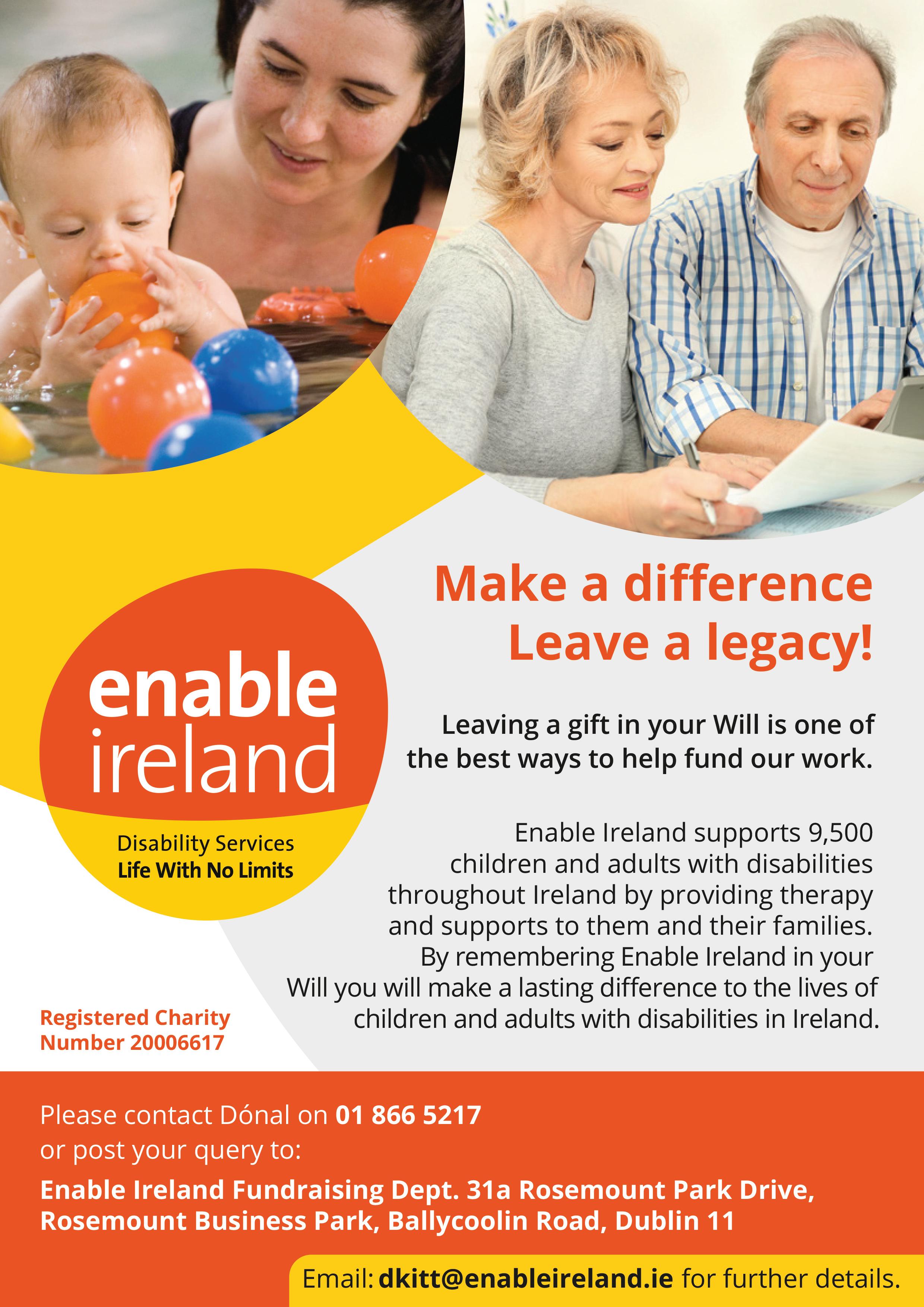
Leave the legacy of a brighter future for people living with disability
If the time is right to make or update your Will, maybe you’d consider including a gift to help support children and adults living with disability?
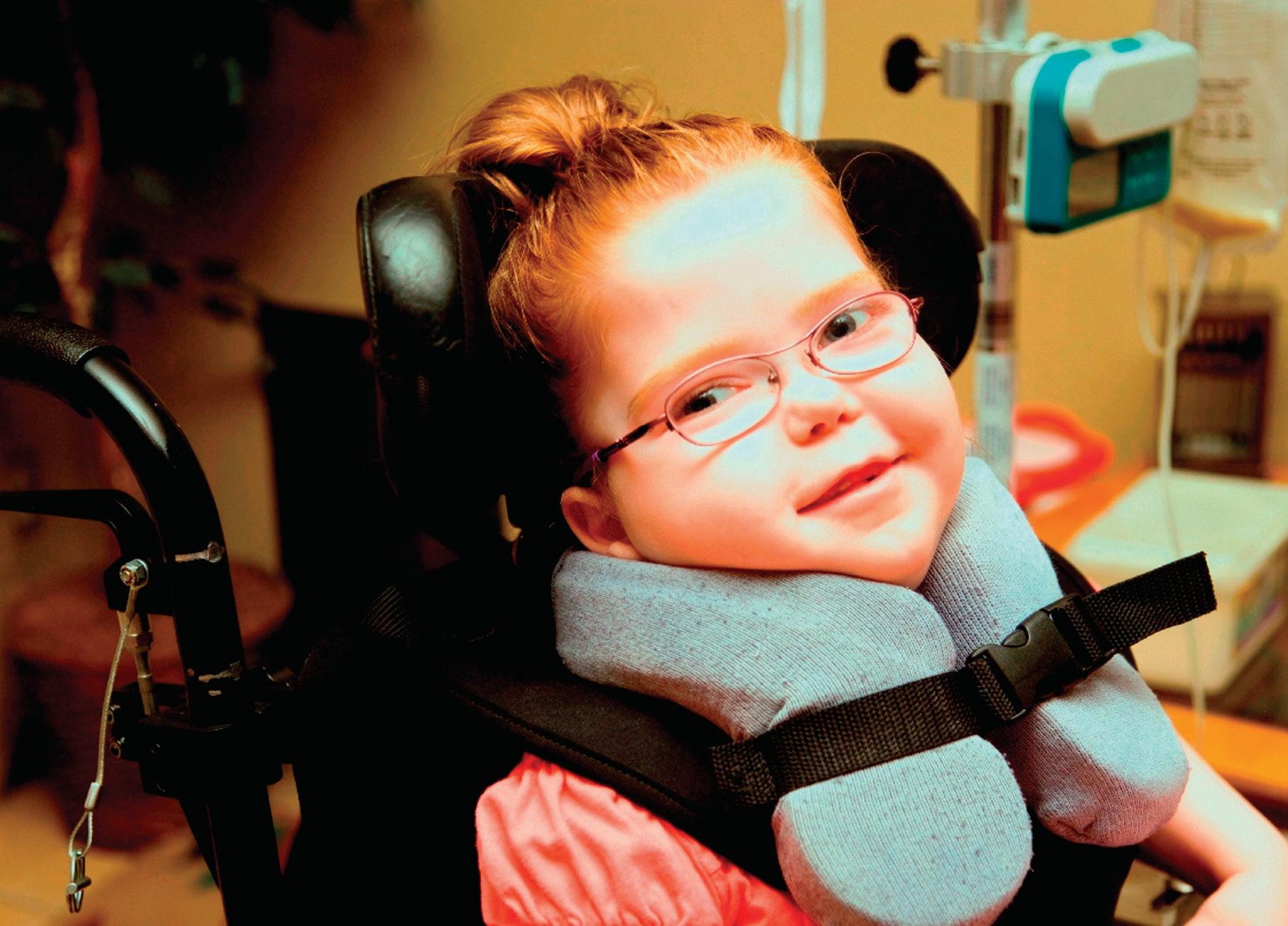
By leaving a bequest to Enable Ireland, your kindness will make a truly life-changing impact on future generations who are born with, or acquire a disability.
Maybe you recognise our name from our shops, but did you know that we provide services to over 13,000 people in 43 locations around Ireland?
Every day, we support people with sensory, physical or intellectual disabilities to fulfil their goals in life. But we need public support to fund our vital life-changing services.
Over the 70 years we’ve been around, huge
advances have been made, but our ethos has remained the same - to ensure everyone has the opportunity to be included in society and to be as independent as possible.
A gift in your Will is wonderful way to support the children of the future to live a happy life with no limits.
If you would like to speak confidentially about leaving a gift in your Will or request more information:
Phone: Dónal on 01 866 5217
Email: dkitt@enableireland.ie
Write to: Dónal Kitt, Enable Ireland, 31A Rosemount Park Drive, Ballycoolin Rd, Dublin 11.
Visit: www.enableireland.ie

Registered Charity Number: 20006617

ESSENTIAL GUIDE TO AGEING WELL 153
Commercial Feature
“In many ways, I’ve been privileged. Not many people get the opportunity to see a drilling rig hit water in a drought-prone area. When that water gets hit and it spurts up into the air - you can’t describe the community’s celebration and the joy!”
For 30 years, Carlow woman Therese Dooley worked across more than 60 countries as one of UNICEF’s leading water, sanitation and hygiene (WASH) specialists. Retired to her hometown, Therese recently spoke to Ageing Well about her memories and reflections on her remarkable career.
After getting started with UNICEF in Zimbabwe, Therese journeyed to Afghanistan and then onwards to Ethiopia, New York and Kathmandu – with many temporary missions in other countries in between.

Across her career, Therese has seen how the consequences of unsafe water and poor sanitation and hygiene can impact the lives of children. Even today, more than half of the world’s population do not have access to safe sanitation, and 673 million people still practice open defecation. During her time at UNICEF, Therese recognised the immense challenges, and opportunities, in improving sanitation for children, and such was her commitment to the cause, she became known as the ‘Toilet Diva’.
“I was known as the Toilet Diva in UNICEF because if you want to impact a child’s health, you can’t just give them water. You’ve also got to make sure they’ve toilets and a clean environment. It’s important because diarrhoea remains one of the biggest killers of children under five. We were seeing great progress on vaccine-preventable diseases, and in many other areas. But if we weren’t tackling basic diarrhoea, what were we doing?”
UNICEF had traditionally been very strong in water. We found in the programme that everyone

said, ‘Oh, I work in water. Because water is so identifiable and so nice. Very few people liked to have the connotation they work on toilets. It’s not seen as a career development move. But we became known as the Toilet Team, and I was called, the Toilet Diva. I like to think in some way, putting a spotlight on toilets has had a major impact on children’s health and well-being.”
Although leading a global programme from UNICEF’s New York headquarters, Therese jokes her single-minded focus on improving sanitation had its downsides. “My mom used to say, why can’t you just do something I can talk about? I won a Golden Poo Award, which is not really something you discuss over coffee! But sometimes you’ve got to be that person who will take the risk and make the change. We stopped ‘sanitising’ sanitation, and therefore I’m the Toilet Diva”, she says smiling.
Another effort Therese is particularly proud of is supporting girls with menstrual hygiene. “There were very few women working in WASH. It’s traditionally a male-dominated sector. And in many cultures, the issue of menstrual health is taboo, like it was in Ireland when I was growing up. However, it’s important for a girl’s dignity and self-esteem; for keeping girls in school and making sure they see school as a safe environment. And also, for their health and well-being. In many countries girls just
Commercial Feature ESSENTIAL GUIDE TO AGEING WELL 154
Irish ‘Toilet Diva’s’ fi ght to improve global sanitation for children:
A 30-year mission with UNICEF
© UNICEF/Dooley
Therese, handwashing with school girls in India
use a cloth. And often have difficulties keeping it clean, and because of taboos, they won’t hang the cloth outside to dry. It’s hung inside in the darkness and can be contaminated which can lead to infections down the road.”

Ever since she began ground-breaking studies on the area with UNICEF in 2003, Therese has pushed to get it on the global agenda. “I’m thrilled 20 years later to see the change. I was in India recently and schoolgirls were standing up and talking about menstrual hygiene. That’s important because it can keep girls in school longer and for every year a girl stays in school, she, and her future children, will be healthier.”

According to Therese, a big plus of retirement is more sleep. Her roles with UNICEF involved frequent travel and long hours. Whether it was responding to a sudden humanitarian emergency or working in some of the world’s most remote places, she somehow found the energy to meet the relentless demands. “I do not really know
what kept me going. Maybe a little bit of madness. I was very passionate about what I did, and I truly believe in UNICEF’s mission for children. Yes, there were hard days. But when you put it all together over 30 years, you see you’ve helped make an impact - no matter how small.”
Content with her career, Therese returned to Carlow and finds hope in the Irish experience. “I’d a pretty normal Irish upbringing. I was born and raised in Carlow. We owned a little fruit shop, had a modest home and went to the local schools. Everyone thought I was going away to volunteer for two years, and I came home 32 years later. But my anchor and roots have always been in Carlow. Throughout my career, when I’ve thought about Ireland and how not that long ago, 40% of our population was using outside toilets - and some people didn’t have any. That’s been one of the motivating factors for me. If Ireland can do it in a generation, with the right support, any country can.” Learn more - www.unicef.ie


Commercial Feature
+353 1 878 3000 22411 Legacy - DL Press Ad Template_DESIGN_AW_v1_OL.indd 1 14/12/2022 17:19
pauline@unicef.ie
© UNICEF/Dooley
Therese at work in Afghanistan
Childhood stops for seriously ill children.
Leave a gif t in your will & help children living with serious illness.

















Leave behind a little magic! Let your legacy bring magic to the lives of children living with serious illness. A gift in your will whether it is a large or small sum, or a percentage of your estate will make a lasting di erence.
Barretstown o ers free speci cally designed camps and programmes for sick children and their families. When looking after your loved ones in your will you can also transform the lives of sick children for generations to come.
We can help you succeed in making this gift.
For more information, please contact Clare Martin on 045 864 115, email clare.martin@barretstown.org or ll out this slip and return by post to the address below.
Yes, please send me a free brochure
Name: Address: County: Eircode:






























Your care and compassion for others can live on through a legacy gift. By remembering Barretstown in your will you can make sure that every child with serious illness can experience the magic of camp.
Healing doesn’t just happen in hospitals and laughter may very well be the best medicine.
Barretstown Founder, Paul Newman
Registered Charity Number: 20027759

At Barretstown we Press Play.
Post to Clare Martin, Barretstown Castle, Ballymore Eustace, Co Kildare, W91 RDX6, Ireland
Faith in the future: new miracle innovations could save thousands of lives from climate disaster
As climate change brings the worst drought in 40 years to the Horn of Africa, Concern Worldwide supporters are helping local farmers use new climate-resilient techniques to save their families and communities from starvation.

In some parts of the Horn of Africa, there hasn’t been a single drop of rain in three years. Dead cows lie decaying by the road, overcome by dehydration. Across Ethiopia, Somalia and Kenya, the dust-filled plains are so bare of vegetation that they don’t attract any animals. The villages are just as quiet. The hustle and bustle of families cooking or working has fallen silent. Children who haven’t eaten for days do nothing but sit still in their huts, too tired and sick to move.
It’s the same dire, drought-ravaged situation across all the countries in the Horn of Africa. Right now, 16 million people are acutely food insecure. It’s estimated one person dies of hunger every 48 seconds. And as climate change causes more extreme weather patterns, experts predict that droughts like these will become even more frequent, and last even longer, with devastating effects for future generations.
Living in hunger
Ahmed, a farmer in Somalia, and his children, live on the frontline of the climate crisis. He inherited his land from his father who was a farmer before him. But with each year that has gone by since he was a boy, he has seen less and less rain falling on the family farm. The soil has become so dry that he can no longer grow the nutritious corn and sorghum that once helped him put food on the table.
Seeing his crops wither before his eyes, Ahmed did everything he could to save them, but without water, it wasn’t enough. He had nothing to eat and nothing to sell at the market. The pain of hunger began to take hold of his children. Even if his family were to survive the current crisis, he could only wonder how his children would ever live through the more formidable droughts of the future.
Communities face the threat of mass starvation as the climate crisis worsens.
Miracle innovation
It was in this desperate situation that Concern Worldwide, Ireland’s largest international aid charity, and their generous community of supporters, were able to provide a lifeline for Ahmed. For 54 years, the charity has been helping people from the world’s poorest communities to build lives free from hunger. In Ahmed’s case, escaping hunger meant achieving something that seemed impossible to him – finding a way to turn his dusty fields green again despite the onslaught of the current drought. But thanks
Life-saving innovation

For decades, Concern Worldwide has been bringing life-saving solutions to people facing the climate crisis. The miraculous results have been nothing short of life-changing for thousands of families.
CROP VARIETY & DIVERSIFICATION
Drought-resistant seeds increase the chance of a successful crop, even in dry conditions, to protect families from hunger.
IRRIGATION
When an area receives no rainfall, innovative water pumping systems can bring vital, enriching moisture to barren soil.


POST-HARVEST MANAGEMENT
When crops are harvested, more secure storage techniques can protect them from being spoiled by insects and fungi later.
to supporters who left a gift in their Will to the charity, Concern has the resources to build climate-smart agricultural programmes that can support Ahmed and families like his. They provide the tools and training that, even in the driest conditions, help farmers grow nourishing food. Together, Concern and its supporters were able to provide Ahmed with a wide range of drought-resistant seeds, and training on how to grow them. The results have been nothing short of miraculous – today, his once-barren land is sprouting thousands of fruit-bearing trees. With the income he’s earning from selling the
While the threat of mass starvation looms, Concern Worldwide is calling for more people to help them protect vulnerable families like Ahmed’s from the hunger caused by drought and climate change. When people leave a gift in their Will to Concern, they’re giving hope to children, families and communities facing future challenges of the climate crisis, by supporting this life-saving agricultural programme.
Leaving a legacy of hope for future generations
Siobhán O’Connor, from Concern, advises people who want to leave a gift in their Will to the charity. “The gifts that our generous supporters
produce, he can afford to feed his children again. And when they’re old enough, they will learn these life-changing skills from Ahmed, which they can pass on to their own children, ensuring future generations live a life free from hunger.
The future threat of climate change
Although the future looks brighter for Ahmed and his children, many families are still not safe from climate change. The World Bank predicts that the coming changes in weather patterns could force more than 100 million people into extreme poverty by 2030. And by 2050, it may internally displace 143 million people from countries in Sub-Saharan Africa, South East Asia and Latin America.
Find out how you can be part of a world without hunger

If you’d like to request your free brochure to find out more about leaving a gift in your Will to Concern, please contact Siobhán O’Connor at Concern Worldwide today.

Phone: 01 417 8020 E-mail: siobhan.oconnor@concern.net Visit: concern.net/legacy
leave in their Wills have the power to change so much,” Siobhán told us. She continued, “That single act of kindness goes far beyond helping one family protect themselves from hunger – it lives on through the years, from generation to generation, helping the families and children of the future survive even the deadliest drought.” More and more compassionate people across Ireland are now moving to support Concern’s vision to build a hunger-free world. Siobhán explains, “Our community is united by a simple belief that no one should ever have to suffer the pain of hunger. If you share in this belief, I would encourage you to consider joining us today. No gift is too small or big, every donation will help build a world free from hunger.”
BEFORE AFTER
“With the seeds Concern provided, I was able to harvest a lot more and help my family, it changed everything.”
Ahmed, Somalia
“ I am proud to know that, even when I am gone, my support will continue to save lives.”
Colm, who’s leaving a gift in his Will to Concern Worldwide, Co. Galway
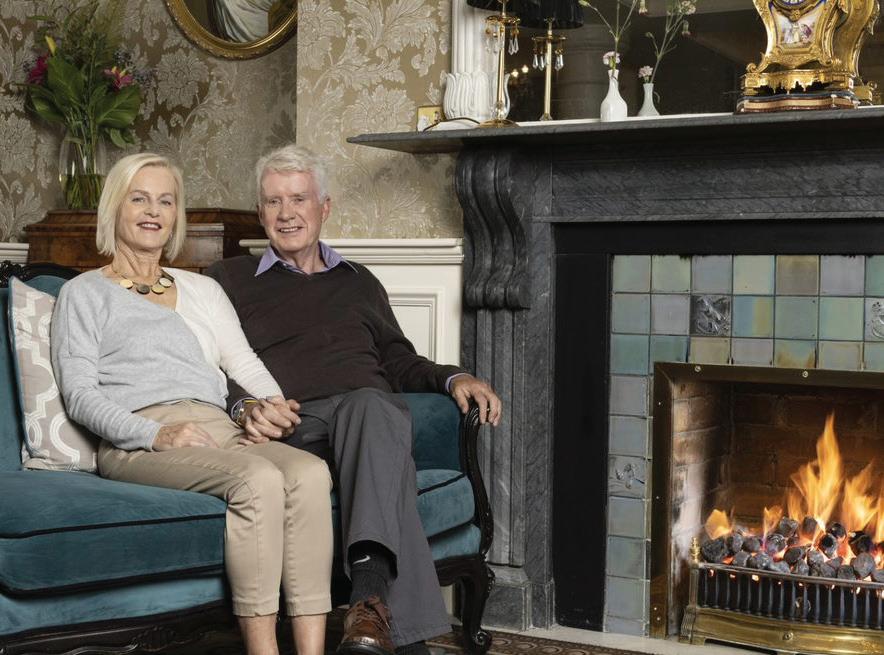


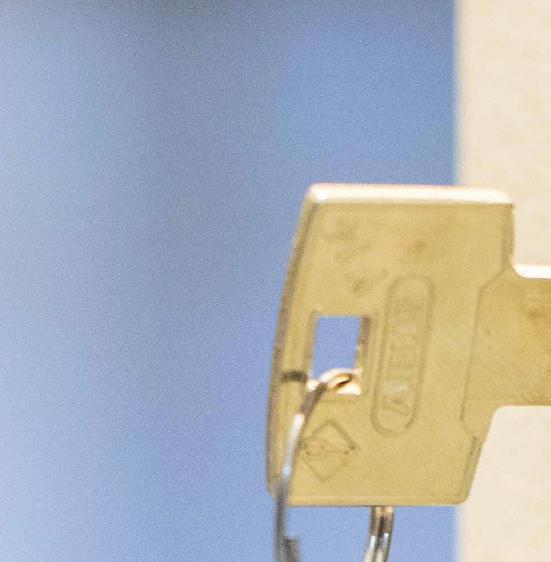




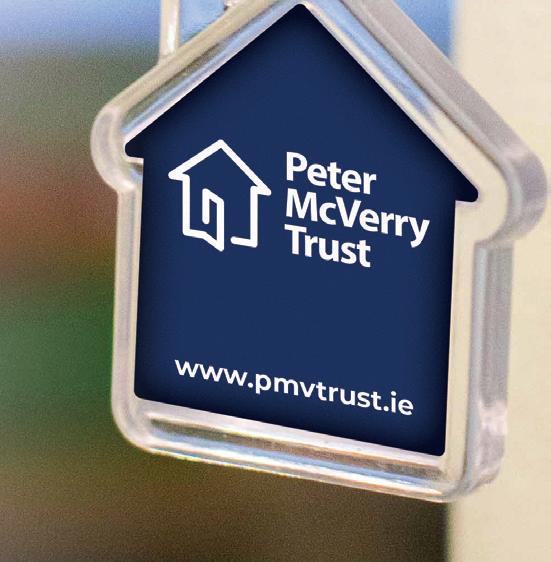


By leaving a gift in your will, you join a community of supporters securing the future of the lifechanging work started by Sr Stan over 35 years ago. You can ensure that families and children that need it most will always have a place to call home. Visit focusireland.ie/legacy For more information contact Cian Dikker 086 103 3130 cian.dikker@focusireland.ie Focus Ireland, 9 - 12 High Street, Christchurch, D08 E1W0 CRN: 20015107 252880_2L_Focus Ireland_Senior Citizen 2023_ND_V1.indd 1 08/12/2022 15:31 Call (01) 823 0776 Email fundrasing@pmvtrust.ie By leaving a legacy to Peter McVerry Trust you can reduce homelessness by helping us give more people the key to their own door. YOUR LEGACY CAN OPEN THE DOOR FOR A PERSON IN HOMELESSNESS. To learn more about the powerful legacy you can leave: PMVT_Press_Ad_210x148_Fin.indd 1 08/12/2022 17:18 252872_2L_Peter McVerry Trust_Senior Citizen 2023_ND_V1.indd 1 09/12/2022 16:16
If you are looking for a way to make a real difference in countless lives, we would be grateful if you would consider leaving a gift to Our Lady’s Hospice & Care Services in your Will. Once you have taken care of your loved ones, this would be a truly special gesture.

At Our Lady’s Hospice & Care Services, we provide excellent care for patients with a range of different needs. We are able to do this because of supporters like you, and especially thanks to the generous gifts that are left in people’s Wills.
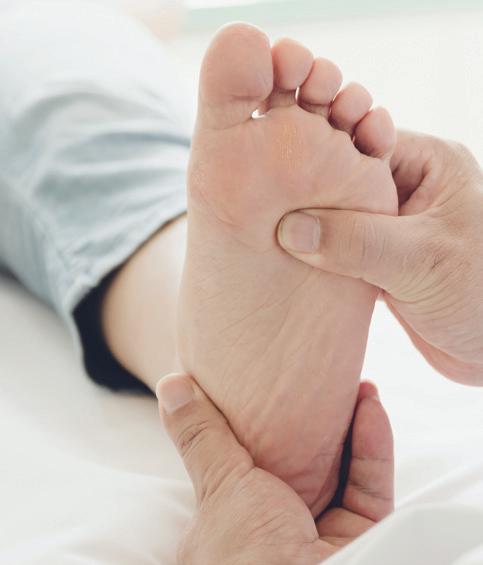


To discuss the simple steps involved in leaving a lasting gift, big or small, please contact us in complete confidence, with no obligation.
Thank


you
Cunningham Our Lady’s Hospice & Care Services, Harold’s Cross, Blackrock and Wicklow Tel: (01) 491 1072 Email: scunningham@olh.ie Find us on Visit: olh.ie/legacy CHY 1144 RCN 20001827 250138_2L_OLH_JM_SC21_V1_REV2.indd 1 25/11/2020 17:16 252660_2L_Our Ladys Hospice_Senior Citizen_ND_V1.indd 1
Us • SCPI registered Podiatrist / Chiropodist. • Recognised by all the major health insurance companies. • Specialising in treatment in your own home / hospital or nursing home. • Covering all areas in Dublin and the surrounding counties. Contact Us: Email: info@dublinmobilefootclinic.ie www.dublinmobilefootclinic.ie Dublin Mobile Footclinic 083 089 0644 252963_4C_Dublin Footclinic_Senior Citizen 2023_ND_V1.indd 1 31/01/2023 15:39
Susie
About
family and loved ones. If you include Irish Hospice Foundation, you can reach out to families in a crucial time of need.
no-one faces death and bereavement without the care and support they need.
Contact Anna Sadlier: Irish Hospice Foundation, Morrison Chambers (Floor 4), 32 Nassau Street, Dublin 2, D02 YE06 Email: anna.sadlier@hospicefoundation.ie or call 01 679 3188
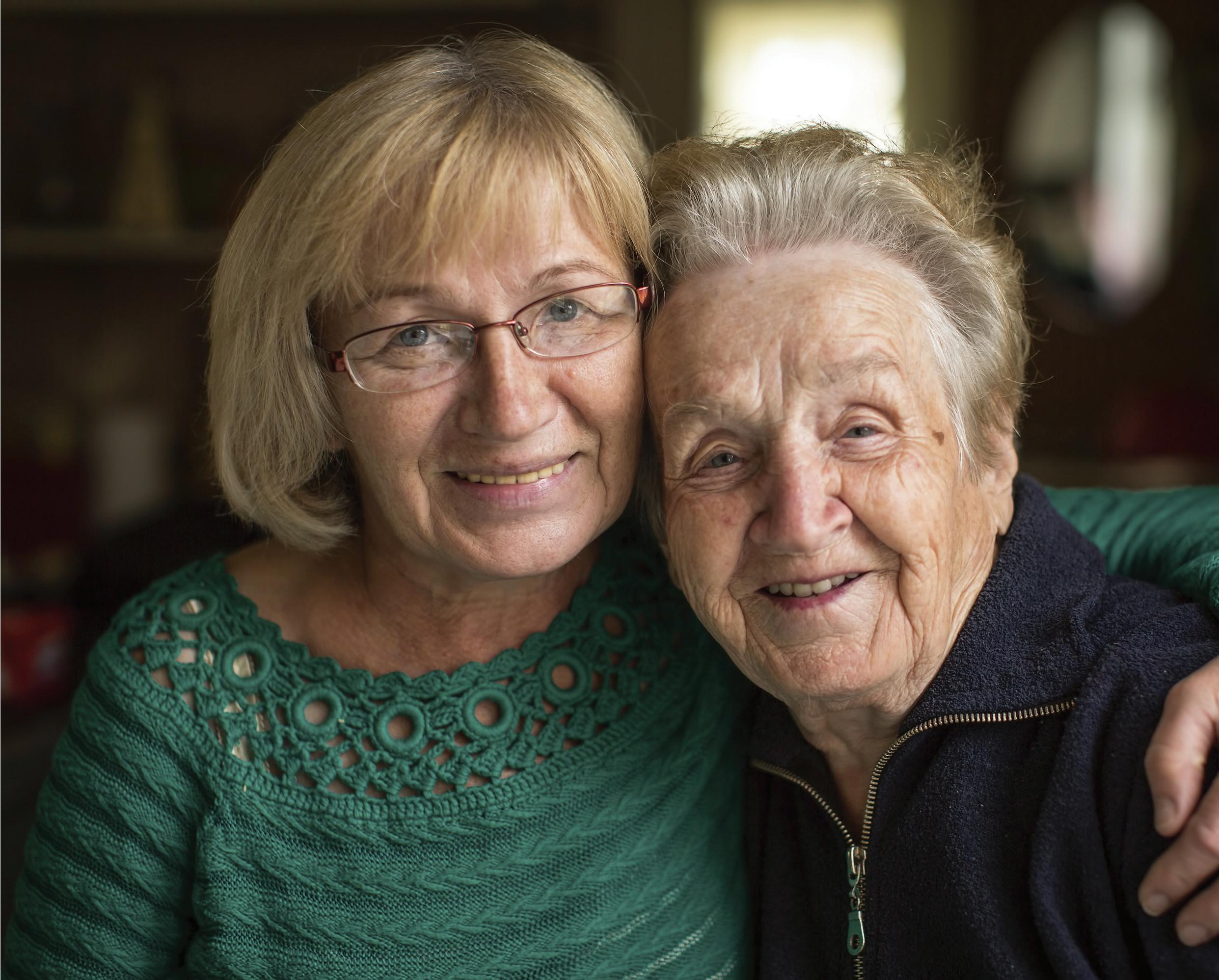

Numbers you need to know
The final chapter of our Guidebook contains details of Home Instead’s local offices around the country, as well as a range of useful contacts that you or your family can use to learn more about essential services for ageing adults.

Keep our Guidebook in a handy place at home, or visit HomeInstead.ie to download and print this directory.
Leinster
BALLSBRIDGE, DUBLIN COVERING D2, 4, 6 & 8
Contact: Catherine Vodden
3 Pembroke Place, Ballsbridge, Dublin 4. D04 K448.
Tel: 01 667 0911
Email: catherine.vodden@homeinstead.ie
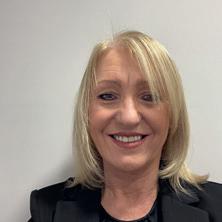
Contact: Michael Lowe
Unit E, Glencormack Business Park, Kilmacanogue, Co. Wicklow. A98 A6F9.
Tel: 01 276 8122
Email: michael.lowe@homeinstead.ie

Directory 162 ESSENTIAL GUIDE TO AGEING WELL
BRAY, COUNTY WICKLOW COVERING COUNTY WICKLOW
Leinster
DUNLEER, COUNTY LOUTH COVERING COUNTY LOUTH
Contact: Allison Doggett


Unit 1, Tenure Industrial Complex, Tenure, Dunleer, Co. Louth.
Tel: 041 213 2322
Email: allison.doggett@homeinstead.ie
FAIRVIEW, DUBLIN COVERING D1, 3, 5, 7 & 13
Contact: Peter Taylor
7 Marino Mart, Fairview, Dublin 3.
Tel: 01 853 5048
Email: peter.taylor@homeinstead.ie
LEOPARDSTOWN, DUBLIN COVERING D14, 18 & SOUTH EAST DUBLIN
Contact: Aoife O’Shea
3 Brewery Court, Brewery Road, Leopardstown, Blackrock, Co. Dublin.
Tel: 01 206 8022
Email: aoife.oshea@homeinstead.ie
MULINGAR, COUNTY WESTMEATH COVERING COUNTIES WESTMEATH, LONGFORD & OFFALY
Contact: Lorraine McLaughlin
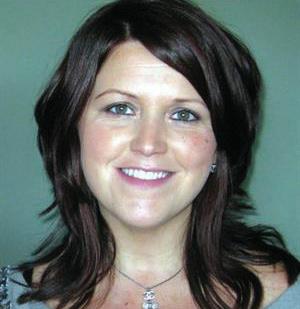
Marlinstown Office Park, Mullingar, Co. Westmeath.
Tel: 044 938 5260
Email: lorraine.mclaughlin@homeinstead.ie
NEWBRIDGE, COUNTY KILDARE COVERING COUNTIES KILDARE, LAOIS, KILKENNY AND CARLOW
Contact: Amy Quille
Main Street, Newbridge, Co Kildare.
Tel: 045 446 593
Email: amy.quille@homeinstead.ie
RATHCOOLE, DUBLIN COVERING D11, 15, 20, 22, 24 & DUBLIN WEST
Contact: Páraic Curtis
Unit 502C Greenogue Business Park
Rathcoole, Co Dublin.
Tel: 01 412 7812
Email: paraic.curtis@homeinstead.ie
RATHFARNHAM, DUBLIN
COVERING DUBLIN 6W, 10, 12, 14, 16 & 24
Contact: Hugh McGauran




Unit B09, Nutgrove Enterprise Park, Nutgrove Way, Rathfarnham, Dublin 14.
Tel: 01 424 1945
Email: hugh.mcgauran@homeinstead.ie
SWORDS, DUBLIN COVERING D 9, 17 AND NORTH COUNTY DUBLIN
Contact: Tara Shortall


2nd Floor, Broadmeadow Hall, Applewood Village, Swords, Co. Dublin.
Tel: 01 895 0010
Email: tara.shortall@homeinstead.ie
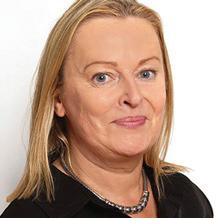
TRIM, COUNTY MEATH COVERING COUNTY MEATH
Contact: Meghann O’Reilly Bridge Street, Trim, Co Meath.
Tel: 046 948 3338
Email: meghann.oreilly@homeinstead.ie
WEXFORD, COUNTY WEXFORD COVERING COUNTY WEXFORD
Contact: Martin Murphy
Office R9, Clonard Village Centre, Clonard Village, Wexford, Co. Wexford.
Tel: 053 918 4042
Email: martin.murphy@homeinstead.ie
Notes
Directory 163 ESSENTIAL GUIDE TO AGEING WELL
Munster
BLACKROCK, COUNTY CORK
COVERING SOUTH CITY, EAST & SOUTH CORK
Contact: Deirdre Murray
4 Nessan House, Riverview Business Park, Bessboro Road, Blackrock, Cork.
Tel: 021 500 2190
Email: cork@homeinstead.ie
SUNDAYS WELL, CORK
COVERING NORTH CITY & NORTH COUNTY CORK
Contact: Tanya Morrissey


Kiemar House, Shanakiel Road, Sundays Well, Cork.
Tel: 021 430 7907
Email: corknorth@homeinstead.ie
ENNIS, COUNTY CLARE COVERING COUNTY CLARE
Contact: Brian O’Sullivan
U16, First Floor, Roslevan Shopping
Centre, Tulla Road, Ennis, Co Clare.
Tel: 065 679 7507
Email: brian.osullivan@homeinstead.ie
KILLARNEY, COUNTY KERRY COVERING COUNTY KERRY
Contact: Tim Healy
First Floor, Grosvenor Court, High Street, Killarney, Co Kerry.
Tel: 066 719 3350
Email: tim.healy@homeinstead.ie
LIMERICK COVERING LIMERICK CITY & COUNTY
Contact: Brian O’Sullivan
Fairgreen, Ballysimon Road, Limerick.
Tel: 061 462 070
Email: brian.osullivan@homeinstead.ie
THURLES, COUNTY TIPPERARY COVERING COUNTY NORTH & SOUTH TIPP
Contact: Dermot Carberry

71 Liberty Square, Thurles, Co Tipperary.
Tel: 0504 91100
Email: dermot.carberry@homeinstead.ie
WATERFORD COVERING WATERFORD CITY & COUNTY
Contact: Steven Tubbritt




Unit 3, Cleaboy Business Park, Old Kilmeaden Road, Waterford.
Tel: 051 333 966
Email: steven.tubbritt@homeinstead.ie
Notes
Directory 164 ESSENTIAL GUIDE TO AGEING WELL
Connacht
CASTLEBAR, COUNTY MAYO COVERING COUNTY MAYO
Contact: Jackie Henry Unit 4 McHale Retail Park, Castlebar, Co. Mayo.
Tel: 094 904 4785
Email: jackie.henry@homeinstead.ie
ORANMORE, COUNTY GALWAY COVERING GALWAY CITY & COUNTY
Contact: Suzanne Ryan


12B Oranmore Business Park, Oranmore, Galway, H91 DT6C.
Tel: 091 384 160
Email: suzanne.ryan@homeinstead.ie
Ulster
CARRICKMACROSS, COUNTY MONAGHAN COVERING COUNTIES CAVAN AND MONAGHAN
Contact: Caroline Smith
C:TEK, Unit 13, Riverside Road, Carrickmacross, Co. Monaghan.
Tel: 042 942 0720 (Monaghan)
Tel: 049 430 9140 (Cavan)
Email: caroline.smith@homeinstead.ie
SLIGO COVERING COUNTIES SLIGO, LEITRIM & ROSCOMMON
Contact: Jodie Molloy
44 High Street, Sligo.
Tel: 071 931 7051
Email: jodie.molloy@homeinstead.ie
Notes
LETTERKENNY, COUNTY DONEGAL COVERING COUNTY DONEGAL
Contact: Alison Hegarty


Second Floor, Riverfront House, Pearse Road, Letterkenny, Co. Donegal.
Tel: 074 911 3050
Email: donegal@homeinstead.ie
Notes

Directory 165 ESSENTIAL GUIDE TO AGEING WELL
Useful numbers
Active Retirement Ireland
Tel: .............................................. 01 873 3836
Web: ......................................www.activeirl.ie
Gas Networks Ireland
24-hour Emergency
Phone Line: 1800 20 50 50
Web: www.gasnetworks.ie
Age Action
Tel: 01 475 6989
Web: www.ageaction.ie
Citizens Information Services
Tel: ............................................0818 07 4000
Web: ................ www.citizensinformation.ie
Age & Opportunity
Tel: 01 805 7709
Web: www.ageandopportunity.ie
Competition and Consumer Protection Commission
Tel: 01 402 5555
Web: www.ccpc.ie
Age NI
Advice Service ...................... 0808 808 7575
Web: .. www.ageuk.org.uk/northern-ireland
Crime Victims Helpline
Freephone: 116 006
Web: ............... www.crimevictimshelpline.ie
Alone
National Phone Line: 0818 222 024
Web: www.alone.ie
Department of Health
Tel: .............................................. 01 635 4000
Web: ............................... www.health.gov.ie
Alzheimer Society of Ireland
National Helpline: 1800 341 341
Web: www.alzheimer.ie
Department of Social Inclusion
Web: www.socialinclusion.ie
Tel: 01 704 3968
Arthritis Ireland
Tel: ............................................ 0818 252 846
Web: ........................ www.arthritisireland.ie
Department of Social Protection
Web: ..................................... www.welfare.ie
Tel: ............................................... 01 704 3000
Aware Head Office Tel: 01 661 7211
Support Line: 1800 80 48 48
Web: www.aware.ie
Electric Ireland
Emergency and Electricity Interruptions: 1800 372 999
Web: www.electricireland.ie
Bethany Bereavement Support Group
Tel: .............................................087 990 5299
Web: .................................... www.bethany.ie
No charge for service. Please visit website for details of support groups in your area
Engaging Dementia
Tel: 01 260 8138
Web: www.engagingdementia.ie
166 ESSENTIAL
GUIDE TO AGEING WELL
Useful numbers
Friends of the Elderly
Tel: ............................................. 01 873 1855
Web: ................ www.friendsoftheelderly.ie
Irish Osteoporosis Society
Tel: ............................................. 01 637 5050
Web: ................... www.irishosteoporosis.ie
GROW
LoCall: 0818 474 474
Web: www.grow.ie
Irish Patients Association
Tel: 087 659 4183
Web: www.irishpatients.ie
Health Promotion Unit
Web: www.healthpromotion.ie
Irish Rural Link
Tel: 090 648 2744
Web: www.irishrurallink.ie
Health Service Executive
HSELive: ....................................1800 700 700
Web: ........................................... www.hse.ie
Irish Wheelchair Association
Tel: ............................................. 01 818 6400
Email: ......................................... info@iwa.ie
Web: ........................................... www.iwa.ie
Irish Association of Pension Funds
Tel: 01 661 2427
Web: www.iapf.ie
MABS (Money Advice & Budgeting Service)
Helpline: 0818 07 2000
Web: www.mabs.ie
Irish Deaf Society
Text: 086 380 7033
Email: info@irishdeafsociety.ie
Web: www.irishdeafsociety.ie
Mental Health Ireland
Helpline: .................................. 01 284 1166
Web: .............. www.mentalhealthireland.ie
Irish Heart Foundation
Tel: ............................................. 01 668 5001
Web: ................................. www.irishheart.ie
MS Ireland
Tel: ........................................... 0818 233 233
Web: www.ms-society.ie
Irish Hospice Foundation
Tel: 01 679 3188
Web: www.hospicefoundation.ie
Muintir na Tíre
Tel: 062 51163
Email: info@muintir.ie
Web: www.muintir.ie
Irish League of Credit Unions
Tel: 01 614 6700
Web: ............................. www.creditunion.ie
167 ESSENTIAL GUIDE TO AGEING WELL
Useful numbers
National Adult Literacy Agency
Tel: ........................................... 1800 20 20 65
Web: ............................................ www.nala.ie
Senior Help Line
Tel: ............................................1800 80 45 91
Web: ....................... www.thirdageireland.ie
National Council for the Blind
Tel: 1800 911 250
Web: www.ncbi.ie
St. Vincent De Paul
Tel: 01 884 8200
Web: www.svp.ie
National Immunisation Office
Email: immunisation@hse.ie
Web: www.immunisation.ie
Sustainable Energy Authority of Ireland
Tel: 01 808 2100
Web: www.seai.ie
Nursing Homes Ireland
Tel: .............................................. 01 469 9800
Web: ............................................. www.nhi.ie
Third Age
Tel: .............................................046 955 7766
Web: ........................ www.thirdageireland.ie
Parkinson’s Association of Ireland
Free Phone: 1800 359 359
Email: info@parkinsons.ie
Web: www.parkinsons.ie
Notes
Pensions Authority
LoCall: 071 915 7100
Web: .................. www.pensionsauthority.ie
Financial Services & Pensions Ombudsman
Tel: ............................................. 01 567 7000
Web: www.fspo.ie
Samaritans
Tel: 116 123
Web: www.samaritans.org
168 ESSENTIAL
GUIDE TO AGEING WELL
OPW
OPW
BUY AN OPW HERITAGE CARD & EXPLORE IRELAND’S WONDERFUL HERITAGE
BUY AN OPW HERITAGE CARD & EXPLORE IRELAND’S WONDERFUL HERITAGE
BUY AN OPW HERITAGE CARD & EXPLORE IRELAND’S WONDERFUL HERITAGE
BUY AN OPW HERITAGE CARD & EXPLORE IRELAND’S WONDERFUL HERITAGE
BUY AN OPW HERITAGE CARD & EXPLORE IRELAND’S WONDERFUL HERITAGE
Dún
Dún
Dún
Aonghasa
BUY AN OPW HERITAGE CARD & EXPLORE IRELAND’S WONDERFUL HERITAGE
Dún Aonghasa
Jerpoint Abbey

Dún Aonghasa Castletown House and Parklands Donegal Castle Jerpoint Abbey
Free admission to more than 45 of Ireland’s finest heritage sites
Free admission to more than 45 of Ireland’s finest heritage sites
Castletown House and Parklands
Free admission to more than 45 of Ireland’s finest heritage sites
Donegal Castle
Unlimited access for up to one year
Free admission to more than 45 of Ireland’s finest heritage sites
Unlimited access for up to one year
Free admission to more than 45 of Ireland’s finest heritage sites
Unlimited access for up to one year
Free admission to more than 45 of Ireland’s finest heritage sites



Unlimited access for up to one year
€40 Adult €30 Senior €10 Child/Student €90 Family
Unlimited access for up to one year
Unlimited access for up to one year
€40 Adult €30 Senior €10 Child/Student €90 Family
Unlimited access for up to one year
Heritage Cards can be purchased online at www.opwheritagecards.com or in person at participating heritage sites
Heritage Cards can be purchased online at www.opwheritagecards.com or in person at participating heritage sites
Heritage Cards can be purchased online at www.opwheritagecards.com or in person at participating heritage sites
Heritage Cards can be purchased online at www.opwheritagecards.com or in person at participating heritage sites
Heritage Cards can be purchased online at www.opwheritagecards.com or in person at participating heritage sites
Heritage Cards can be purchased online at www.opwheritagecards.com or in person at participating heritage sites
Find us on Facebook
Find us on Facebook
Full details: www.heritageireland.ie
Find us on Facebook
Find us on Facebook
Full details: www.heritageireland.ie
Find us on Facebook
Full details: www.heritageireland.ie
Full details: www.heritageireland.ie
Full details: www.heritageireland.ie
Full details: www.heritageireland.ie
Family
OPW
€40 Adult €30 Senior €10 Child/Student €90
Family
Aonghasa Castletown
Dún
House and Parklands Donegal Castle Jerpoint Abbey
OPW
€40 Adult €30 Senior €10 Child/Student €90
Family
Aonghasa Castletown House and Parklands Donegal Castle Jerpoint Abbey
OPW
€40 Adult €30
€10 Child/Student €90
Senior
Family
OPW
€40
€30
€10 Child/Student €90
Adult
Senior
Aonghasa Castletown House and Parklands
Donegal Castle Jerpoint Abbey
OPW
€40 Adult €30 Senior €10 Child/Student €90
Family
Castletown
Donegal
Find us on Facebook Jerpoint Abbey
House and Parklands
Castle
Free admission to more than 45 of Ireland’s finest heritage sites
BUY AN OPW HERITAGE CARD & EXPLORE IRELAND’S WONDERFUL HERITAGE
Full details: www.heritageireland.ie Dún Aonghasa Castletown House and Parklands Donegal Castle
Heritage Cards can be purchased online at www.opwheritagecards.com or in person at participating heritage sites Jerpoint Abbey
Find us on Facebook







































































































































































































































































































































































































































































































































































































































































































































































































































































 Bernie Byrne, Relationship Manager and Dementia Champion, Home Instead
Bernie Byrne, Relationship Manager and Dementia Champion, Home Instead



































































































































































